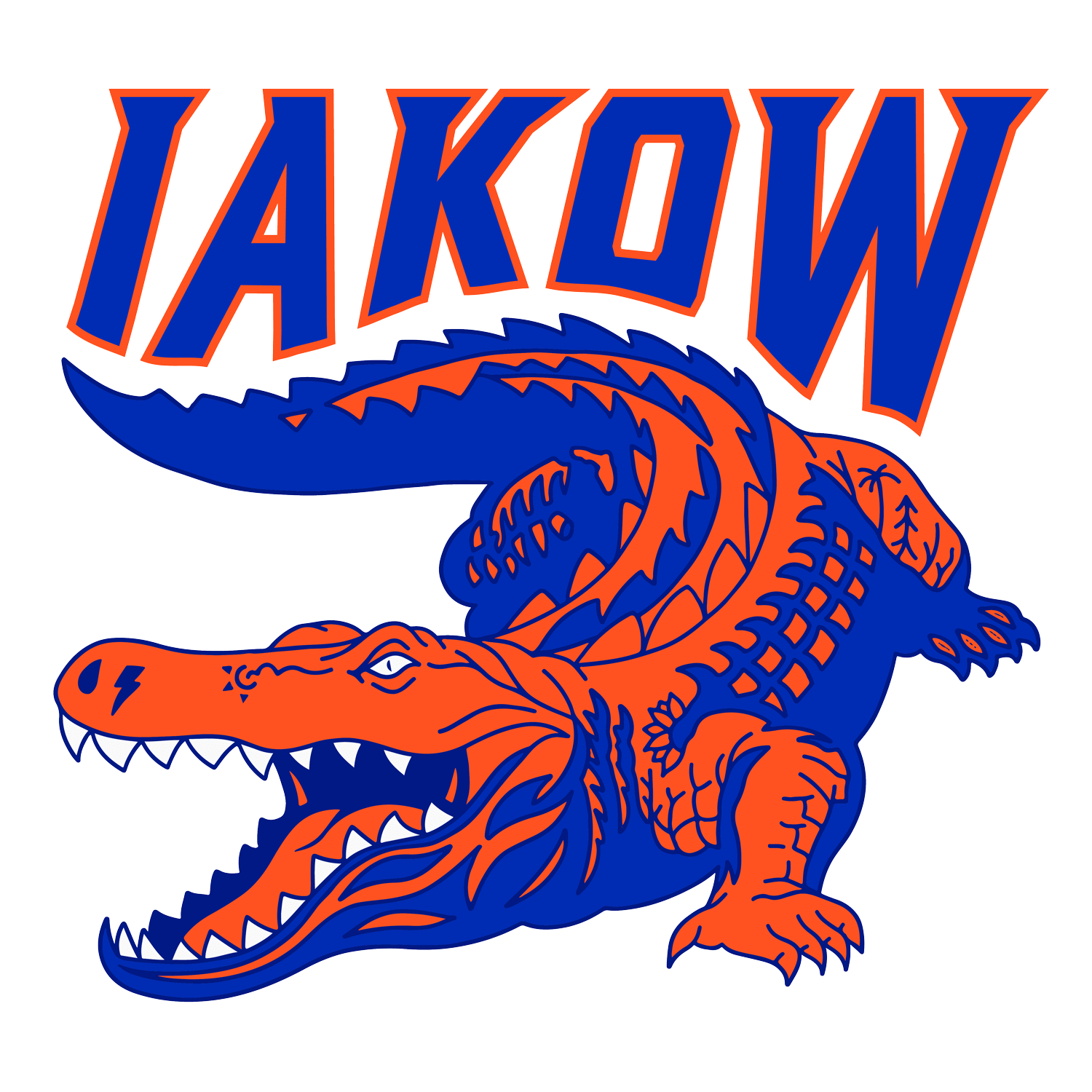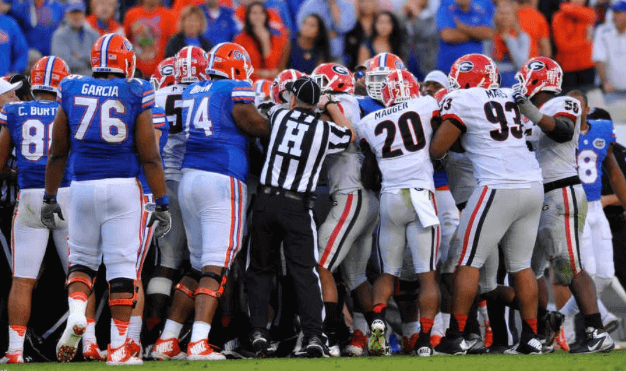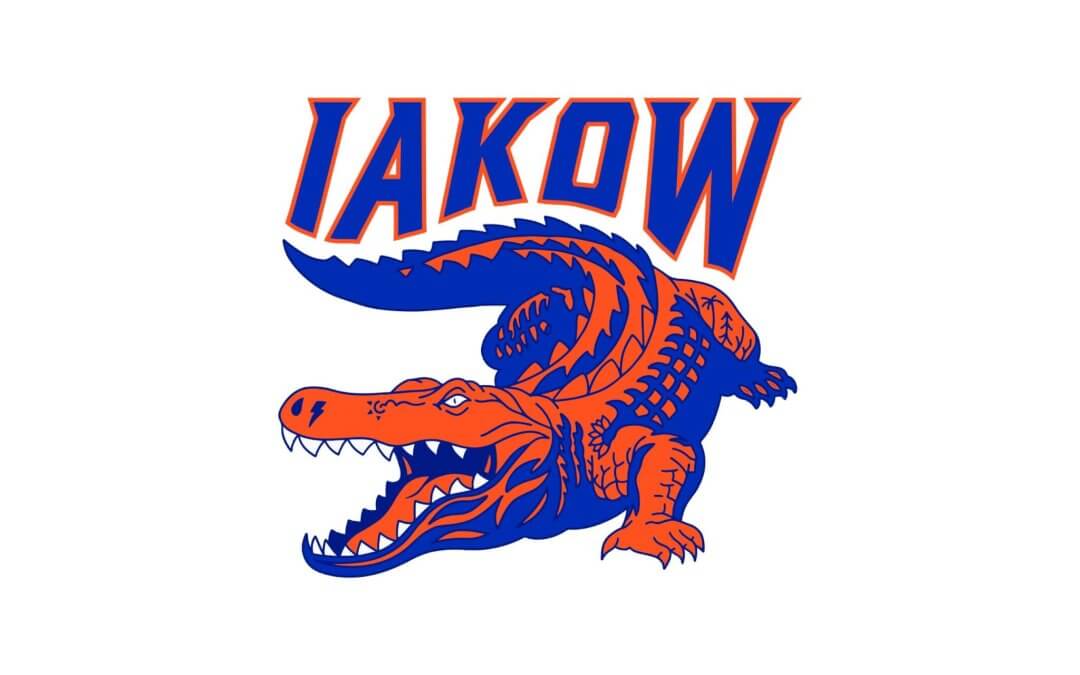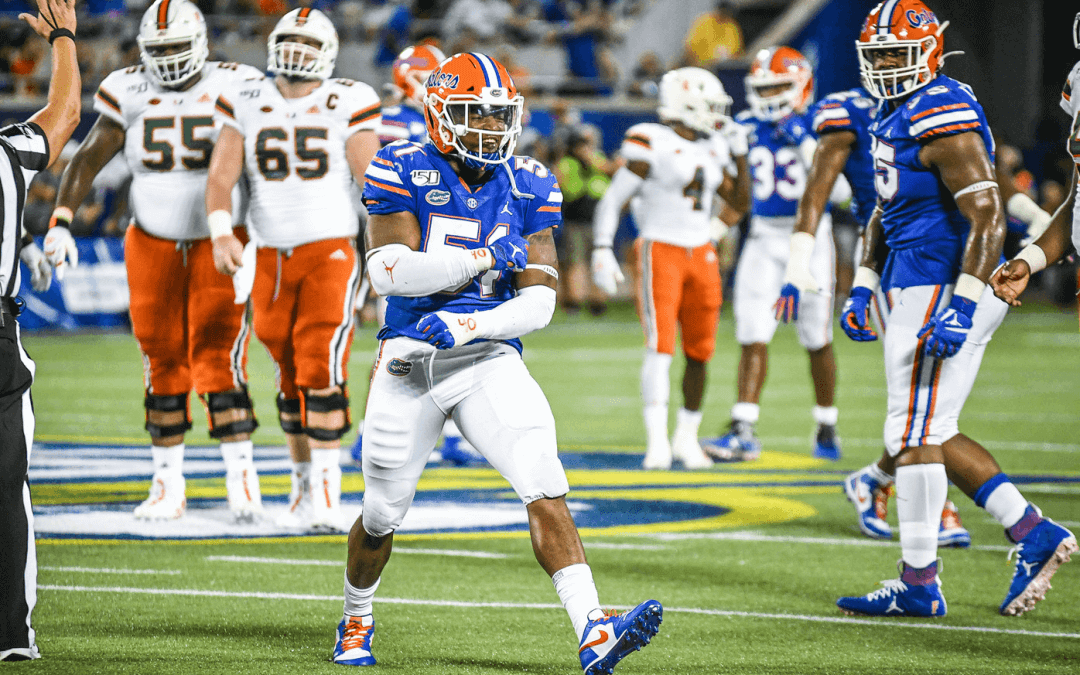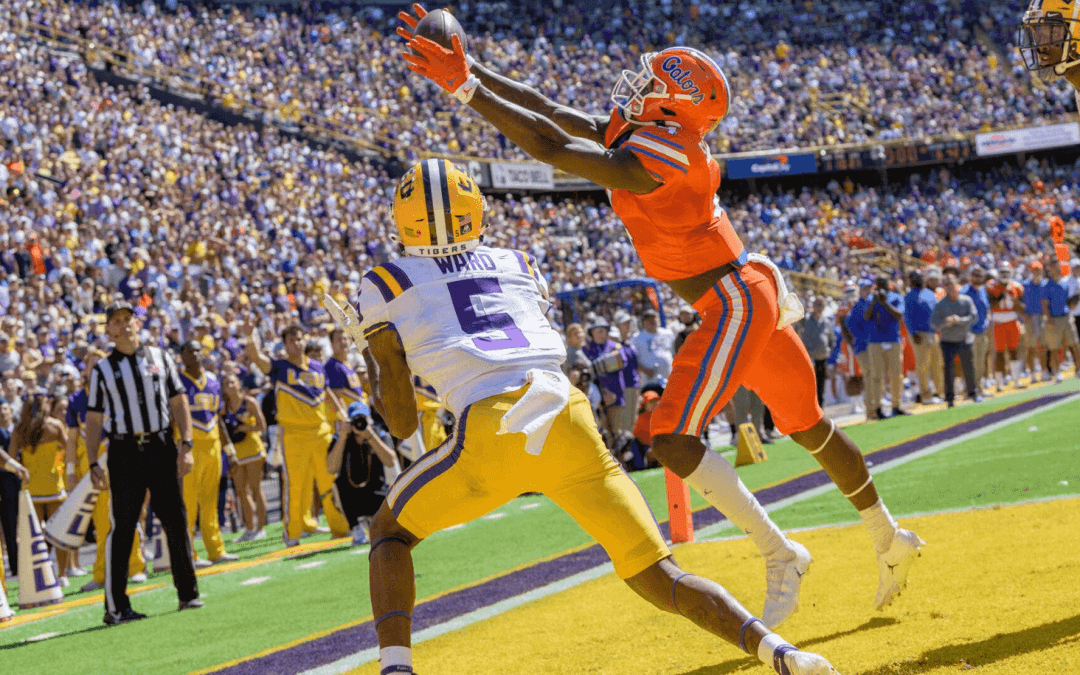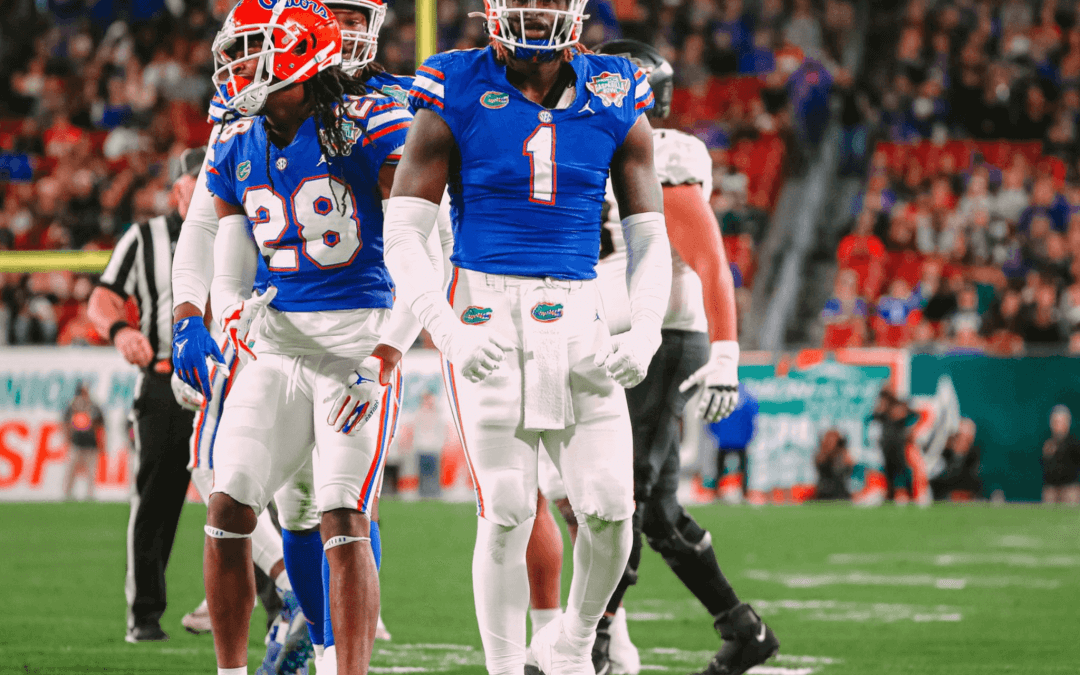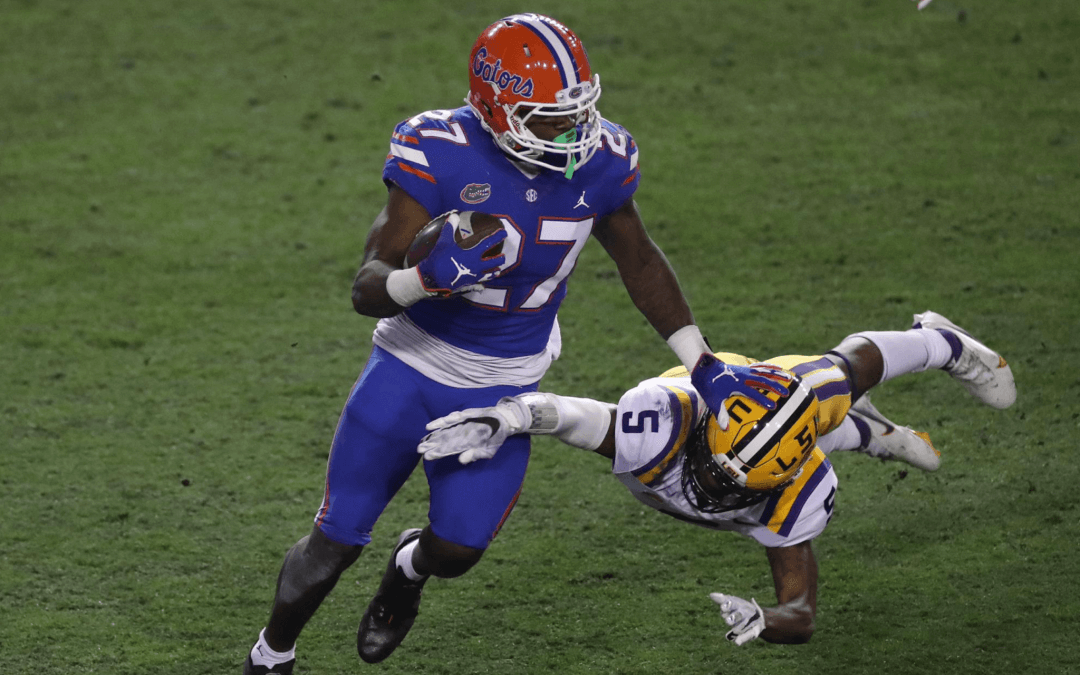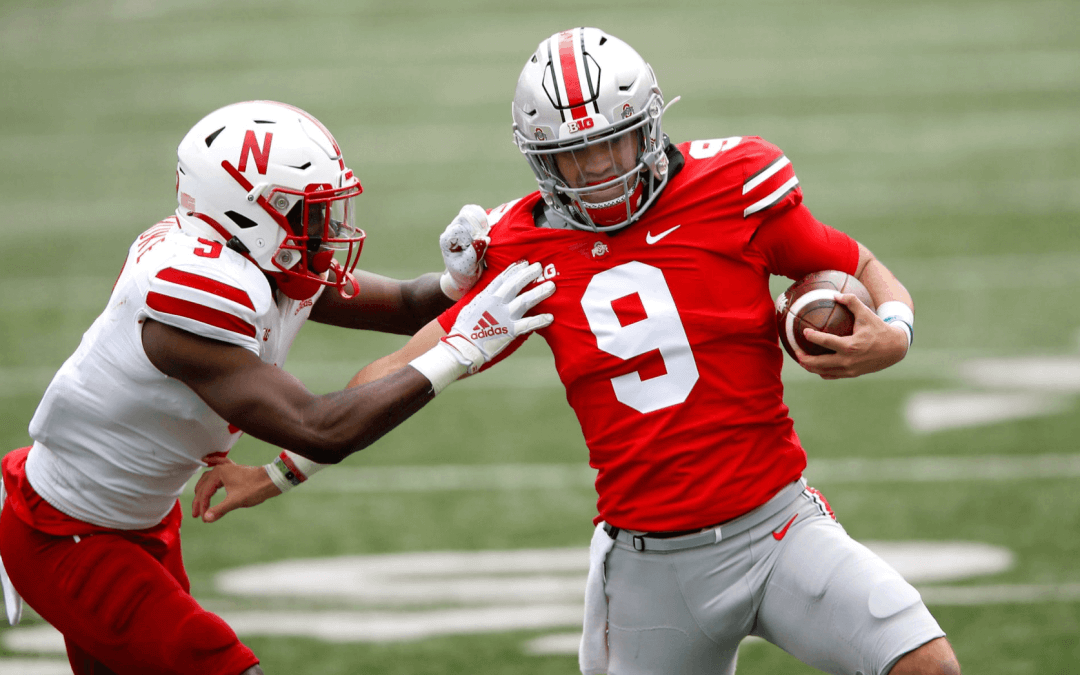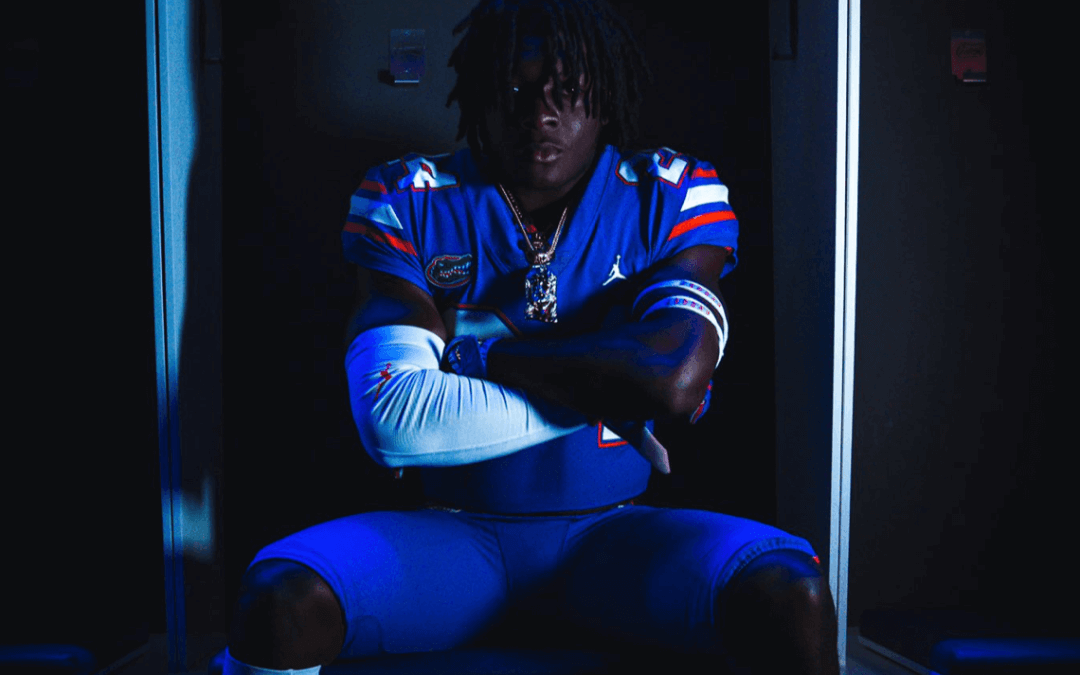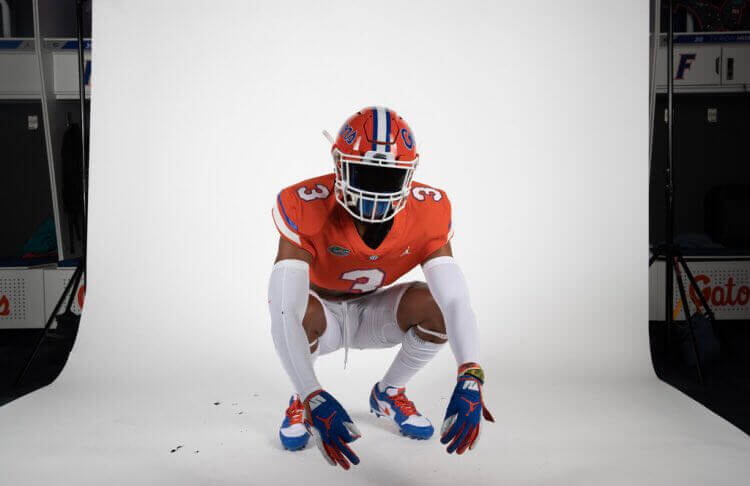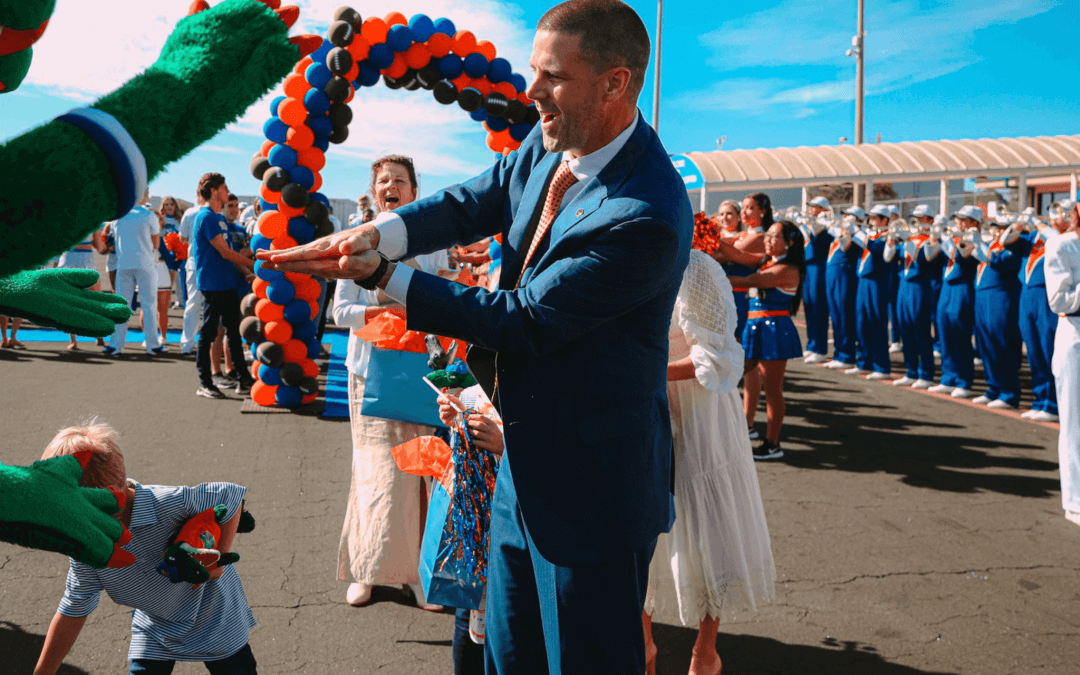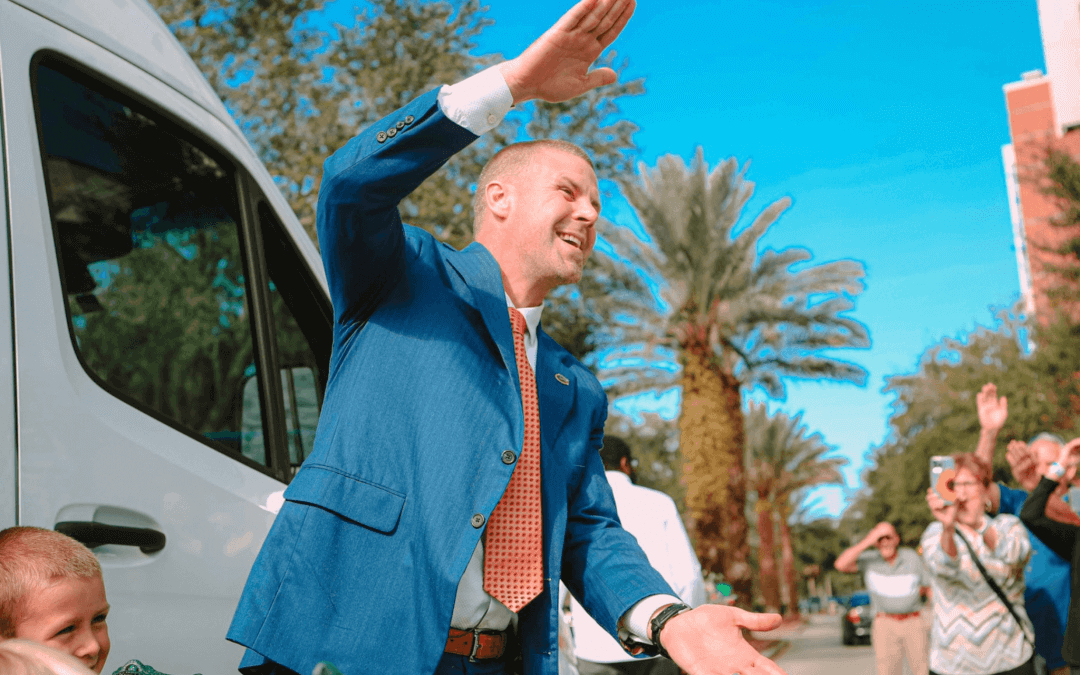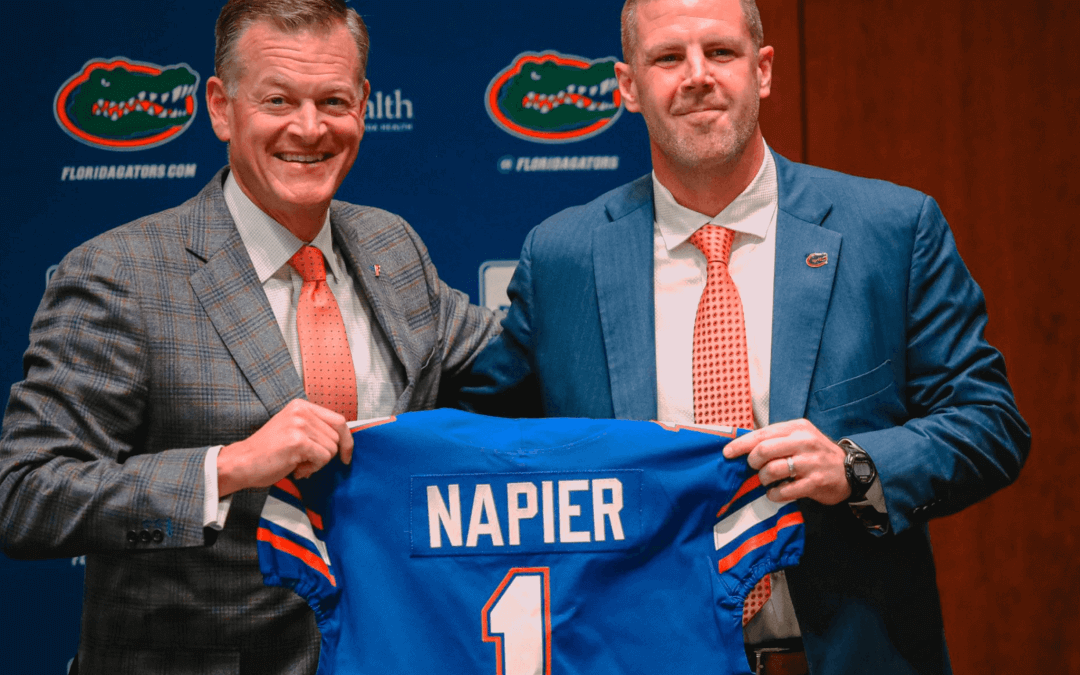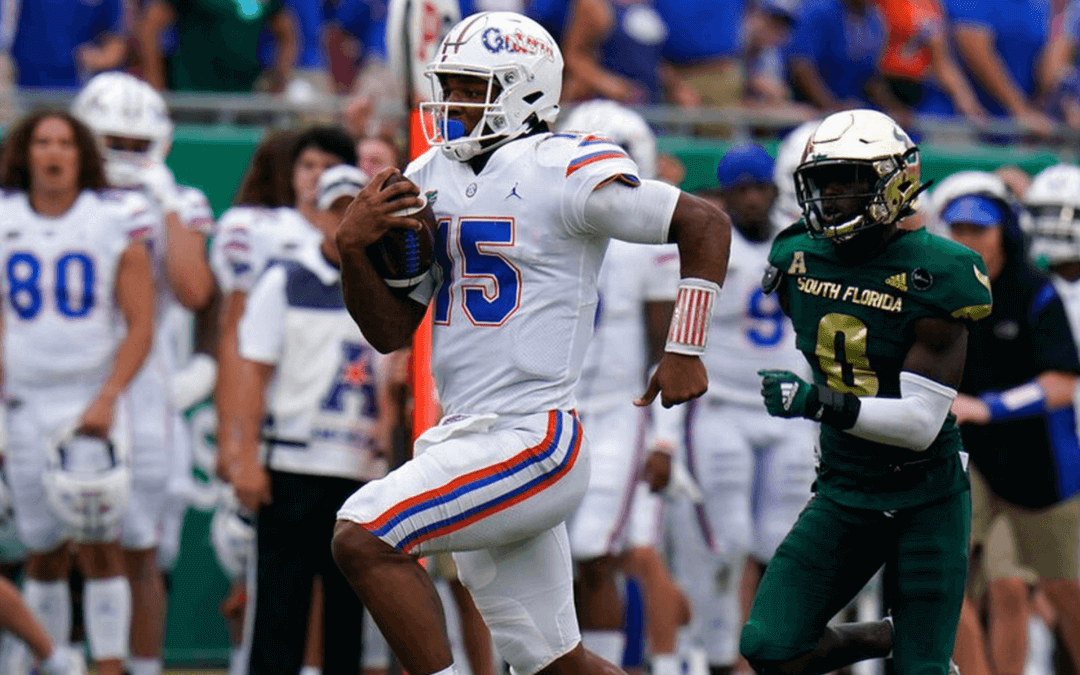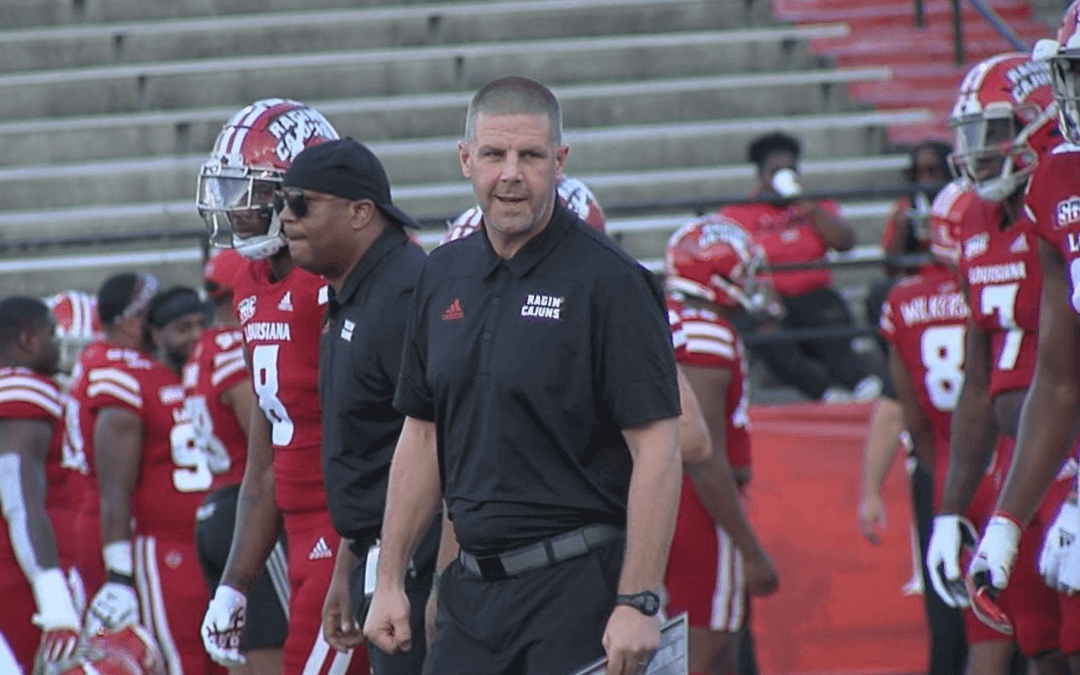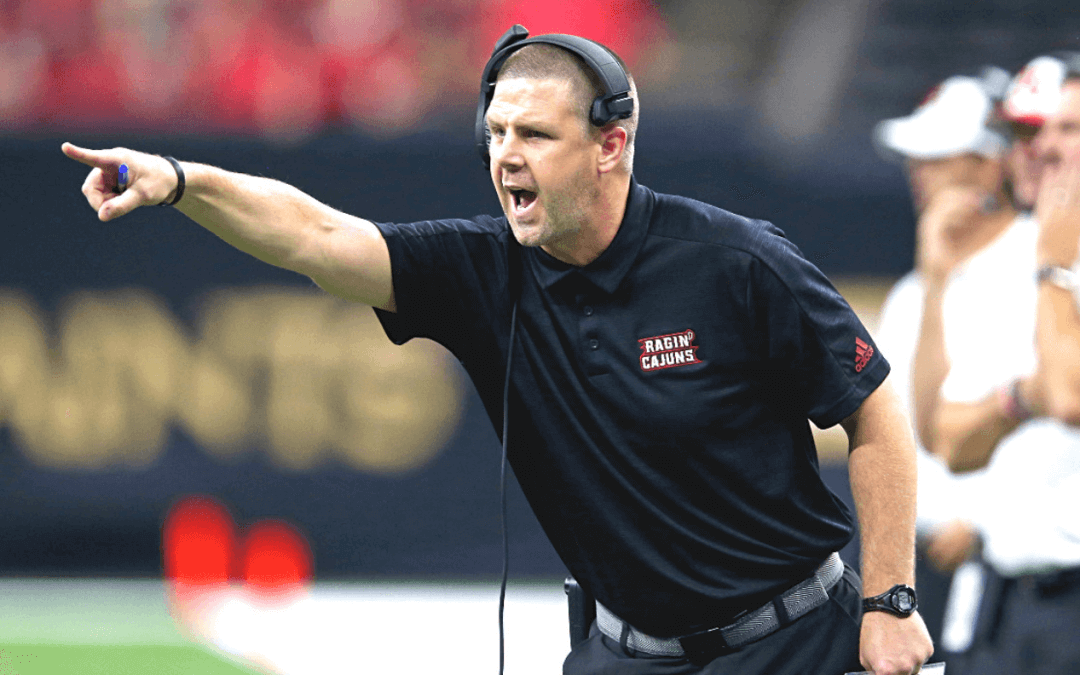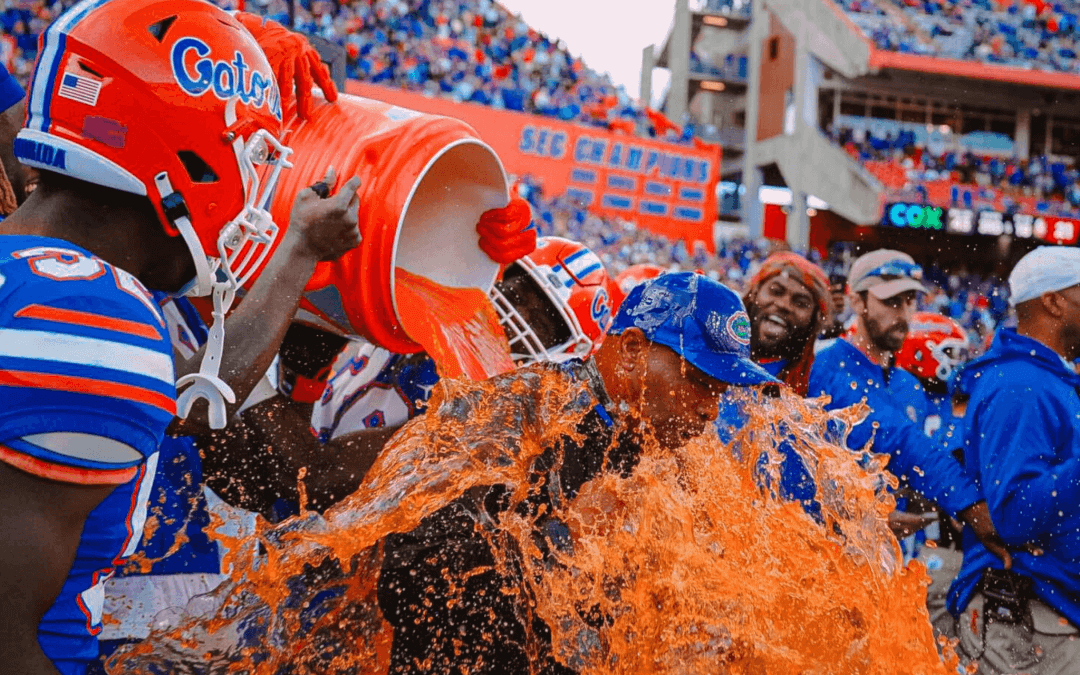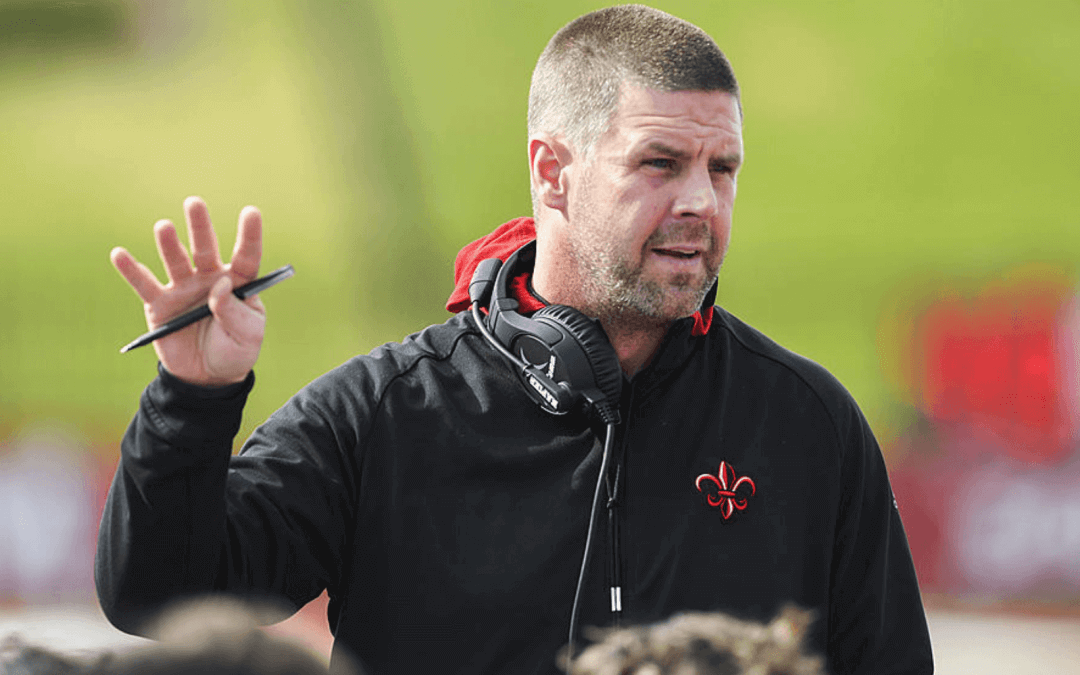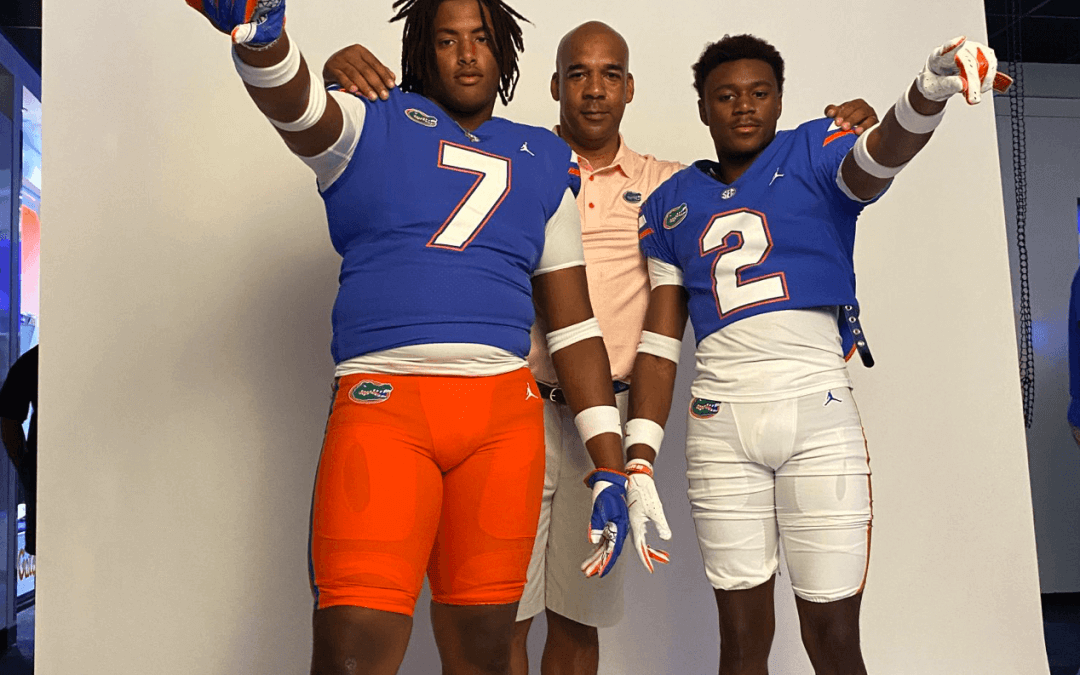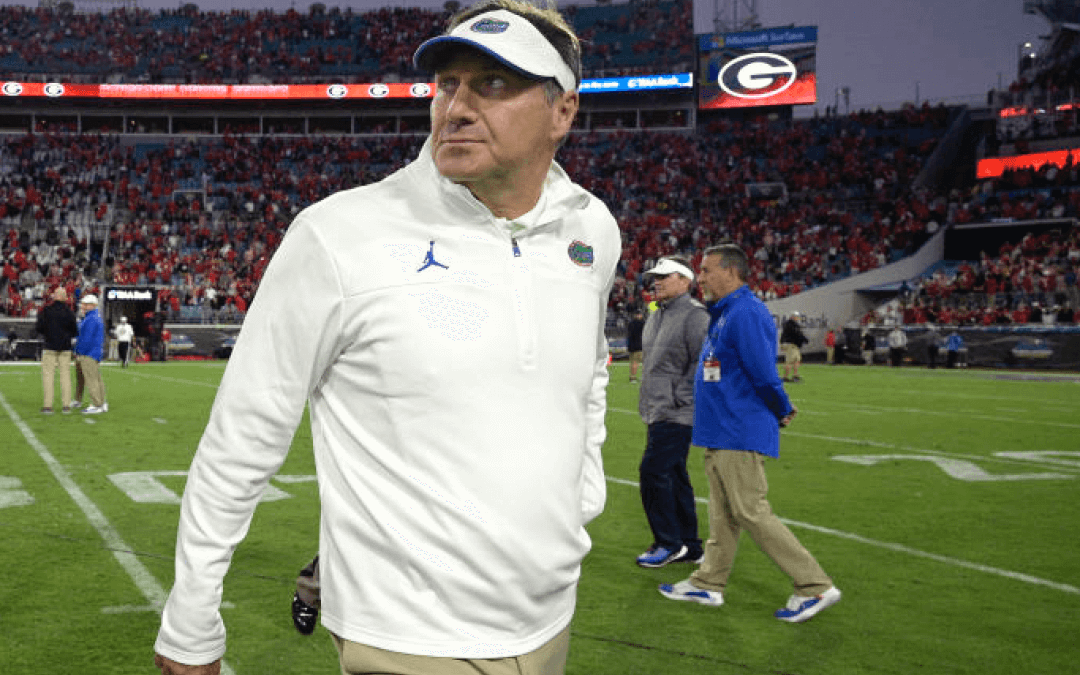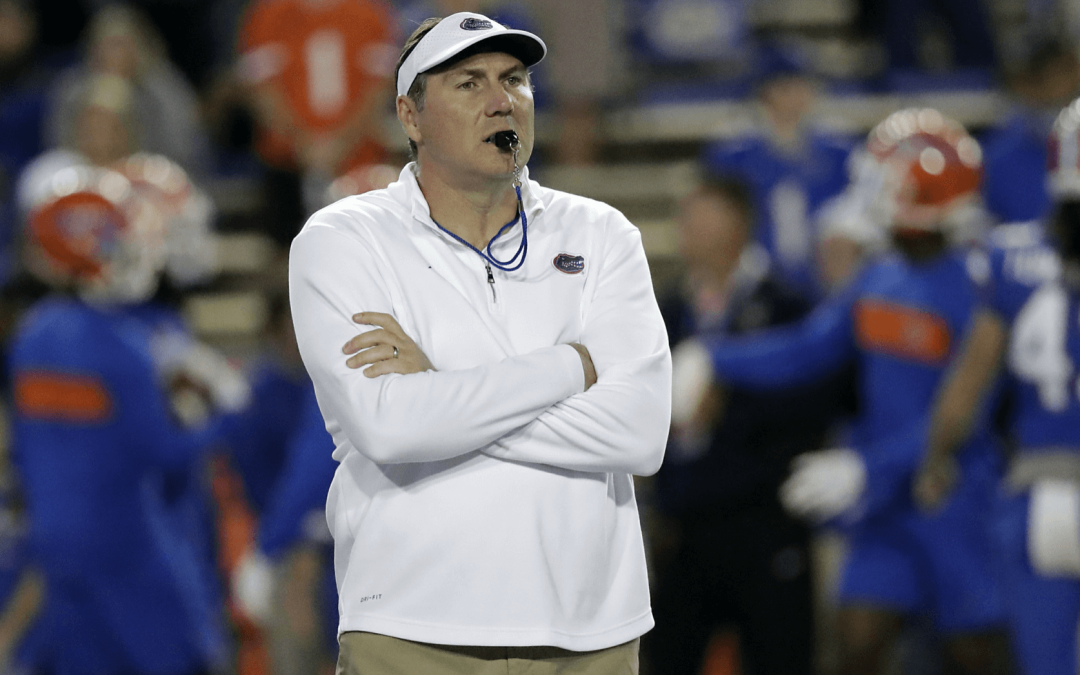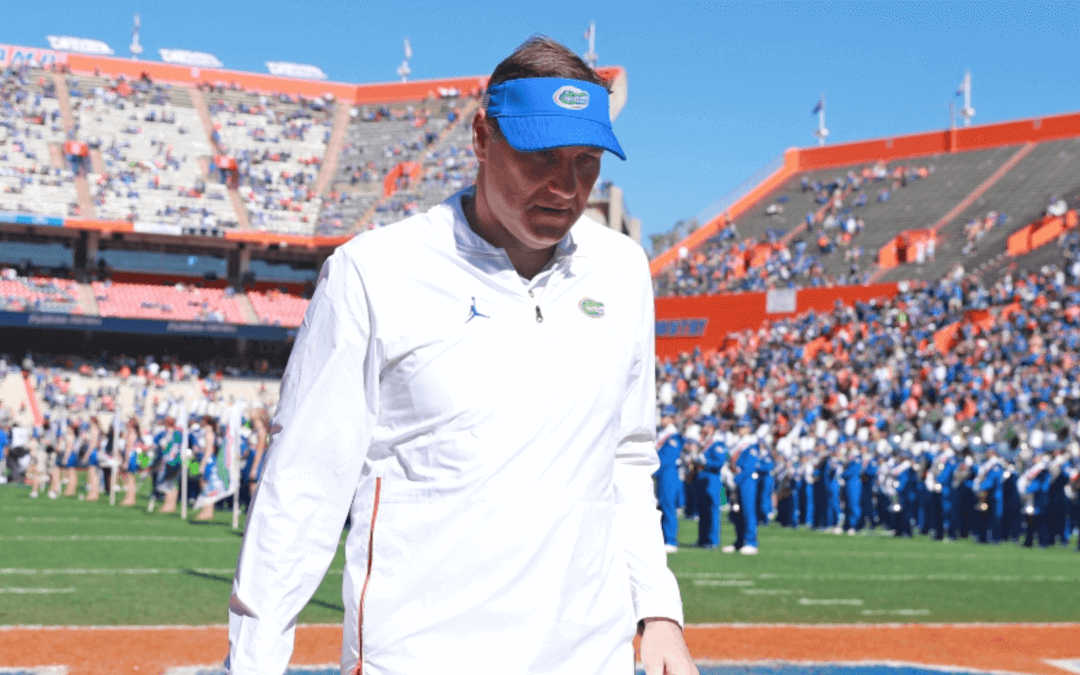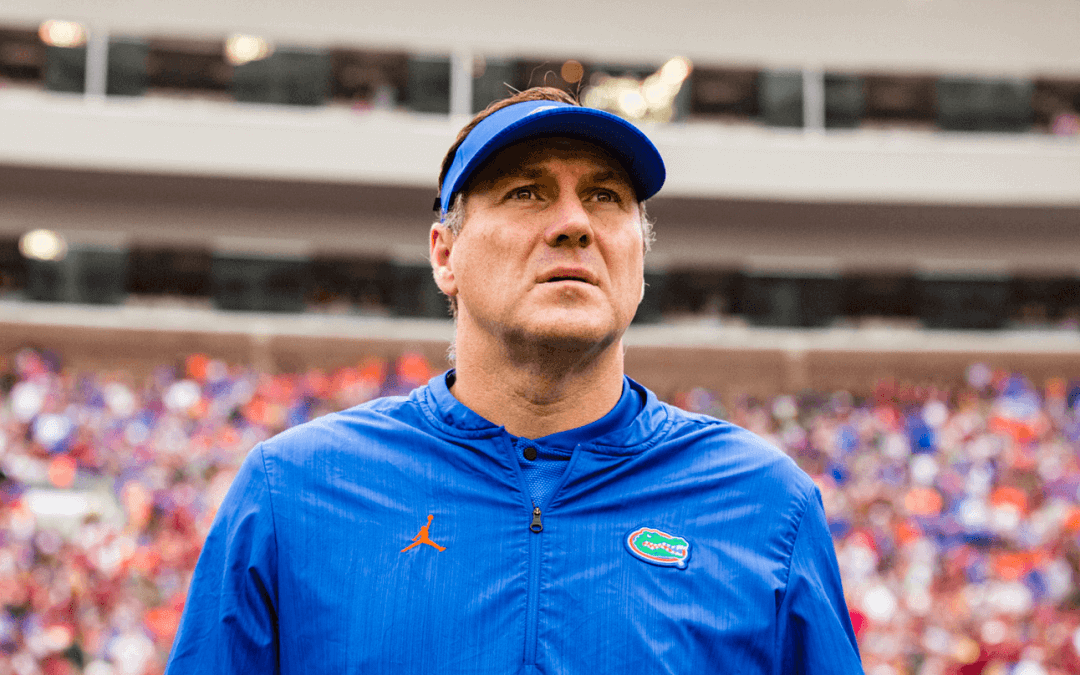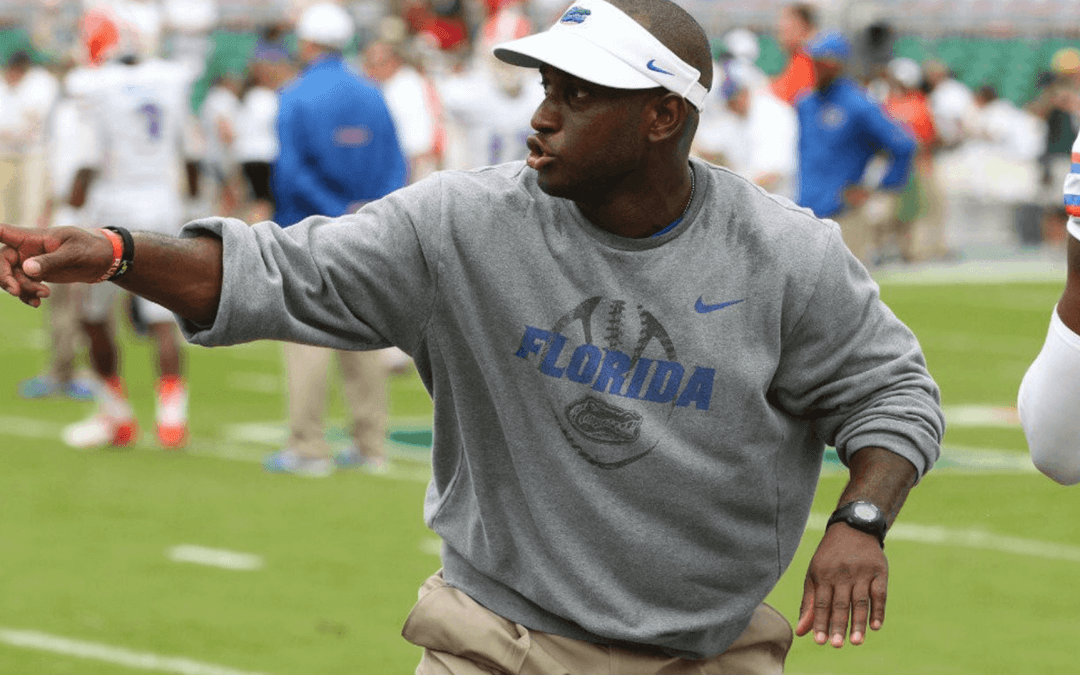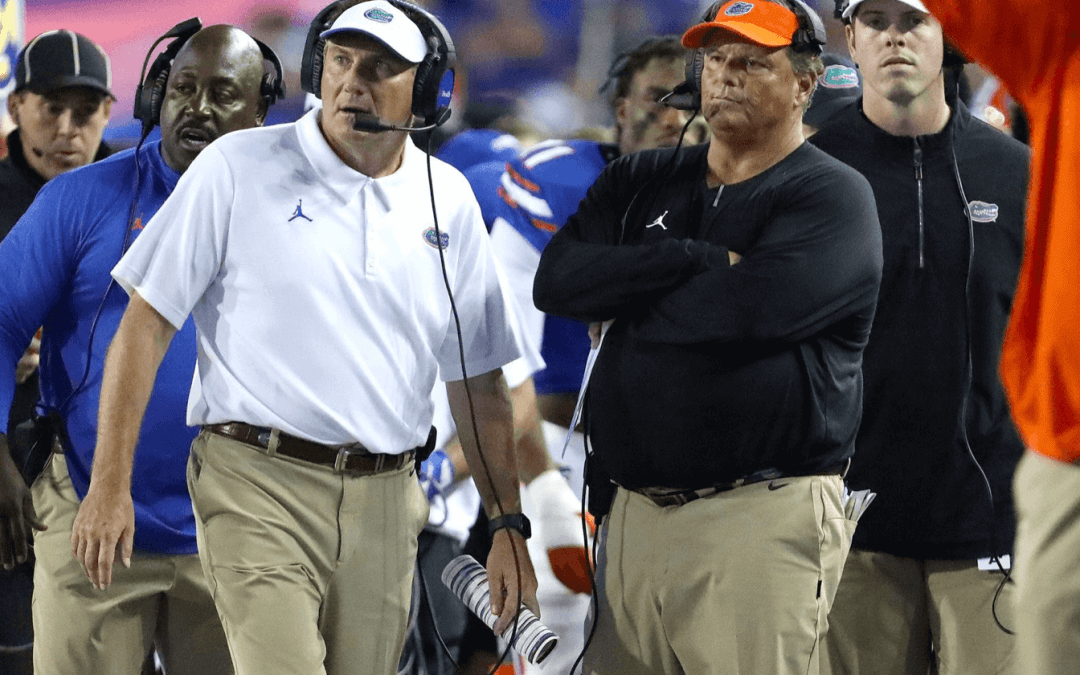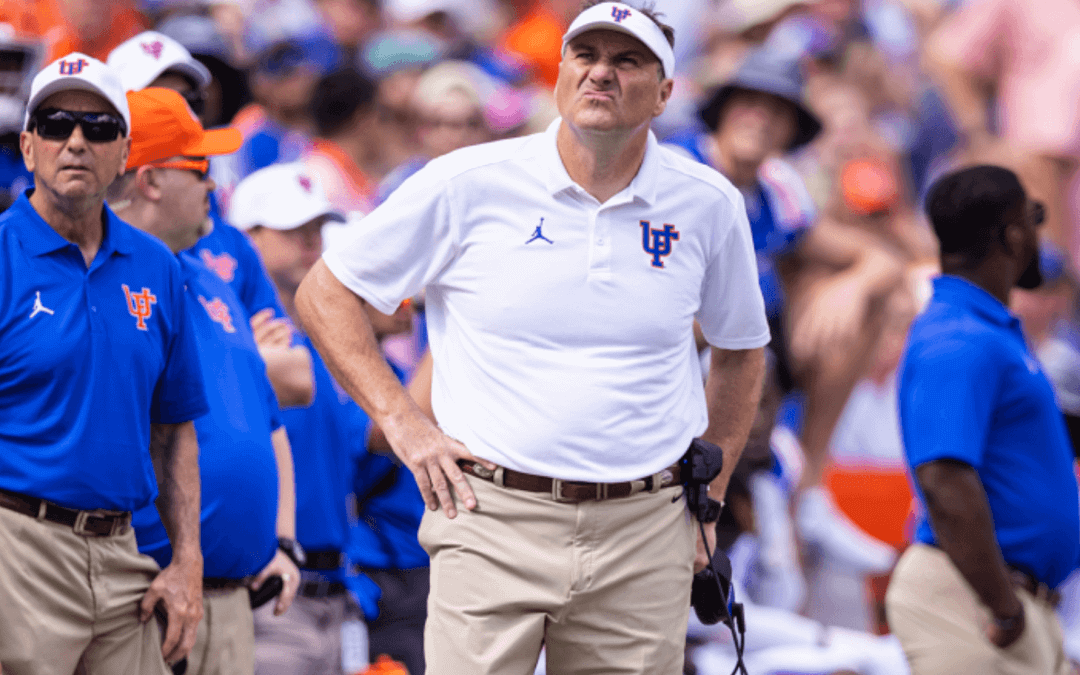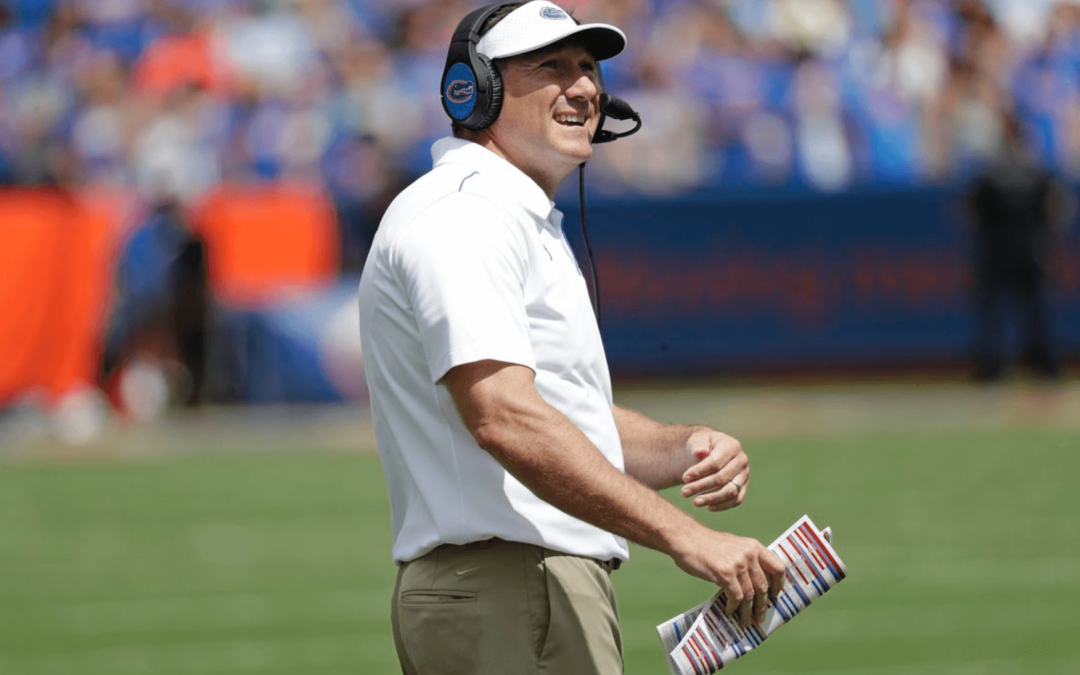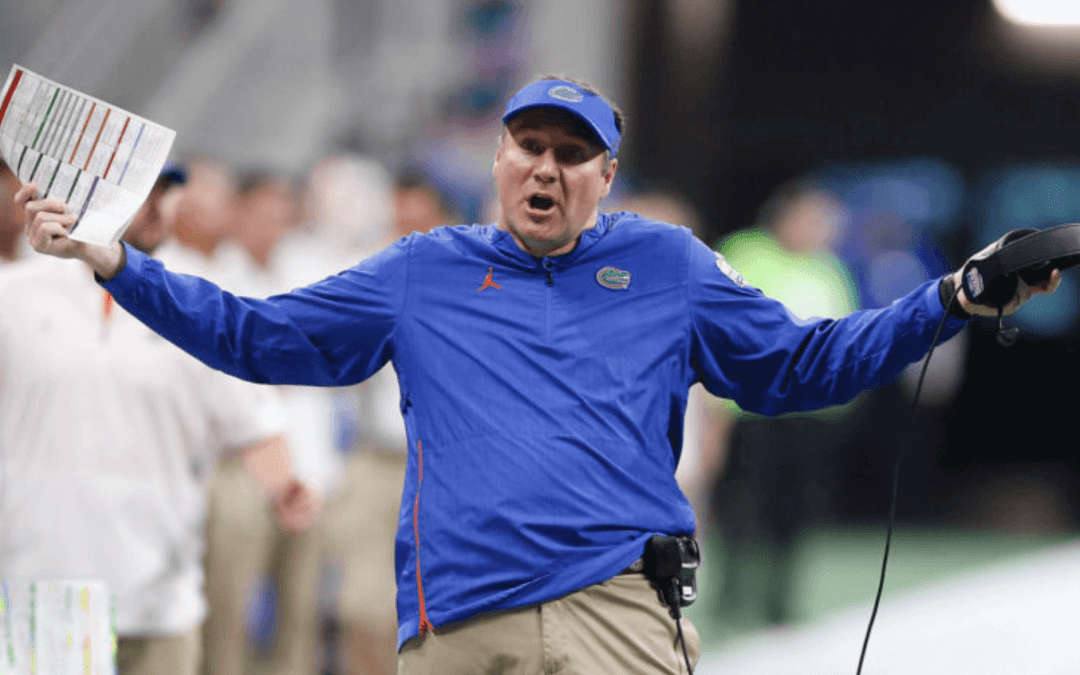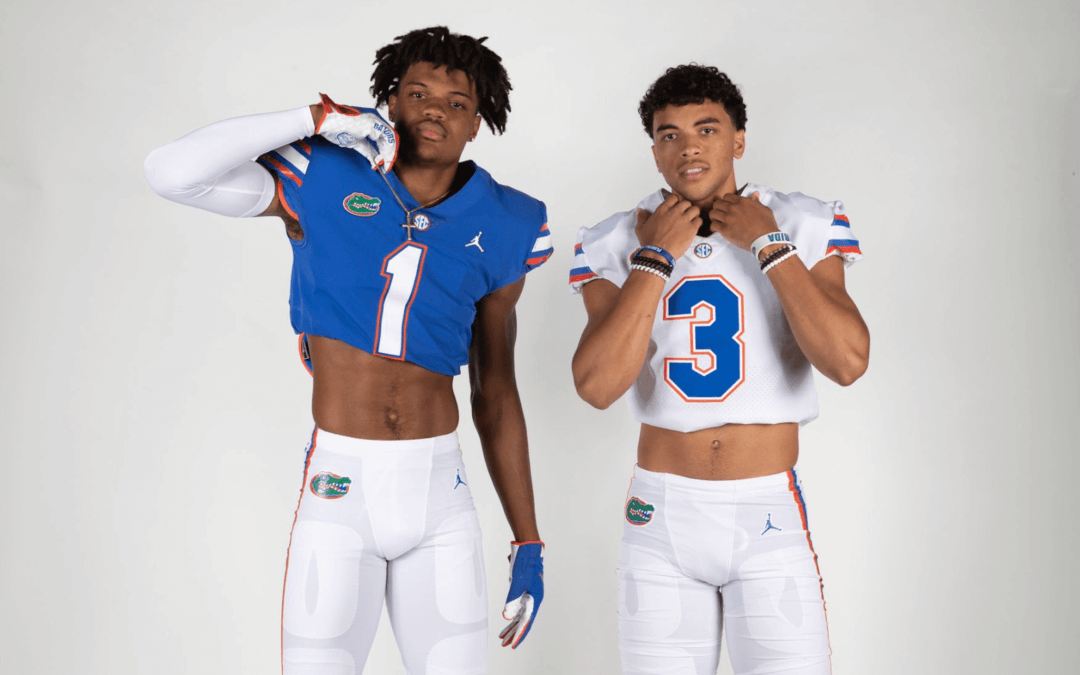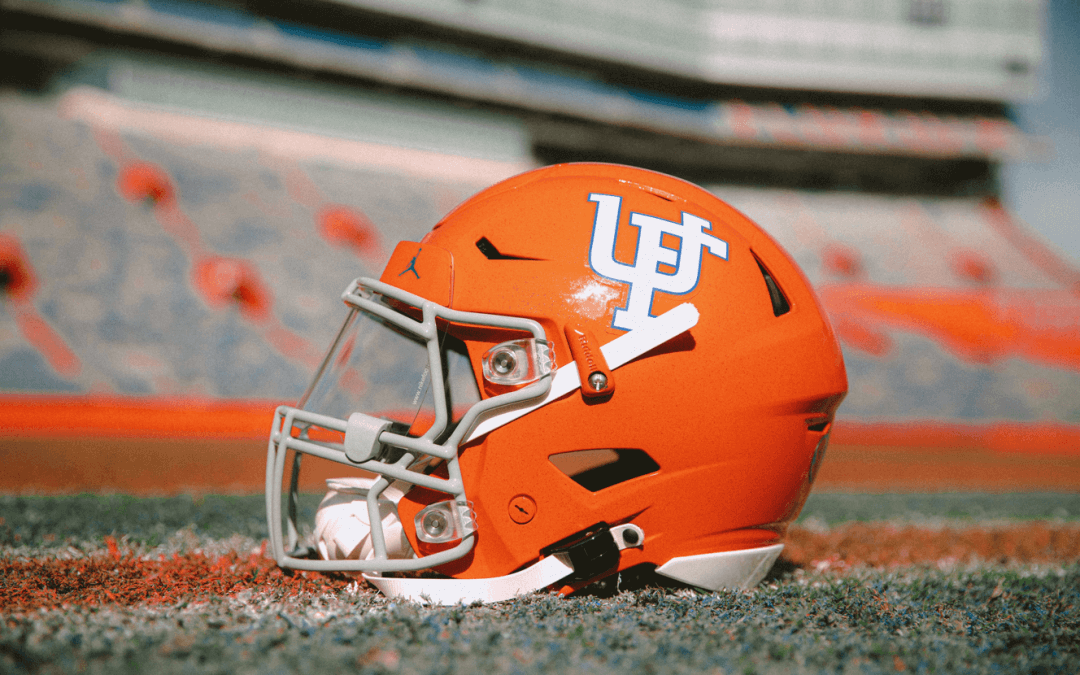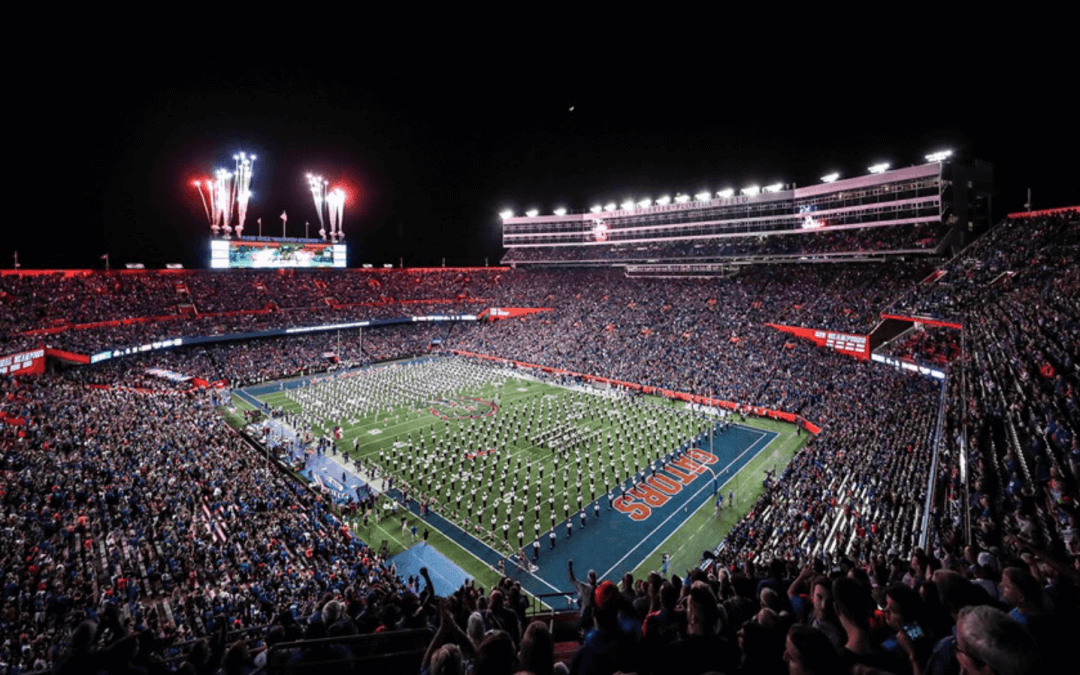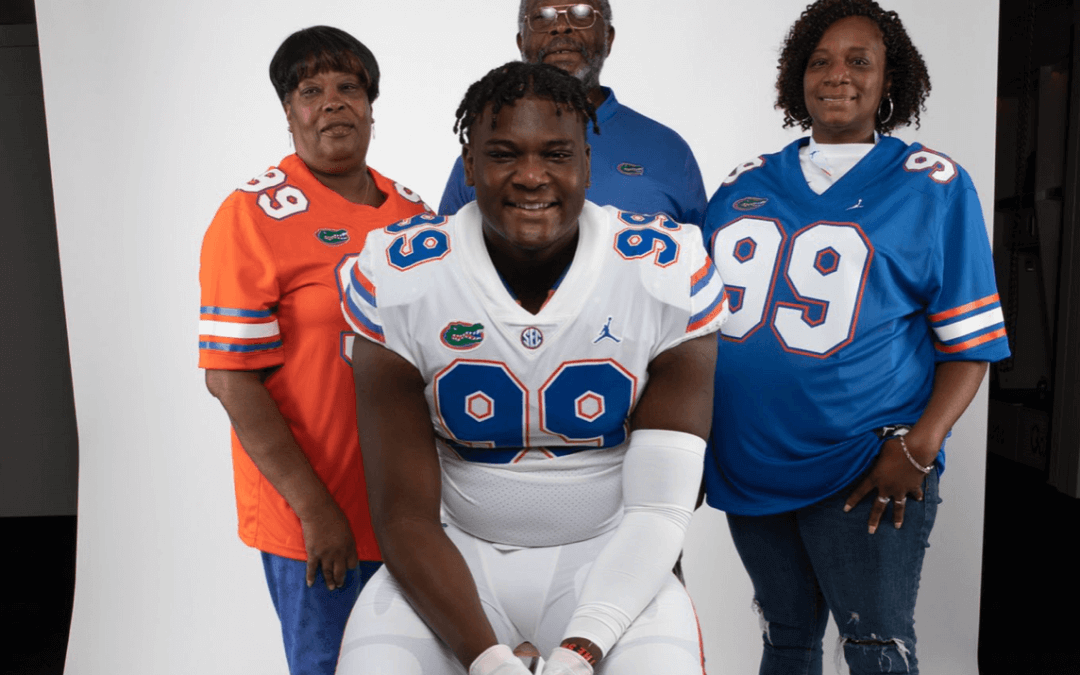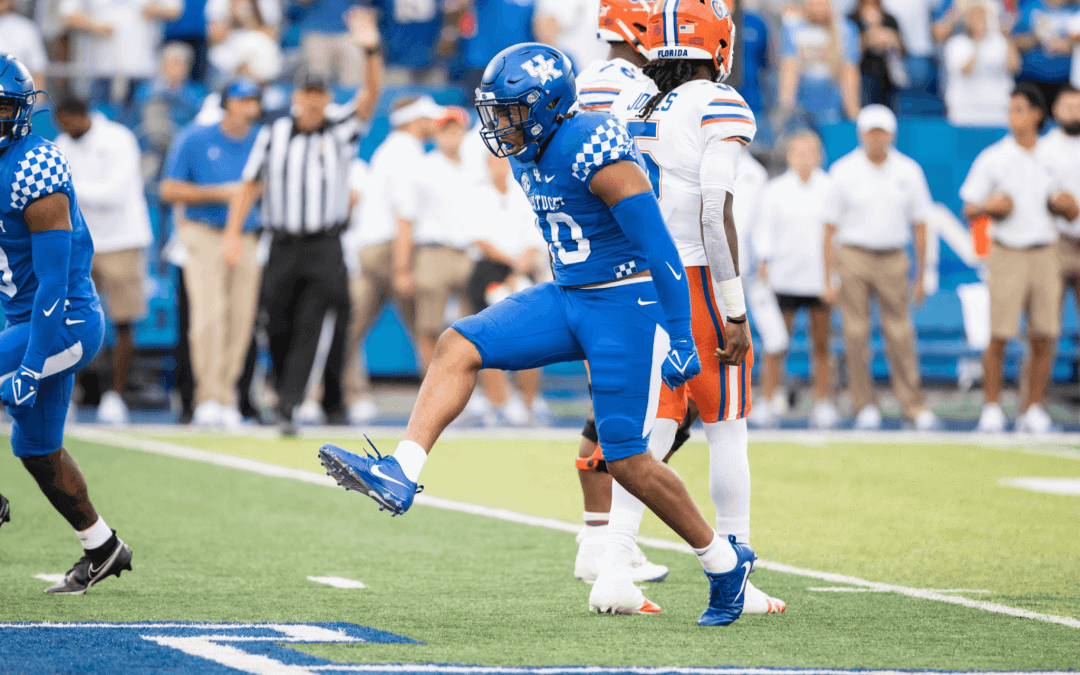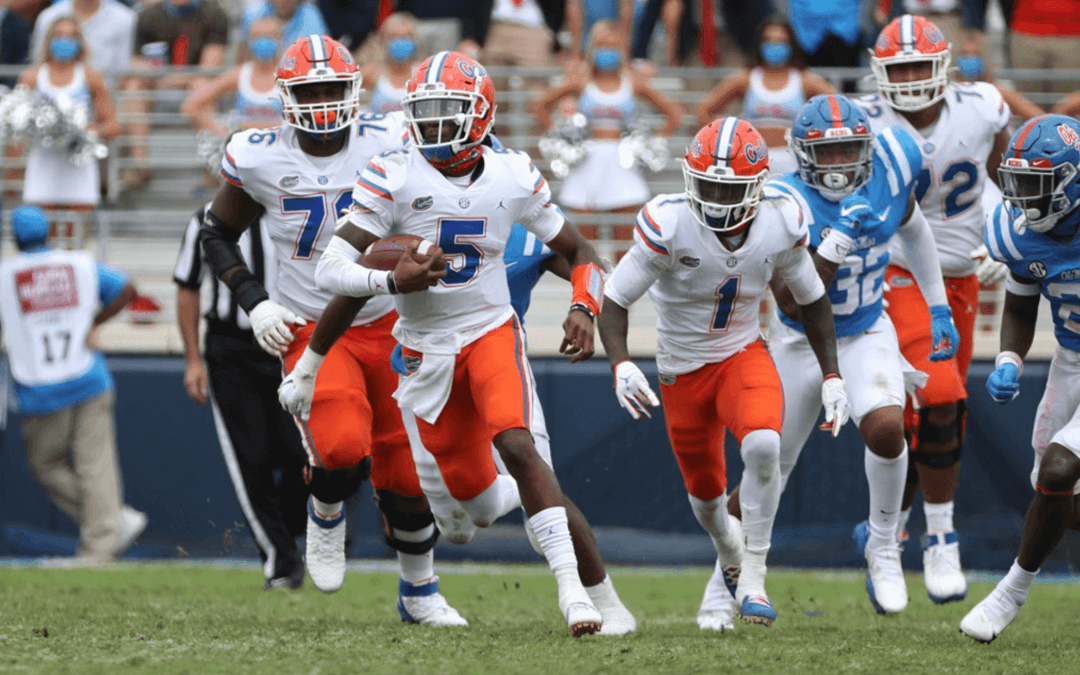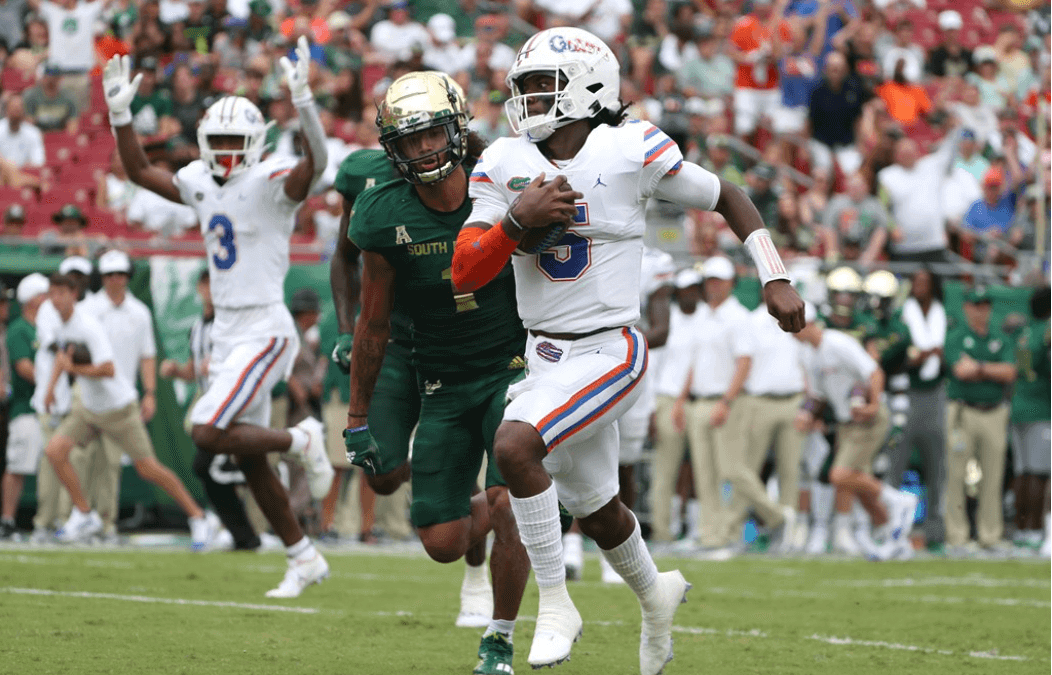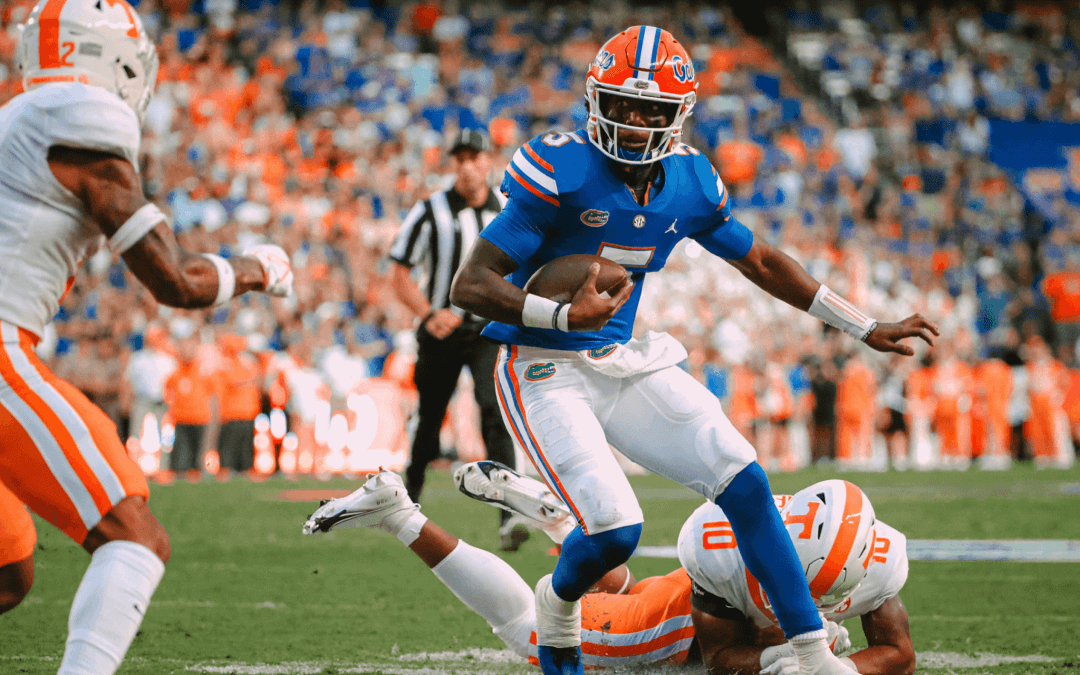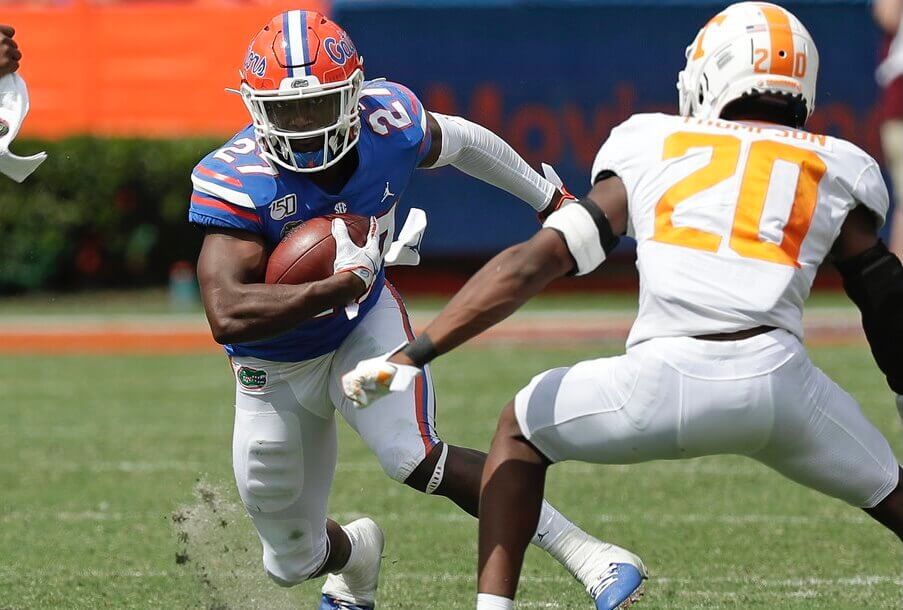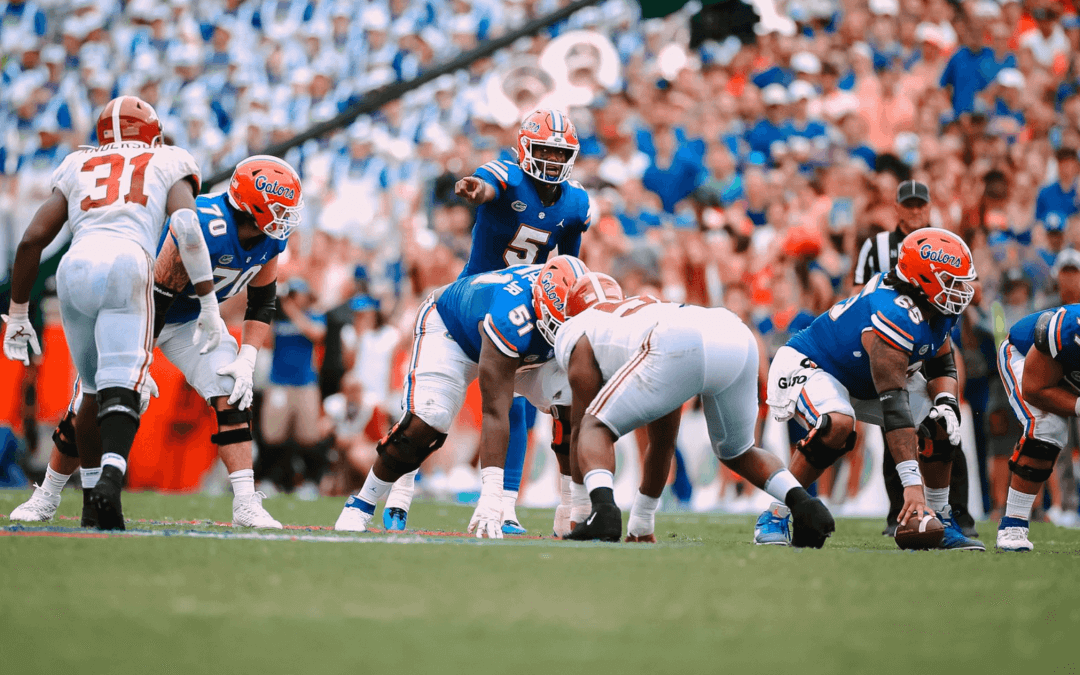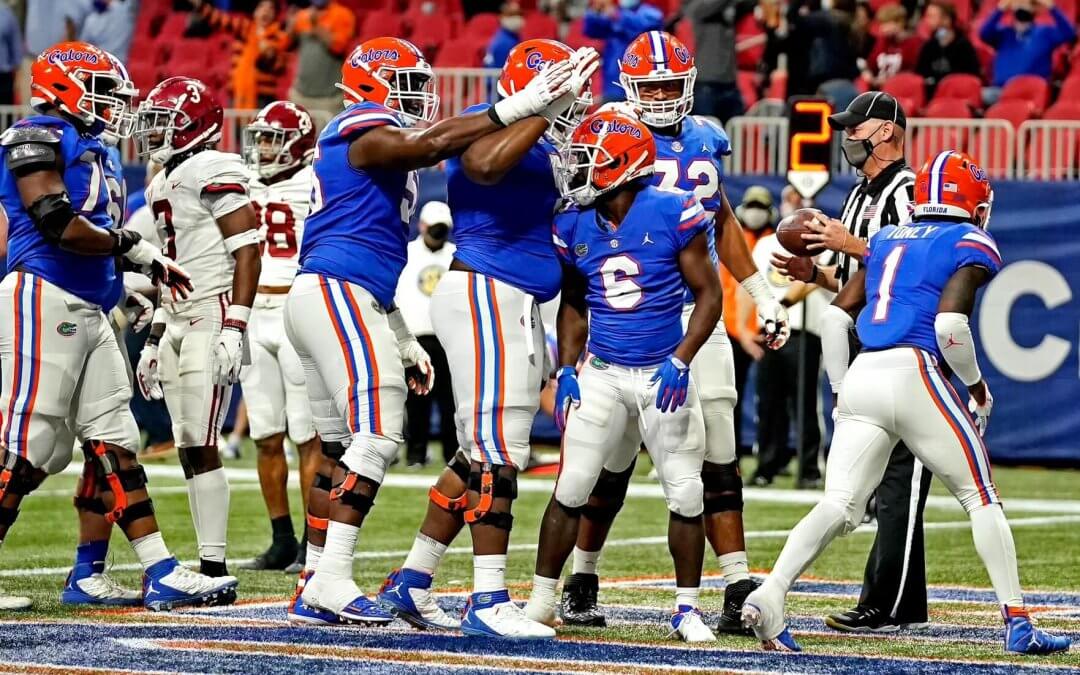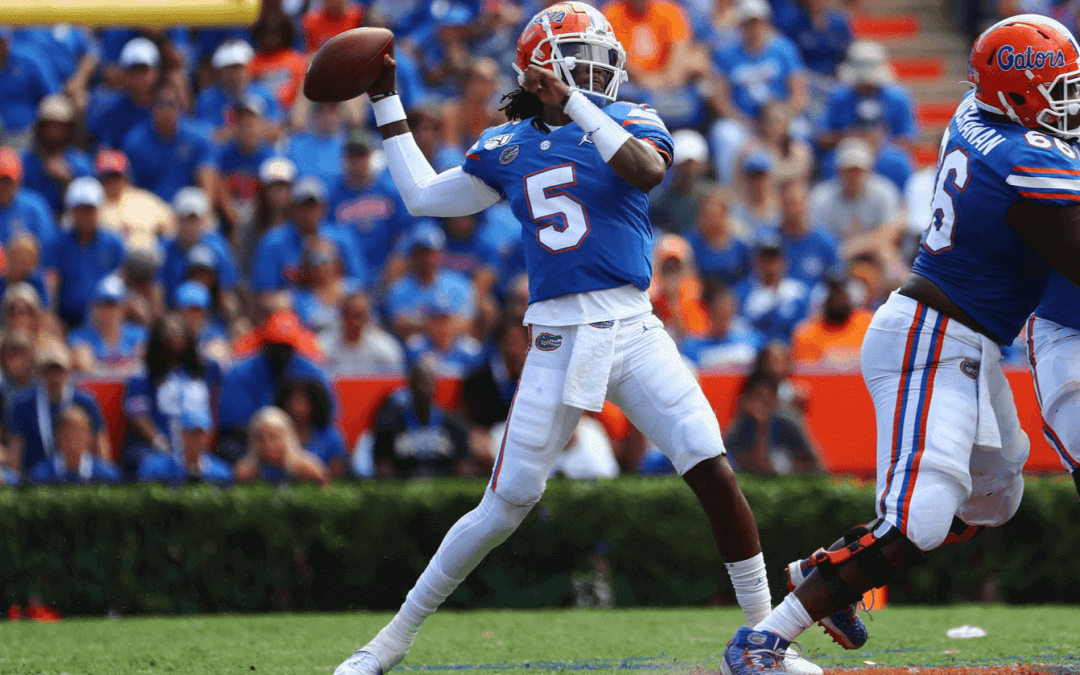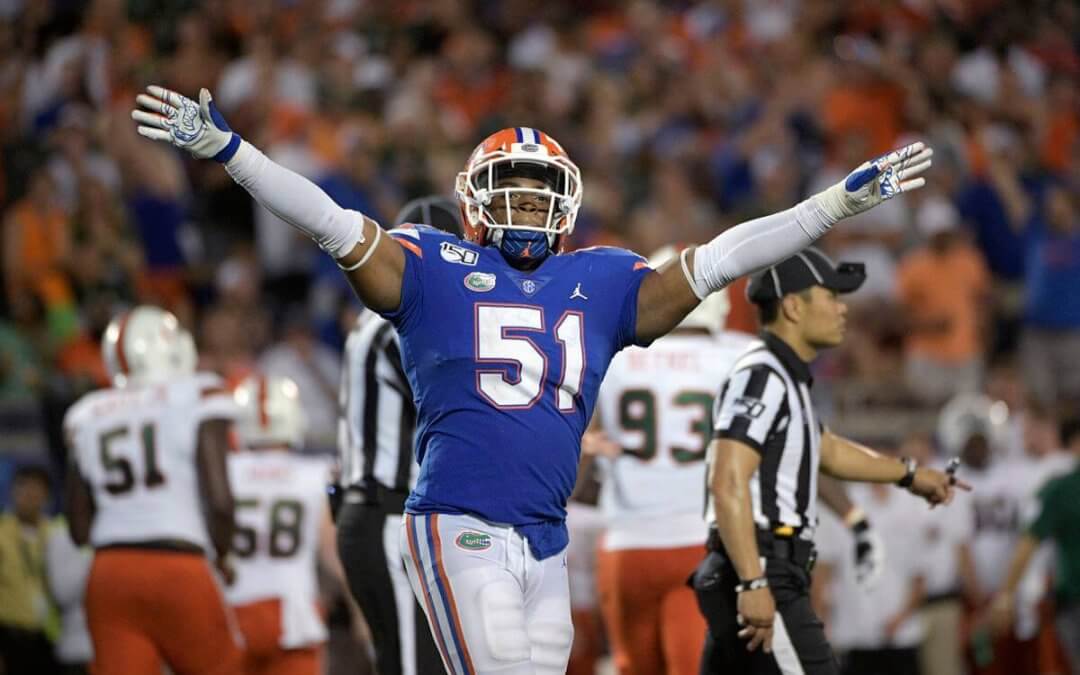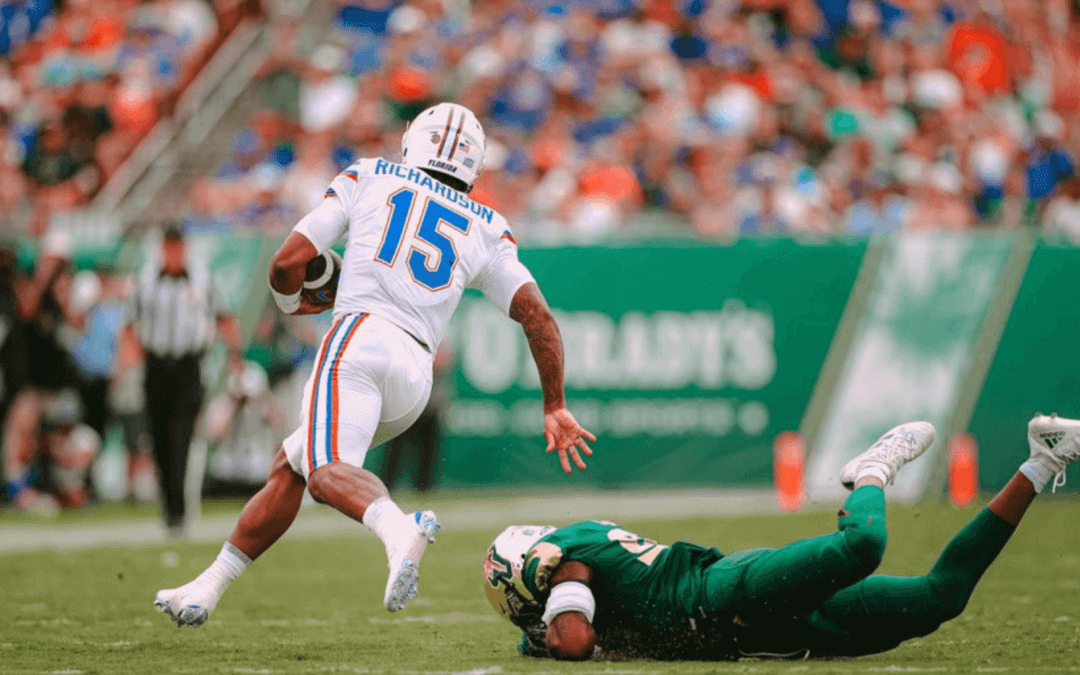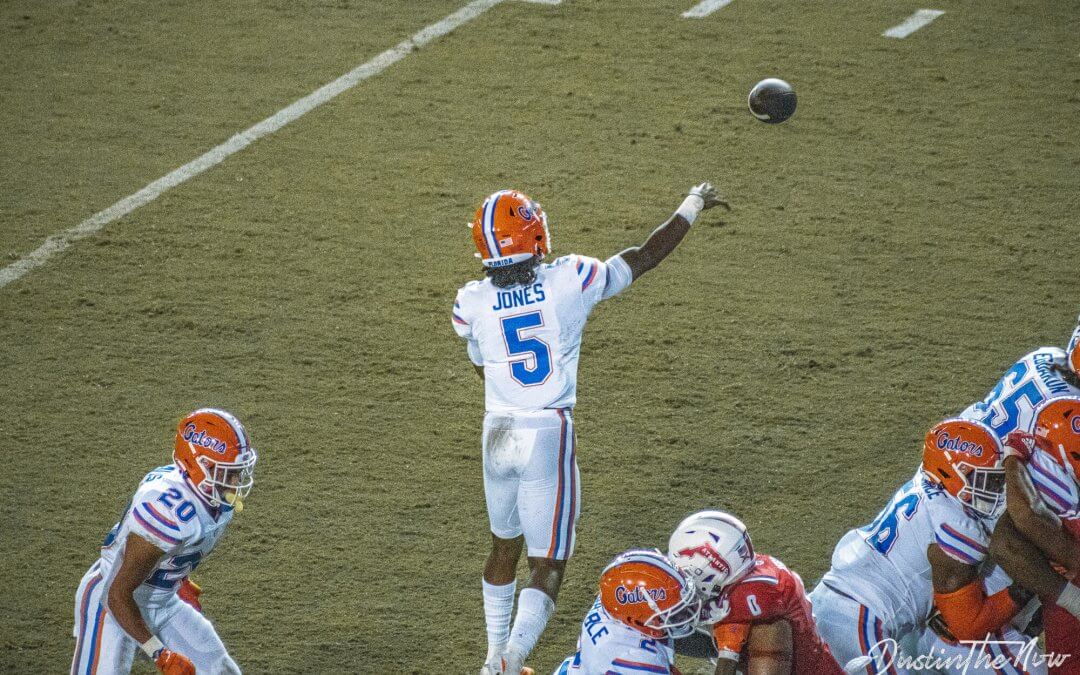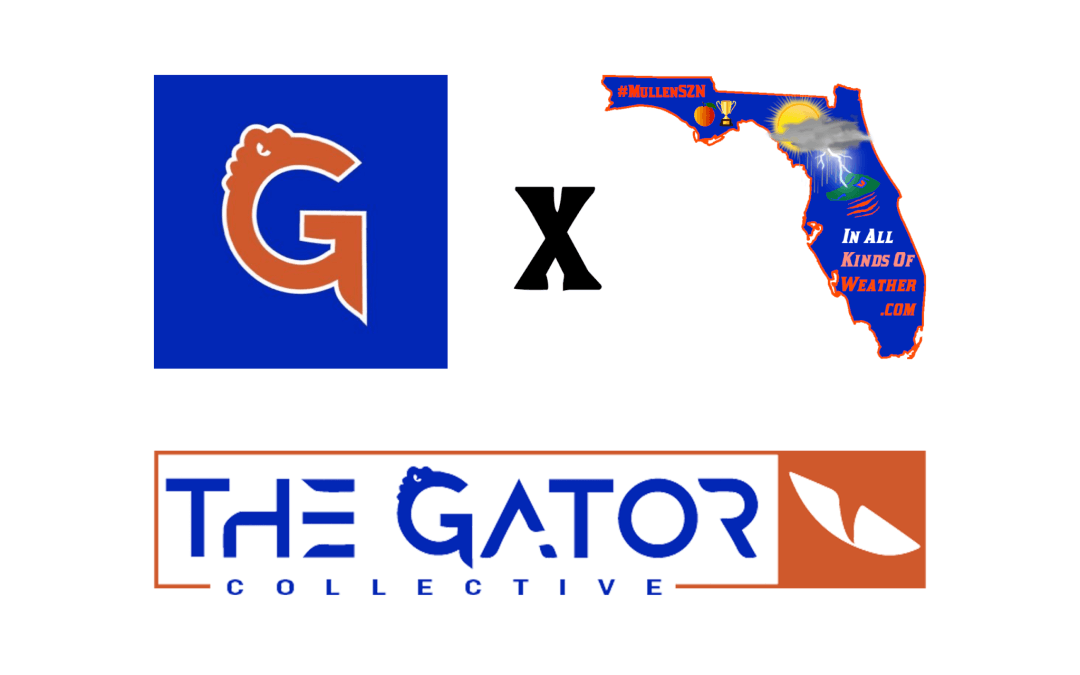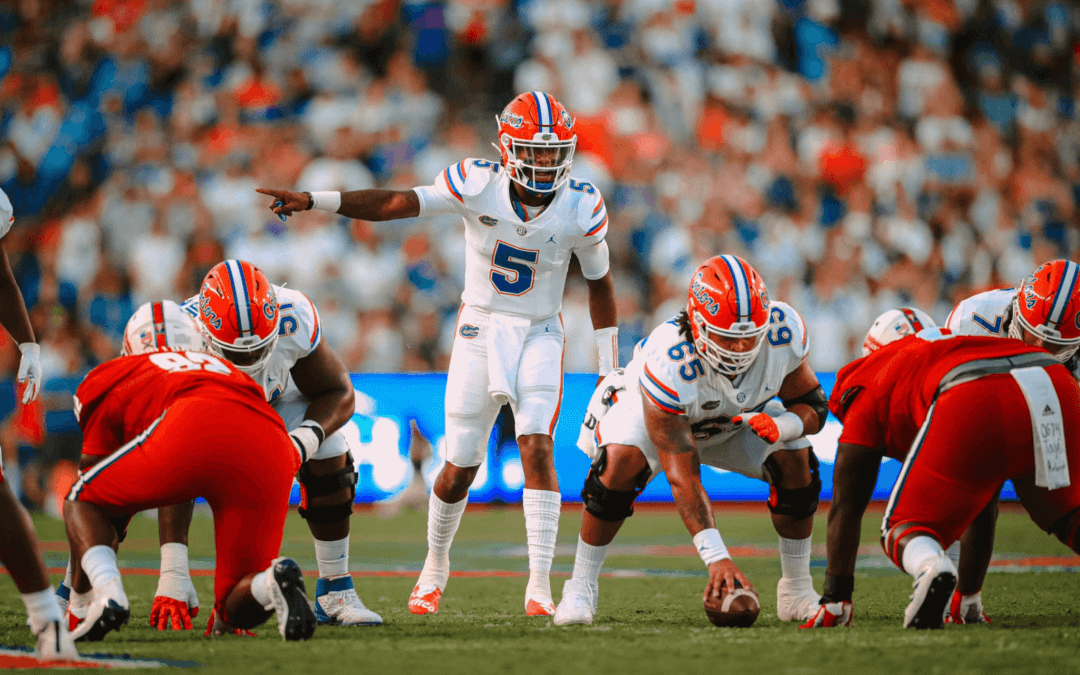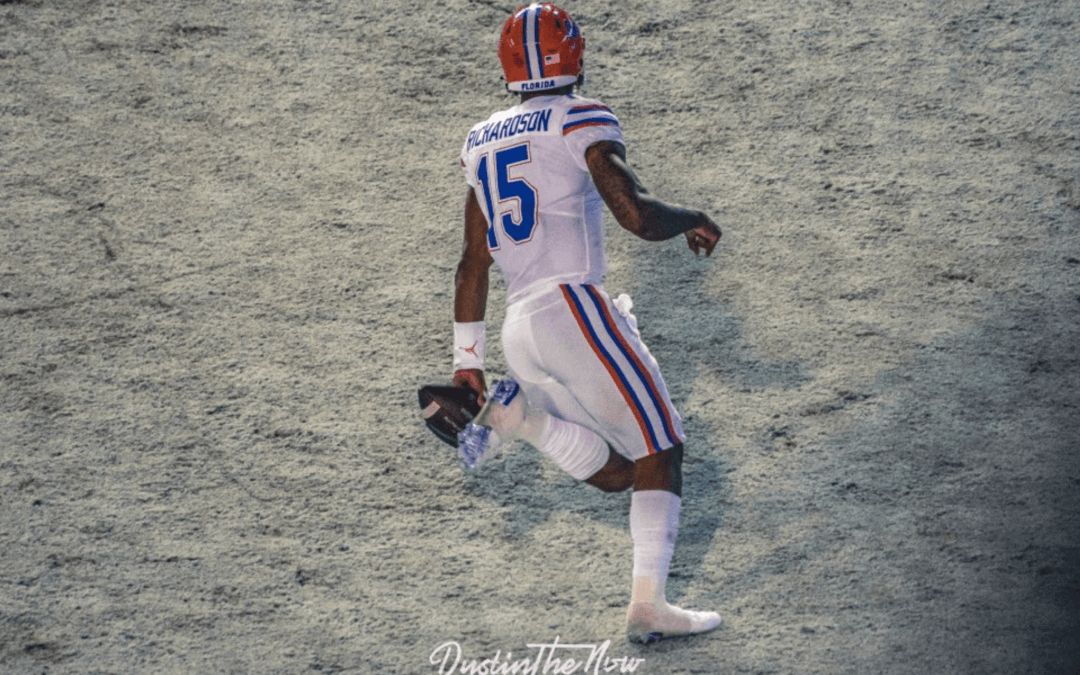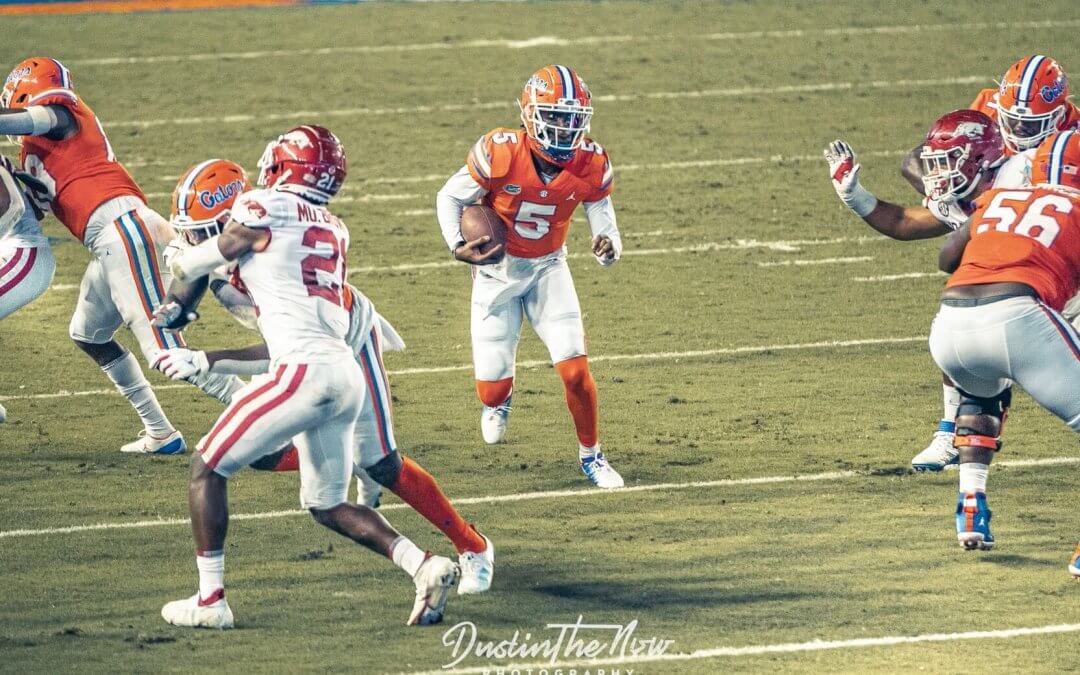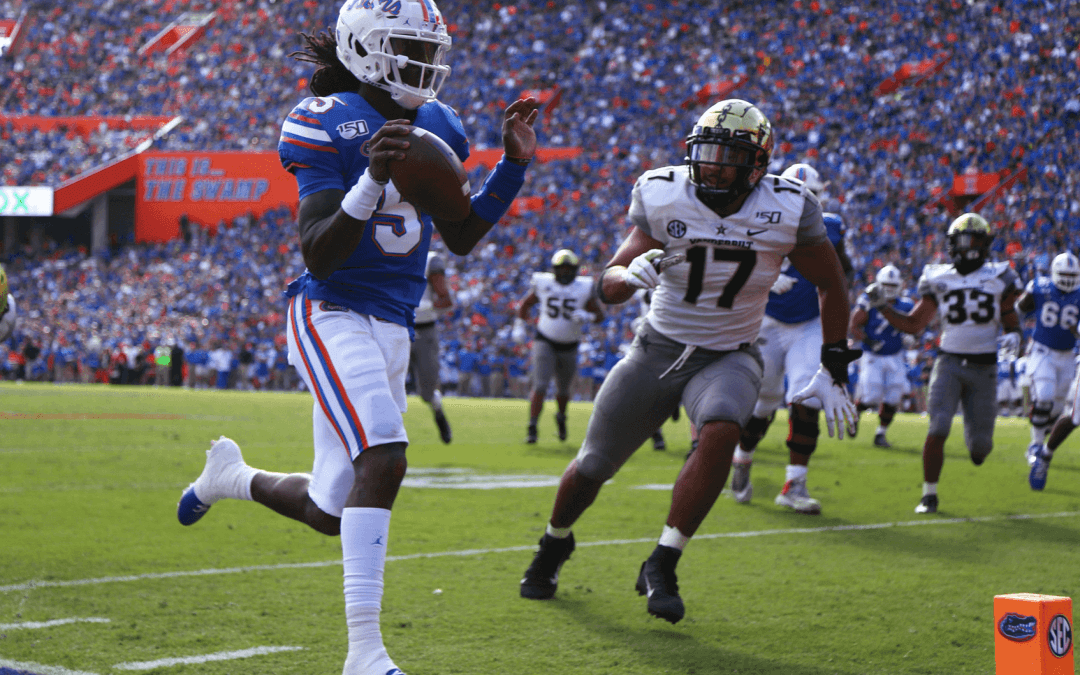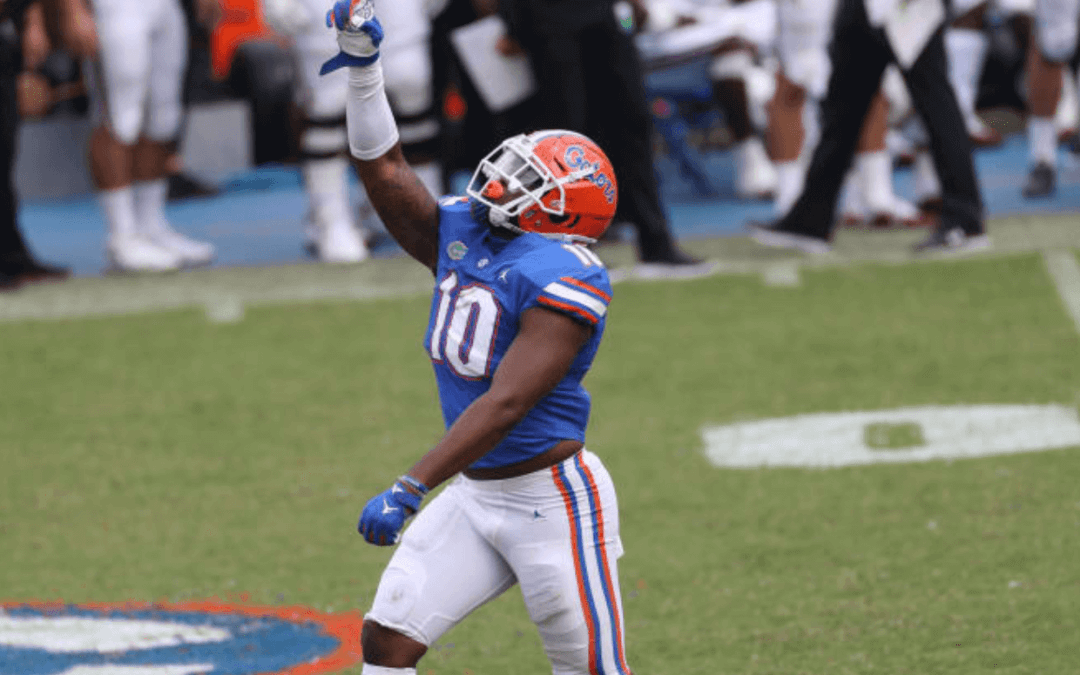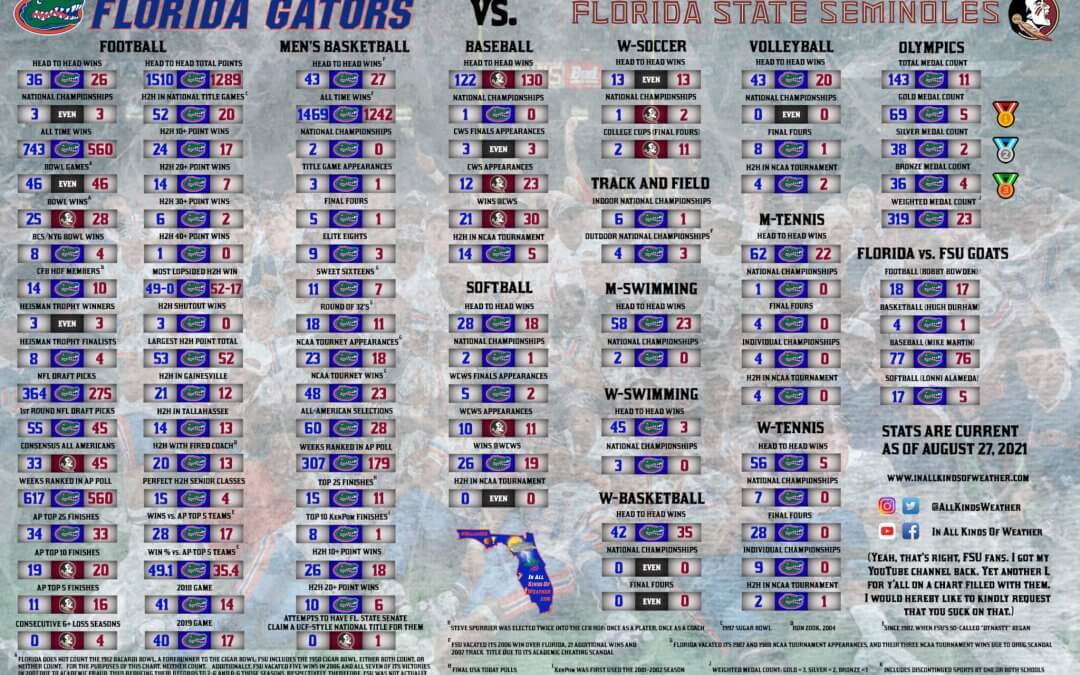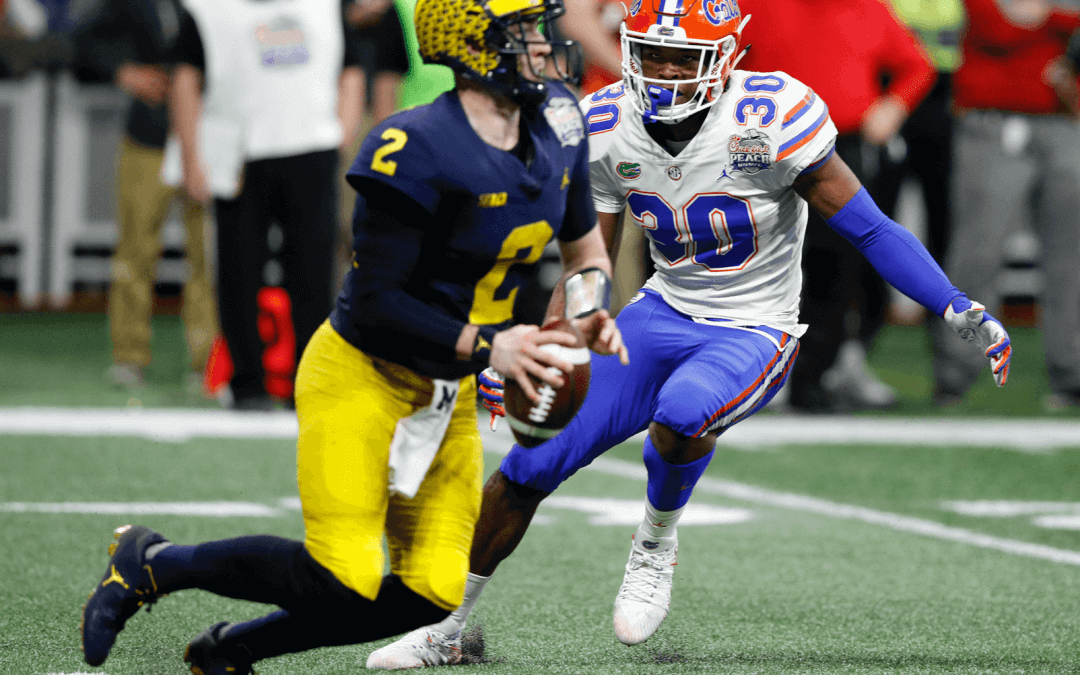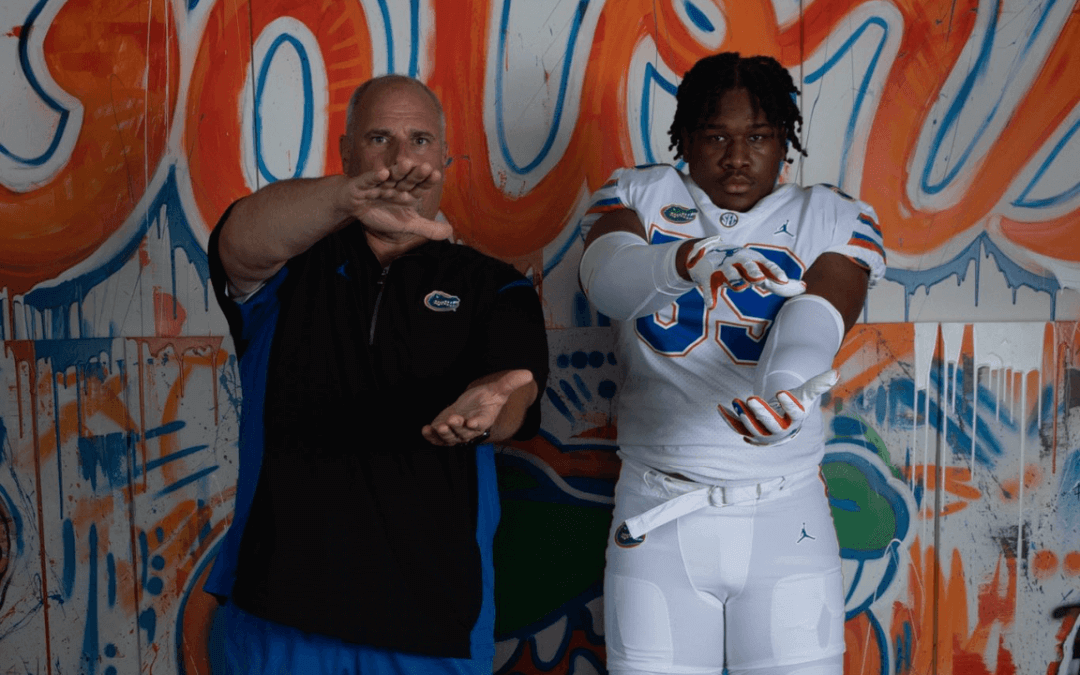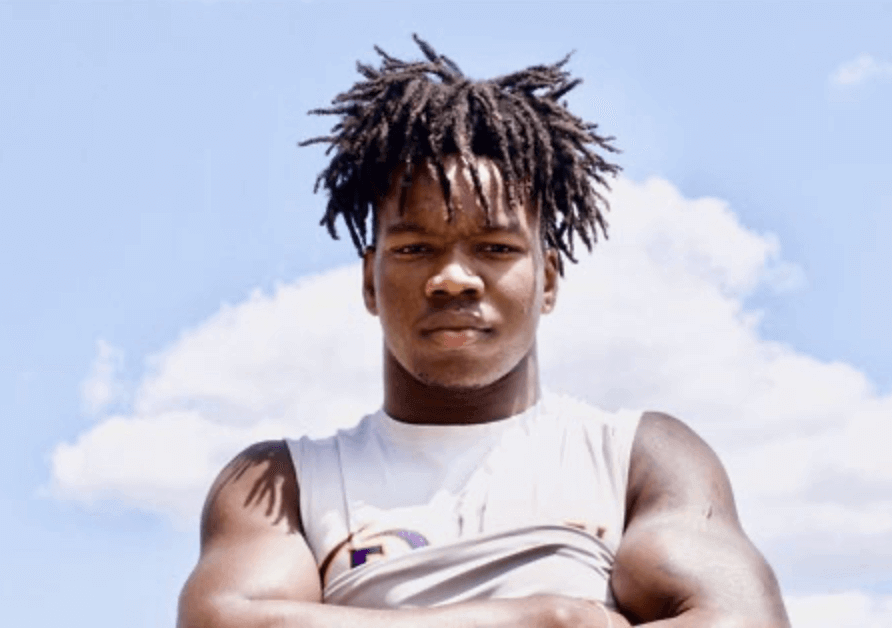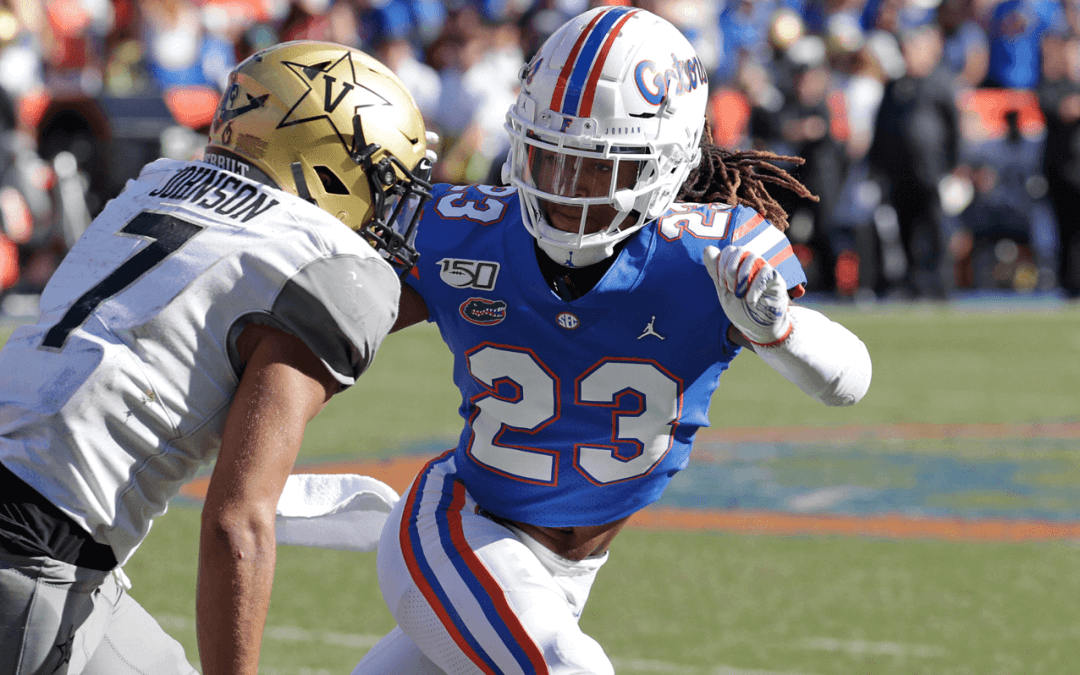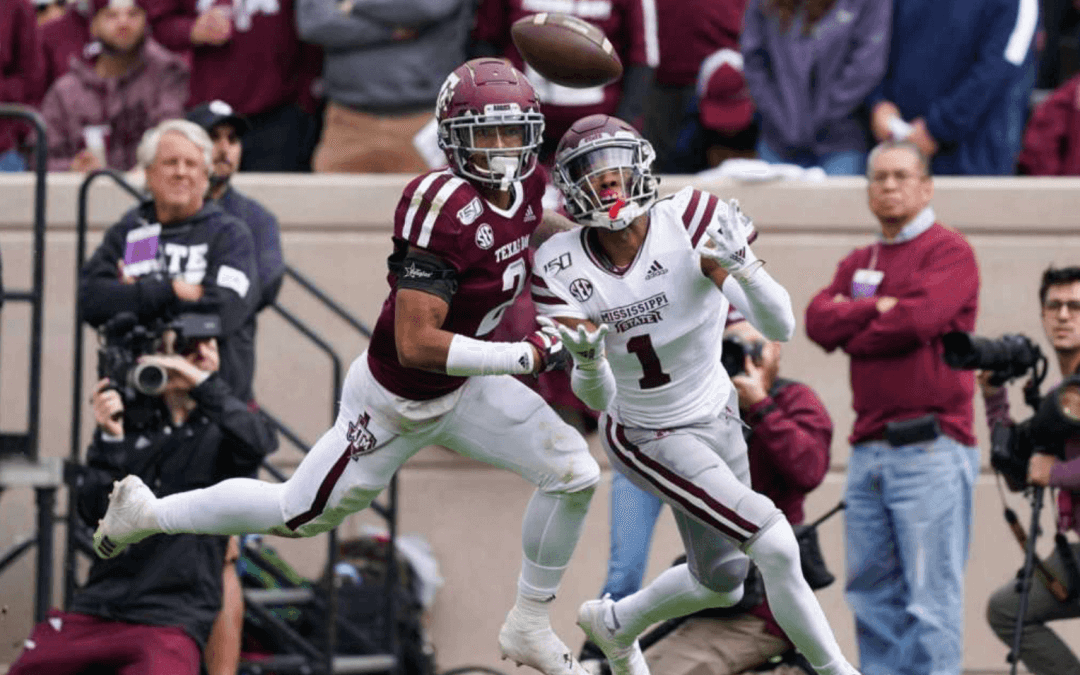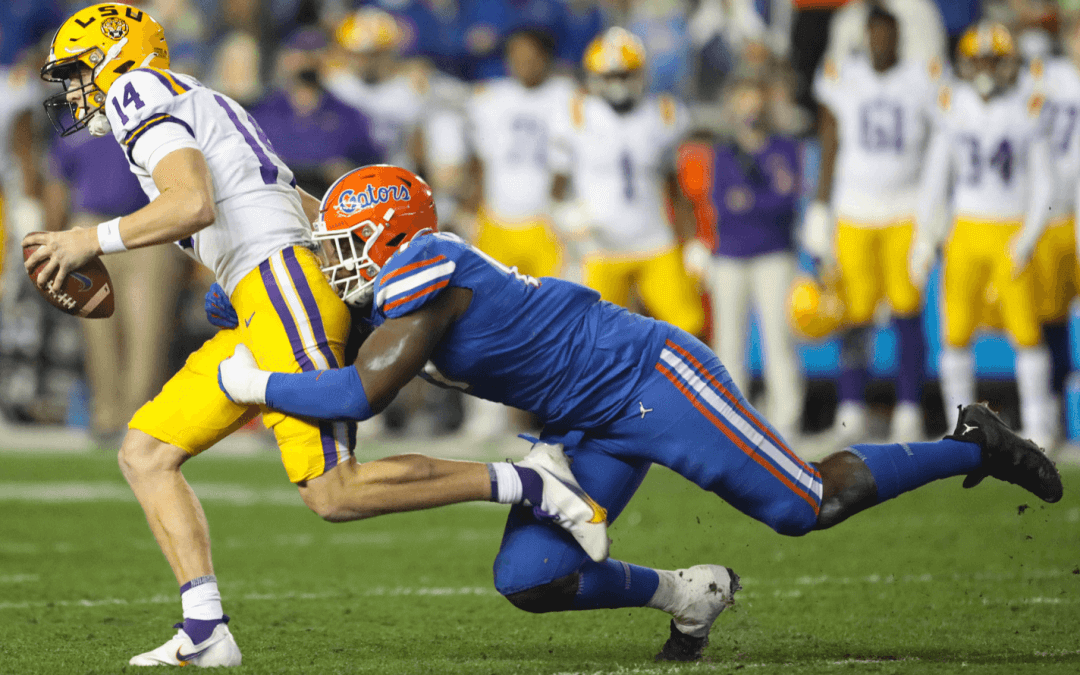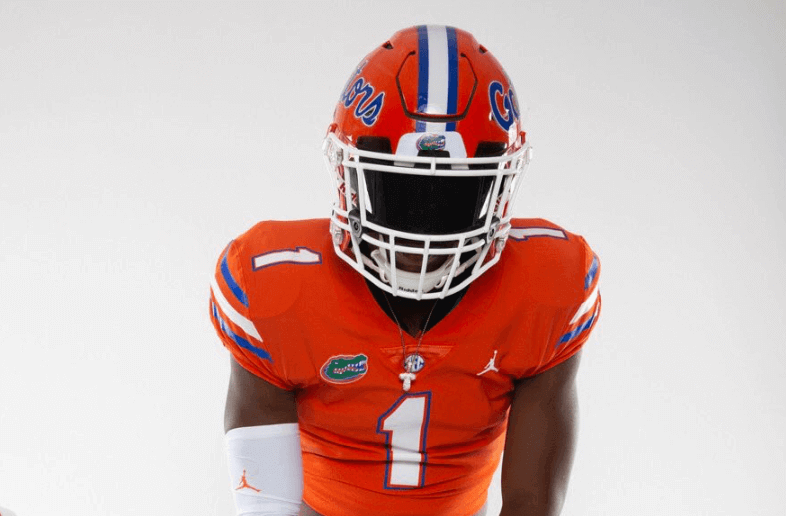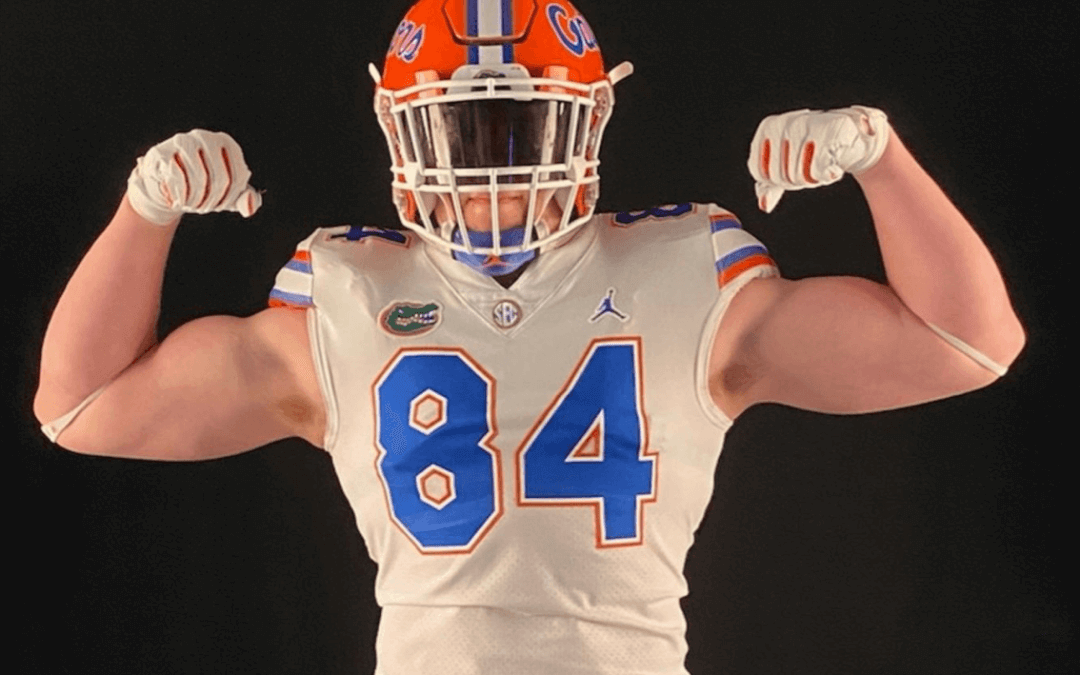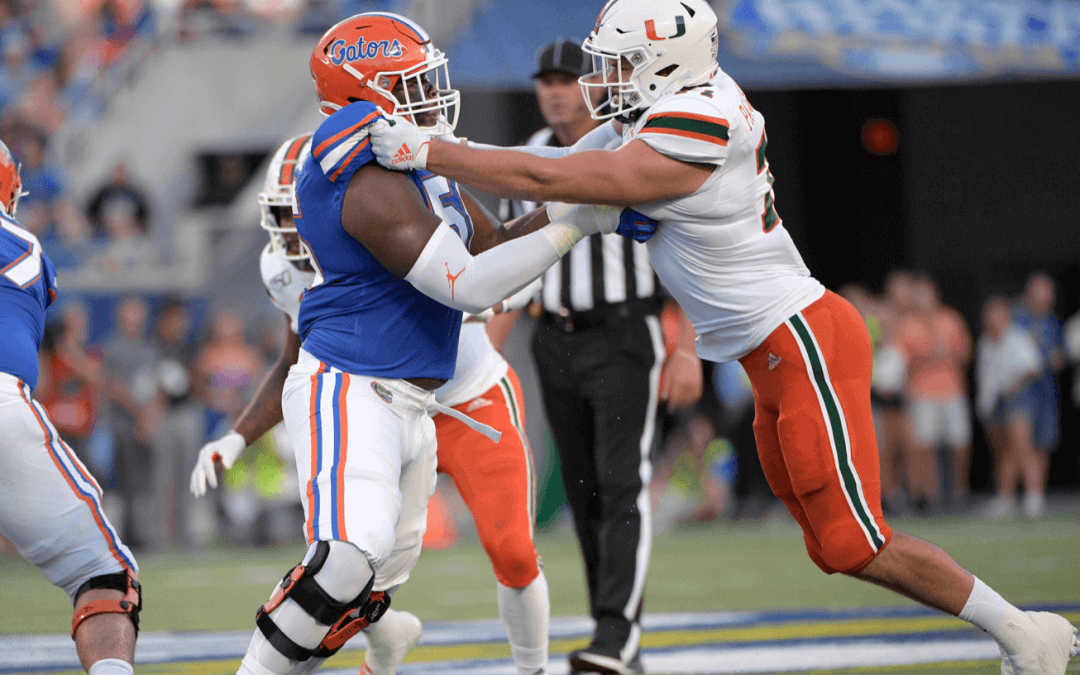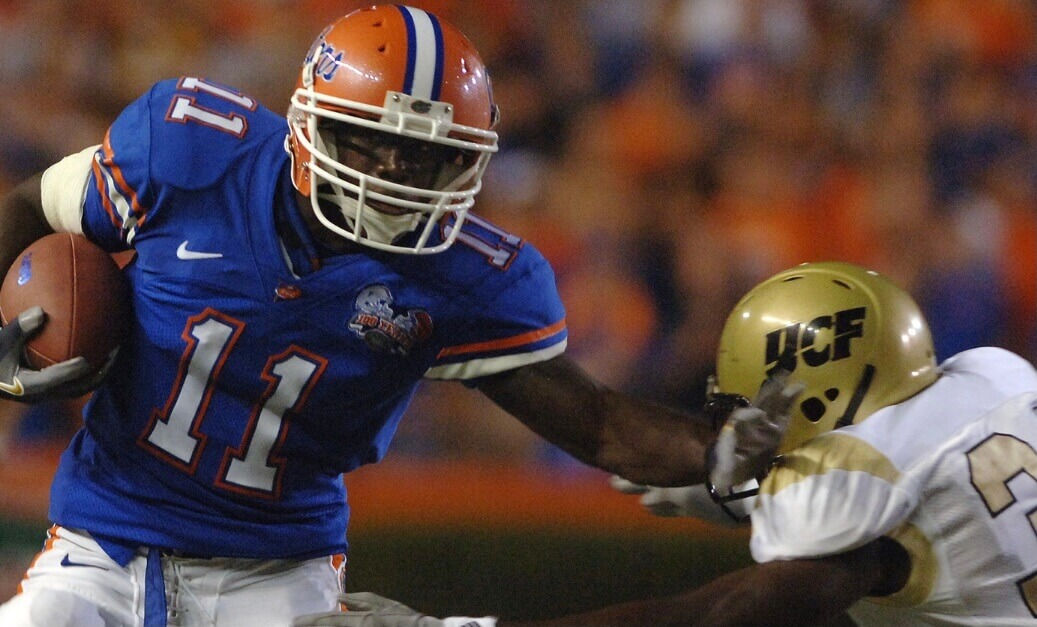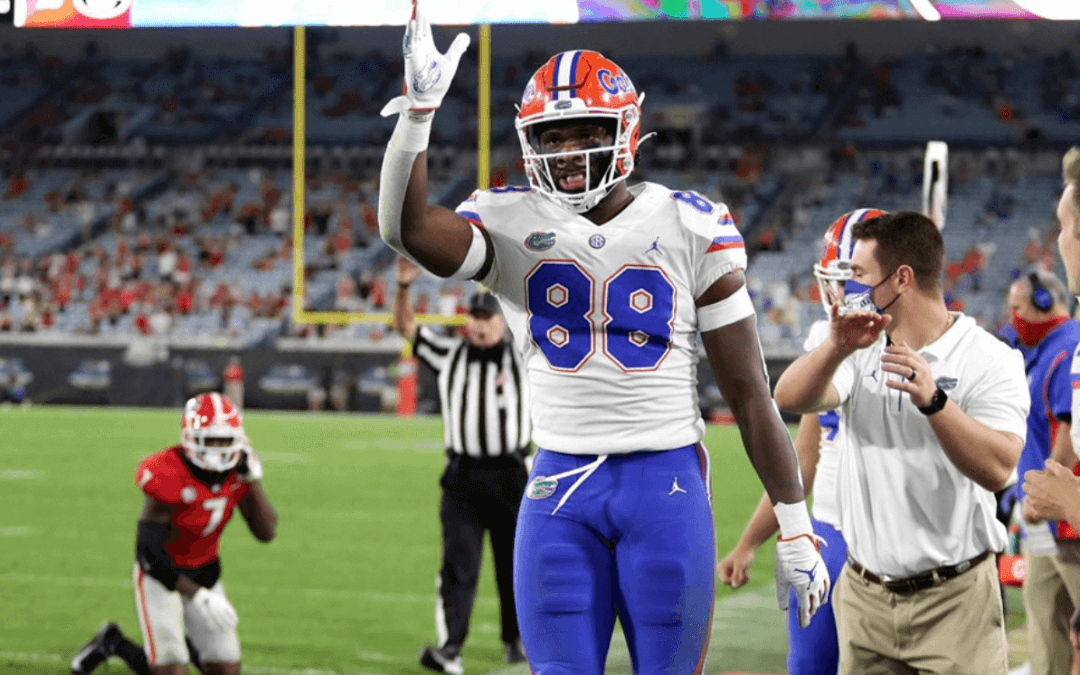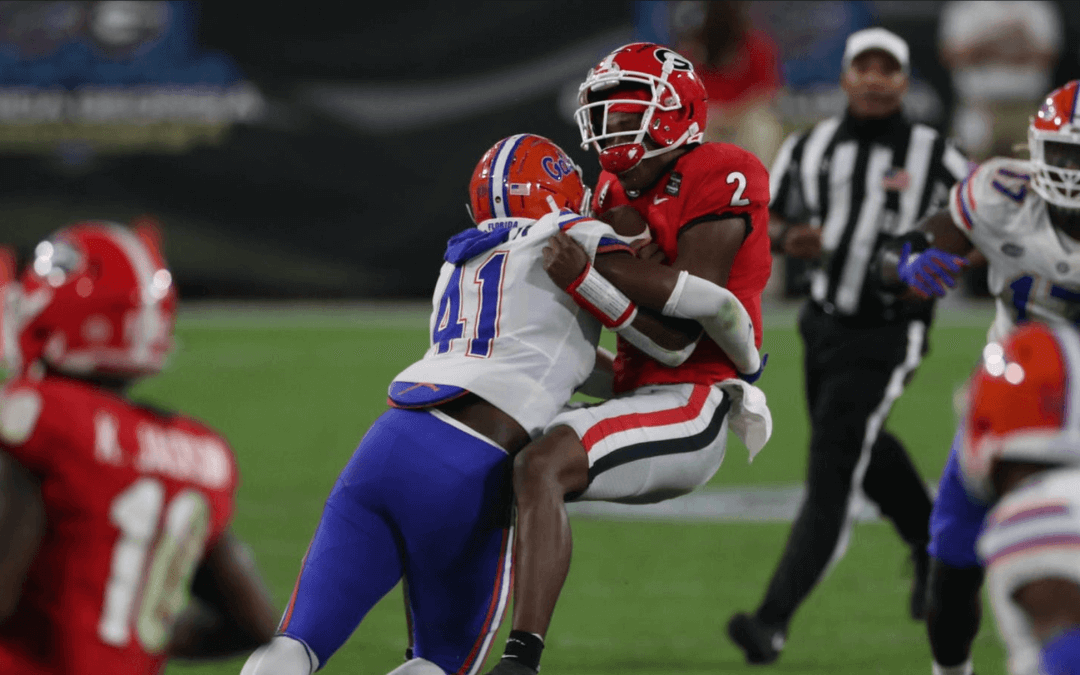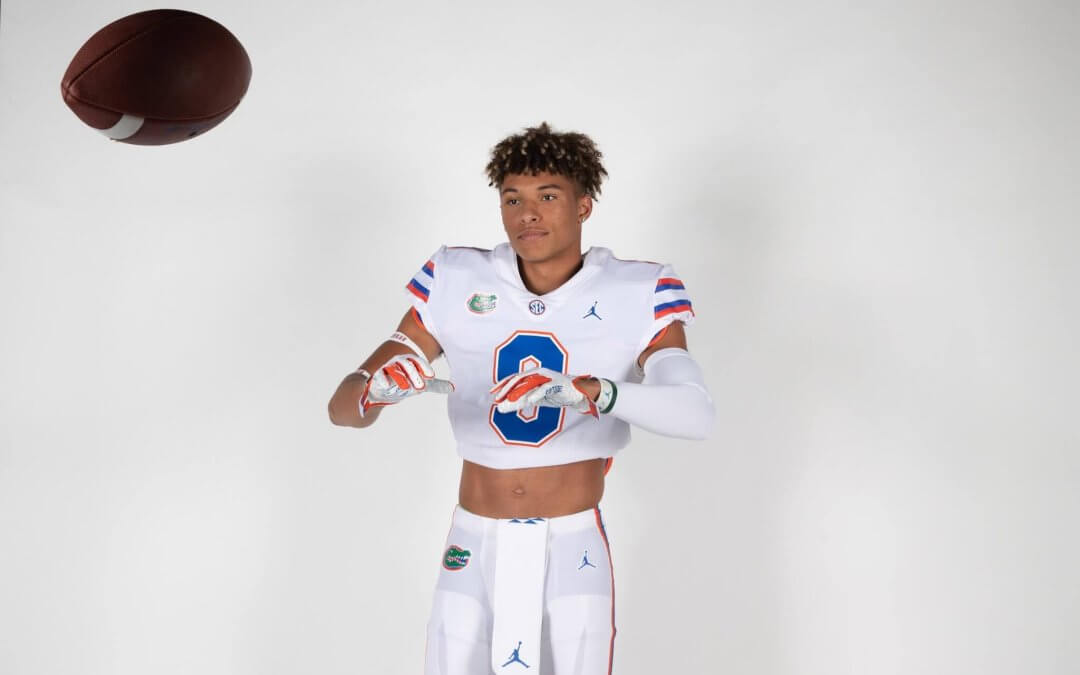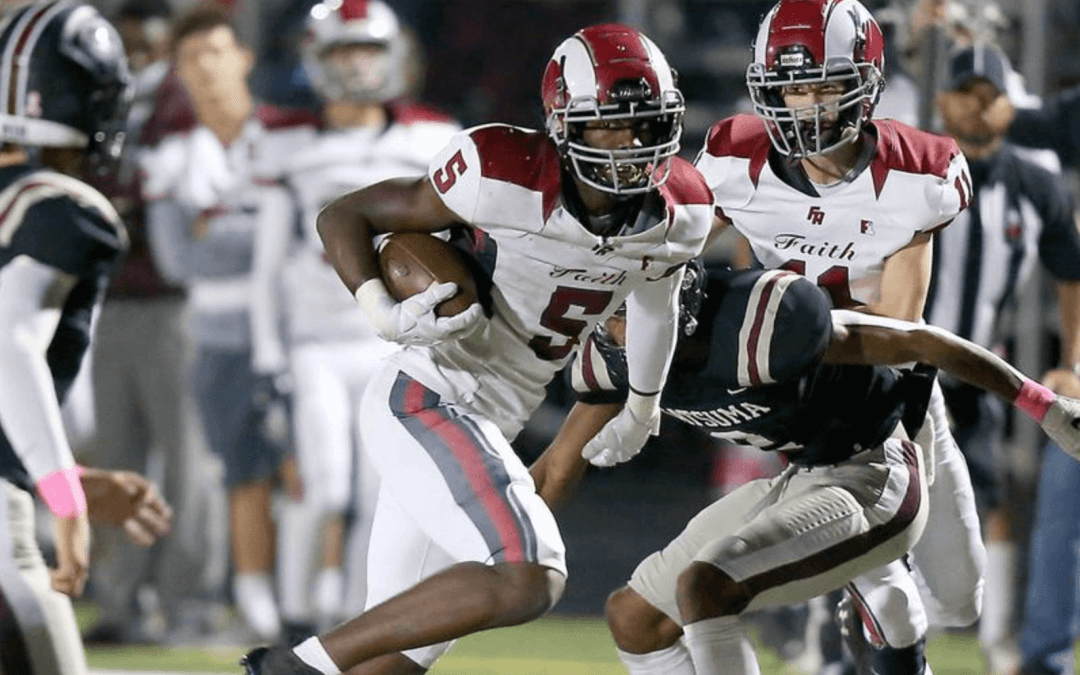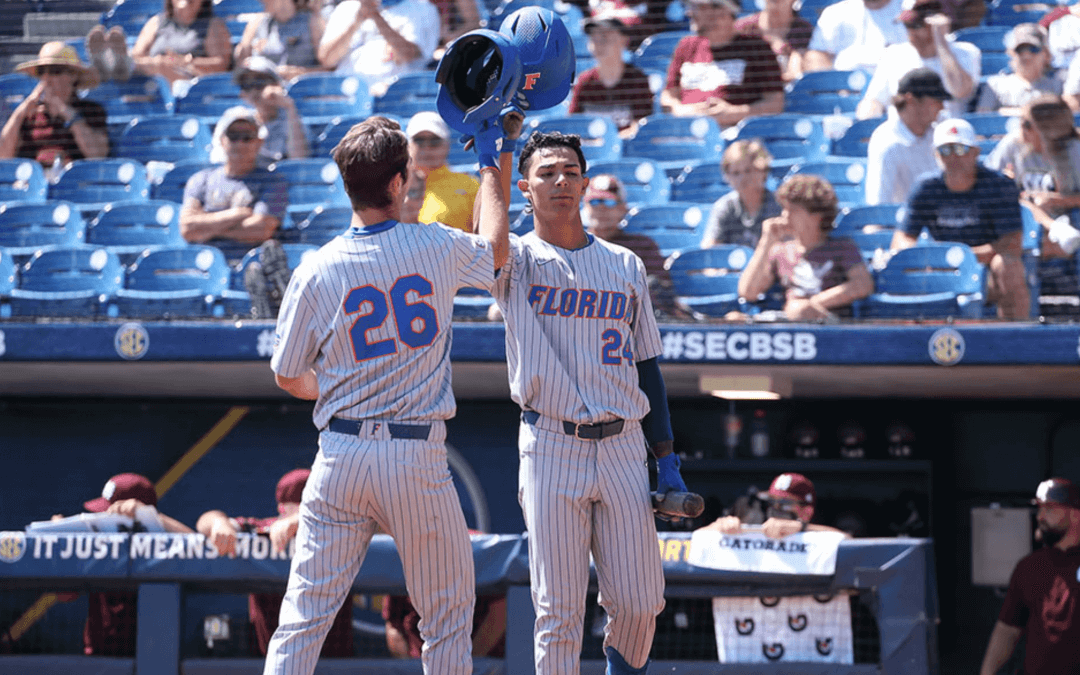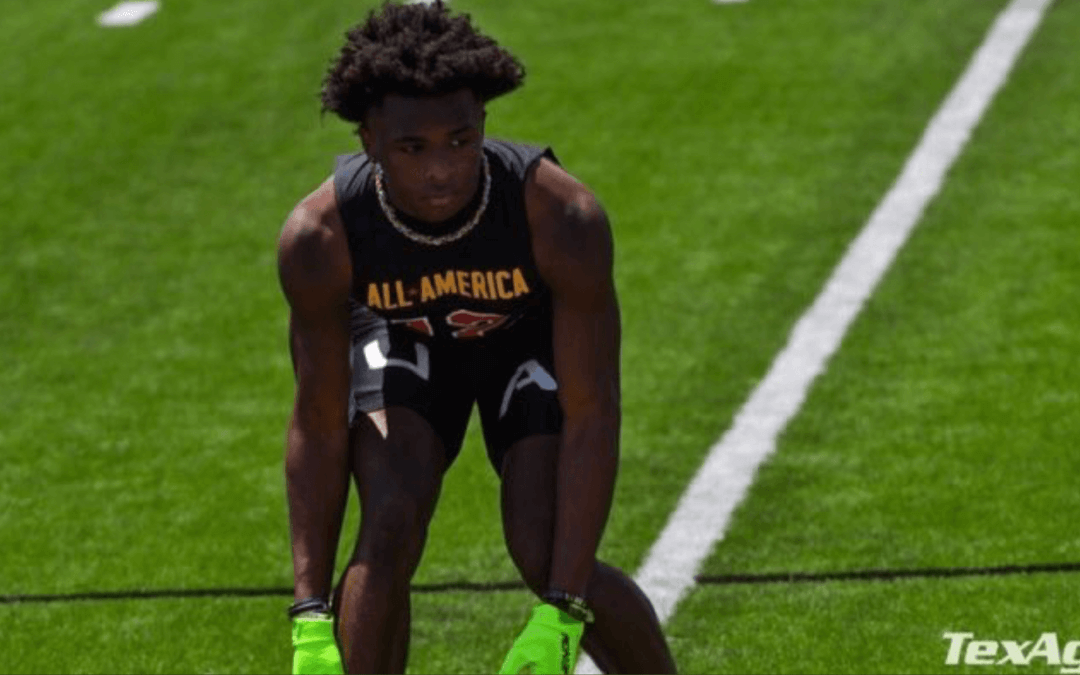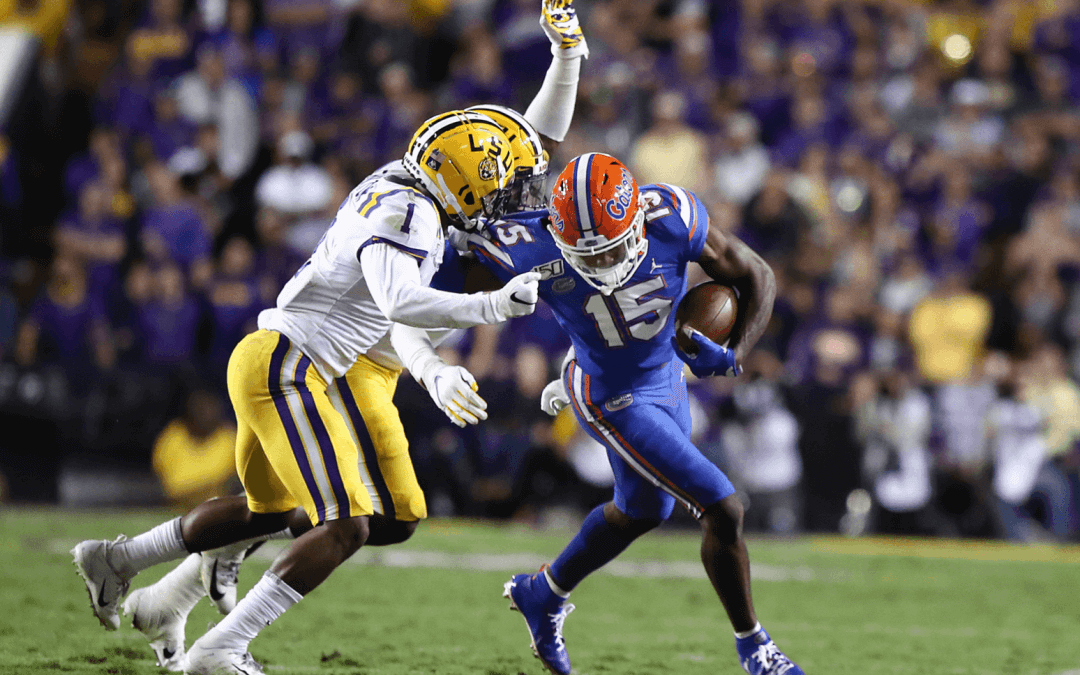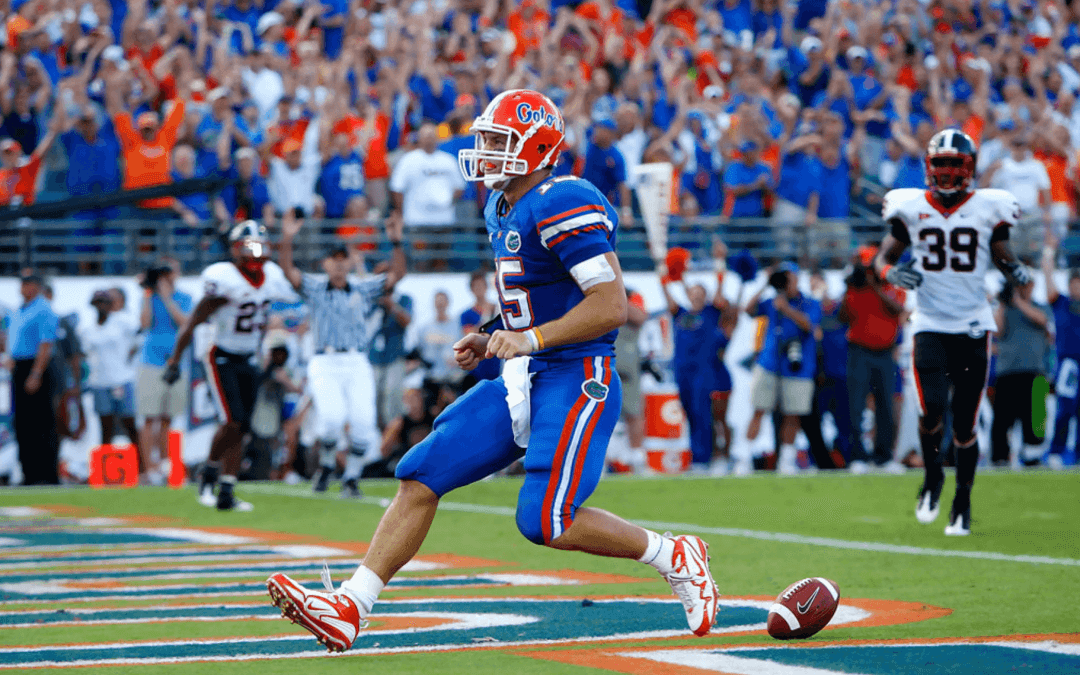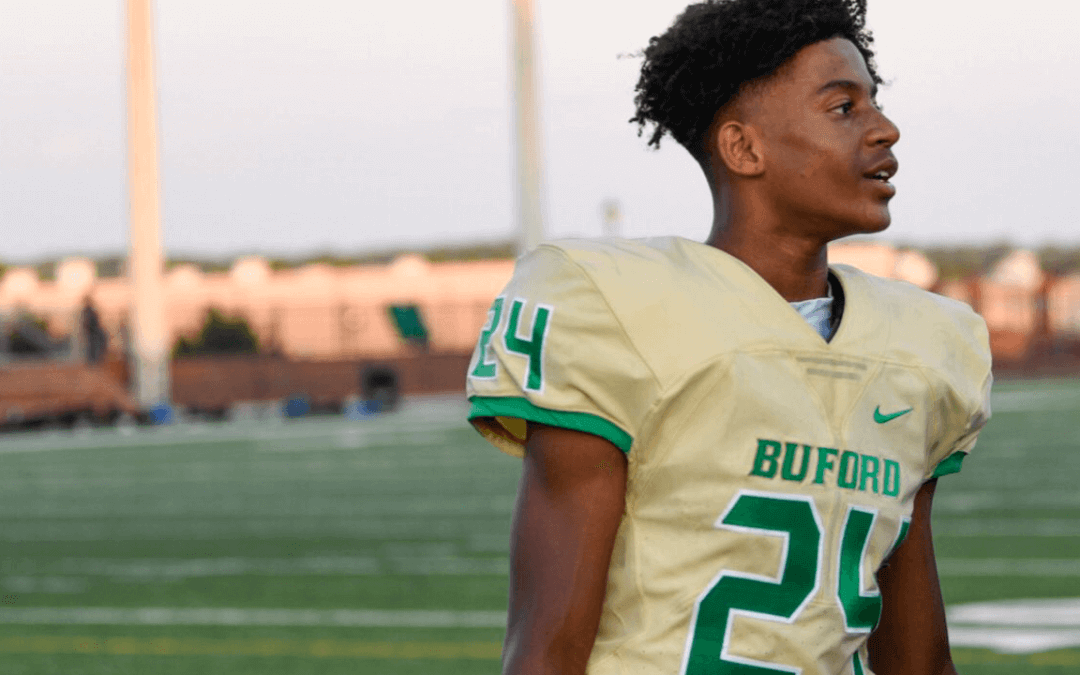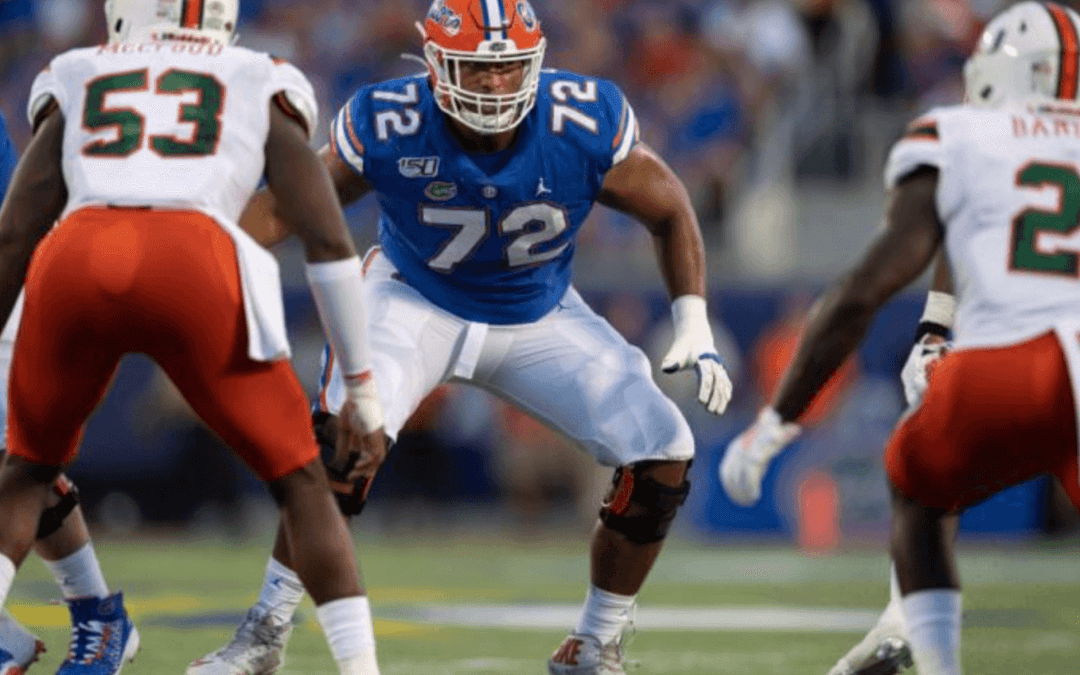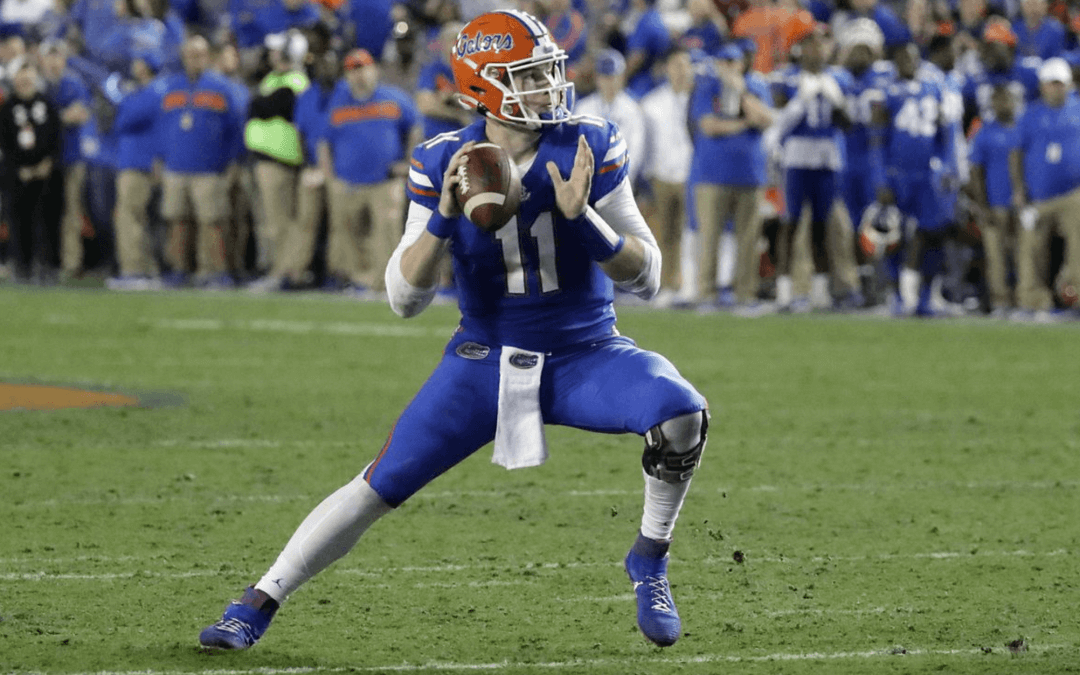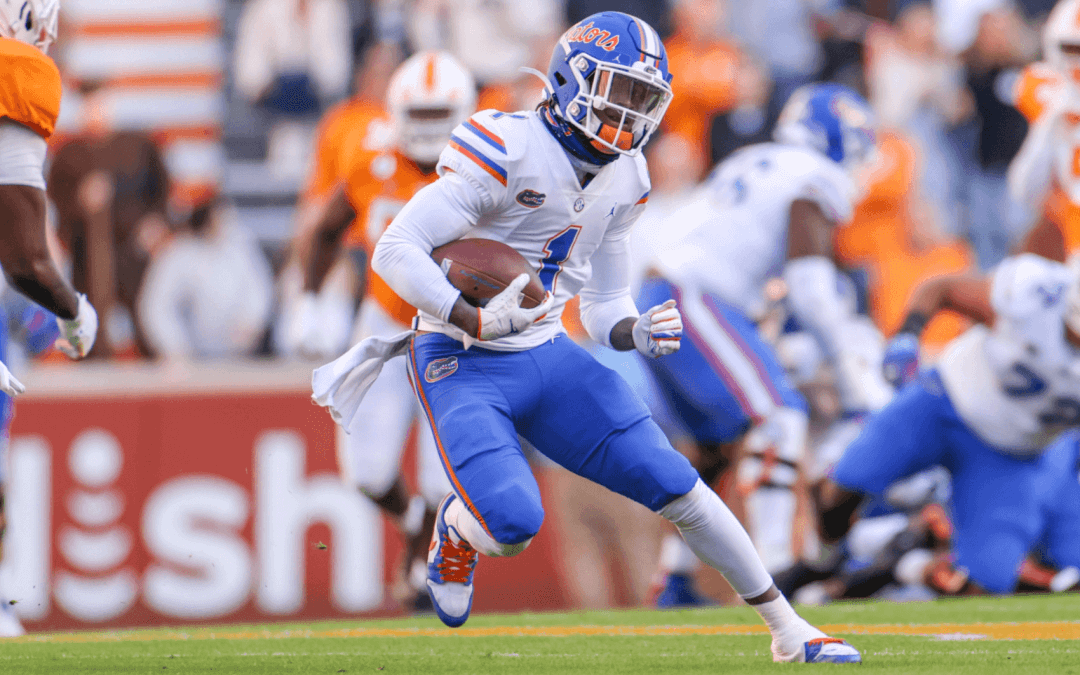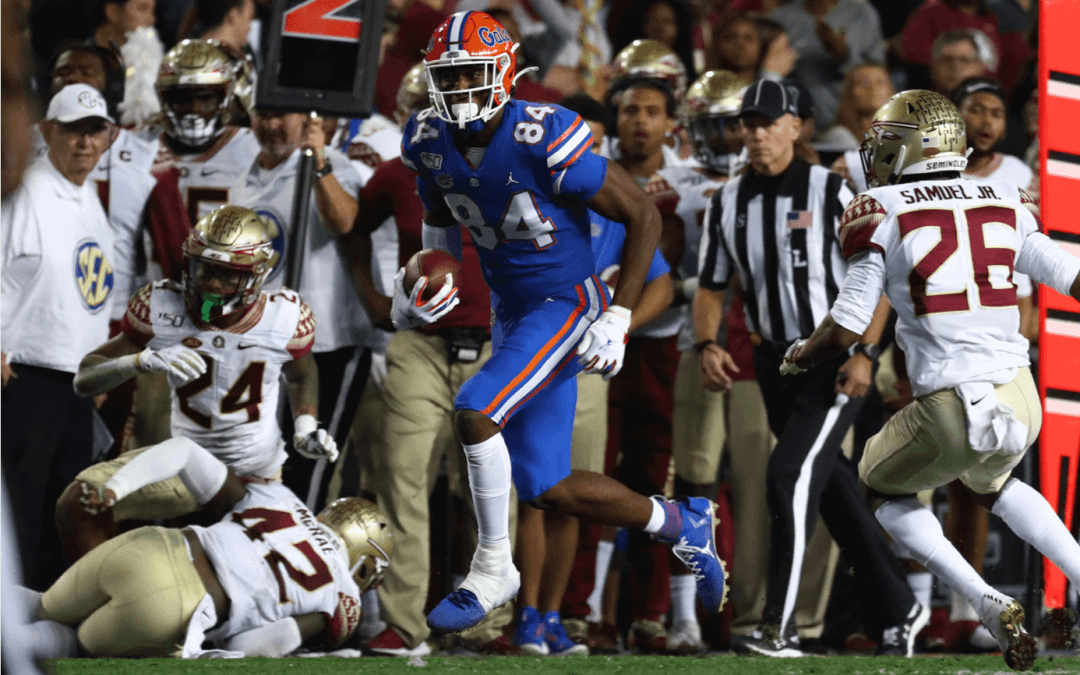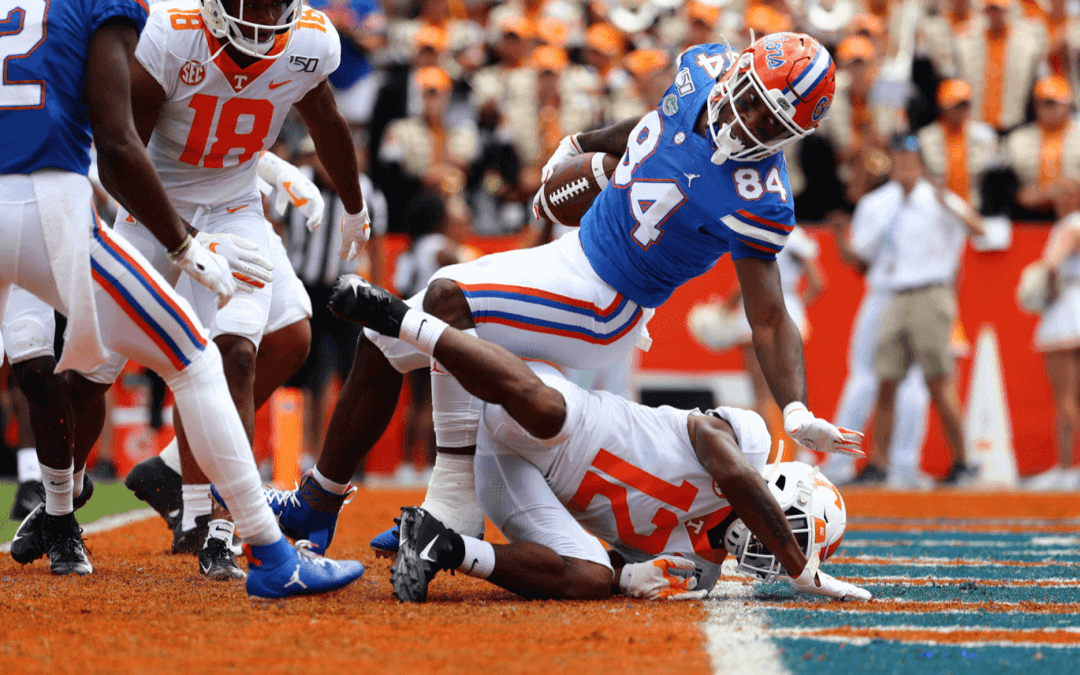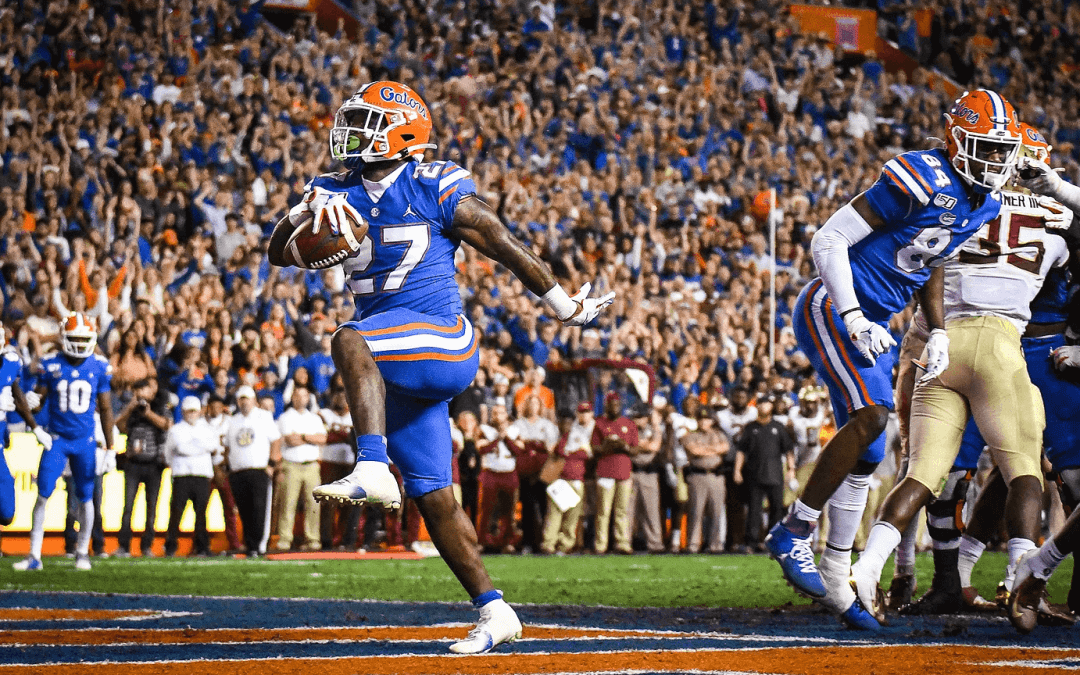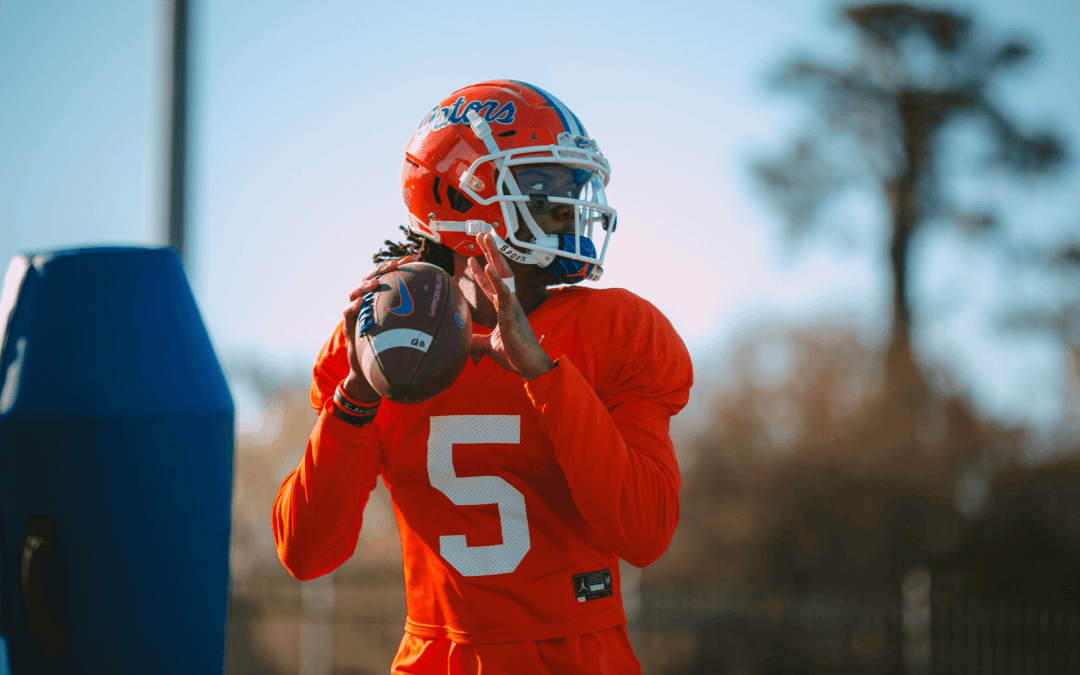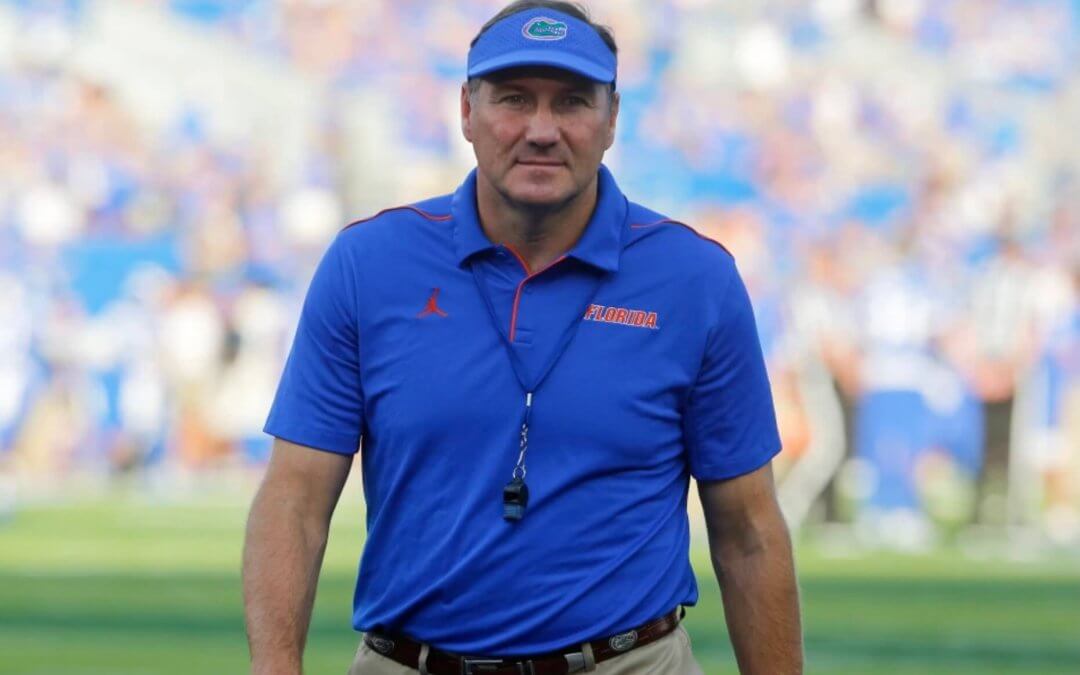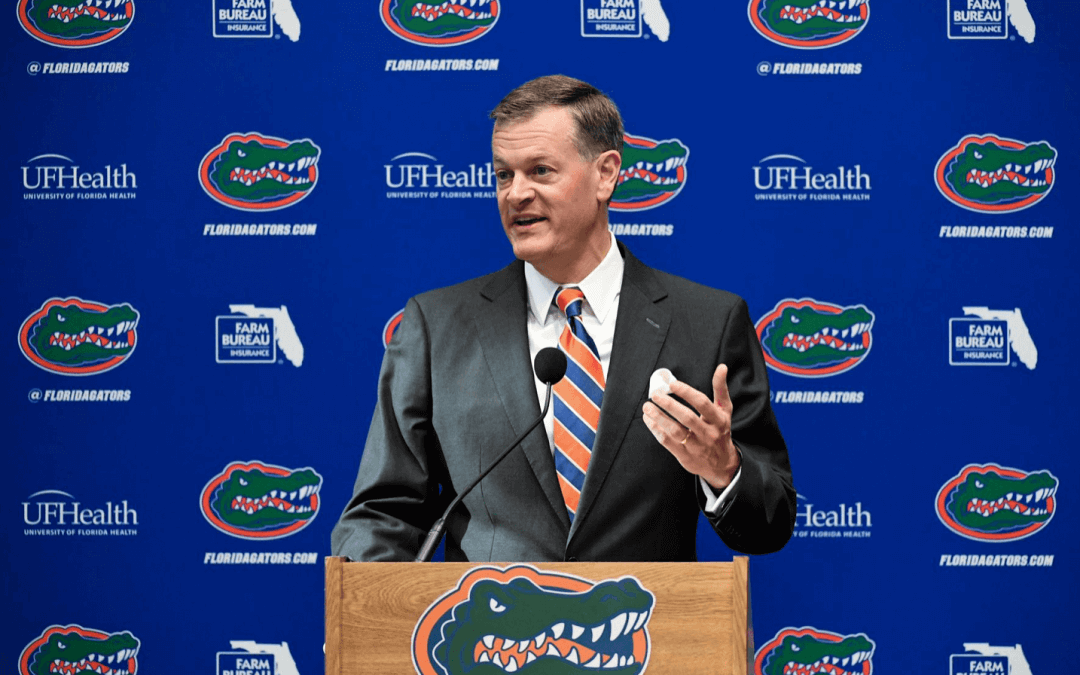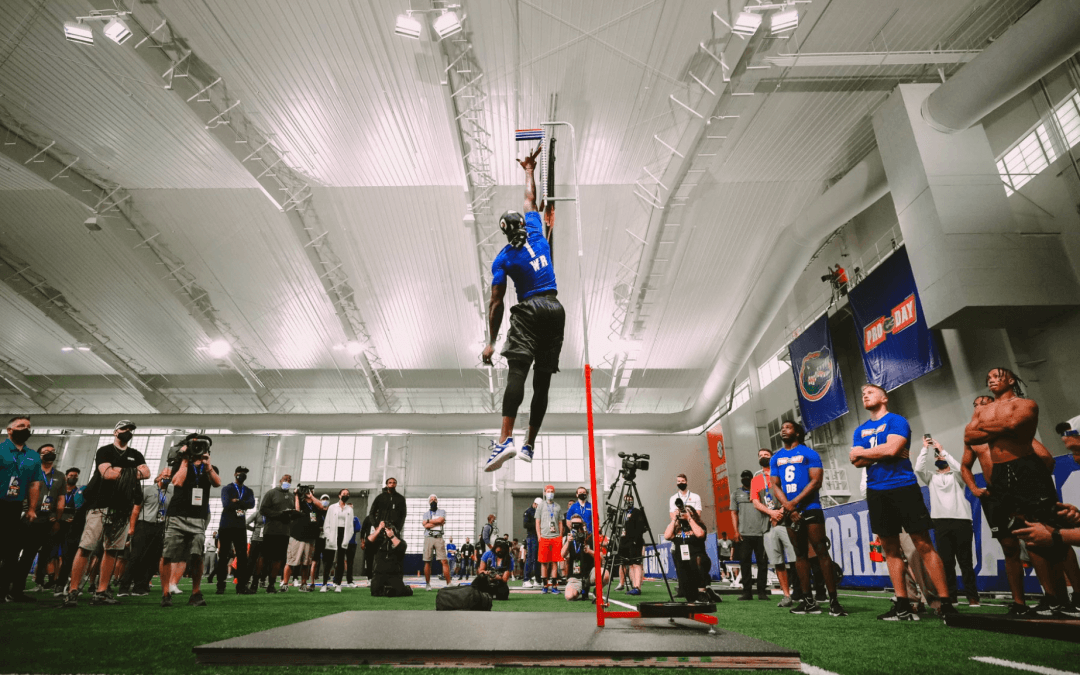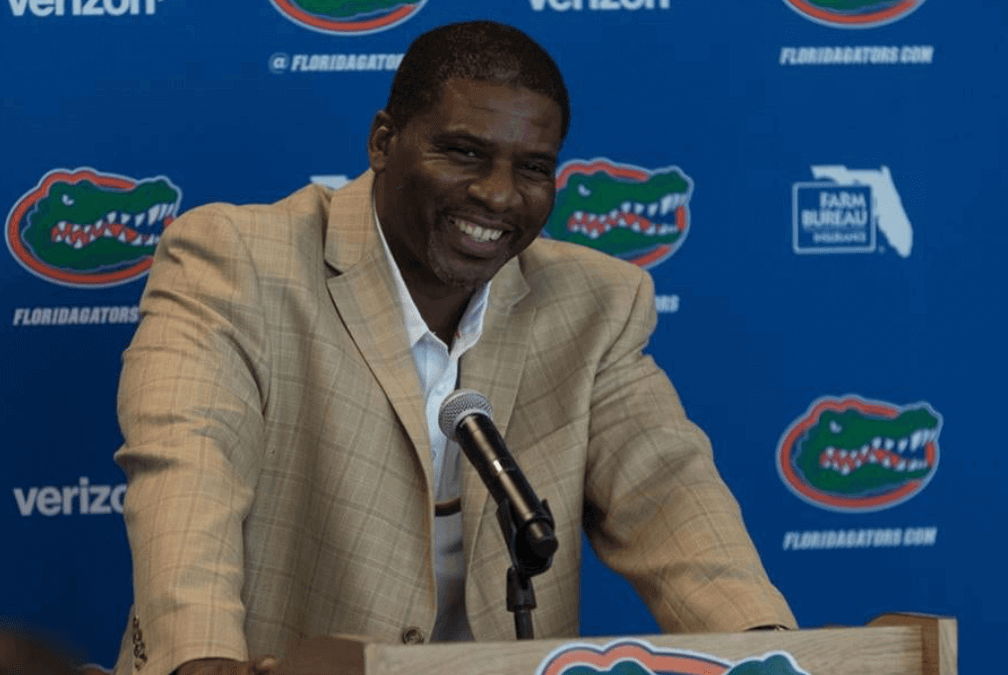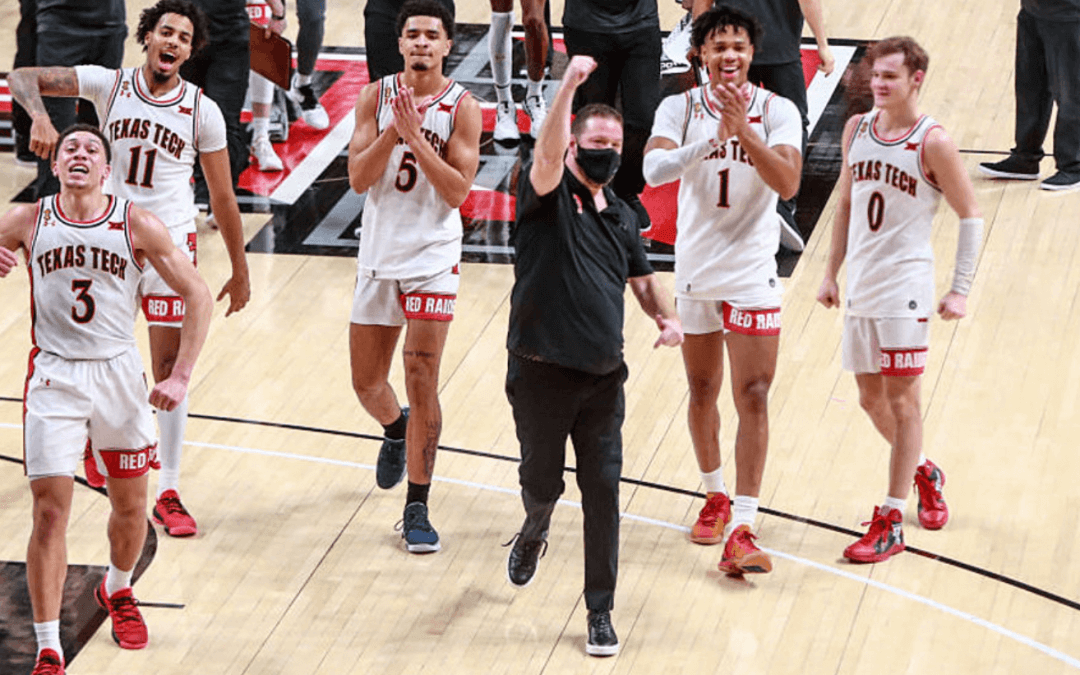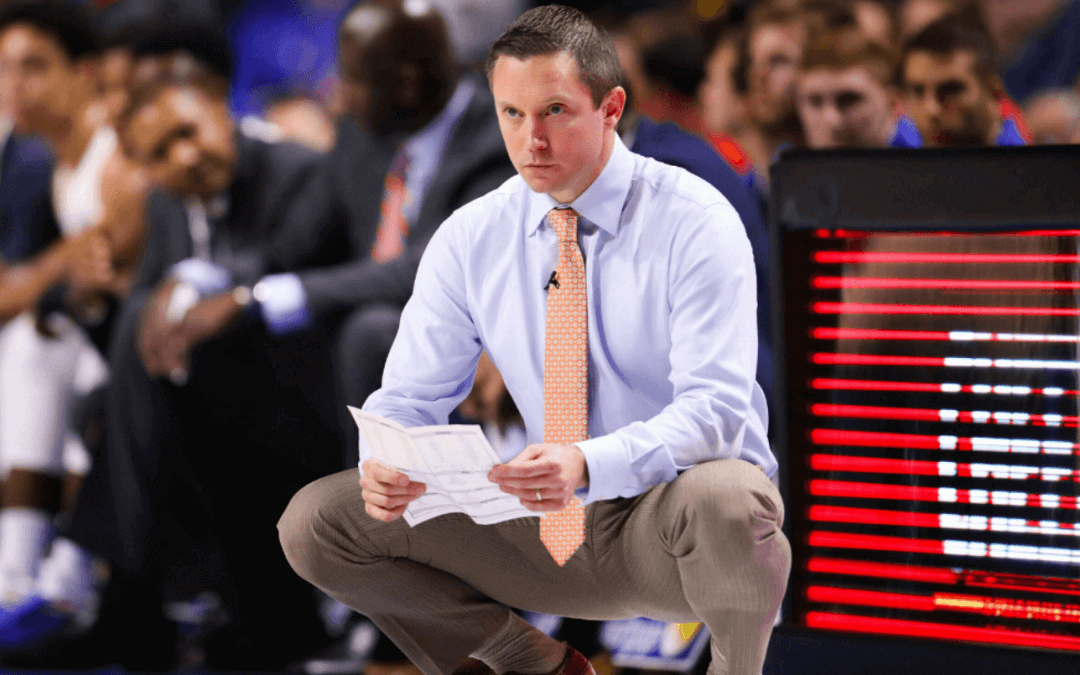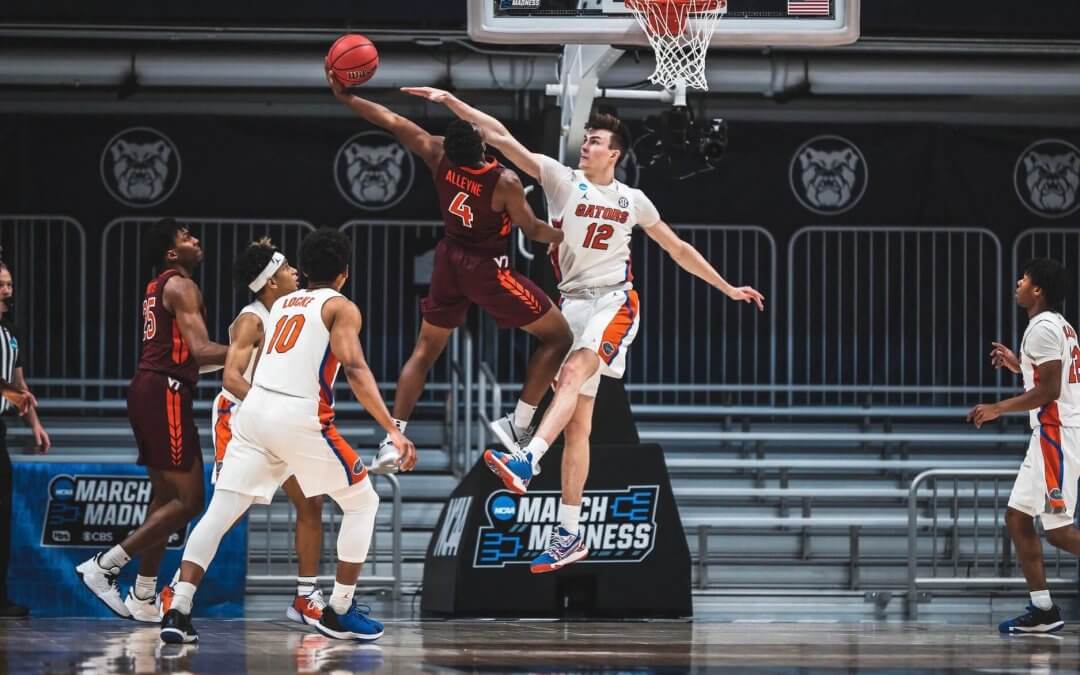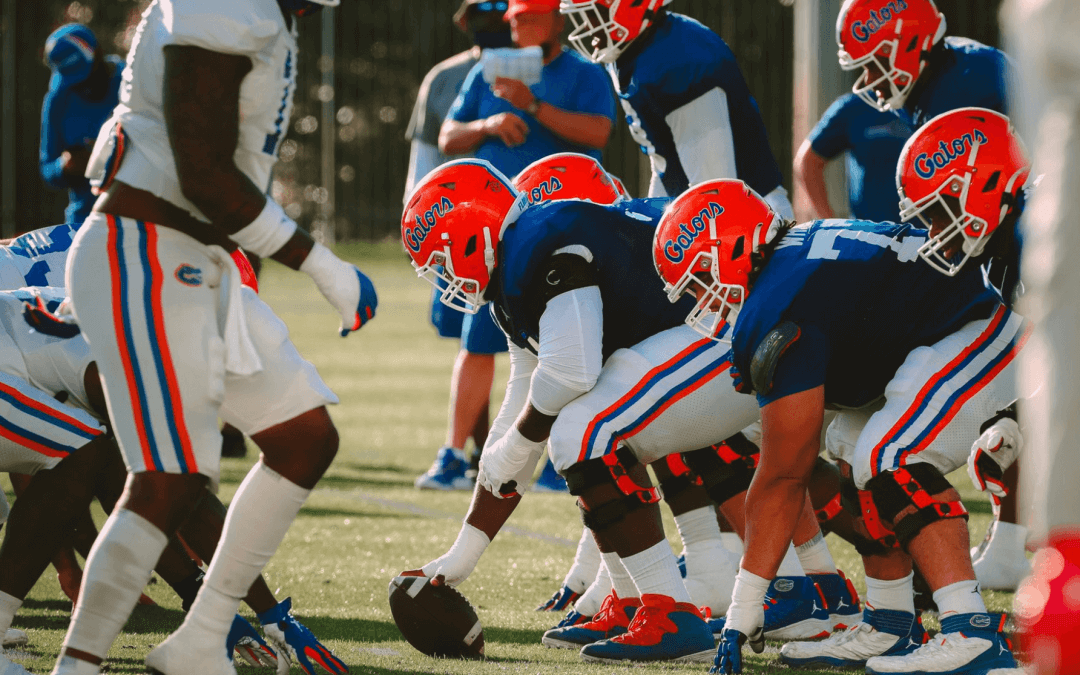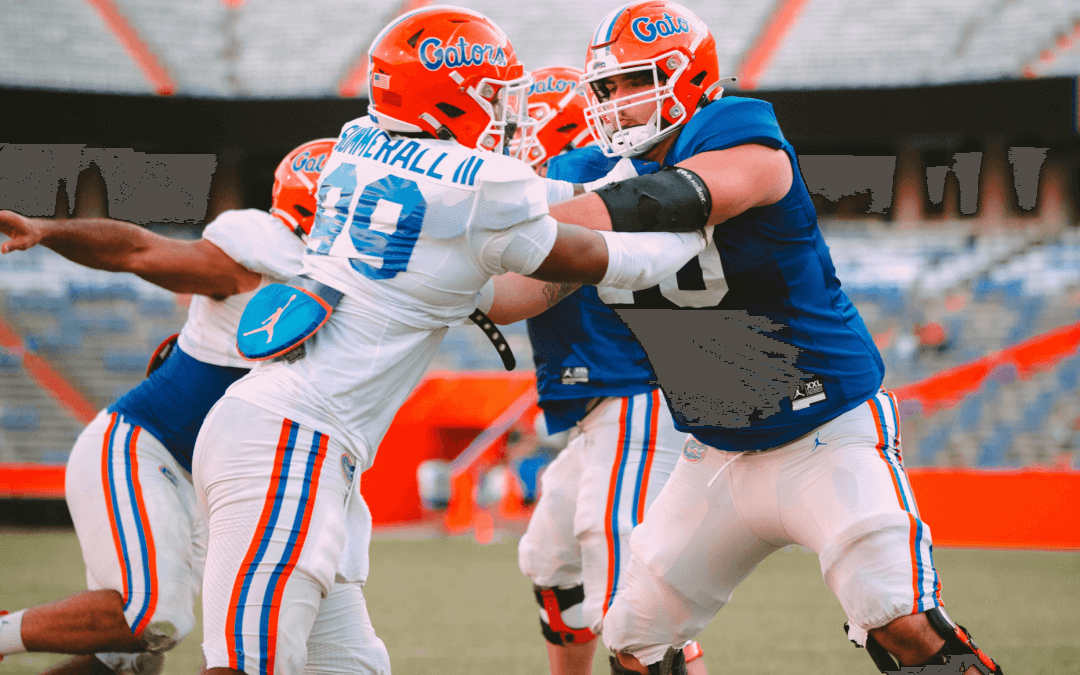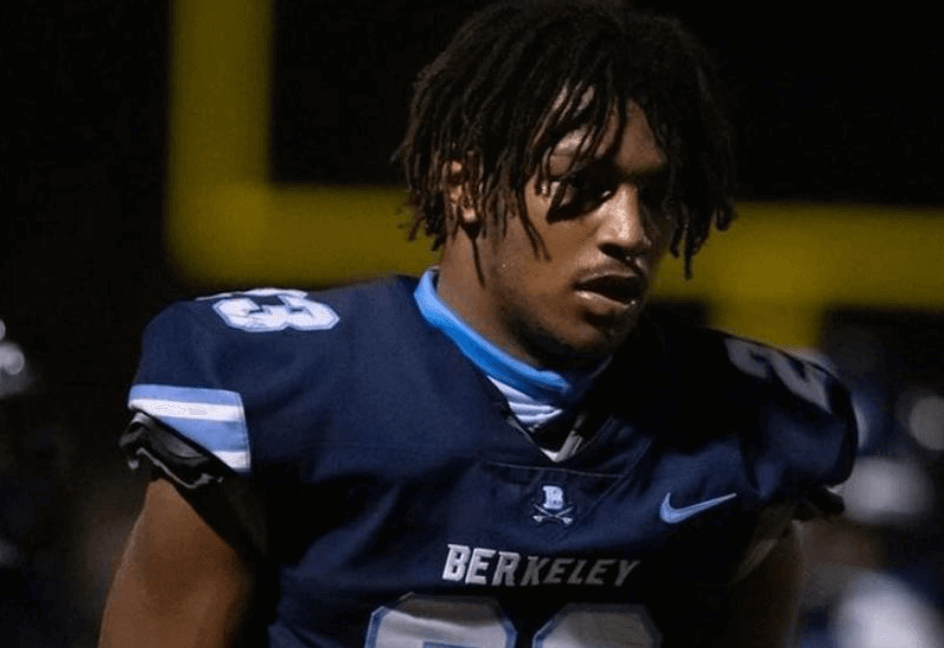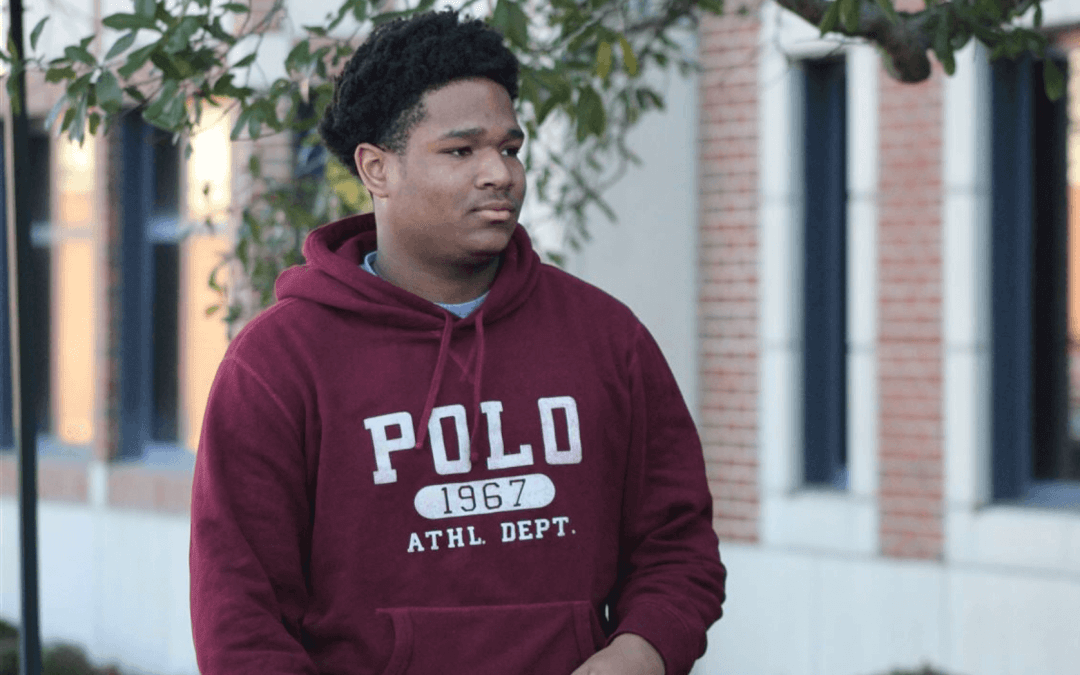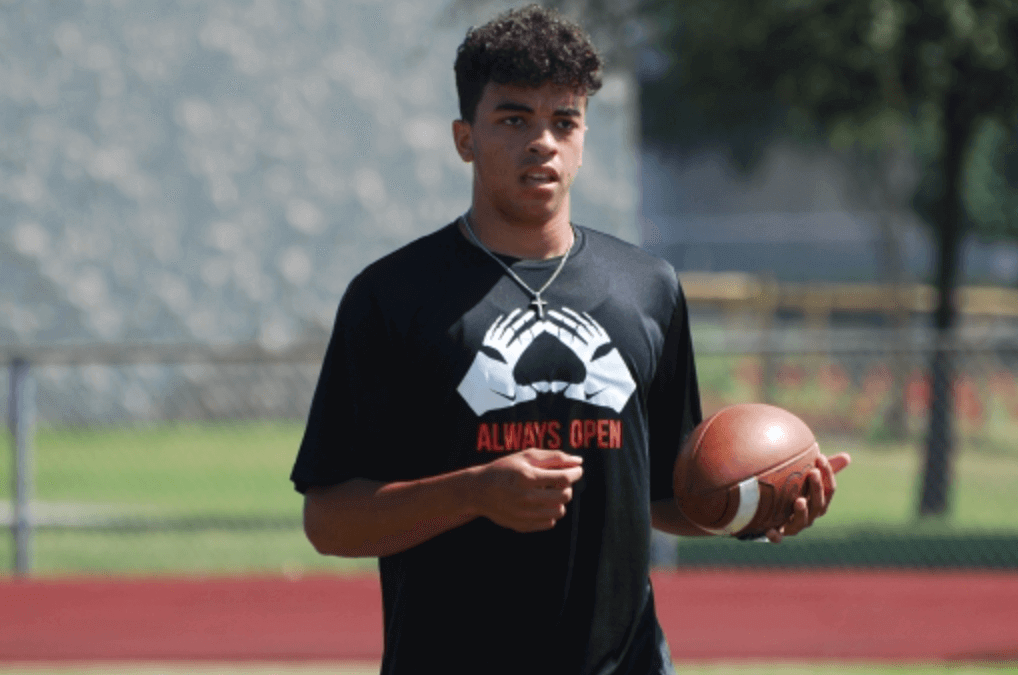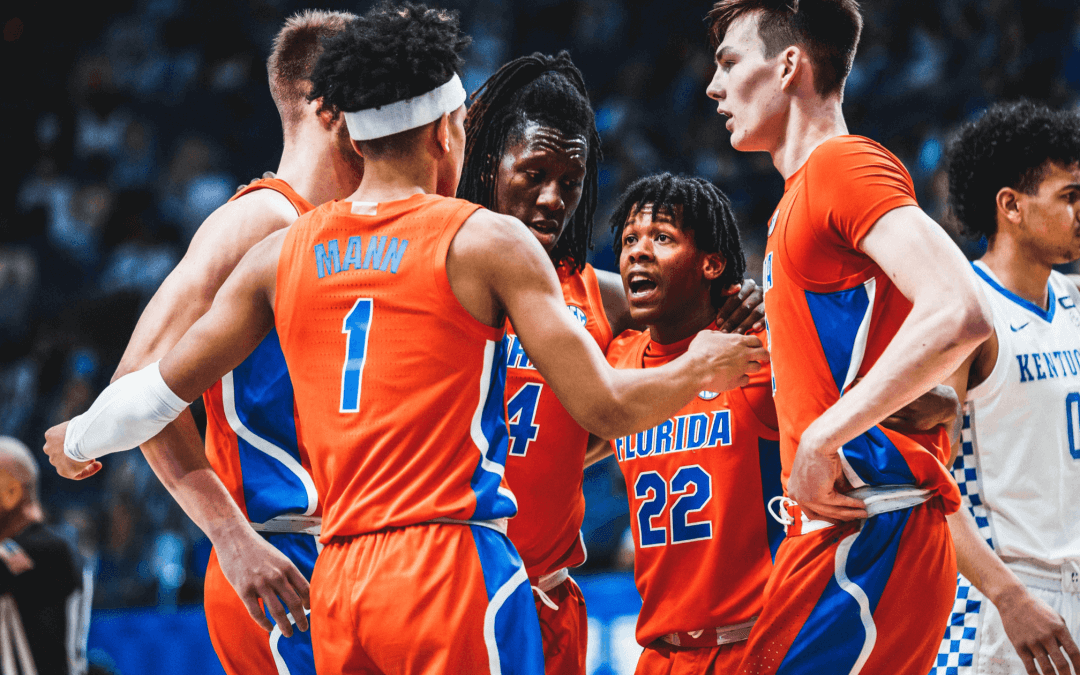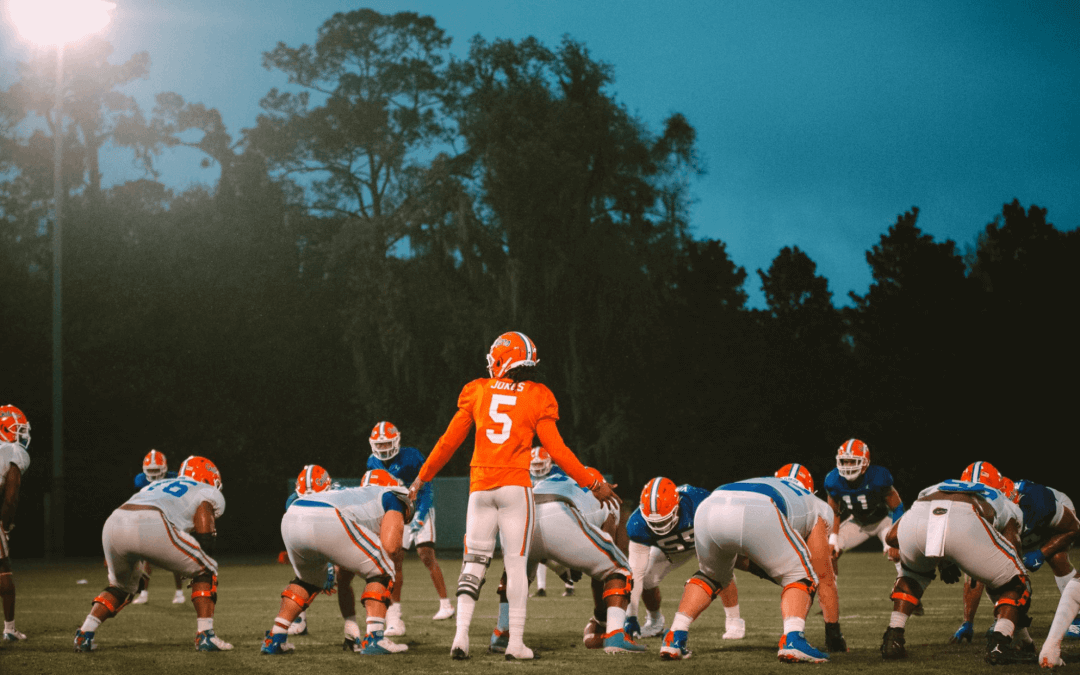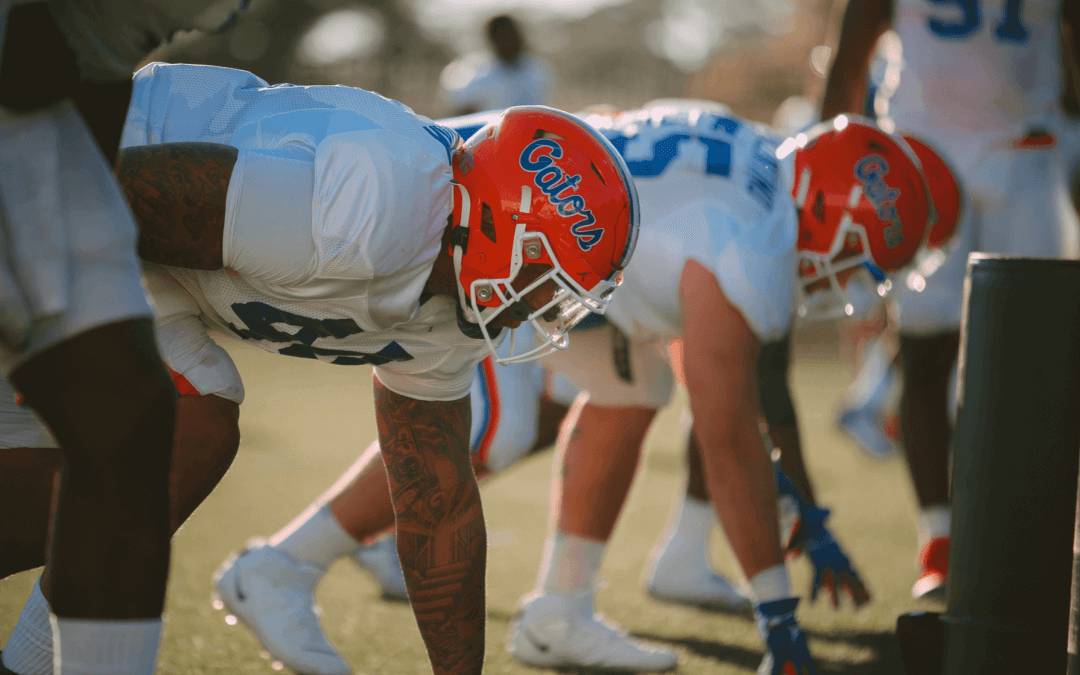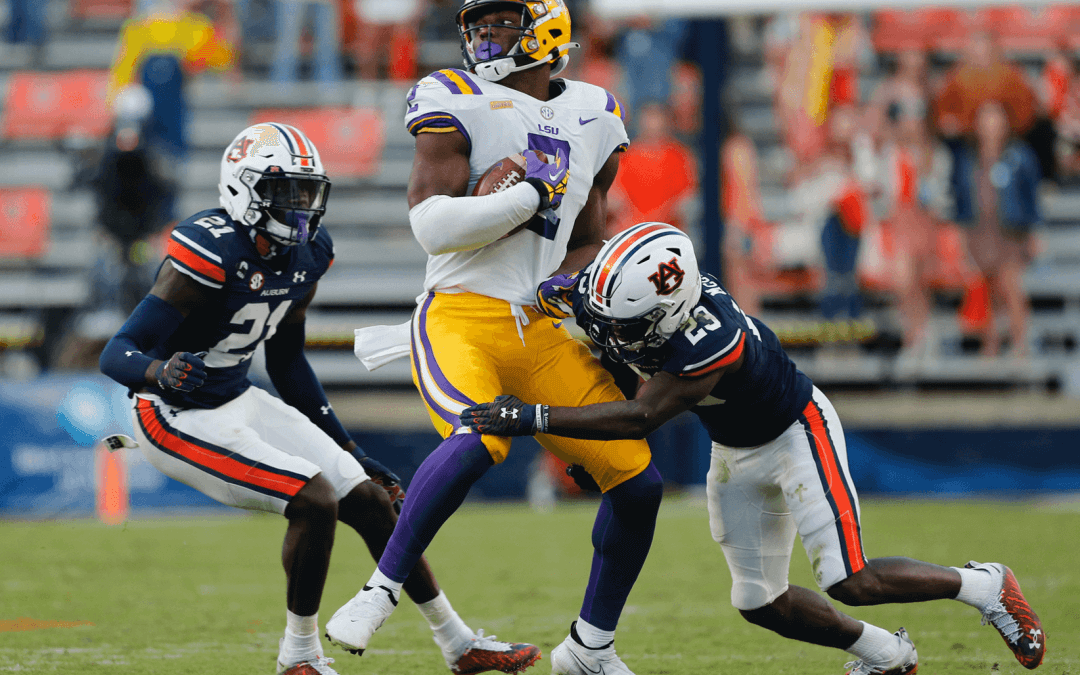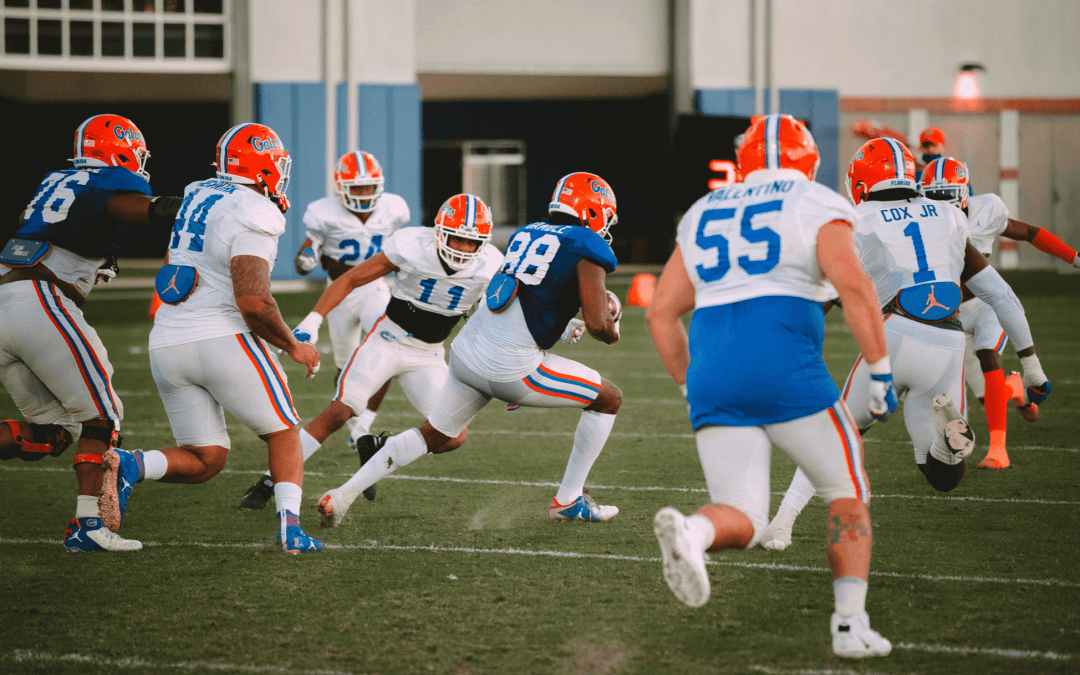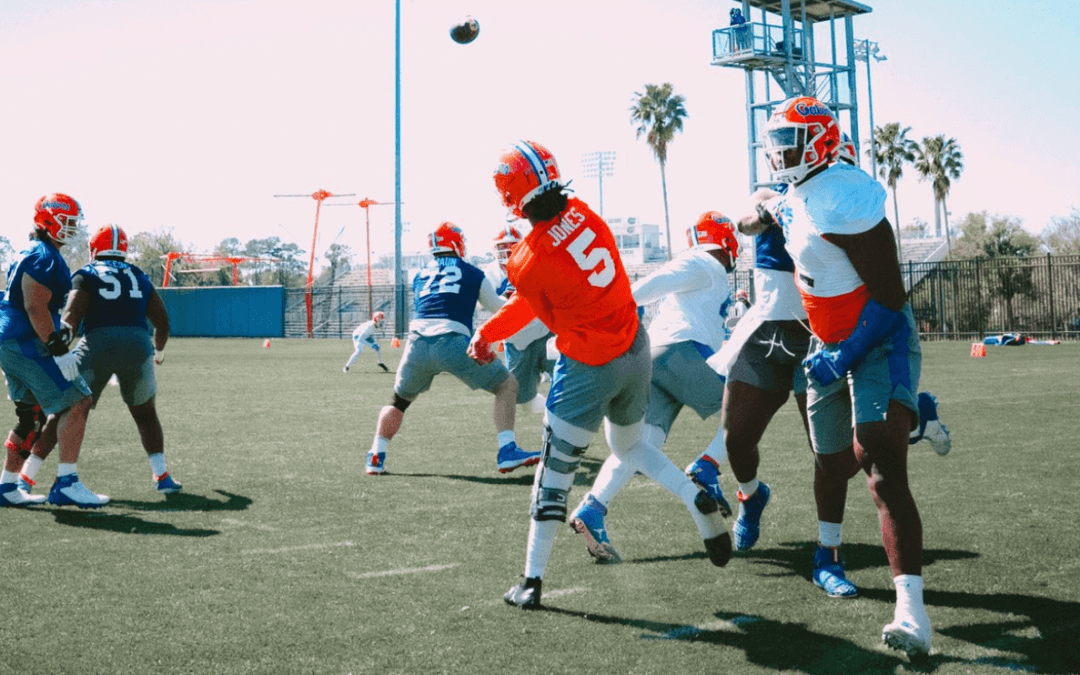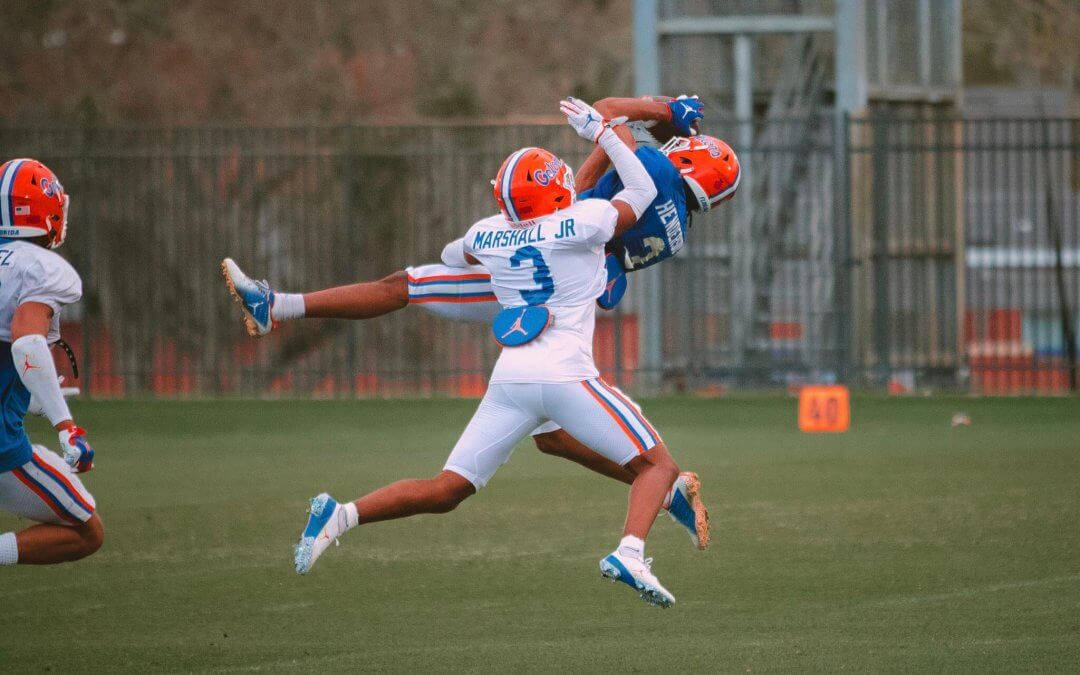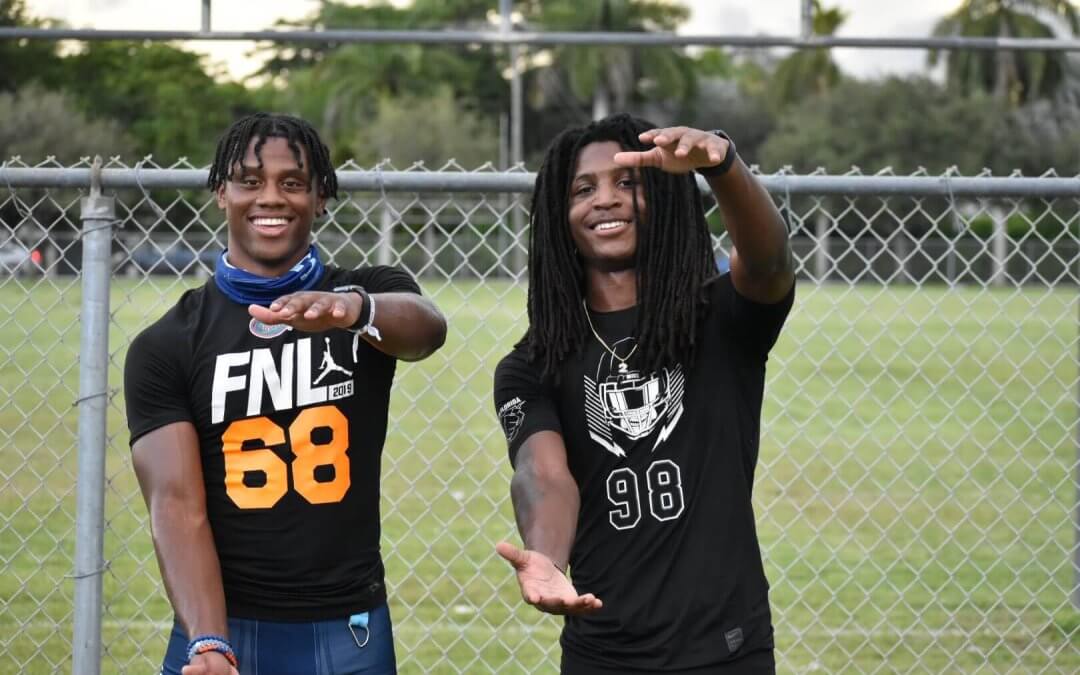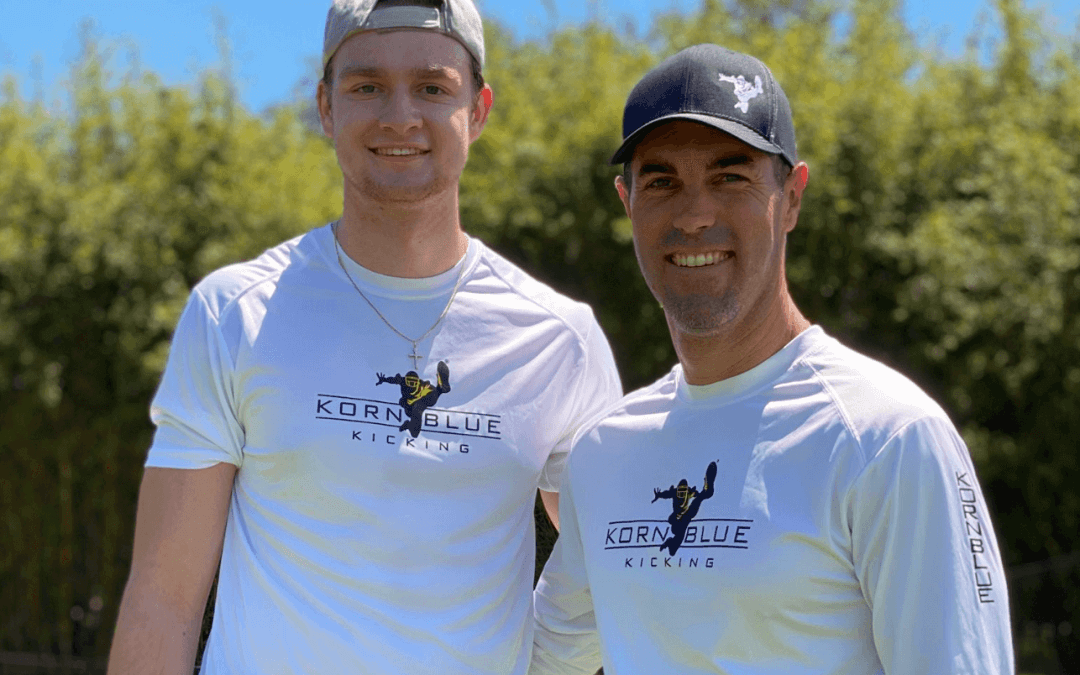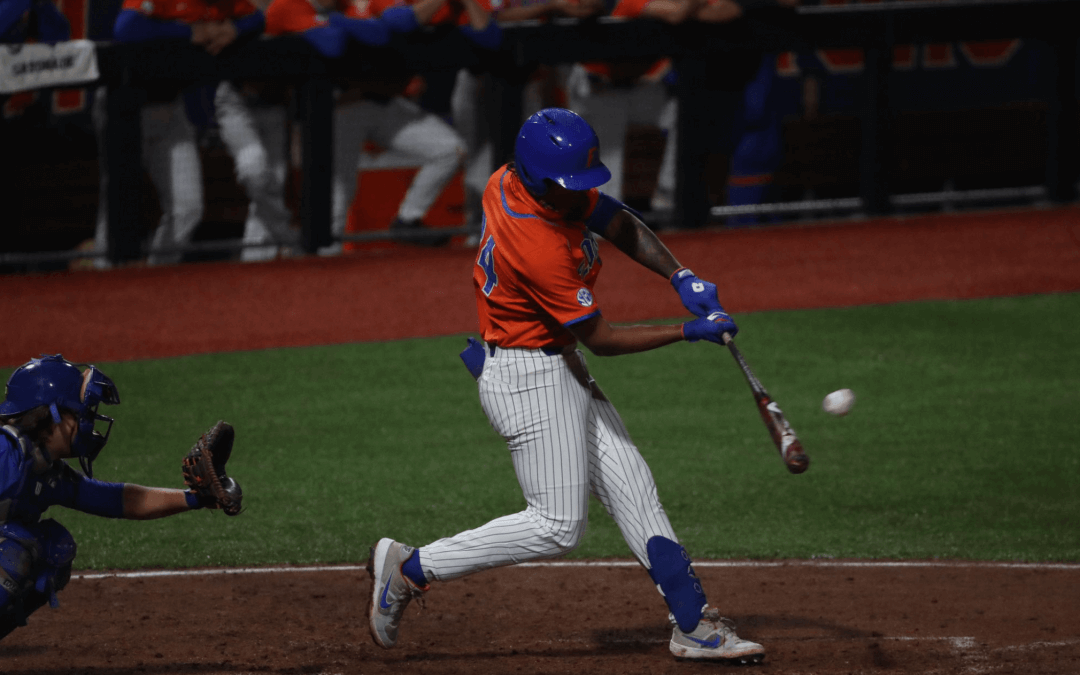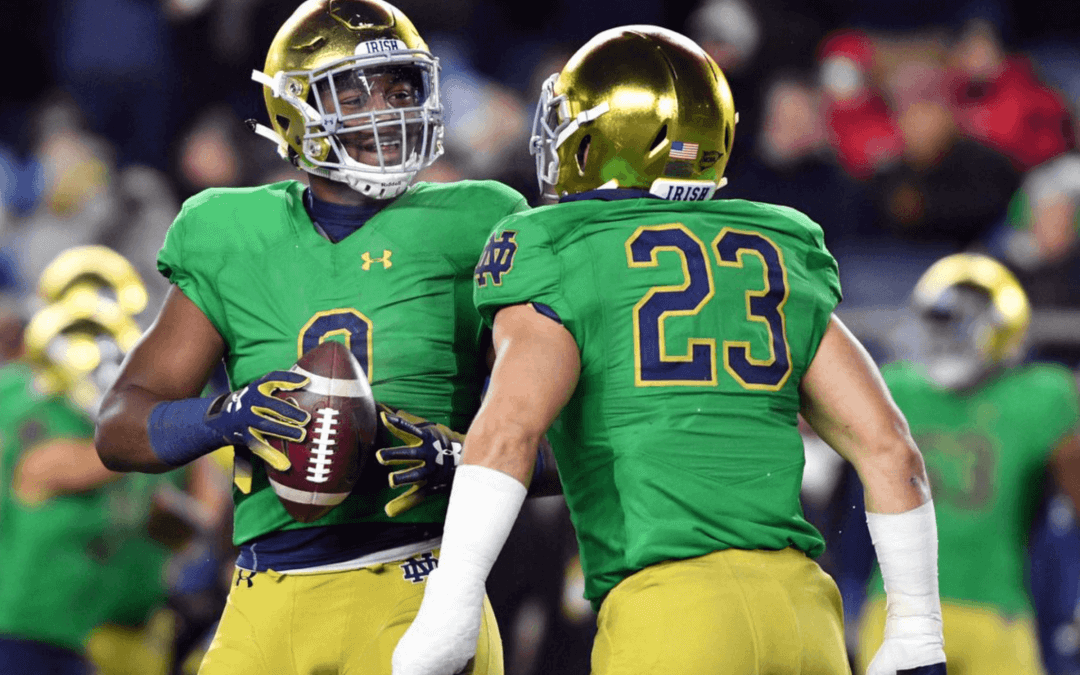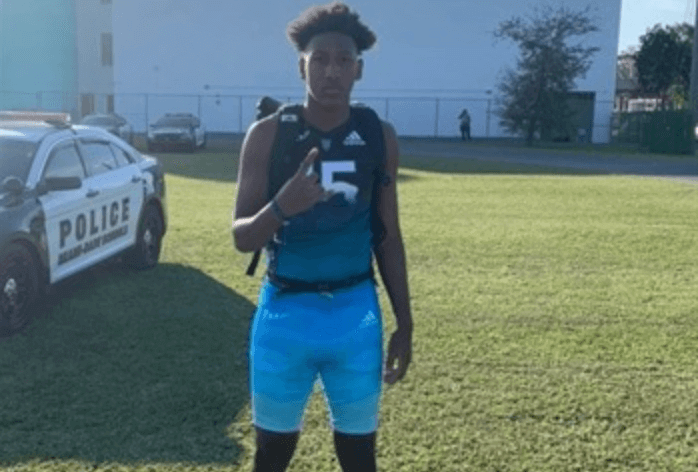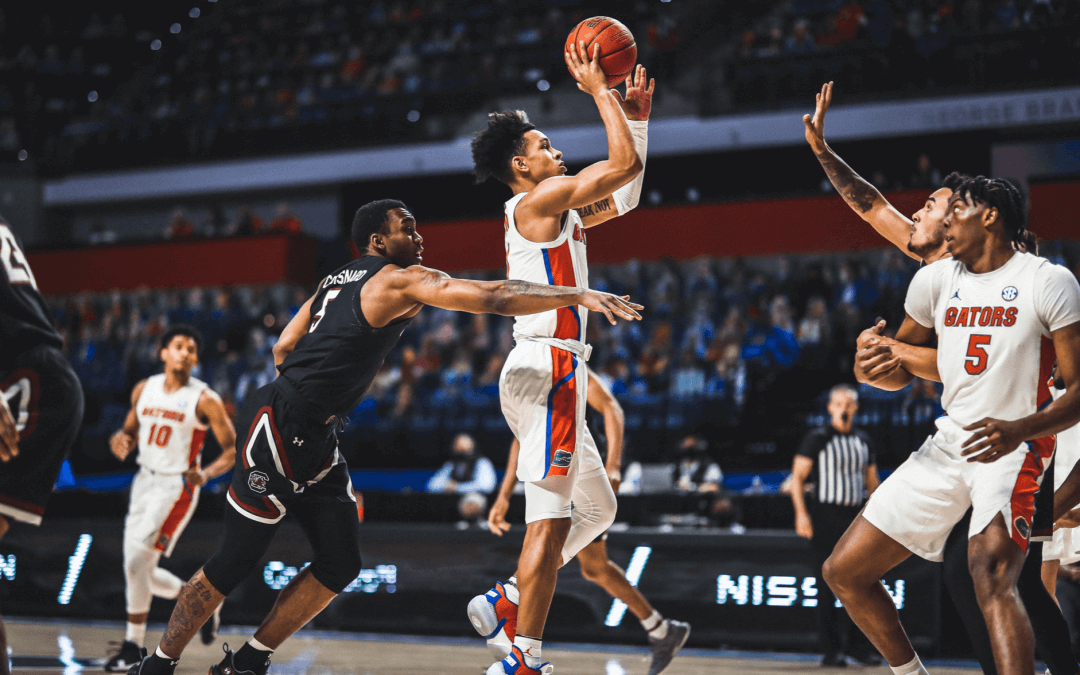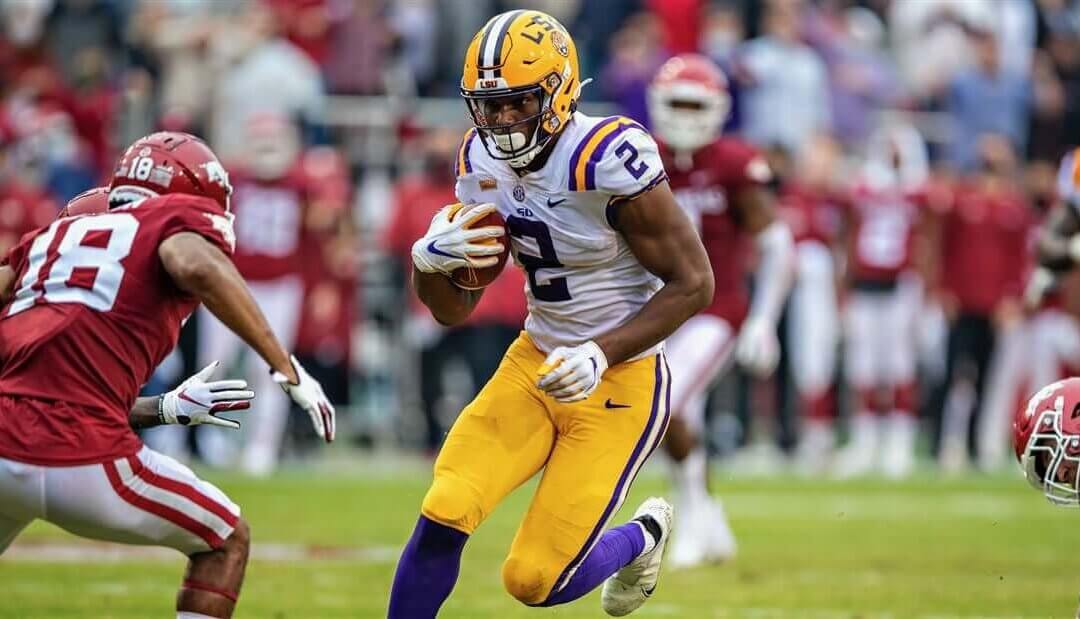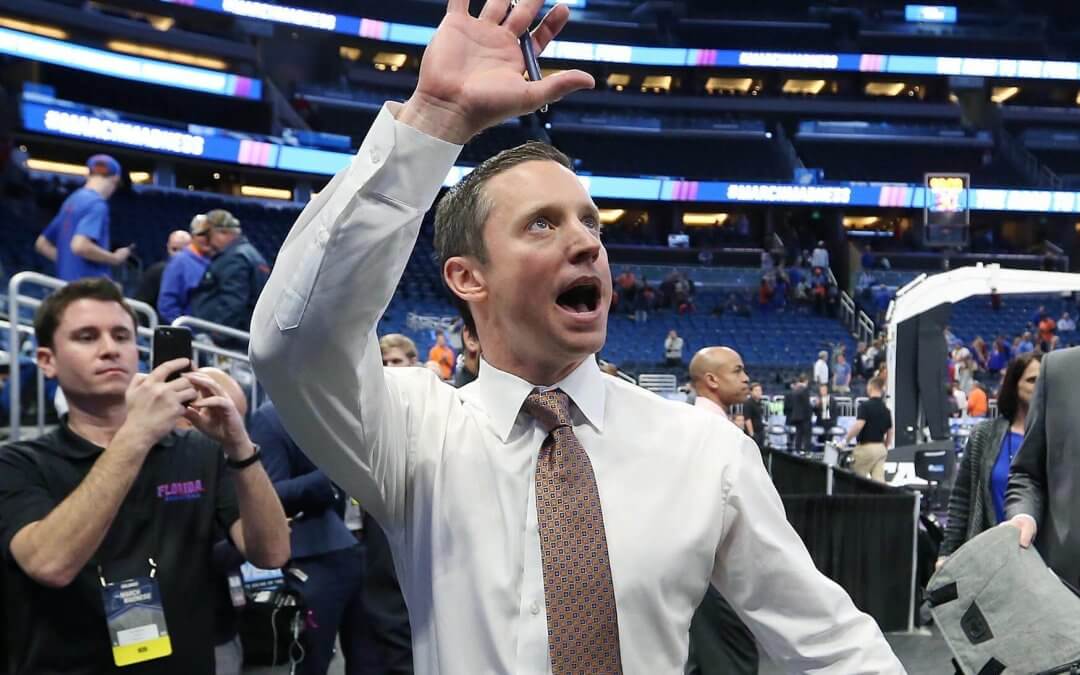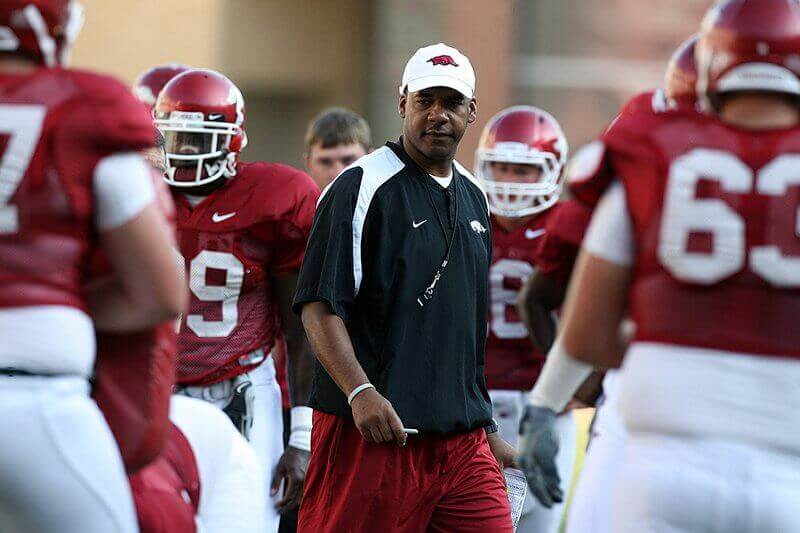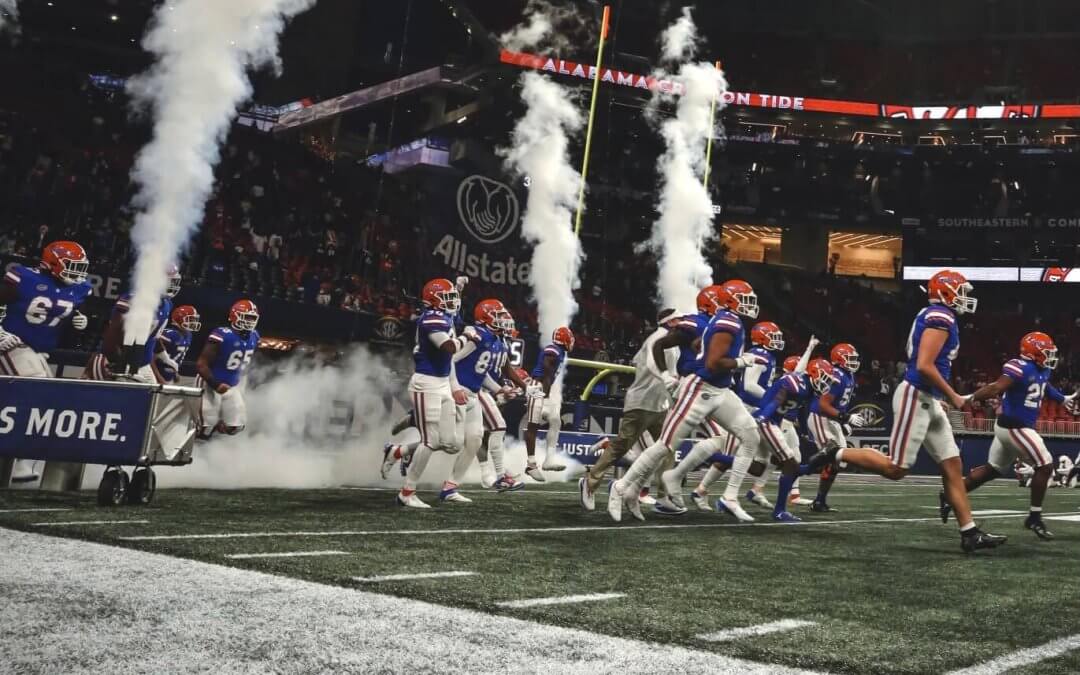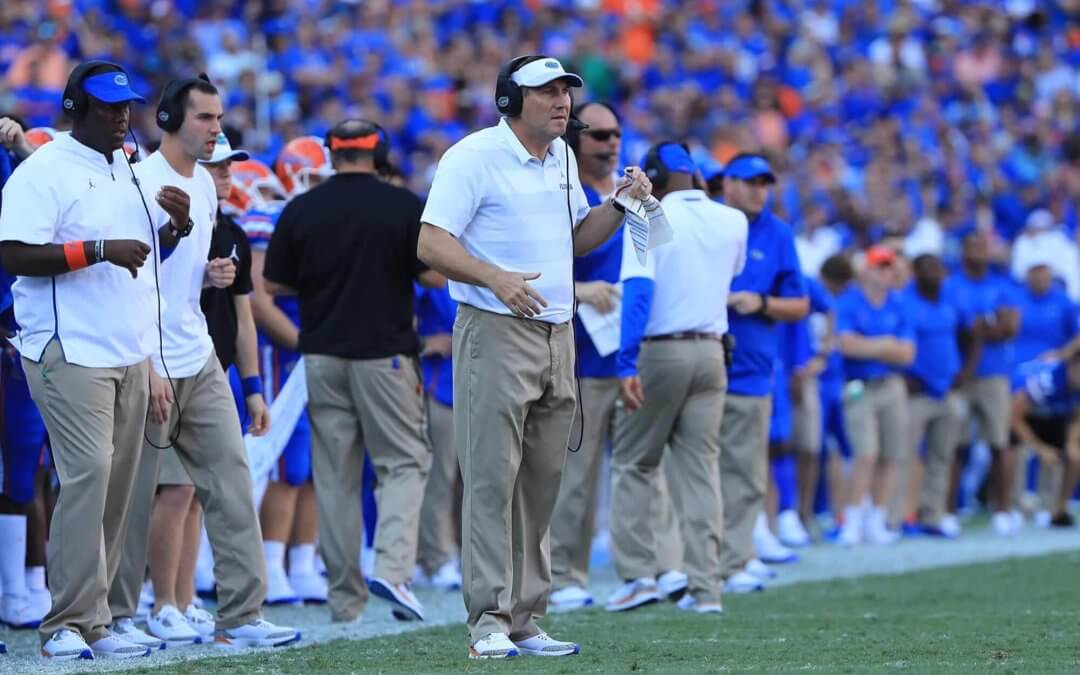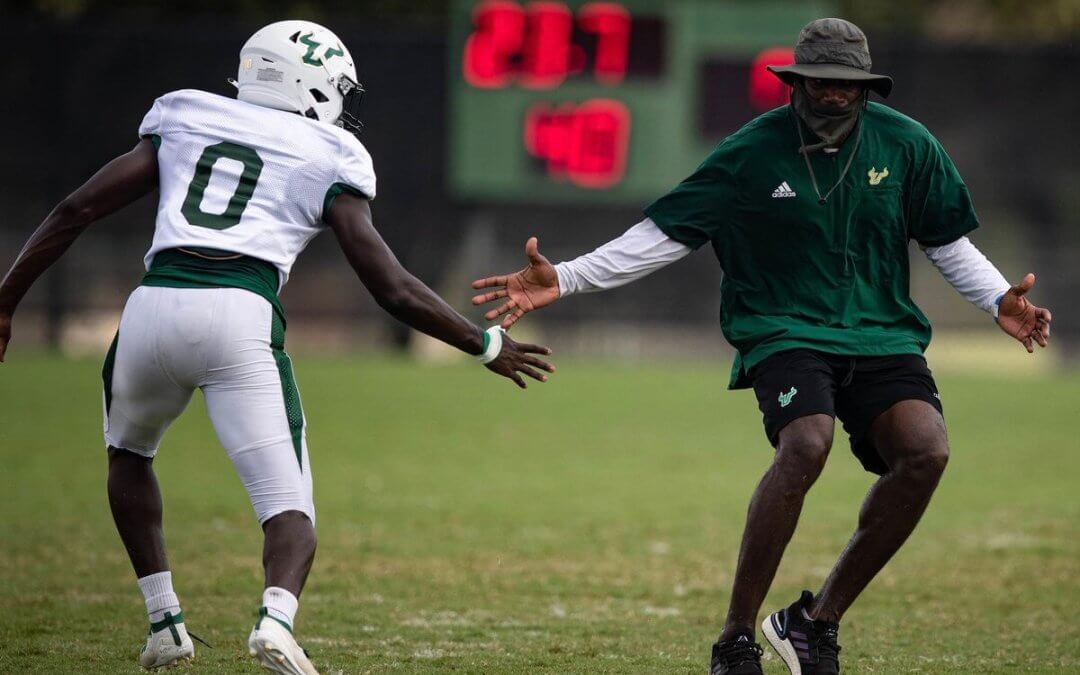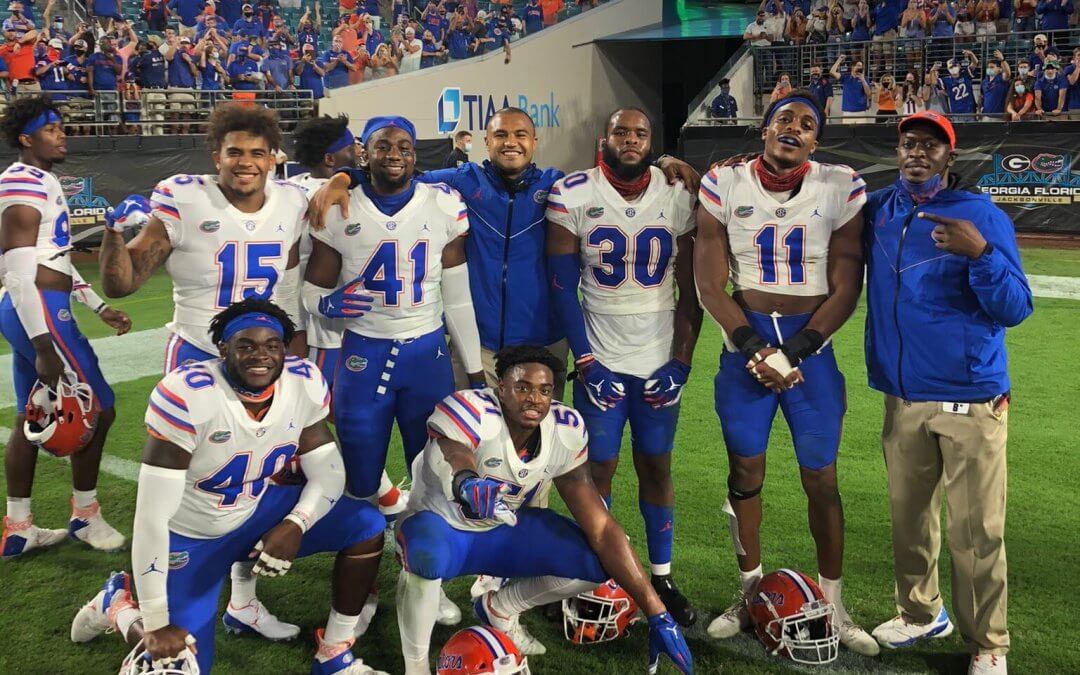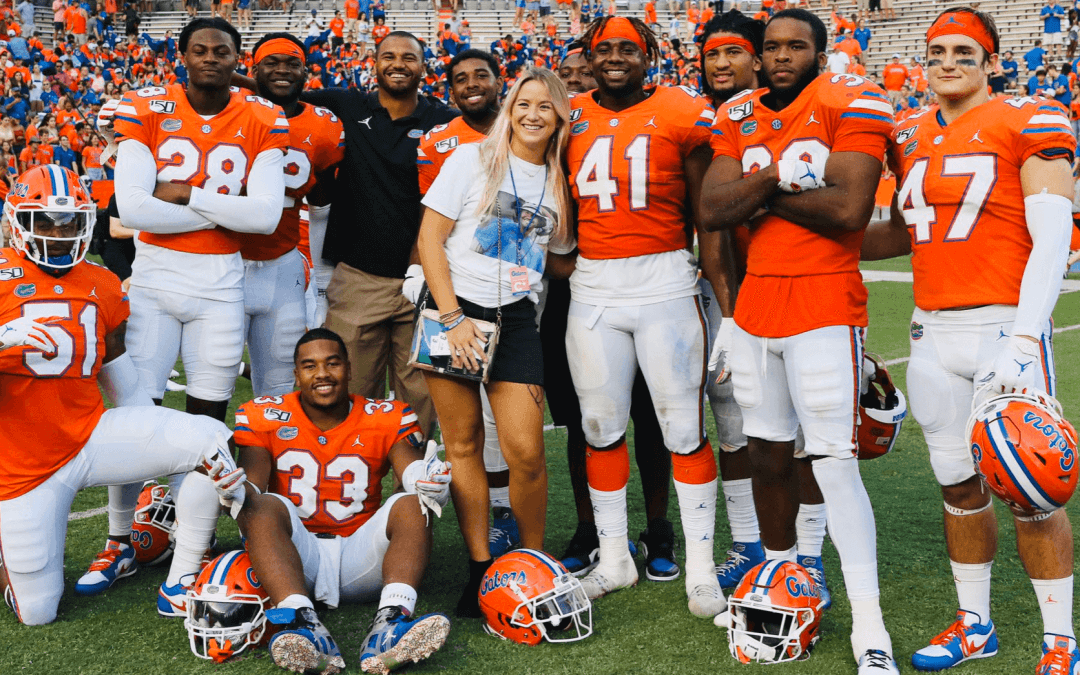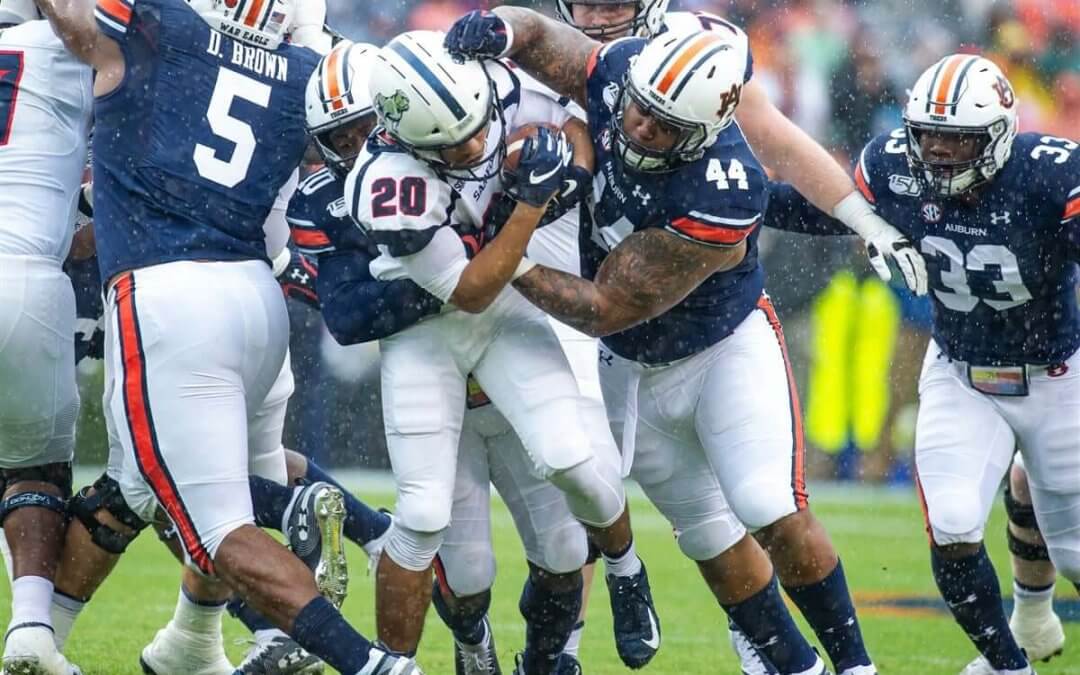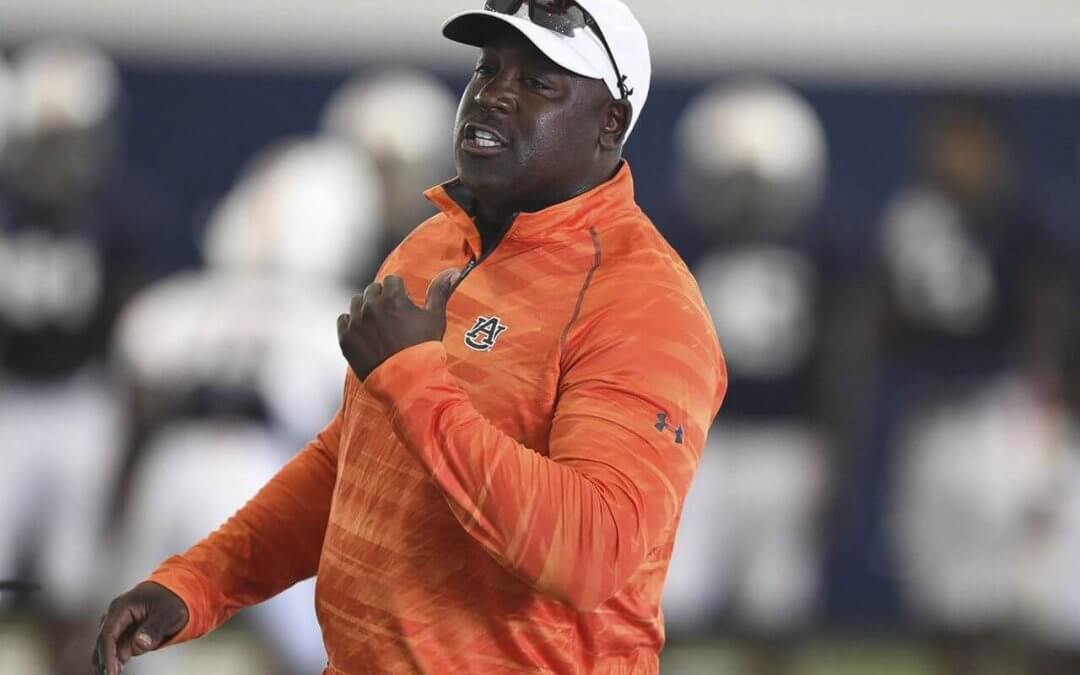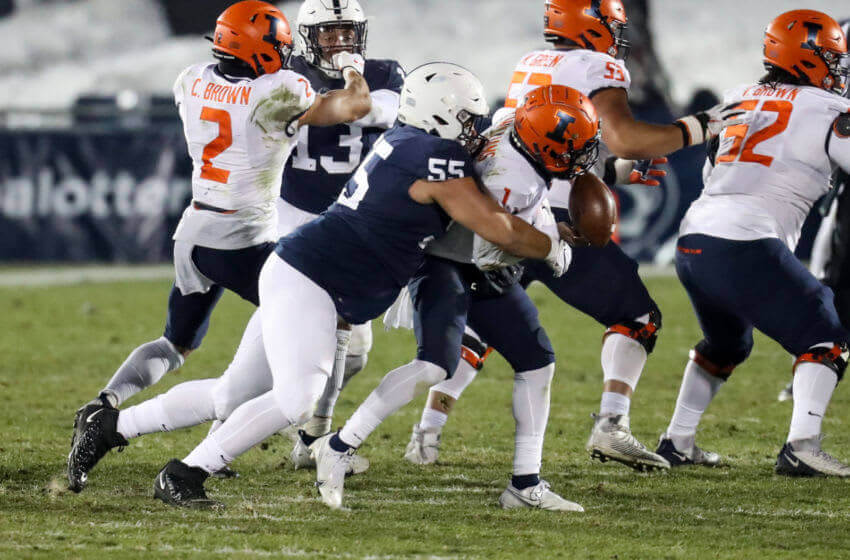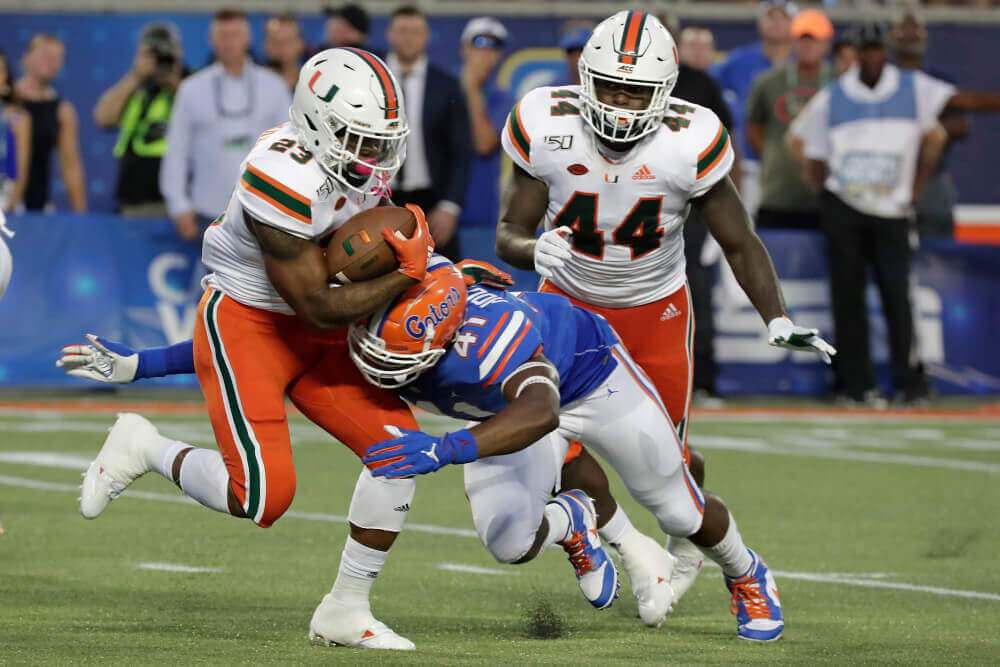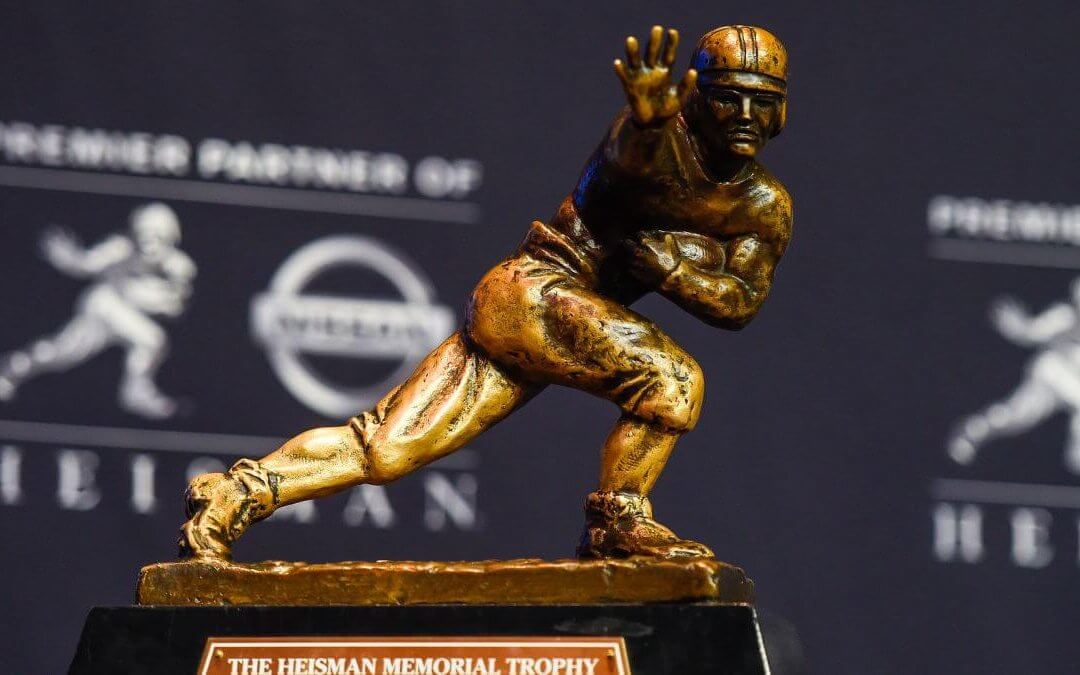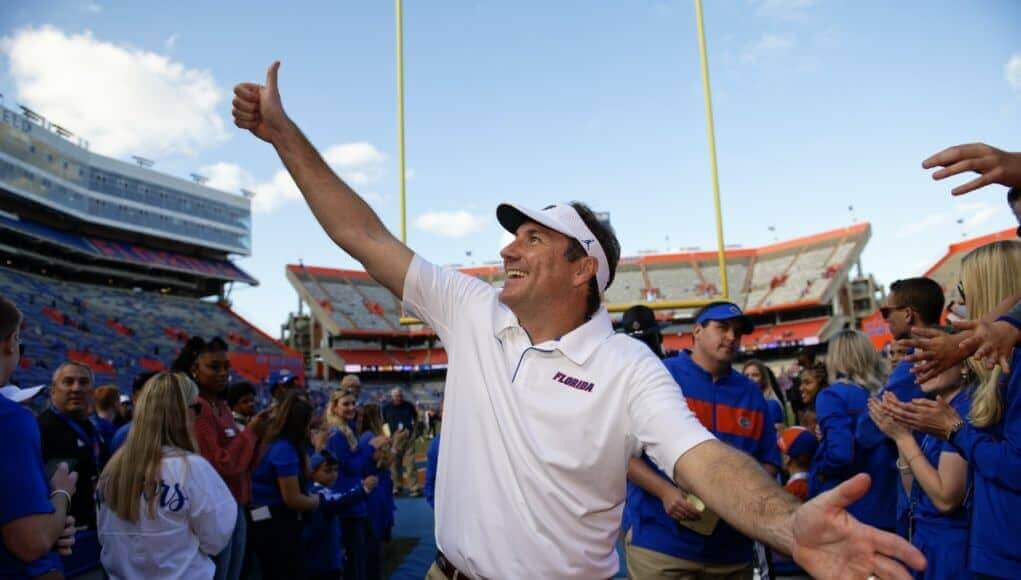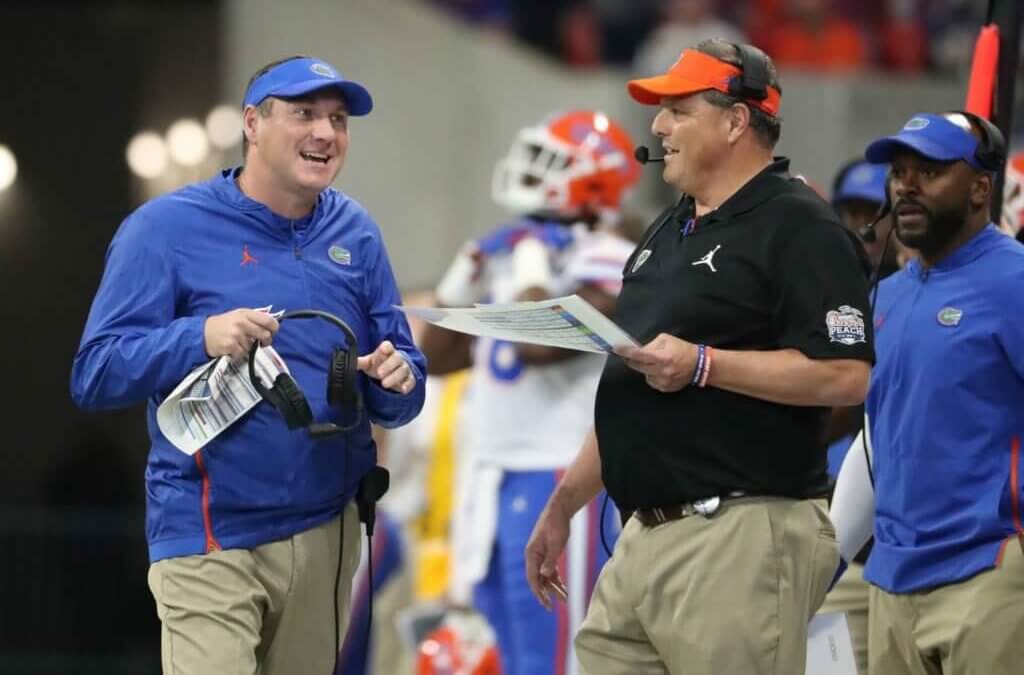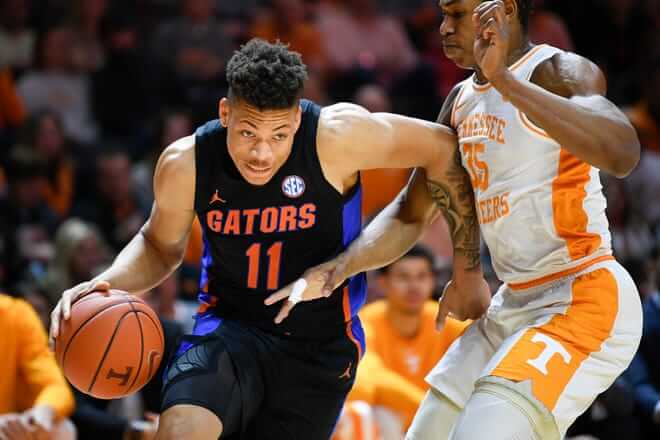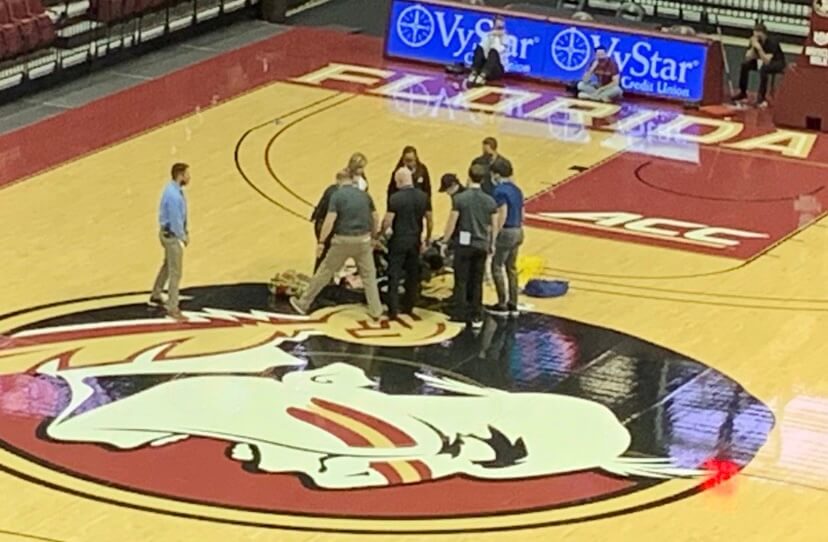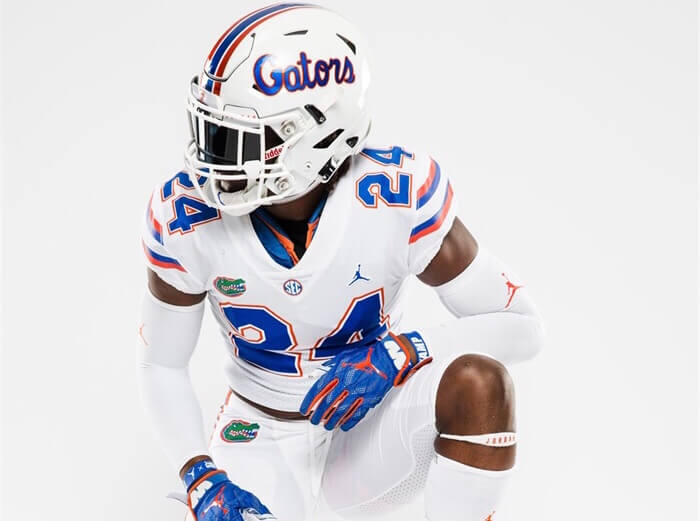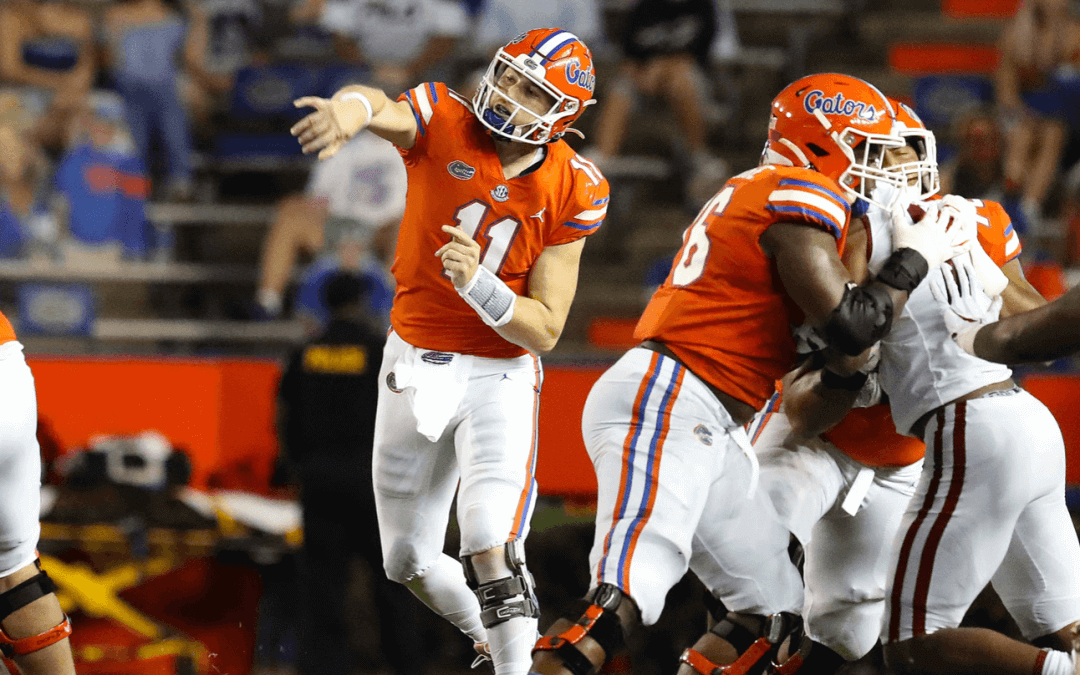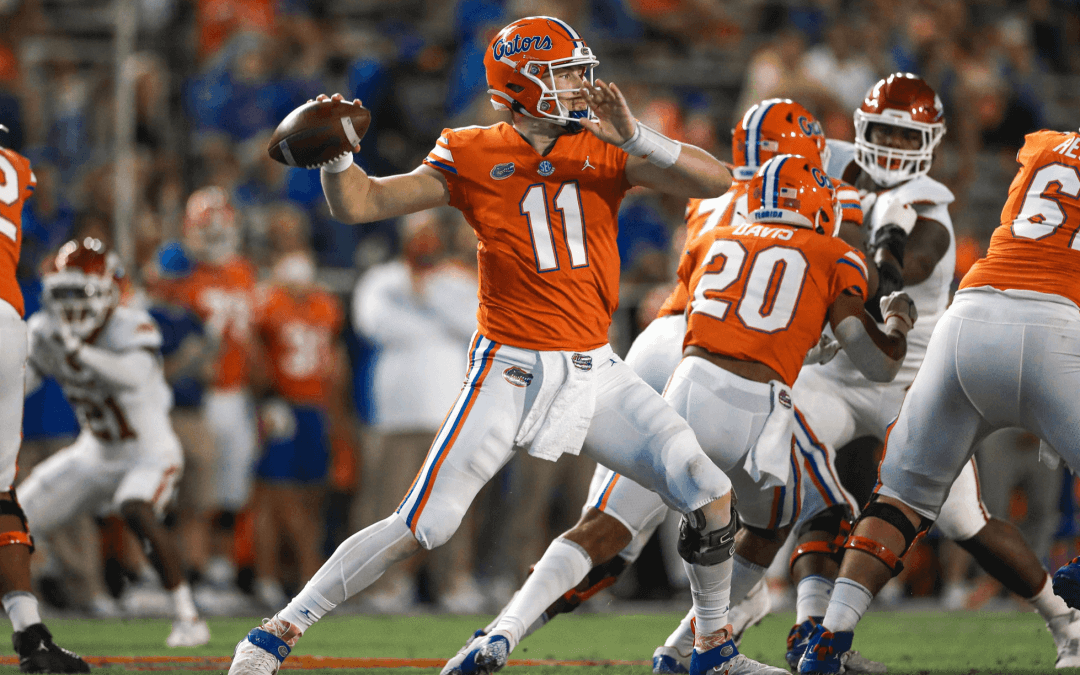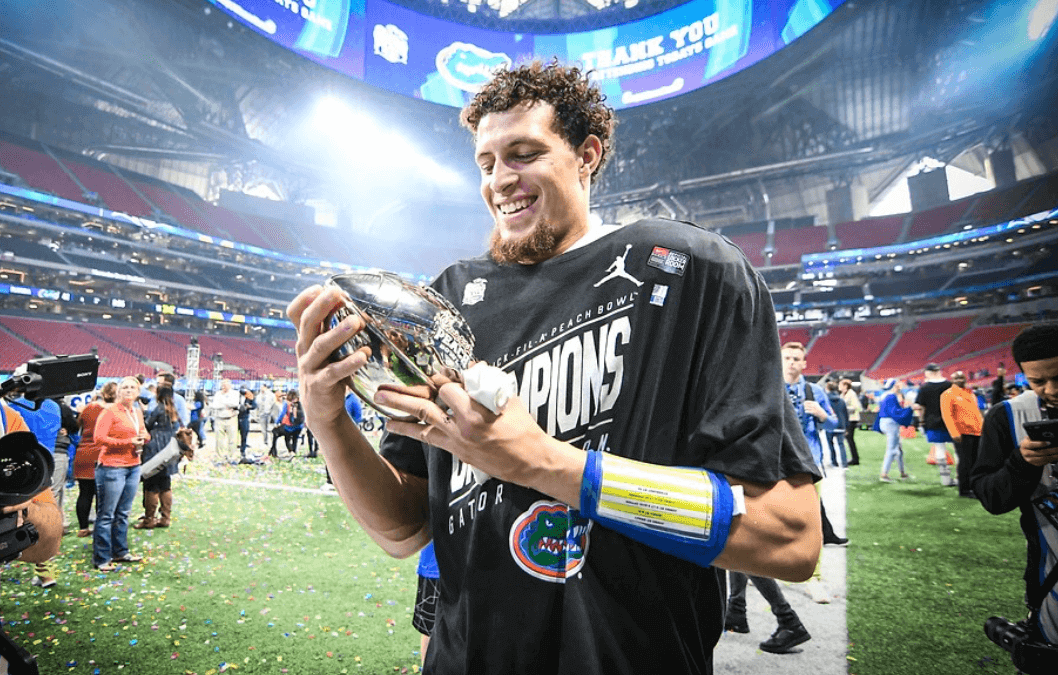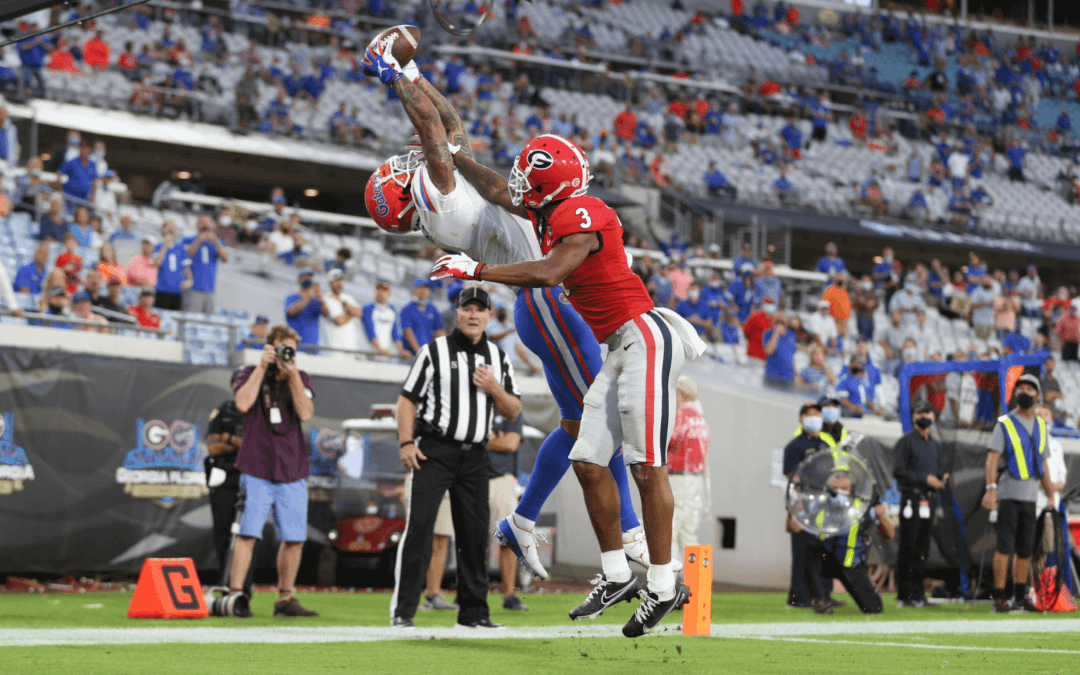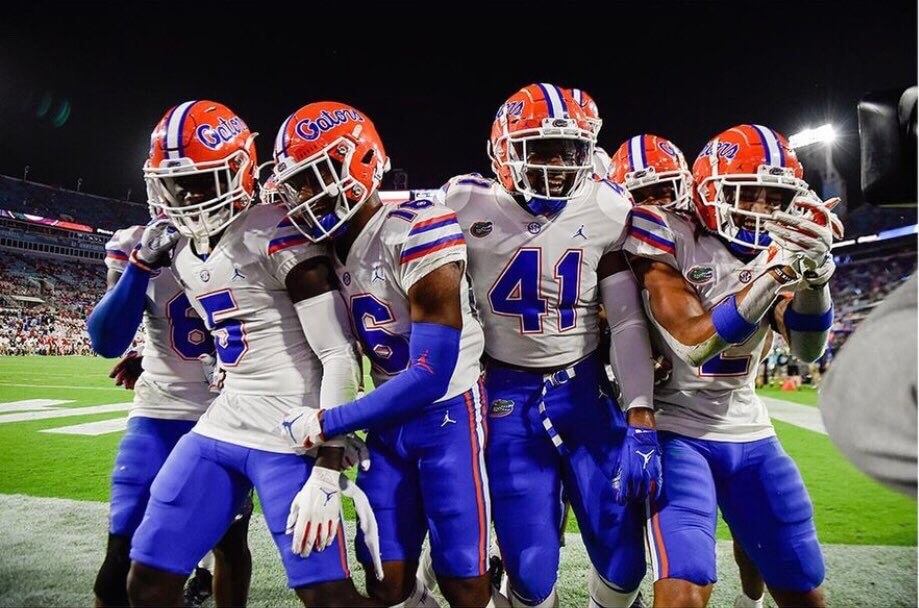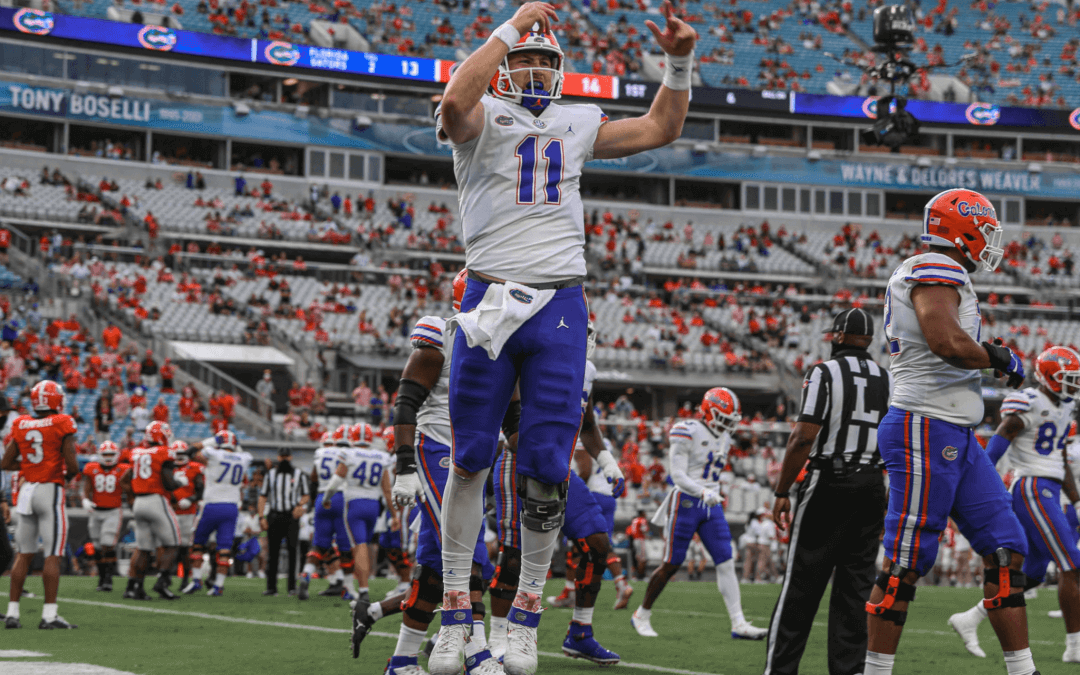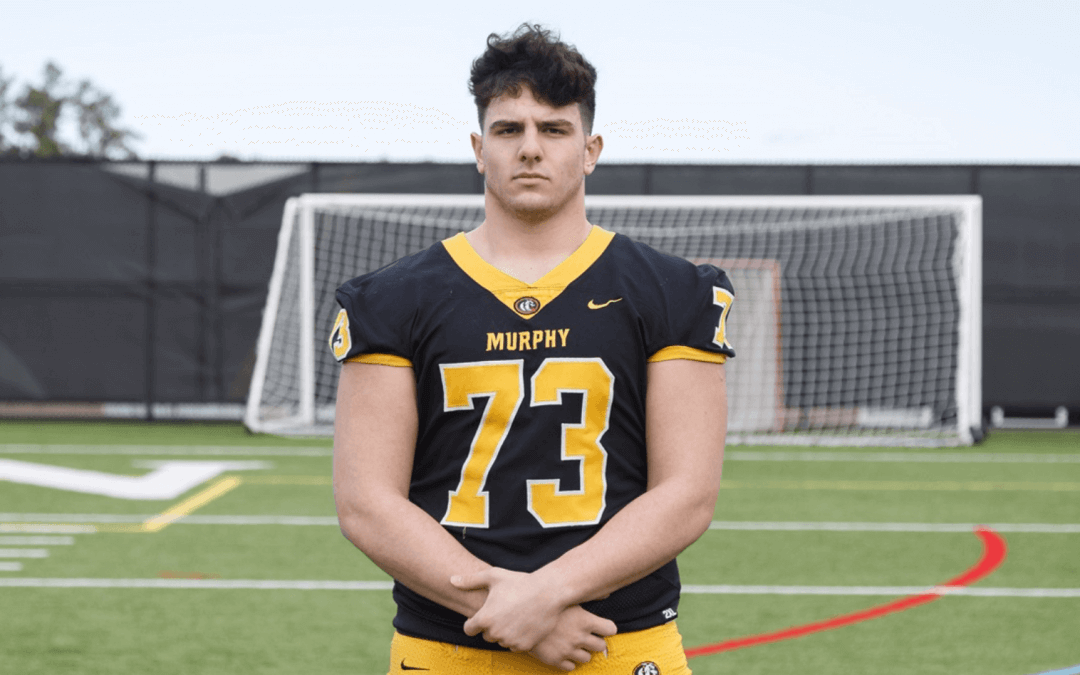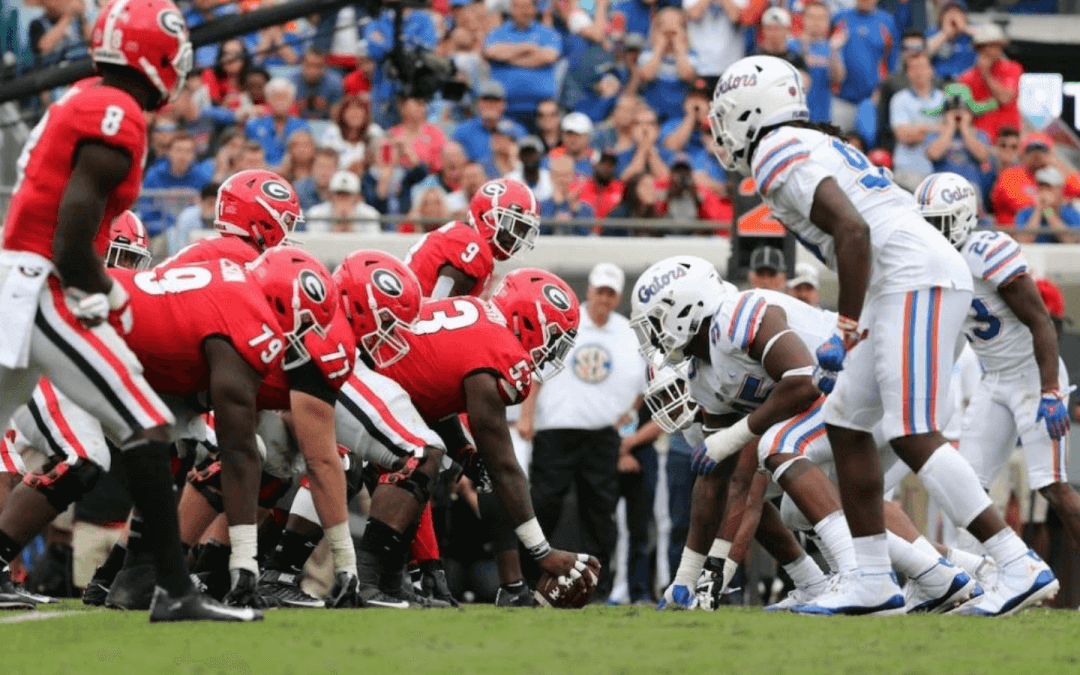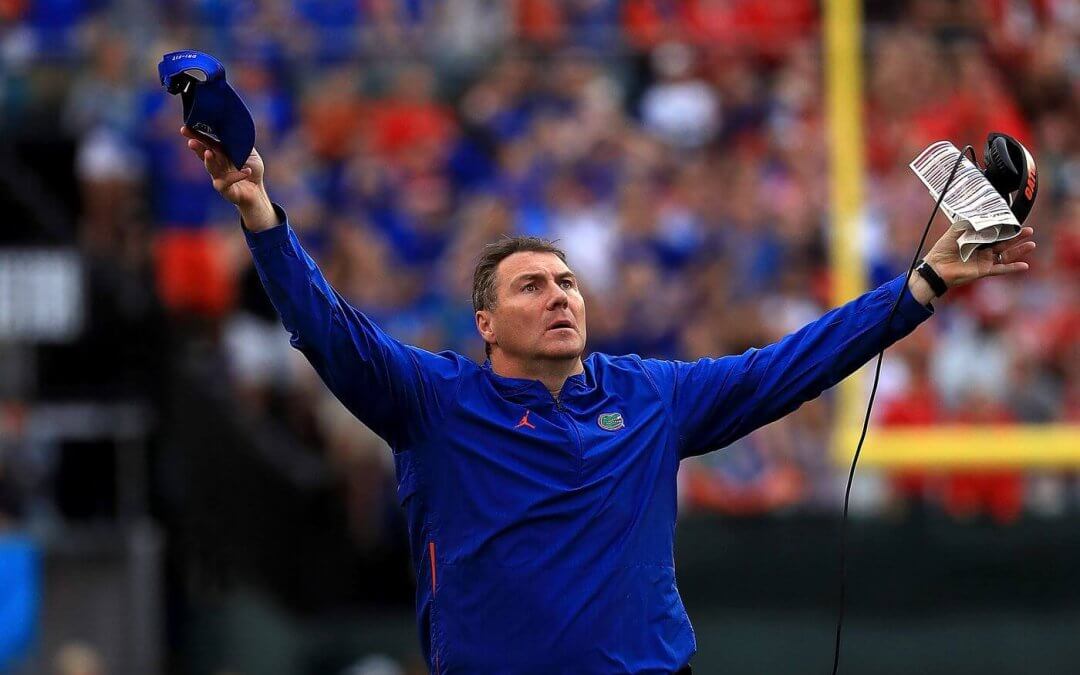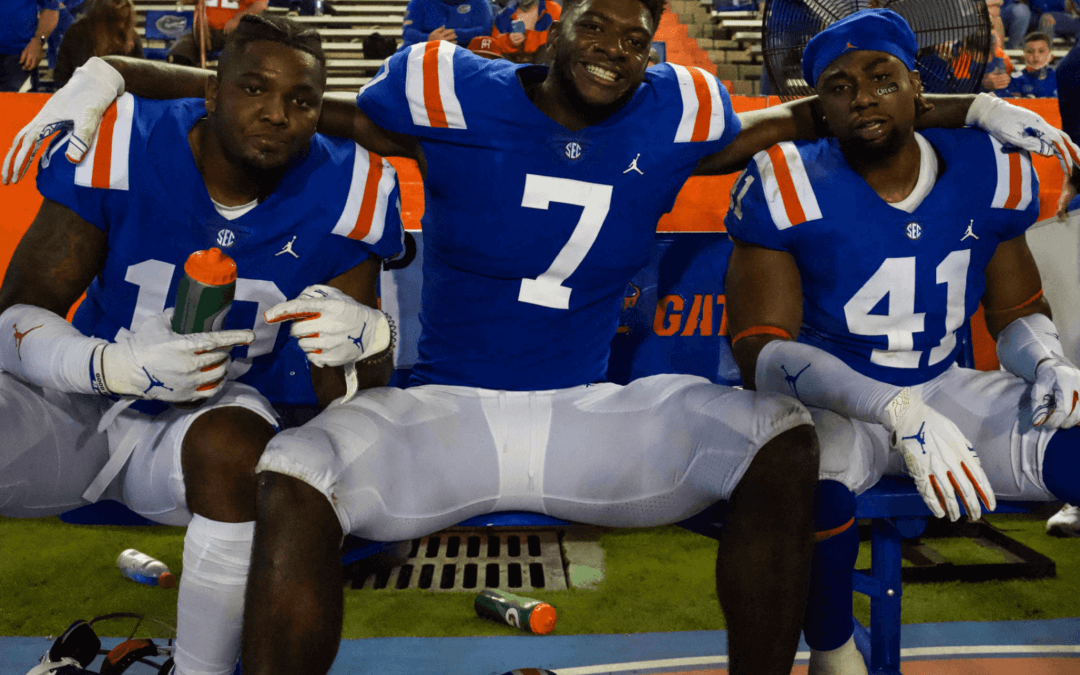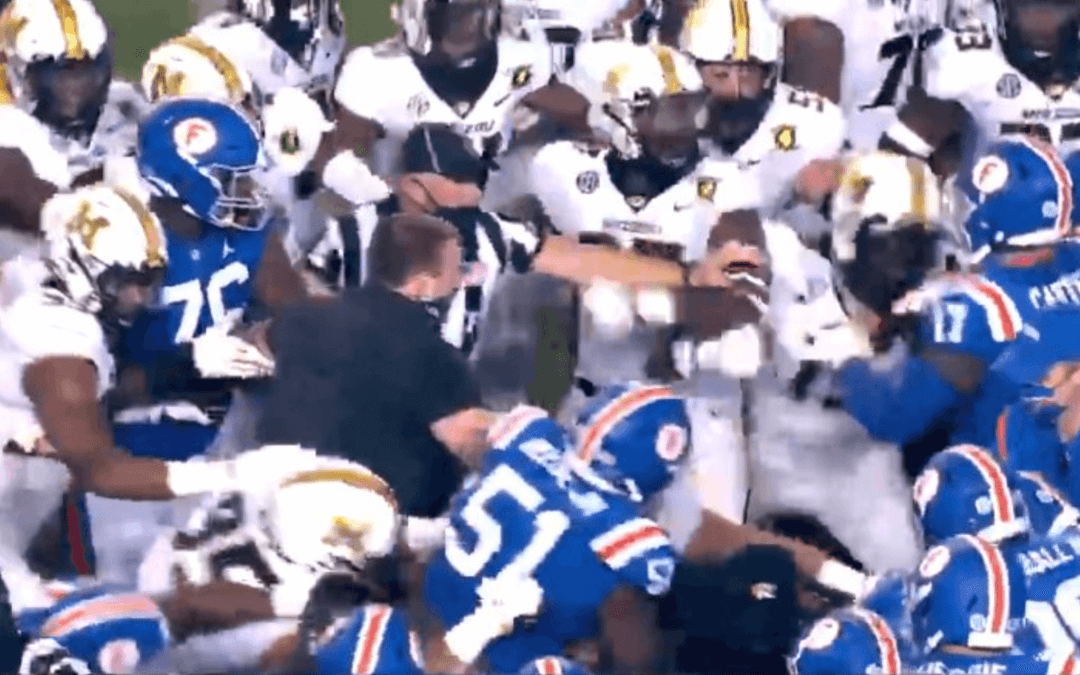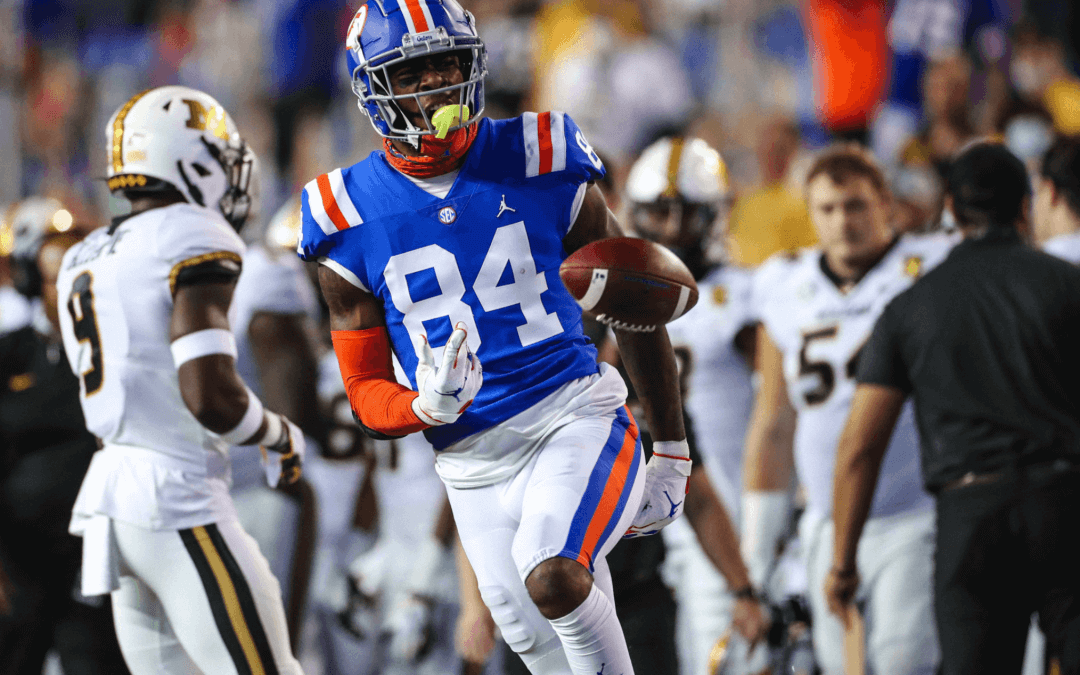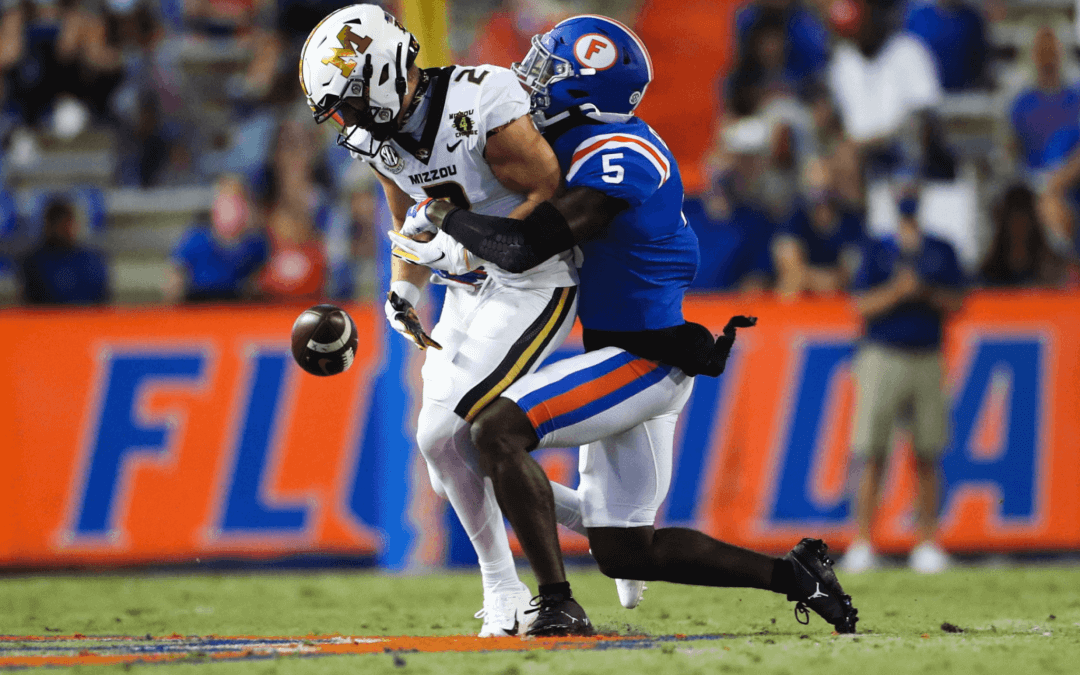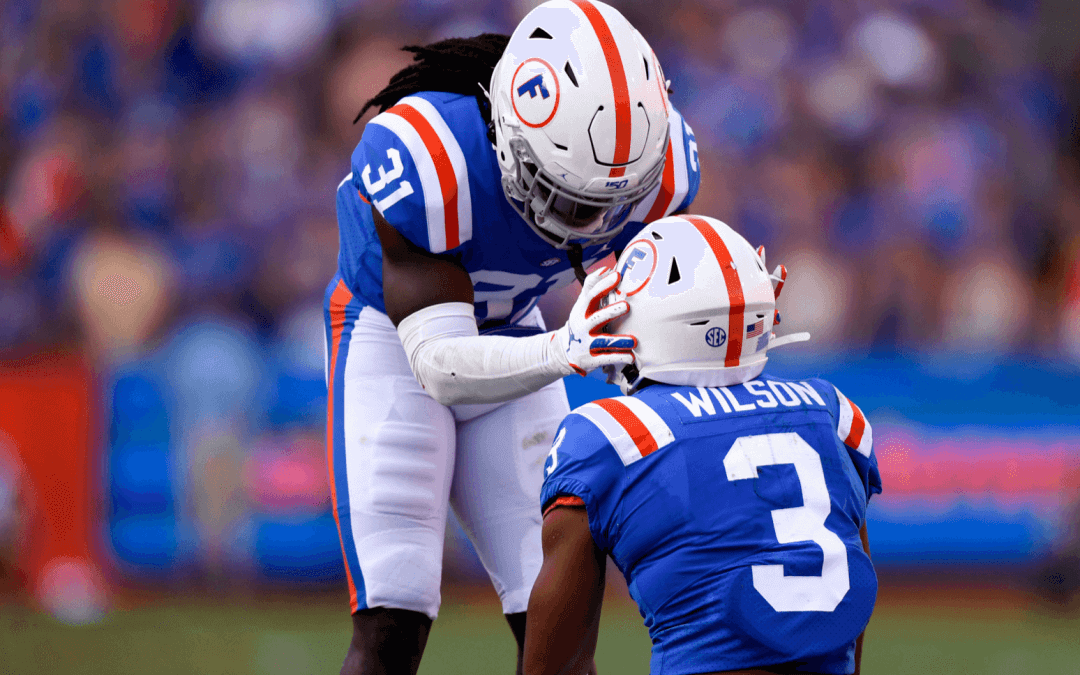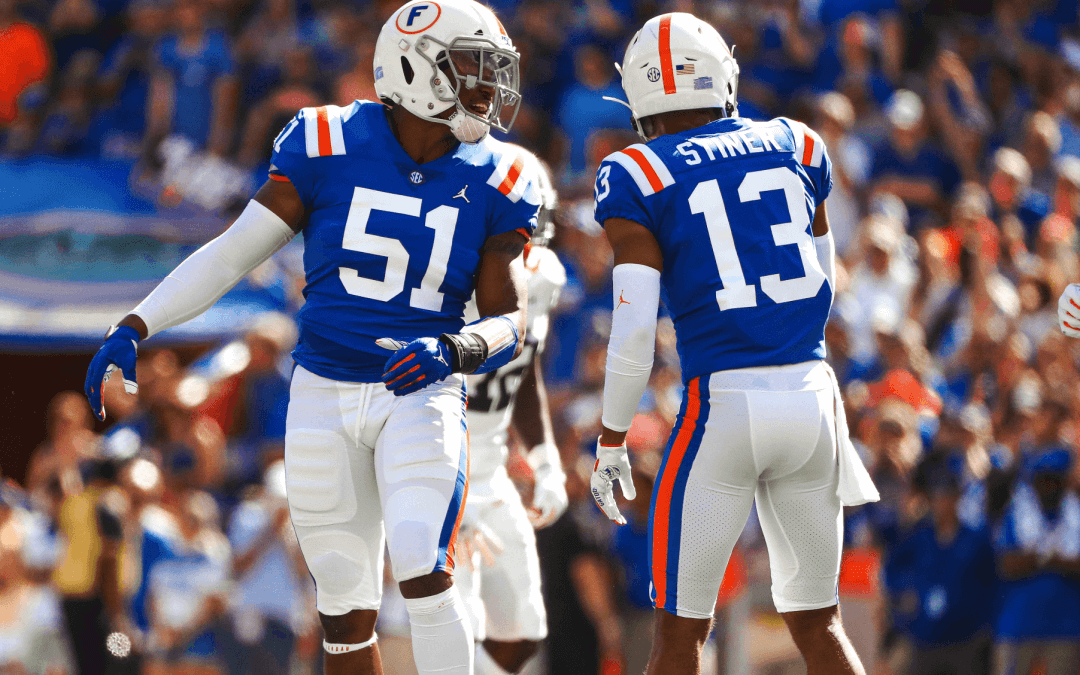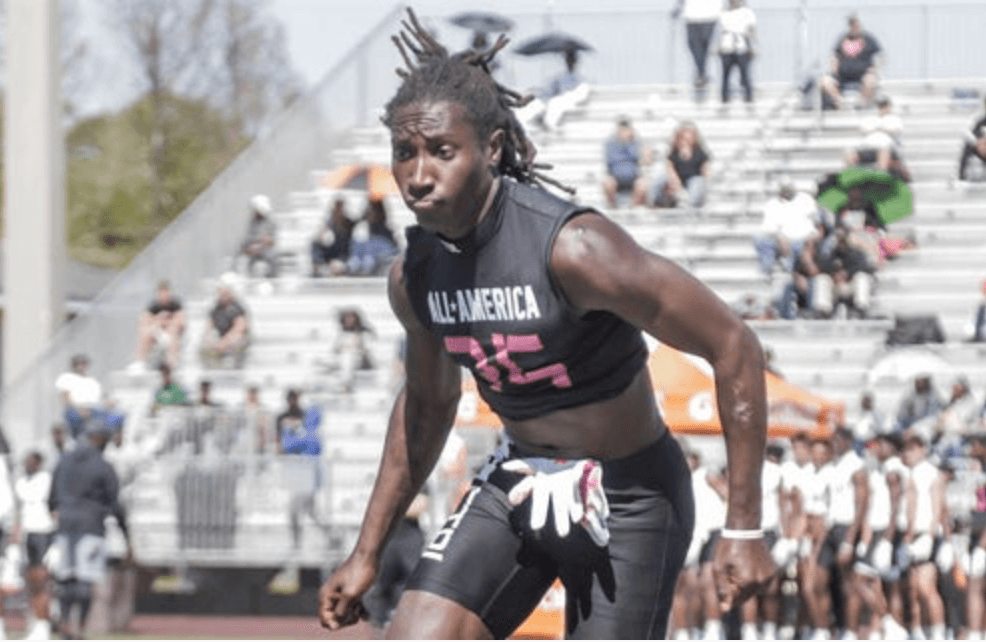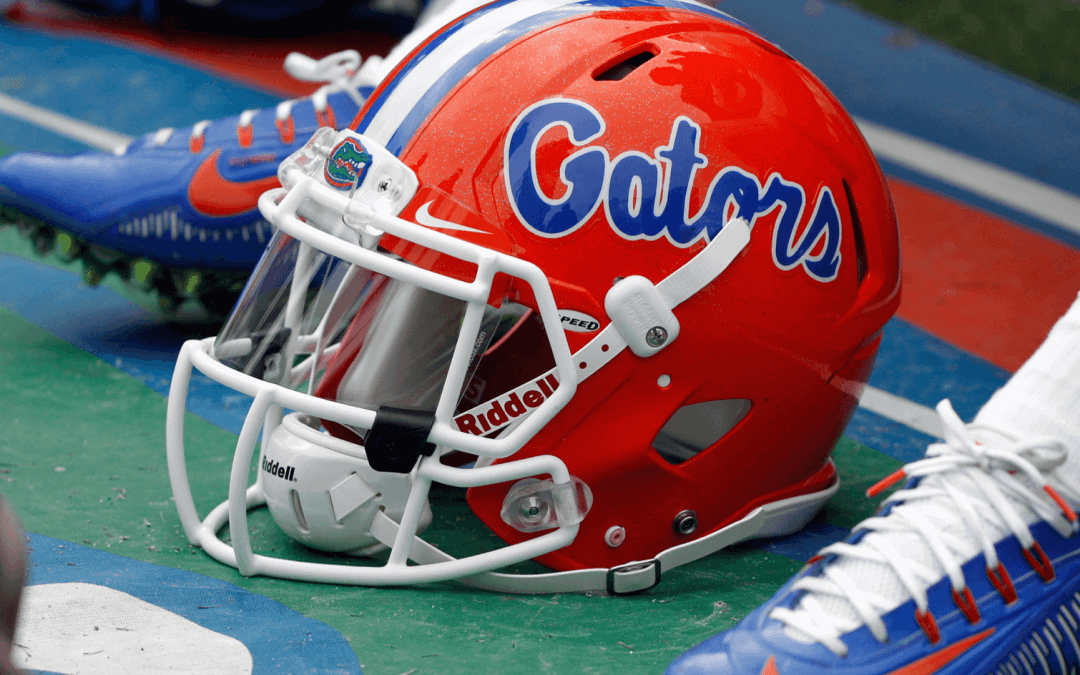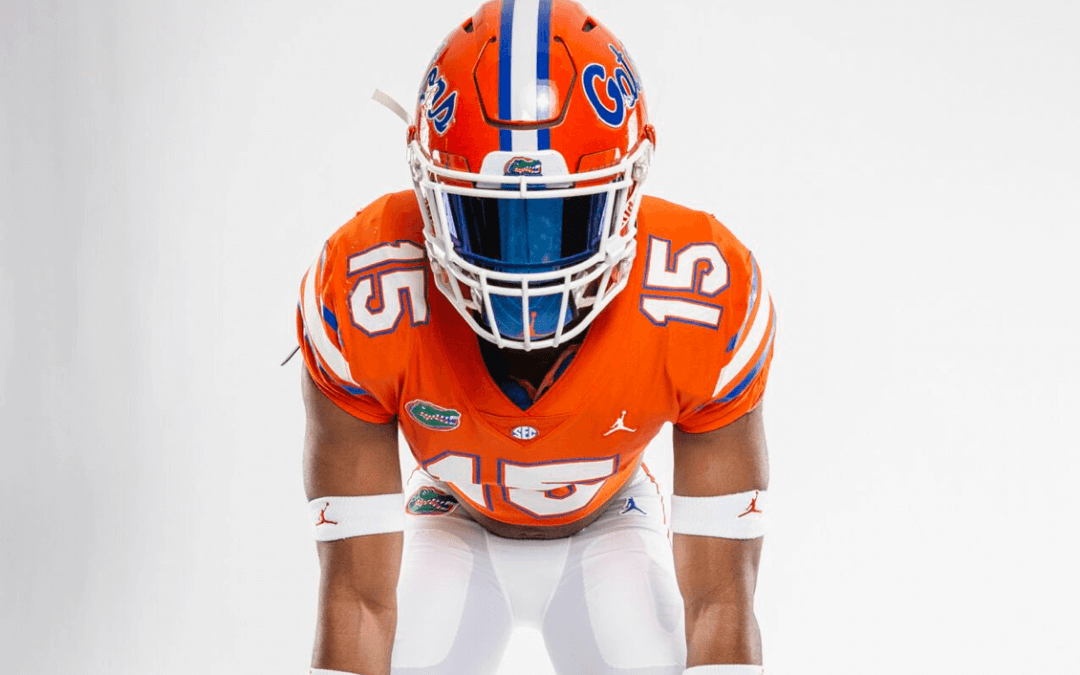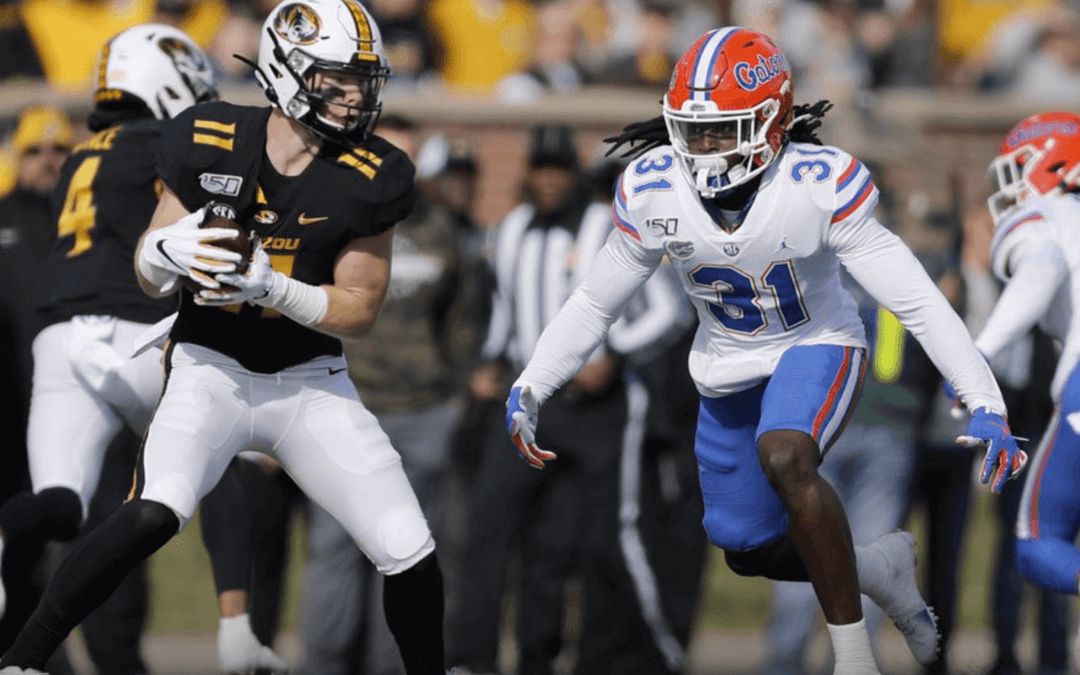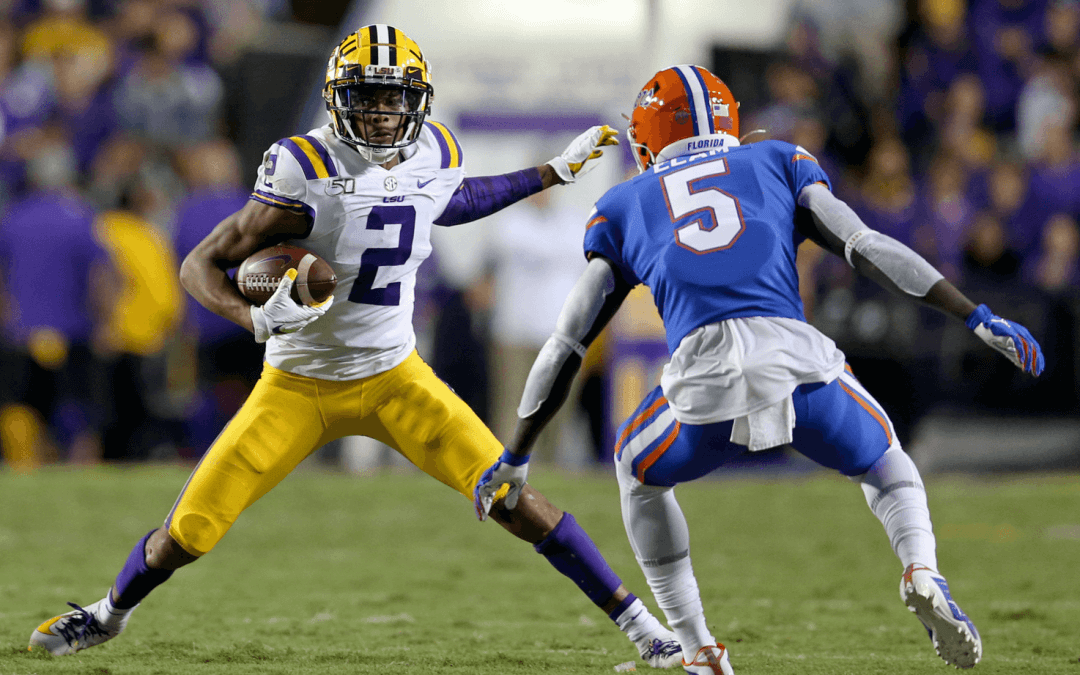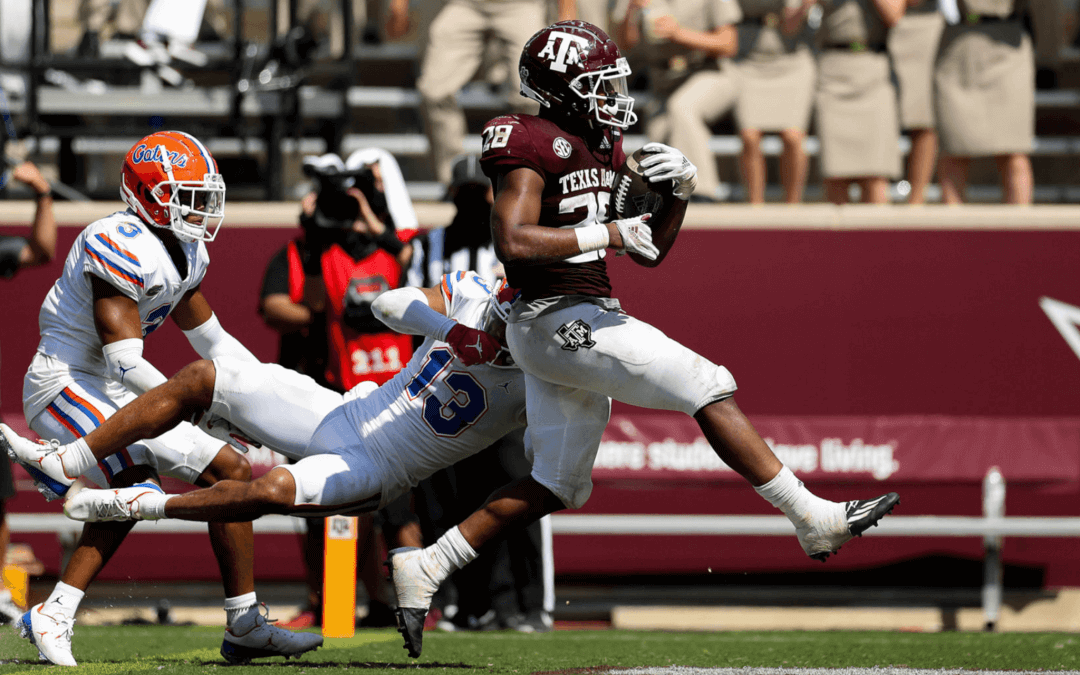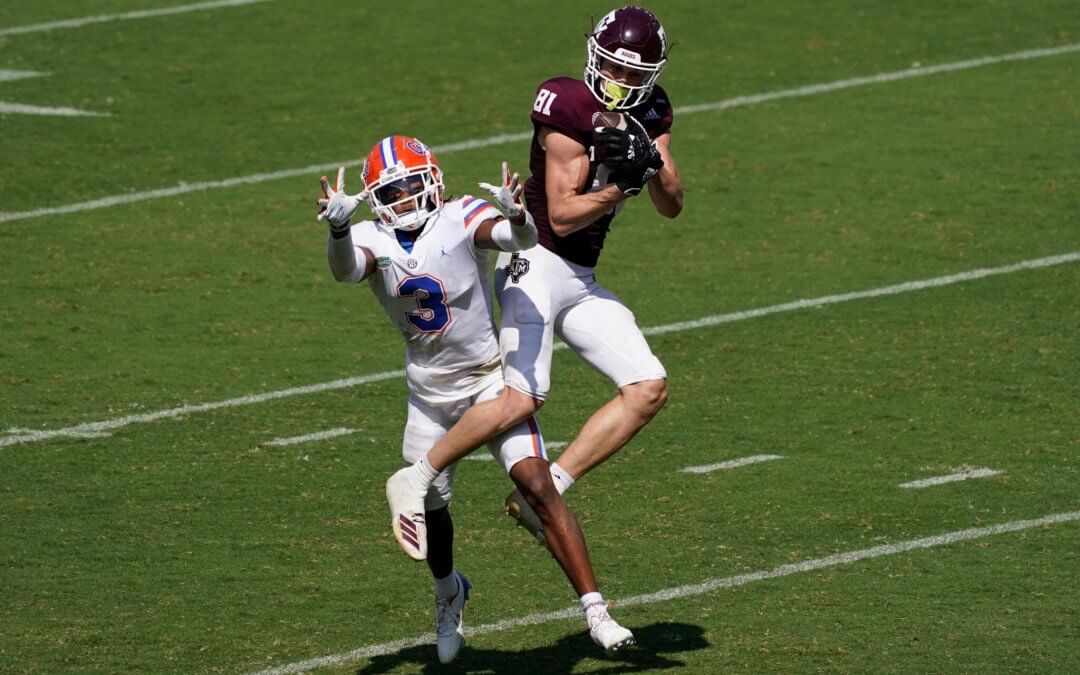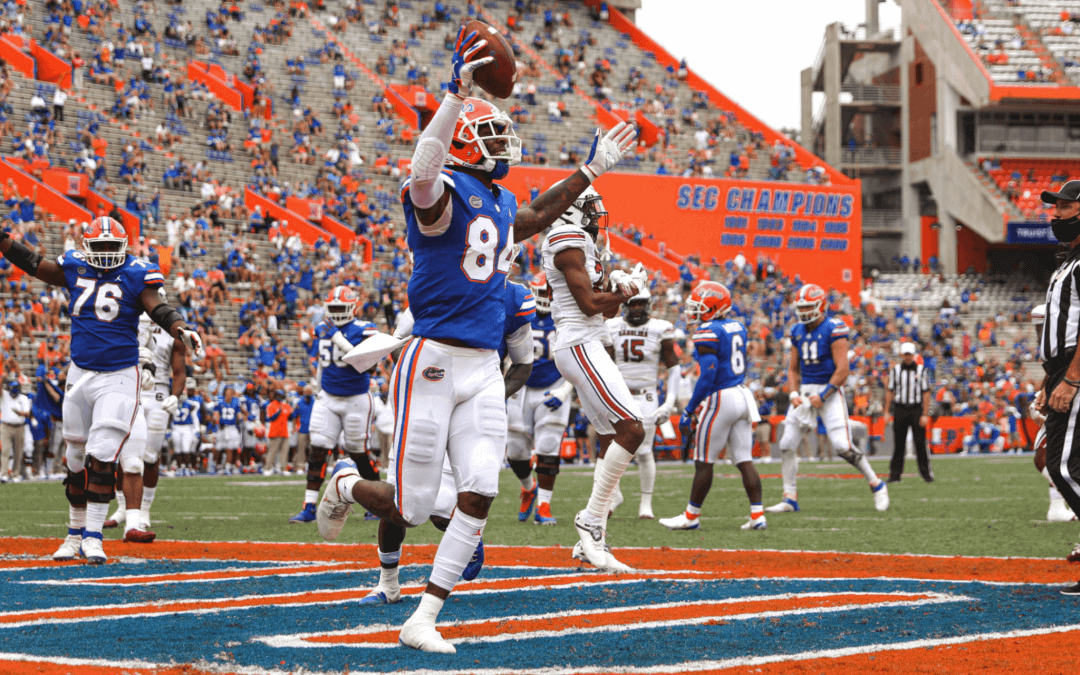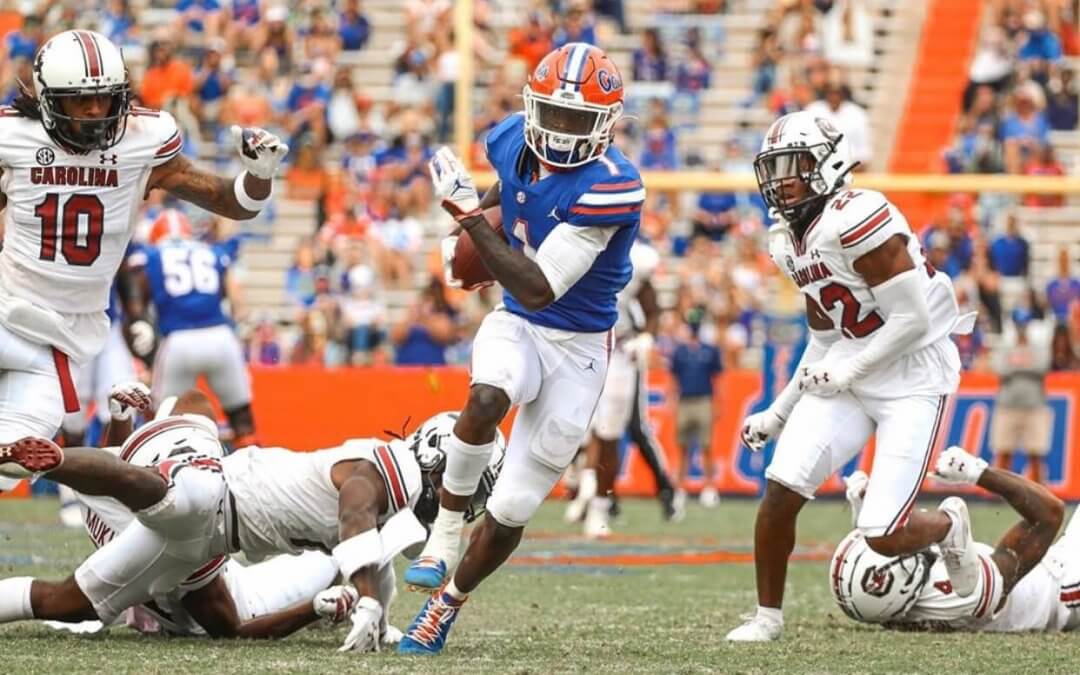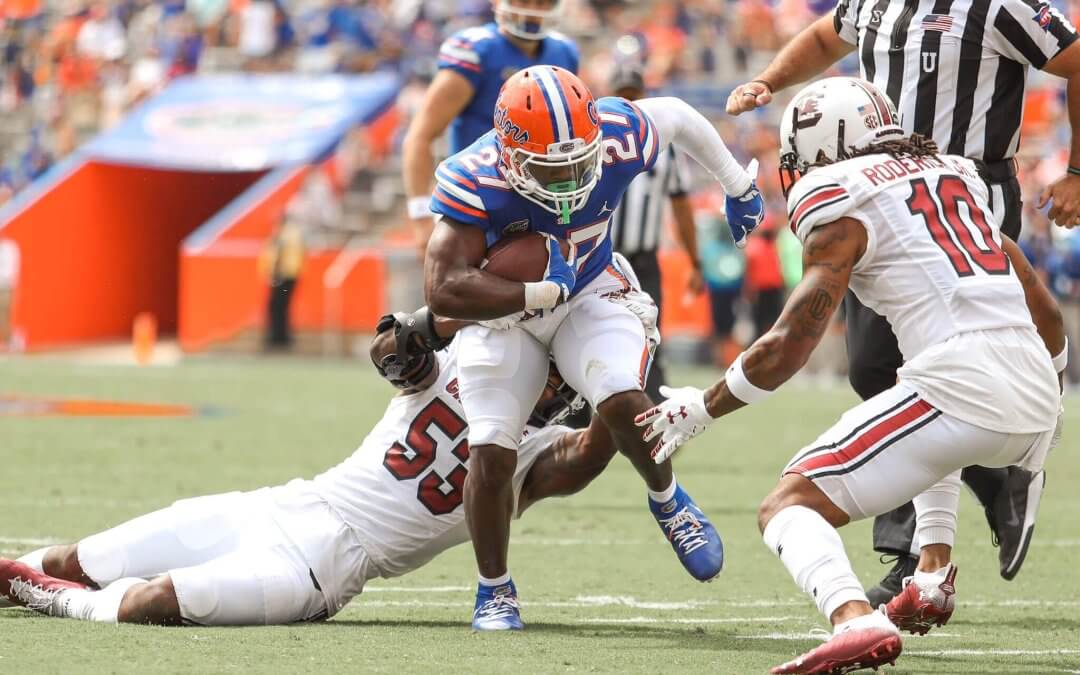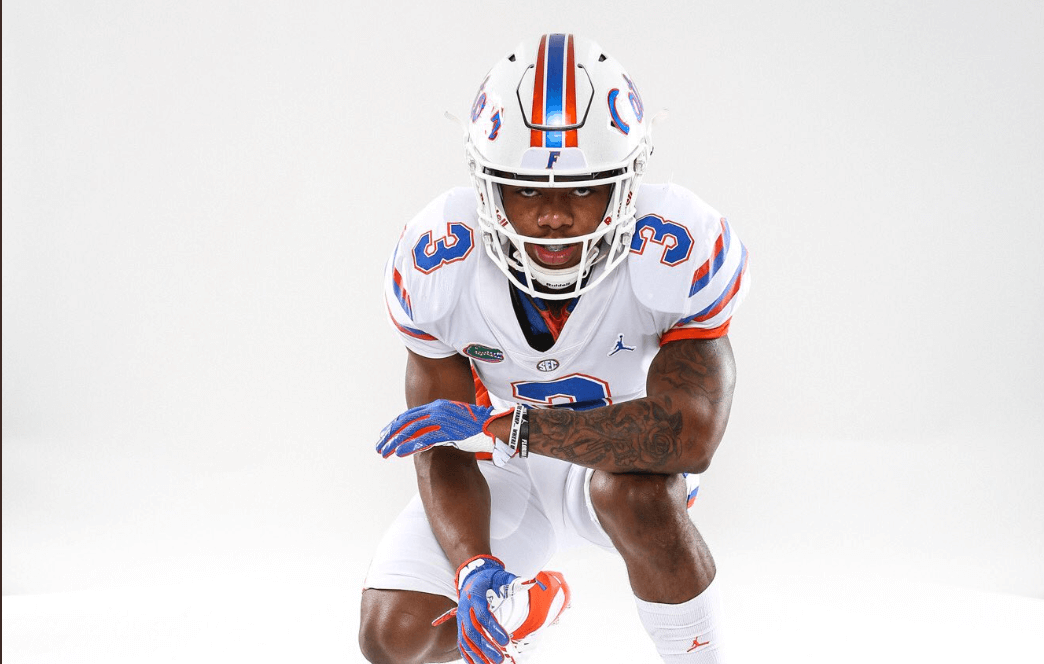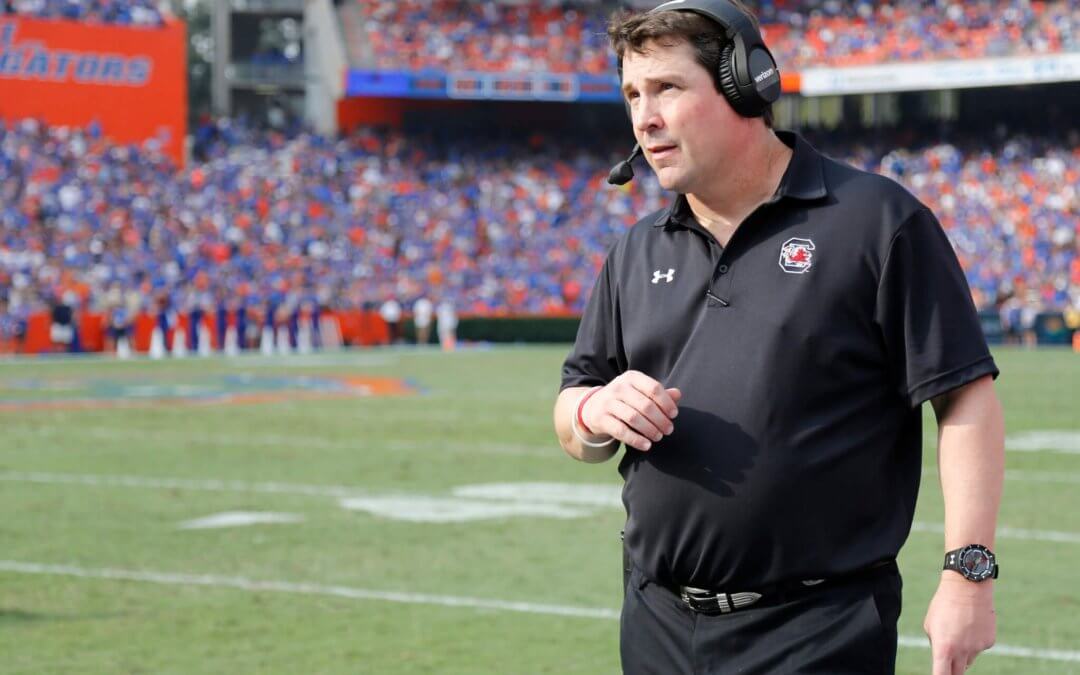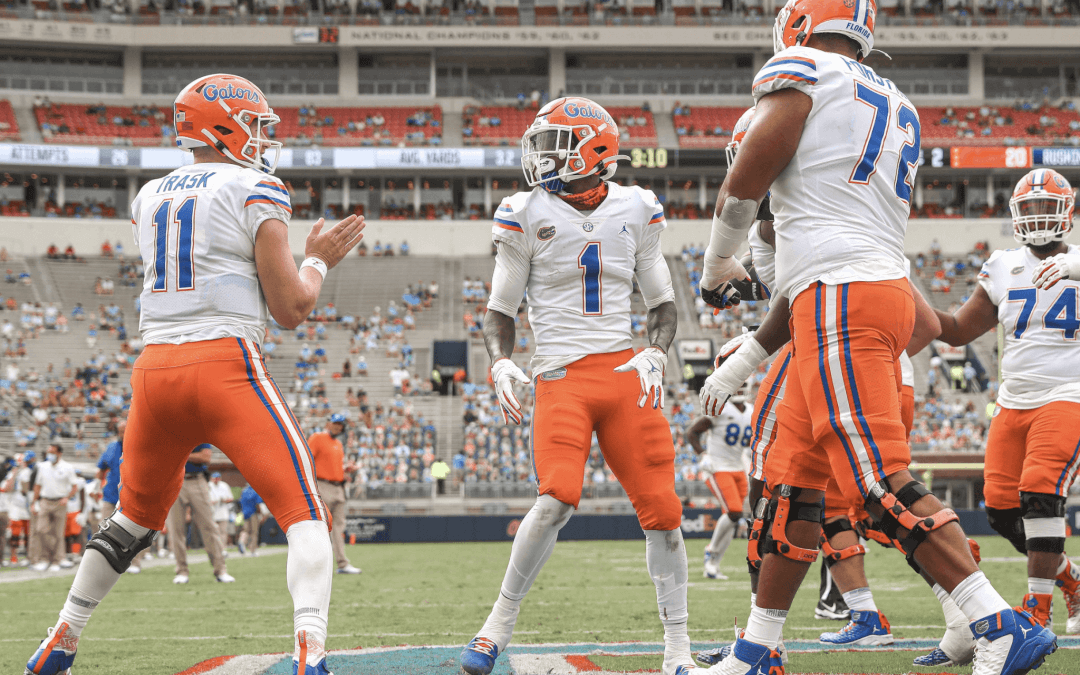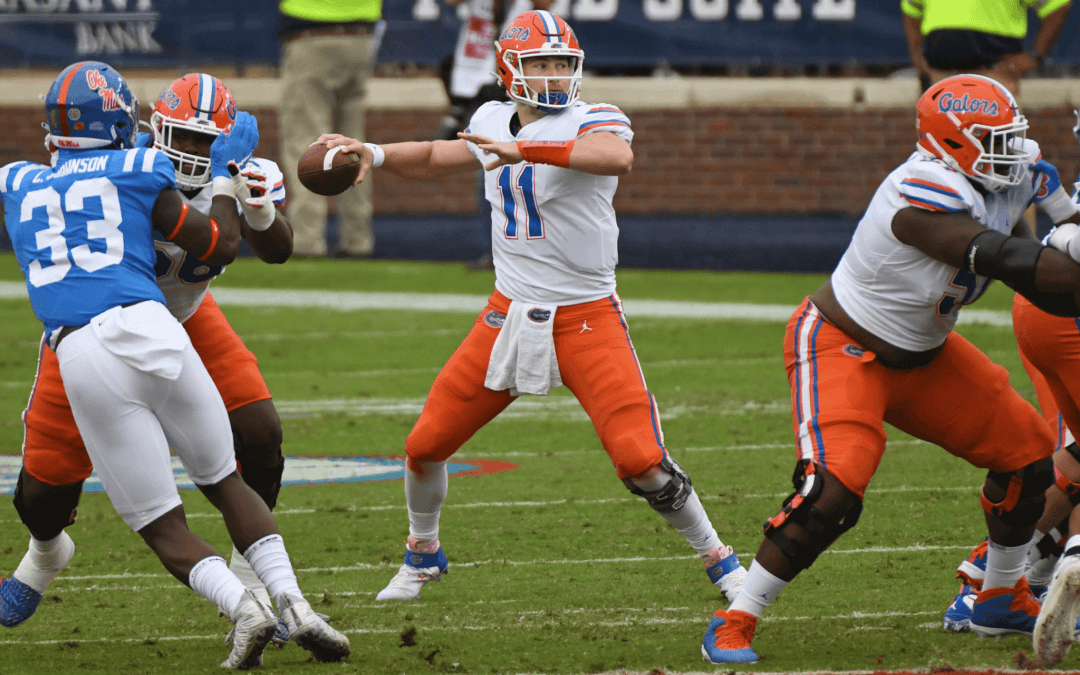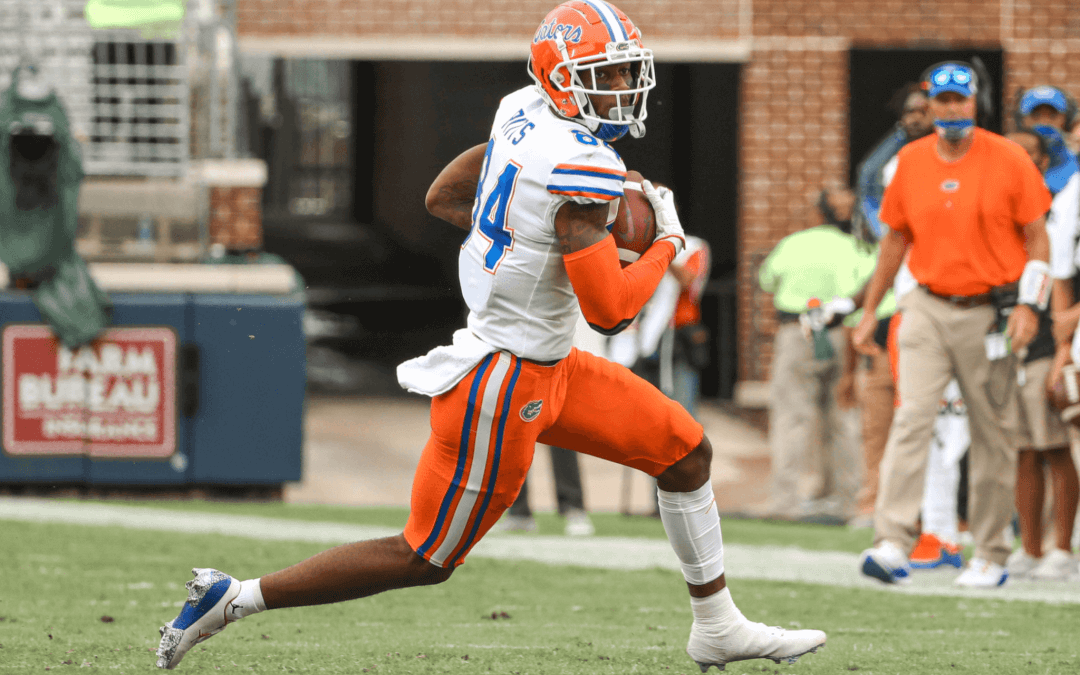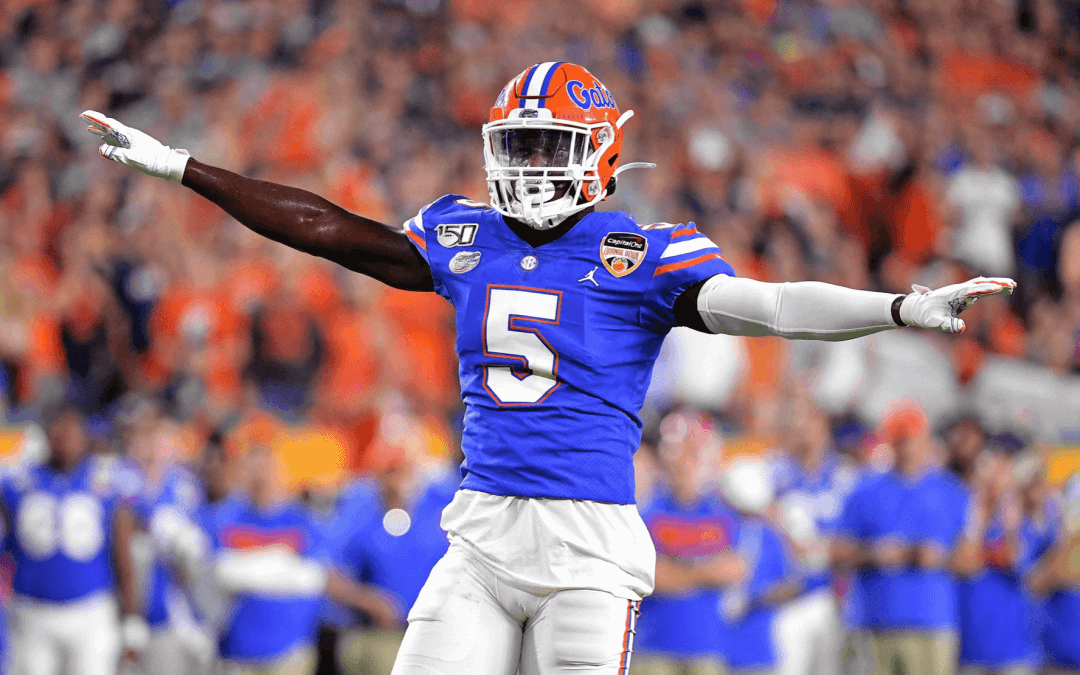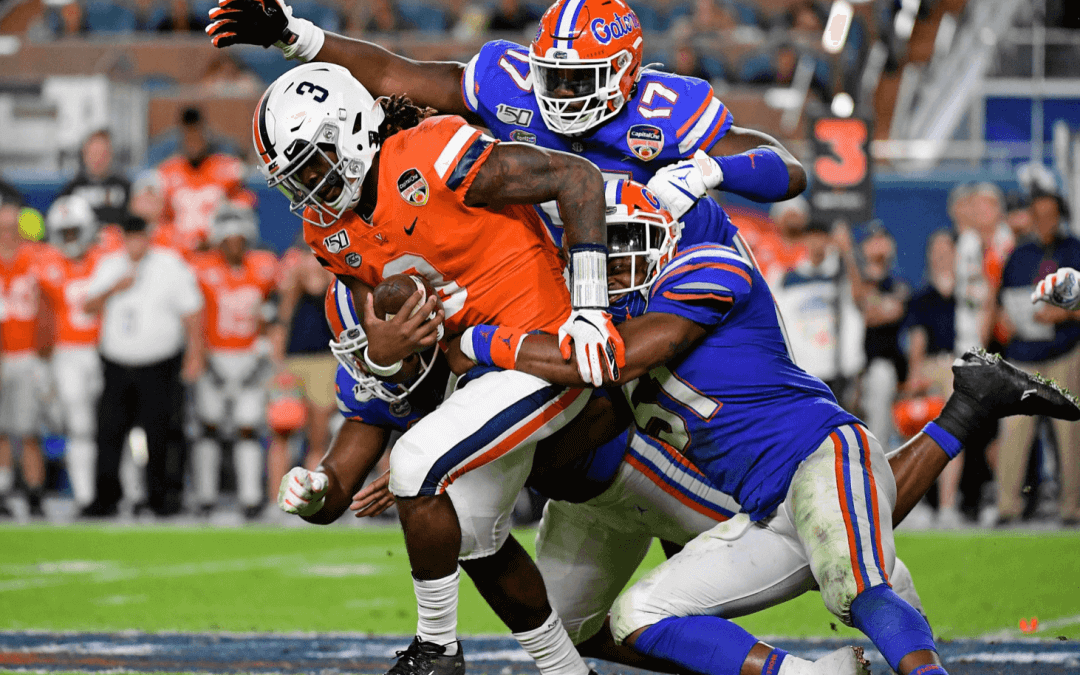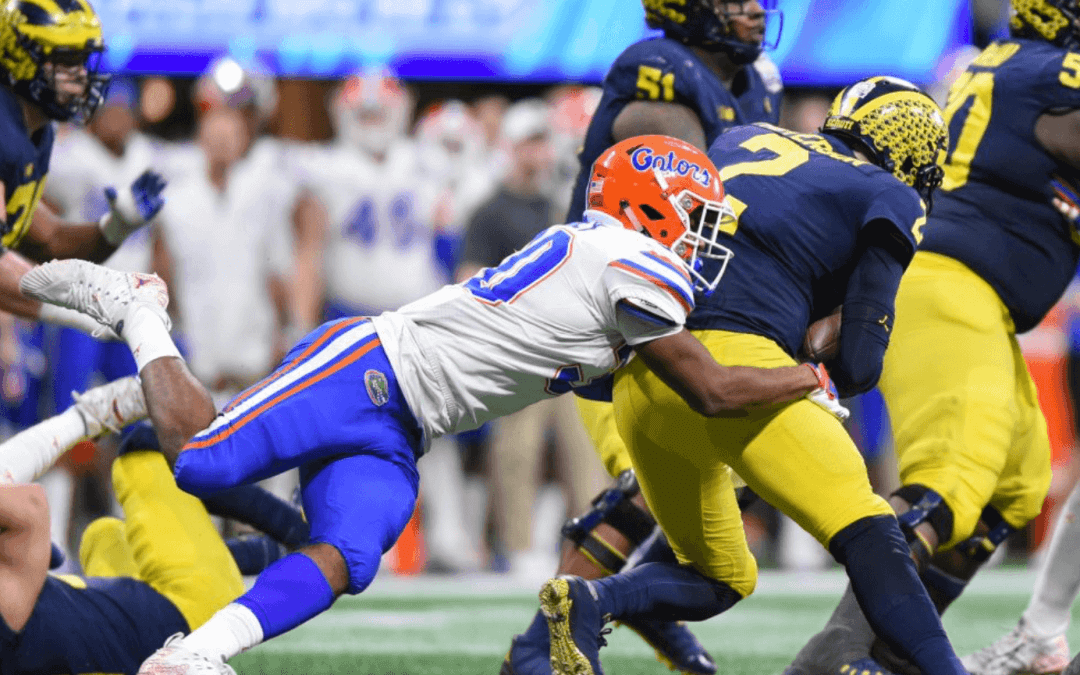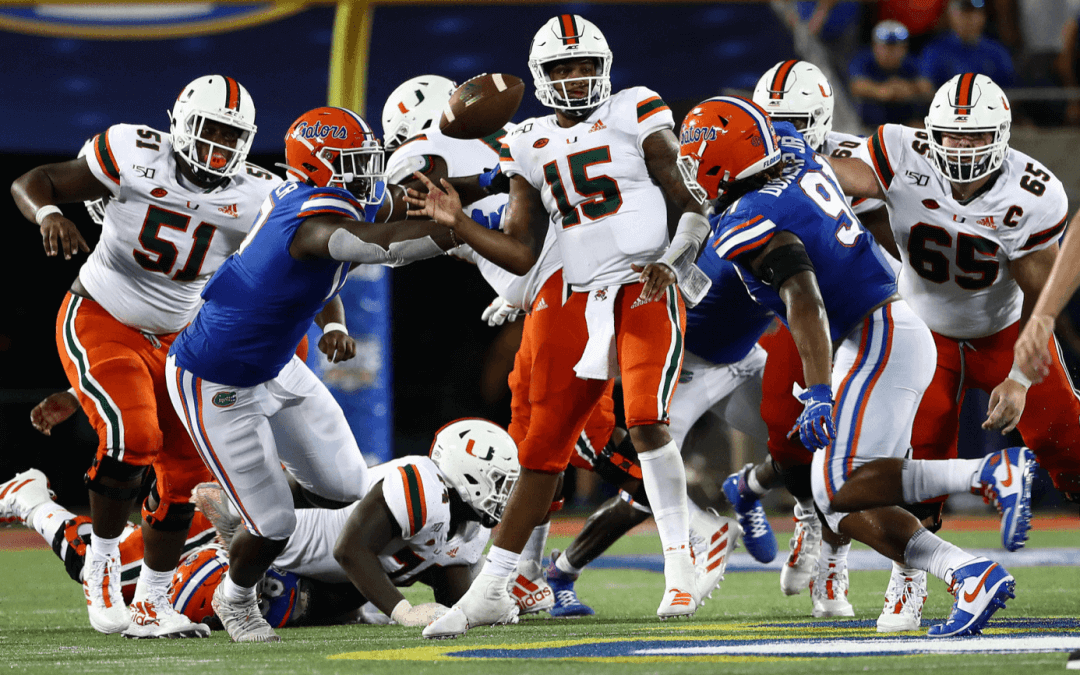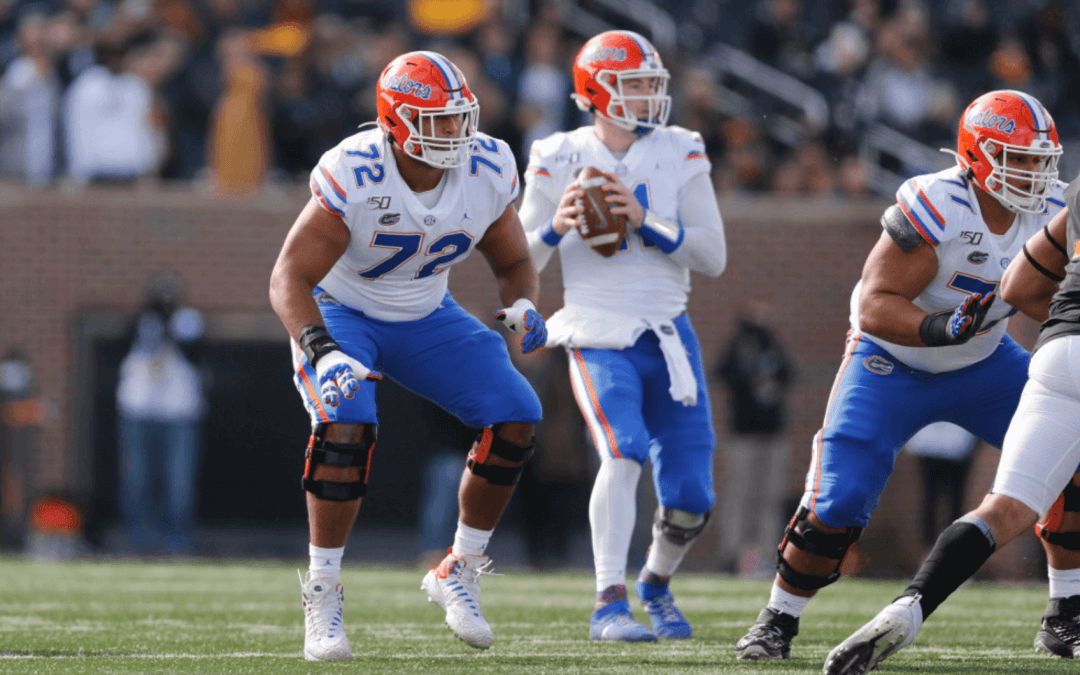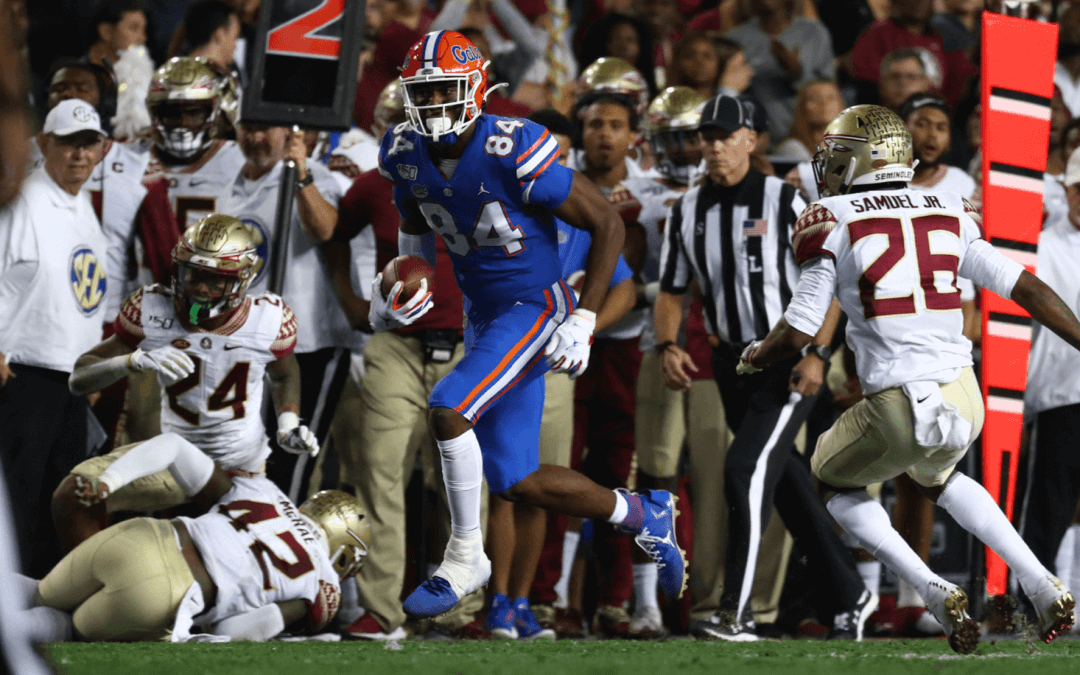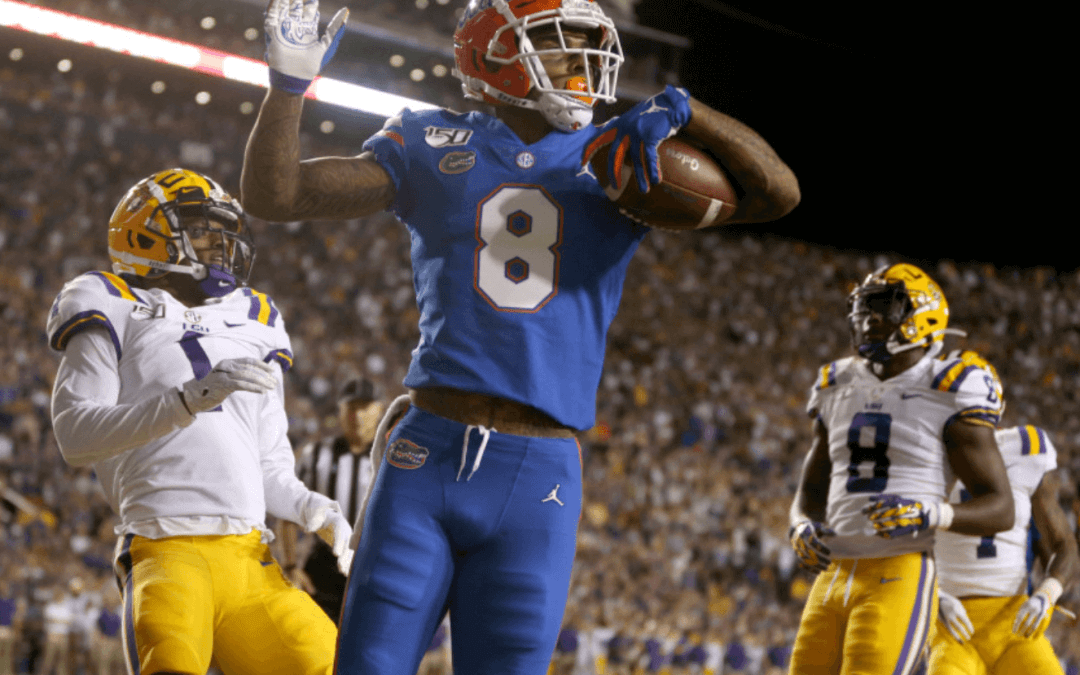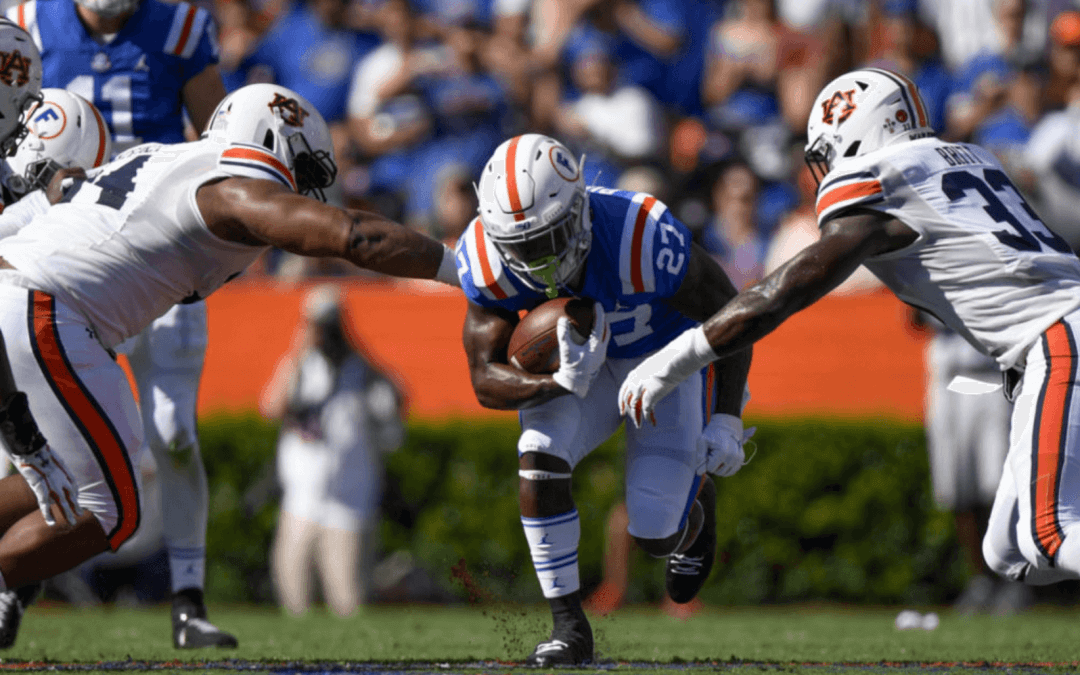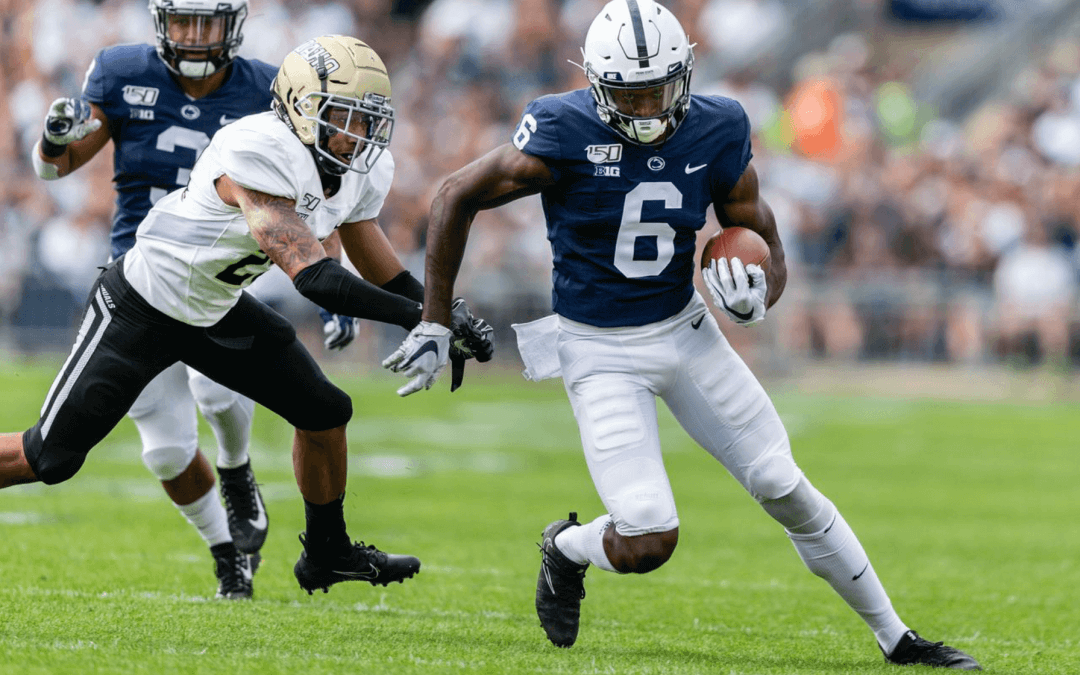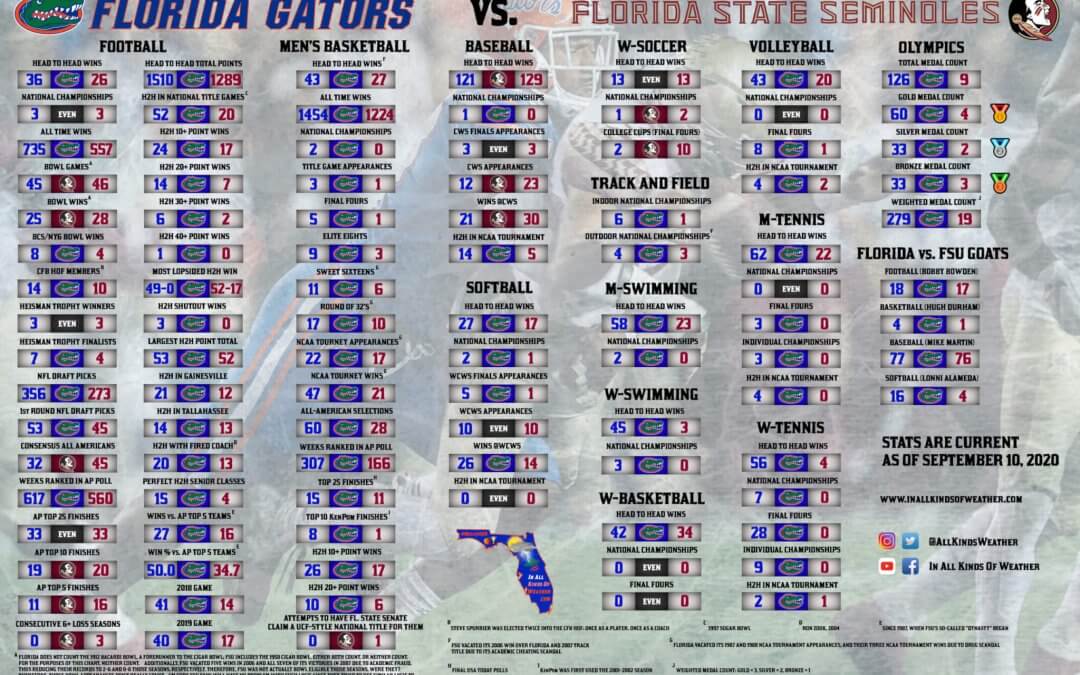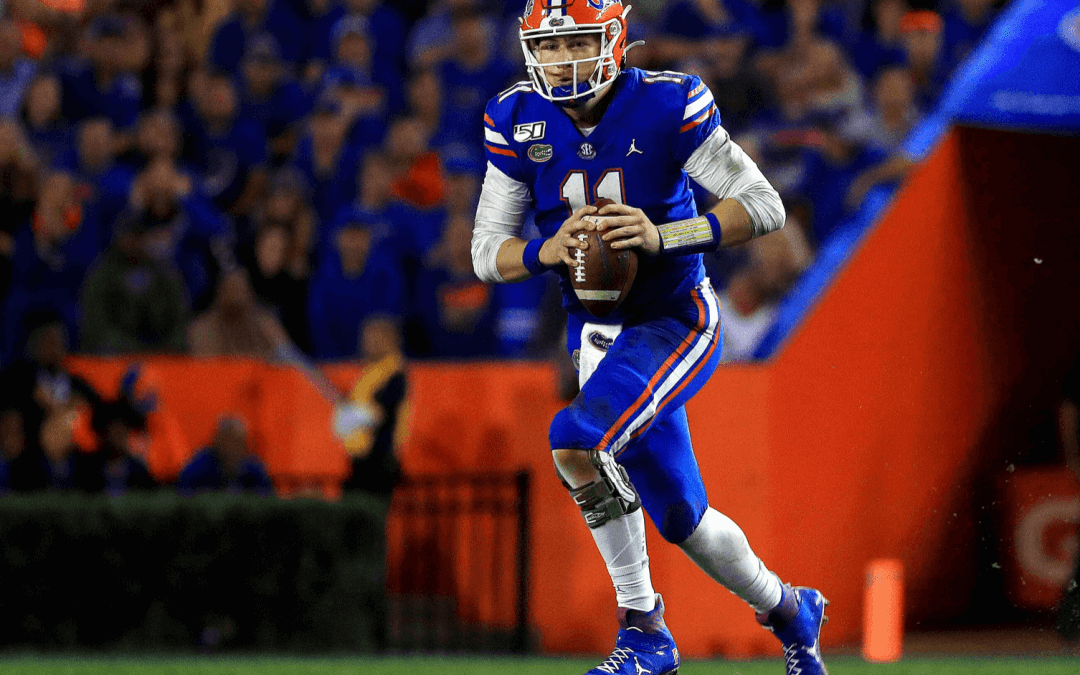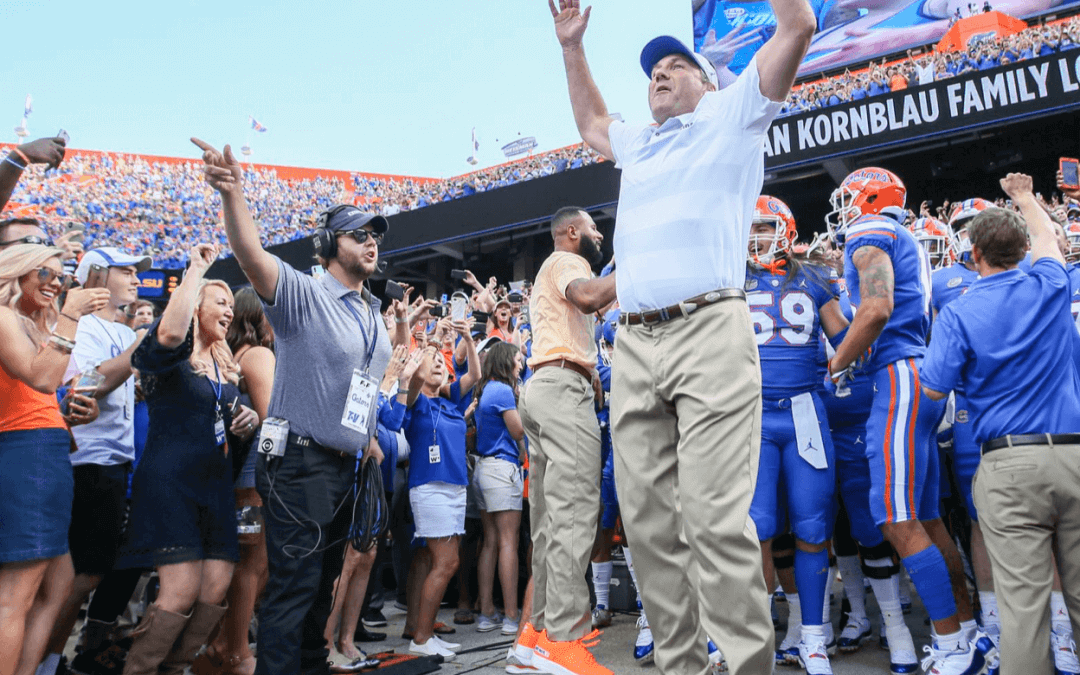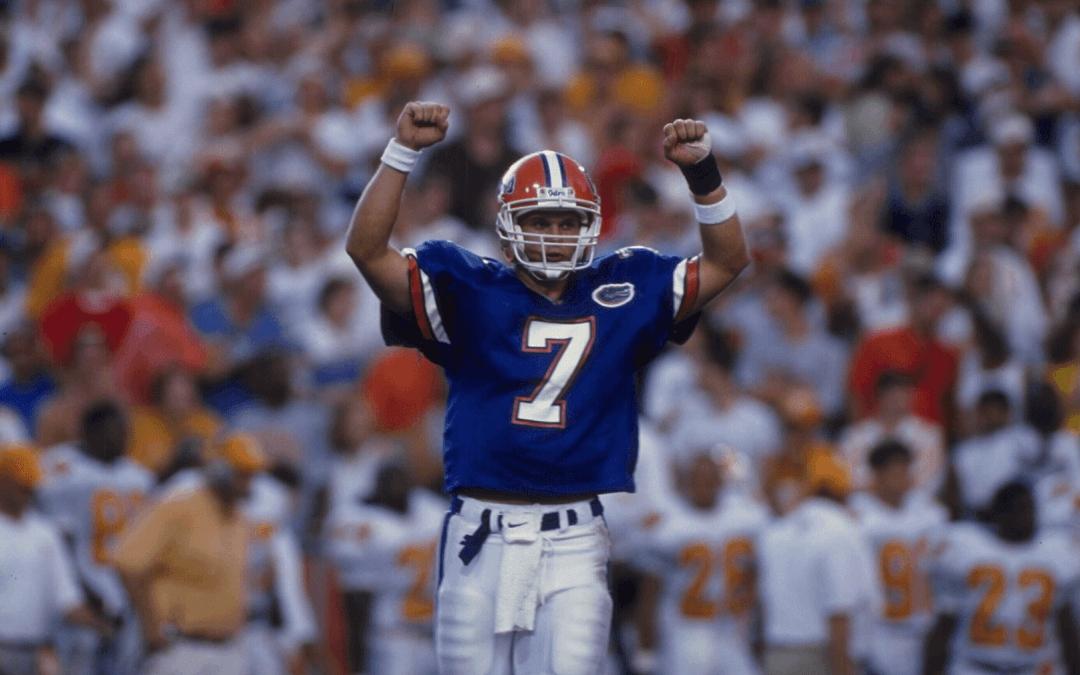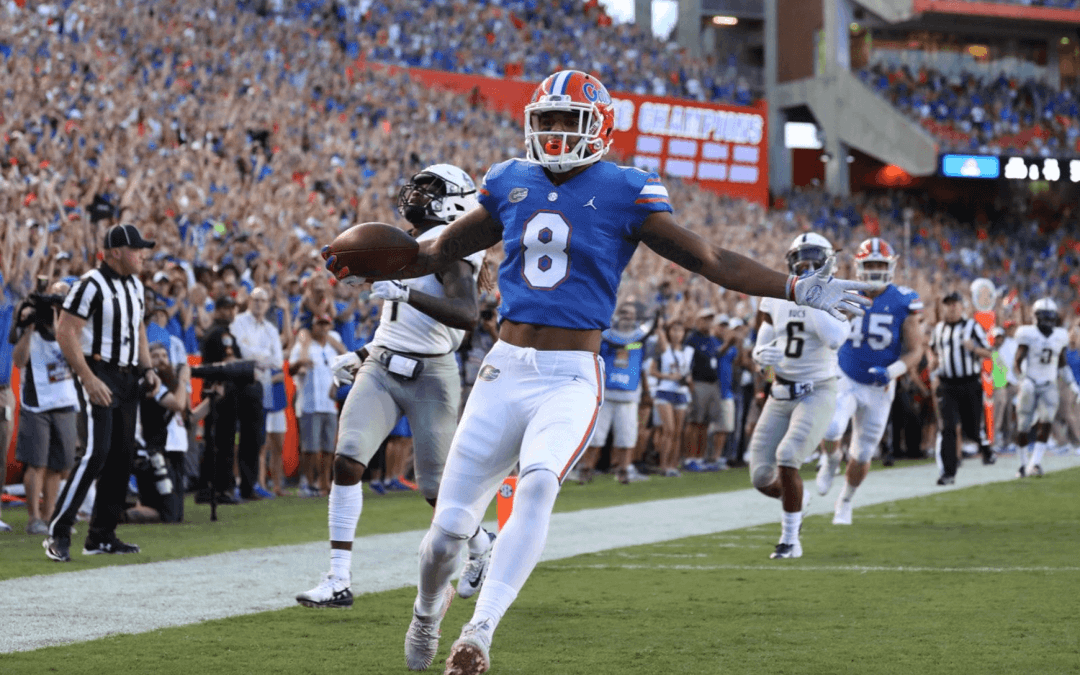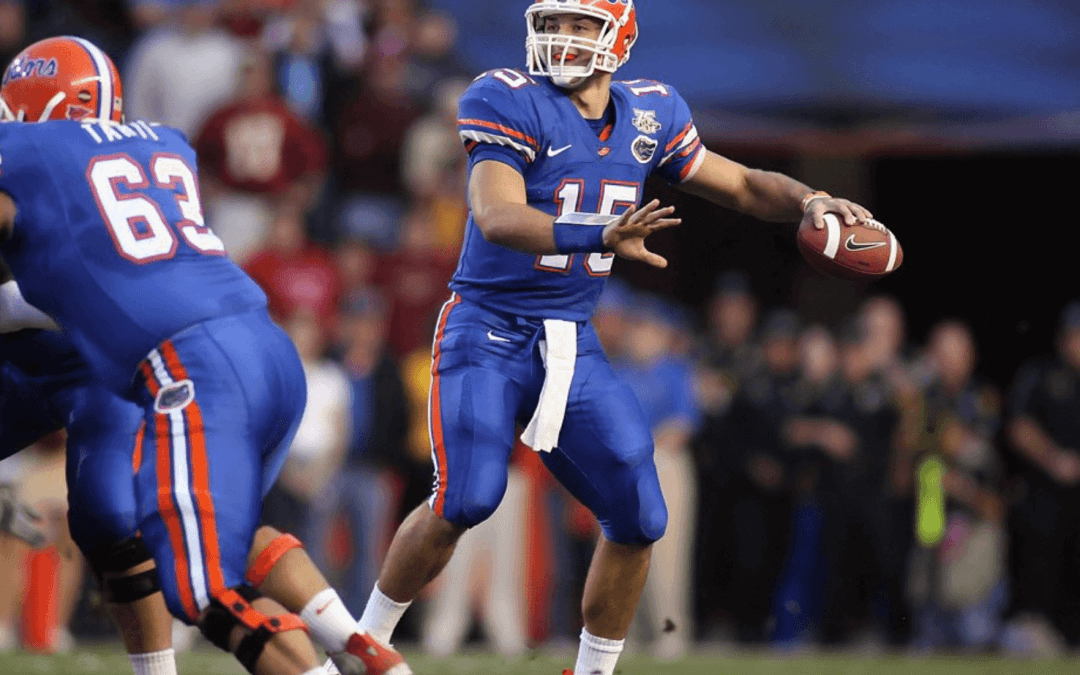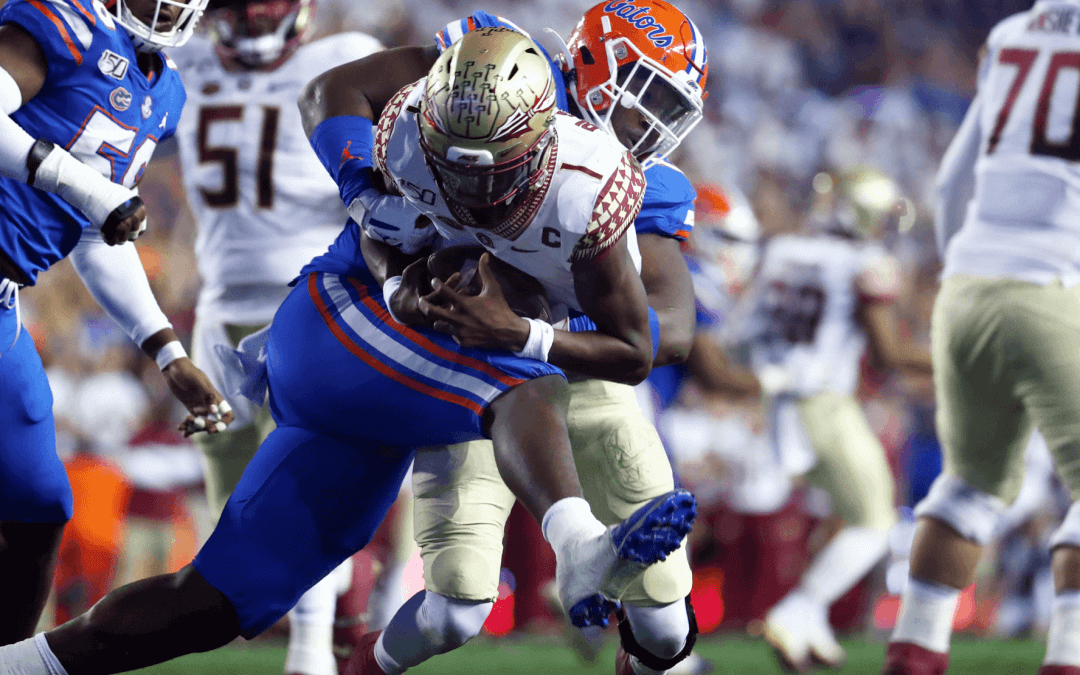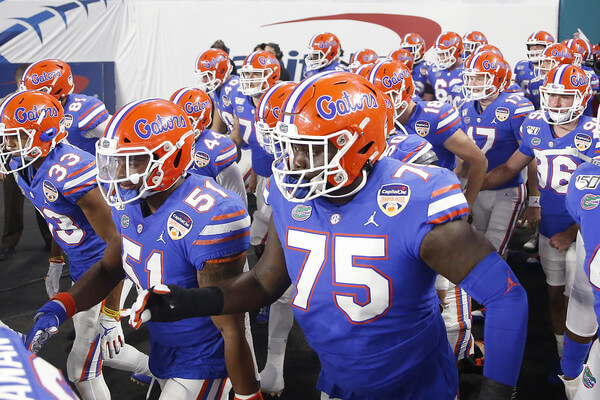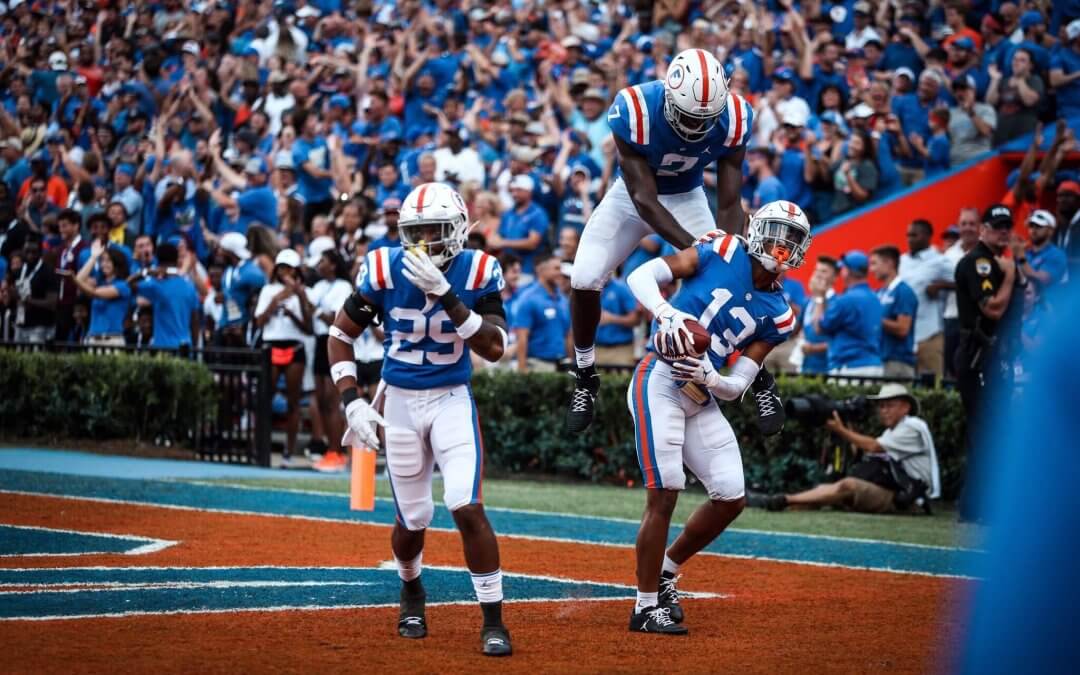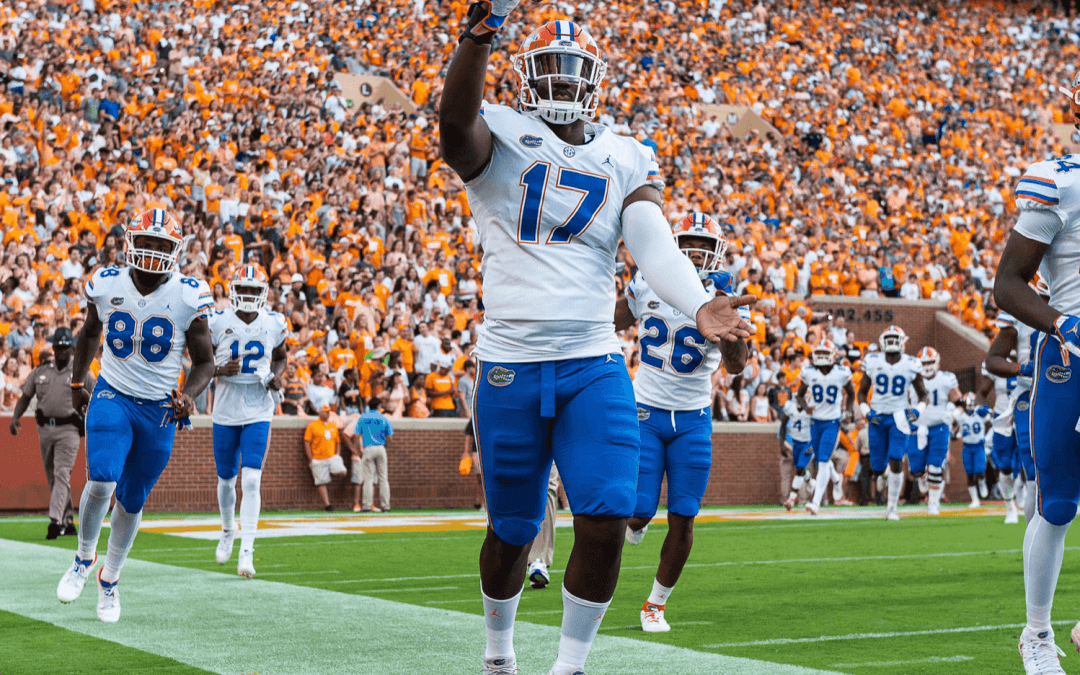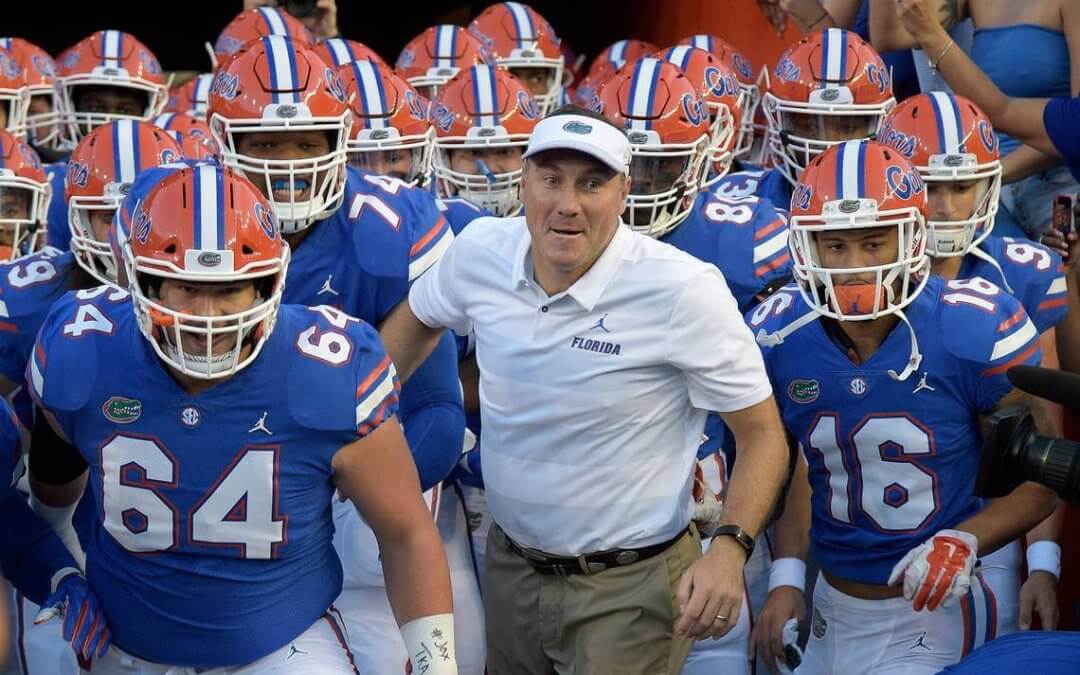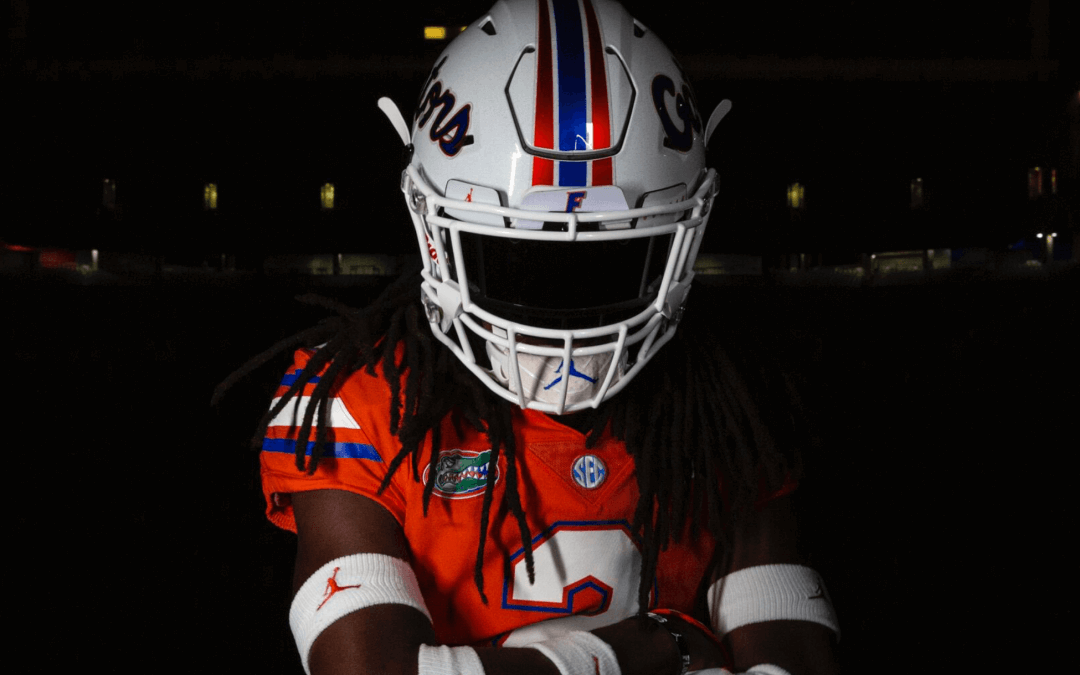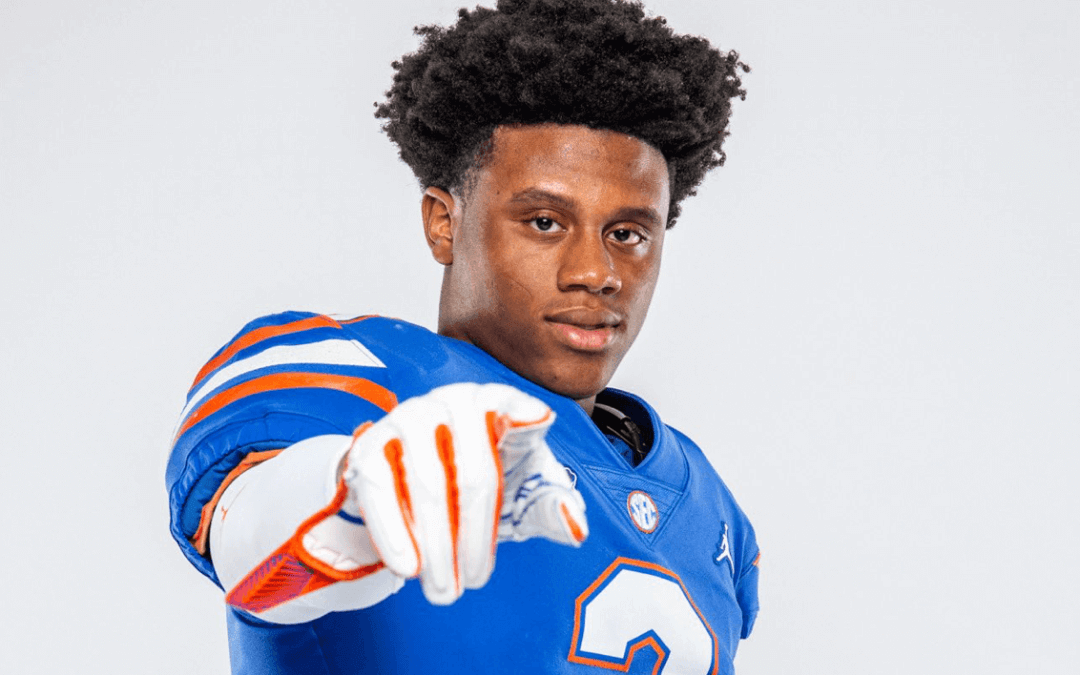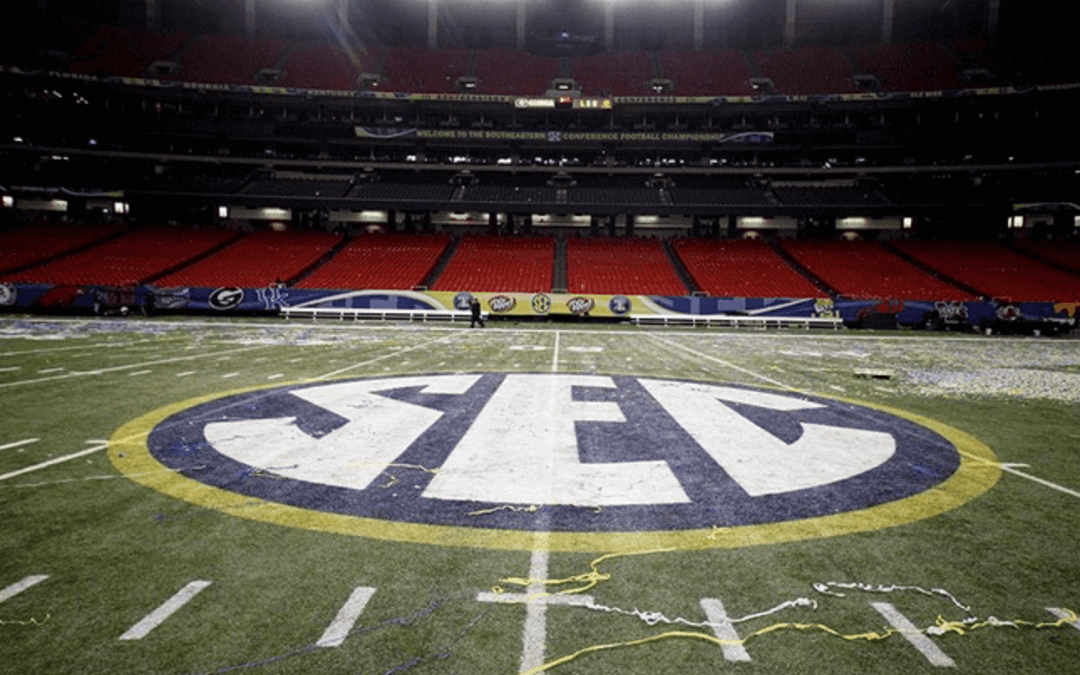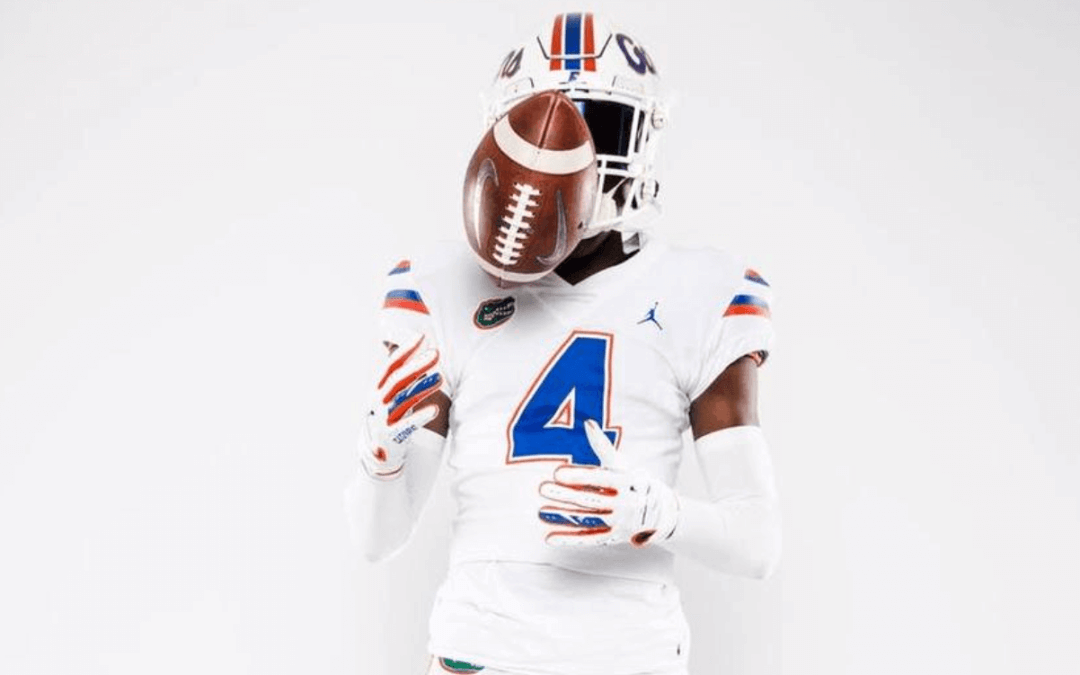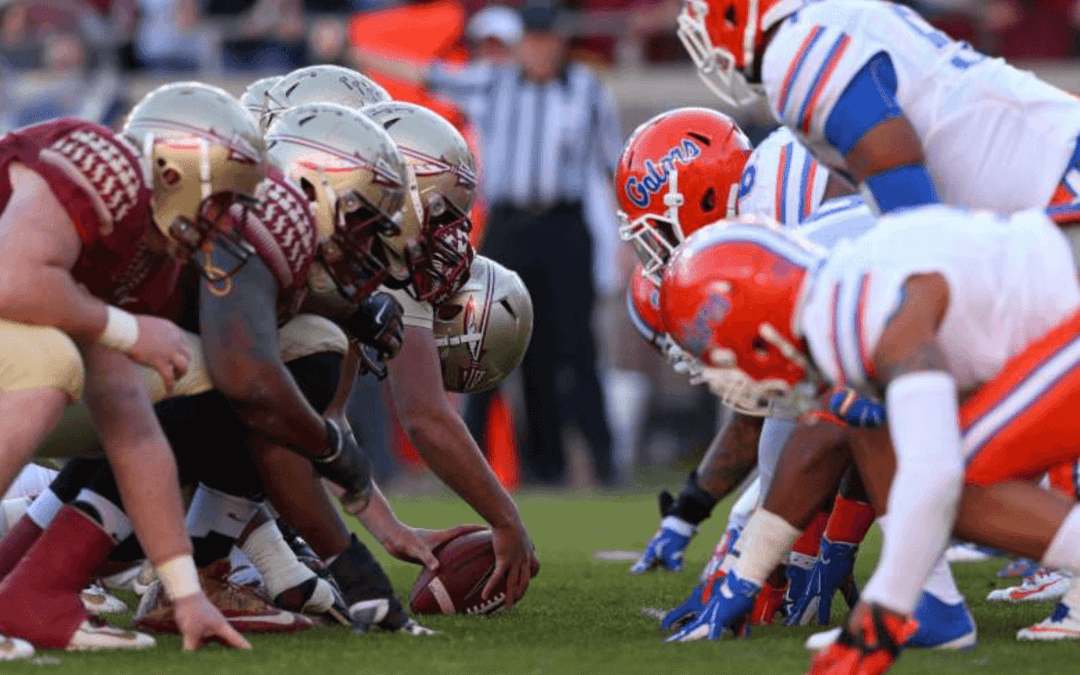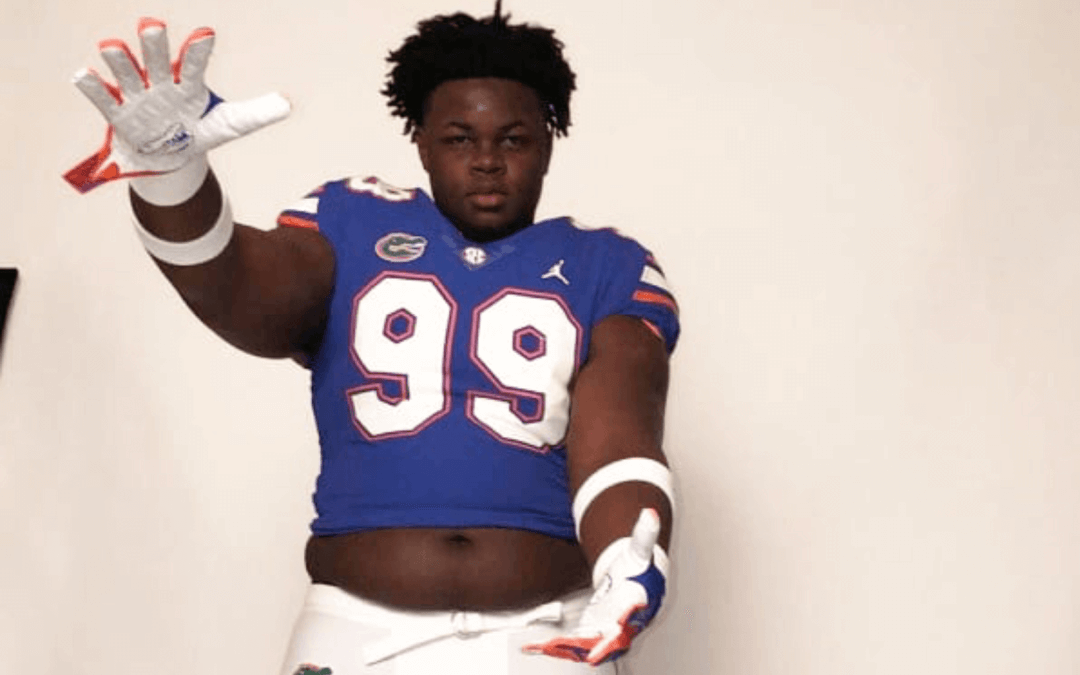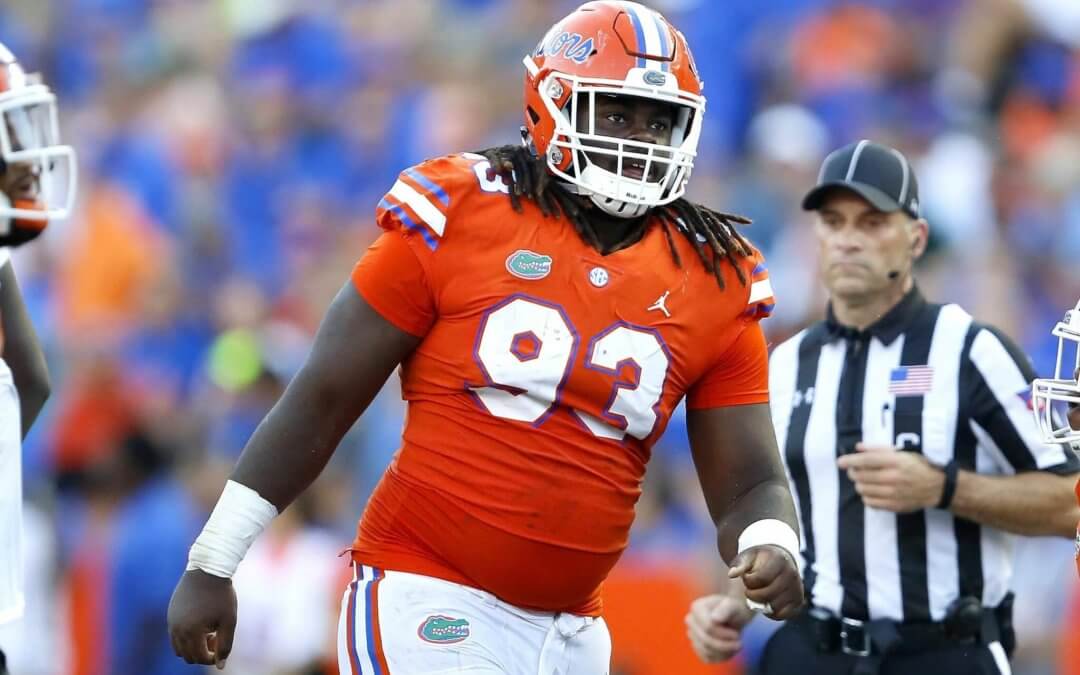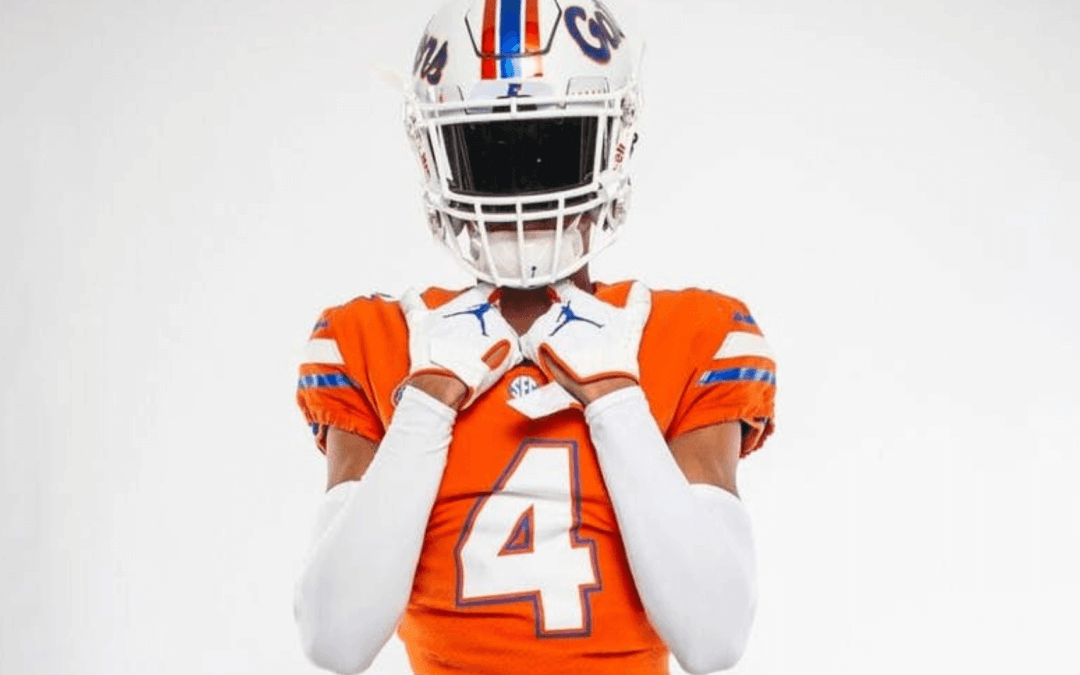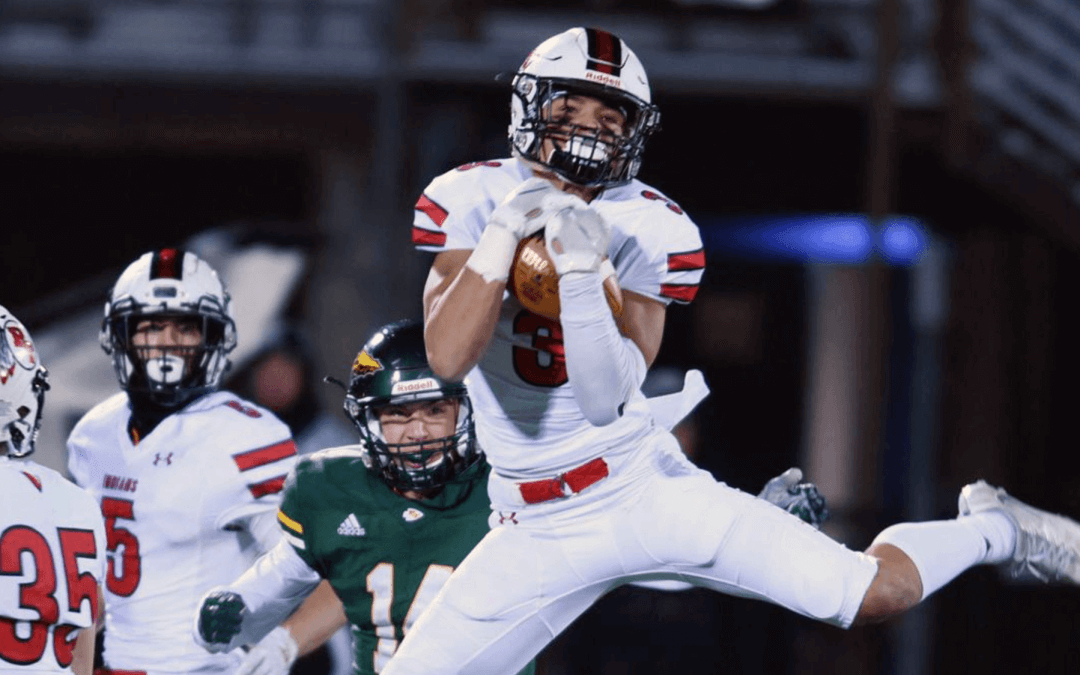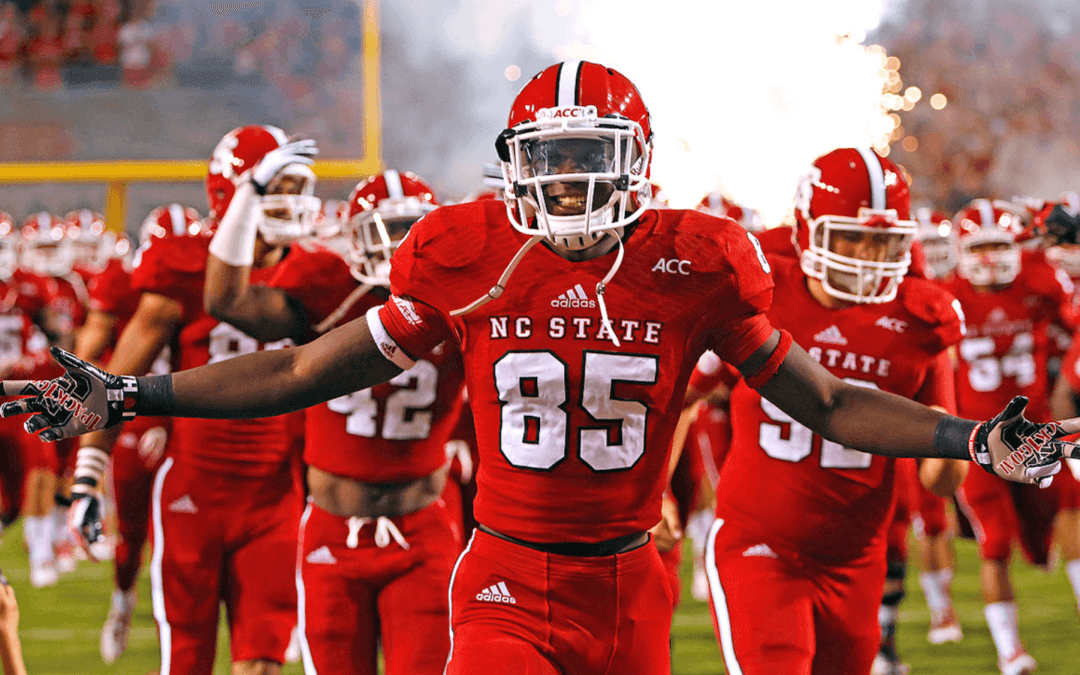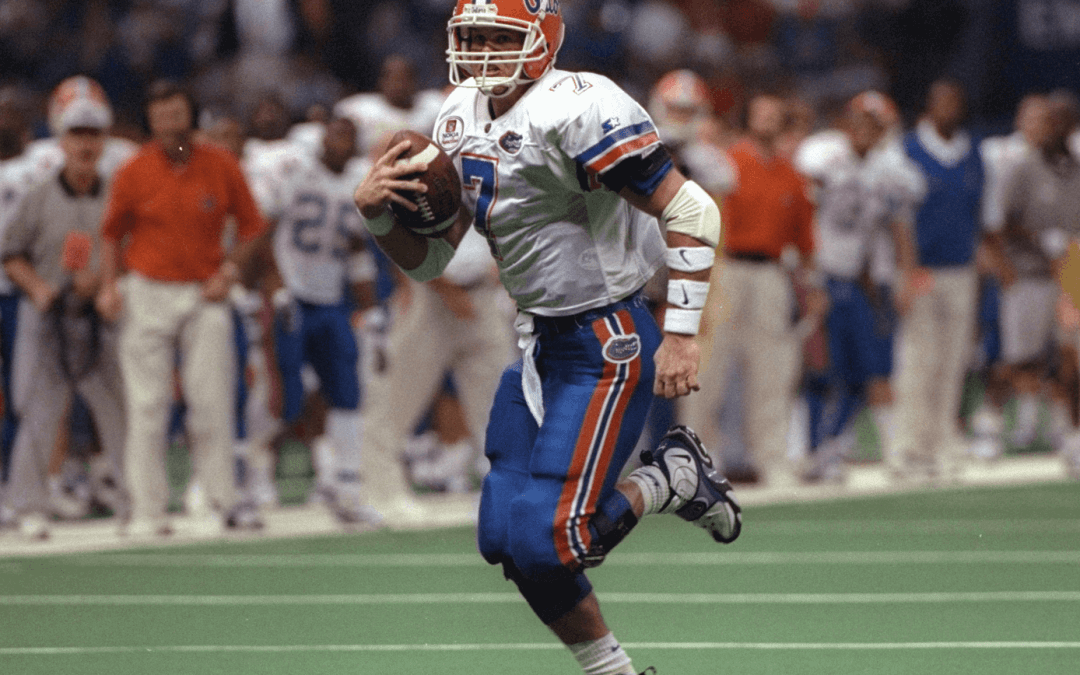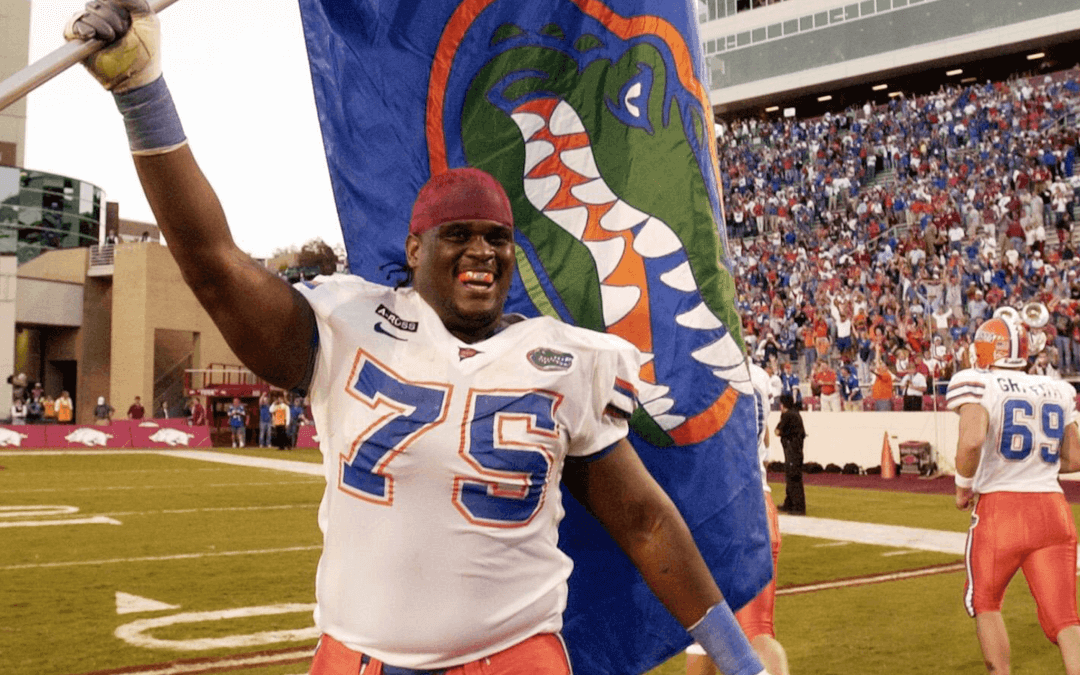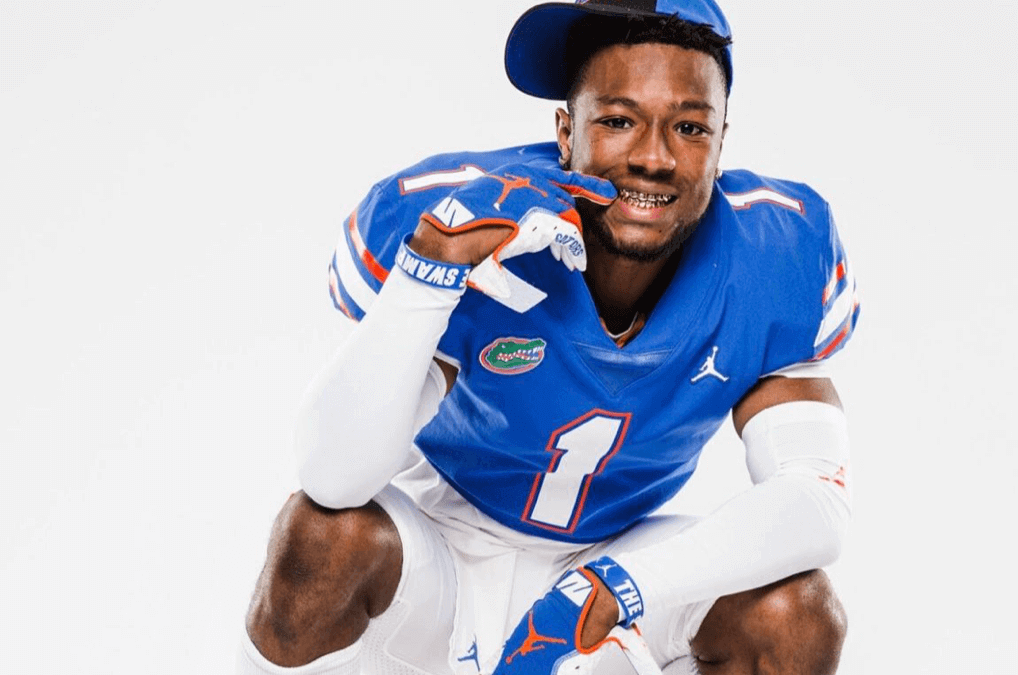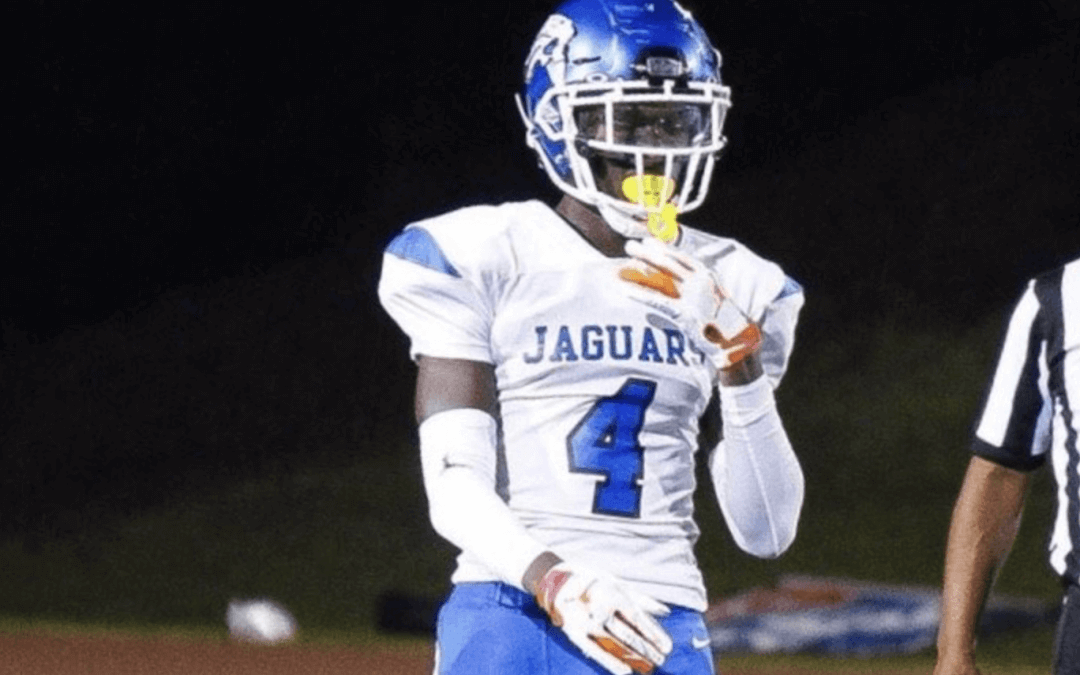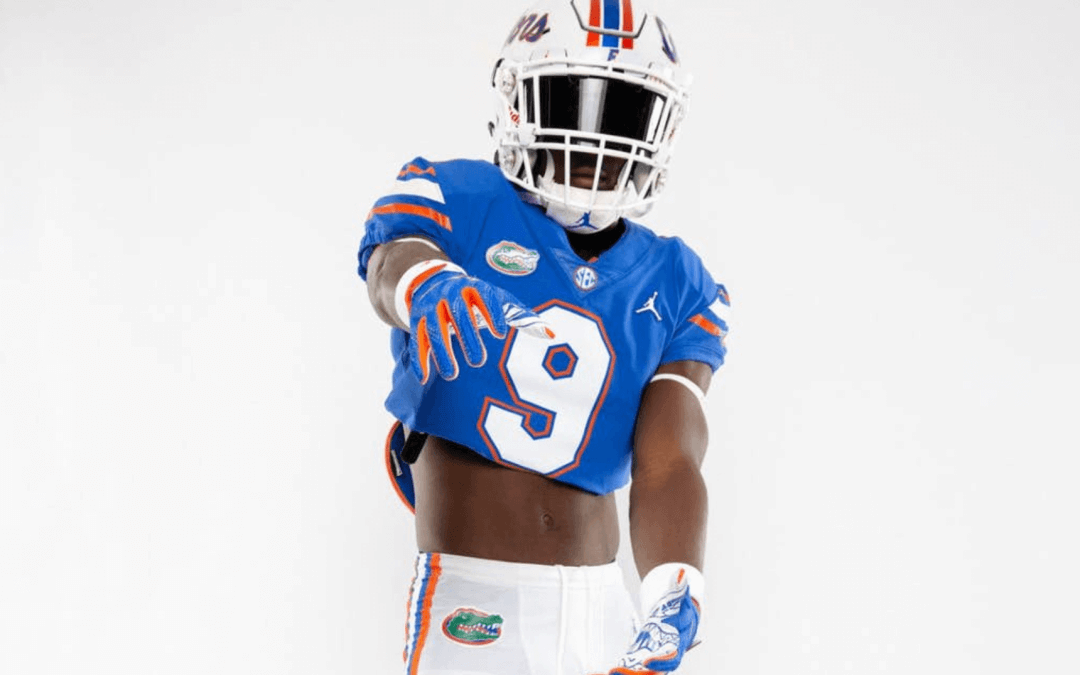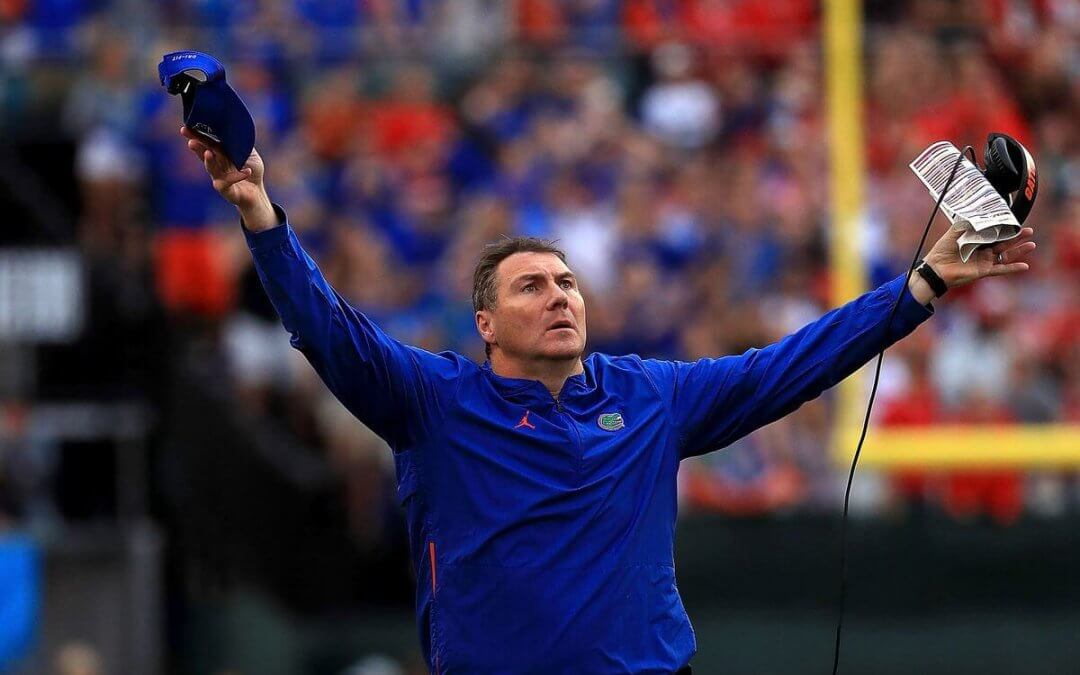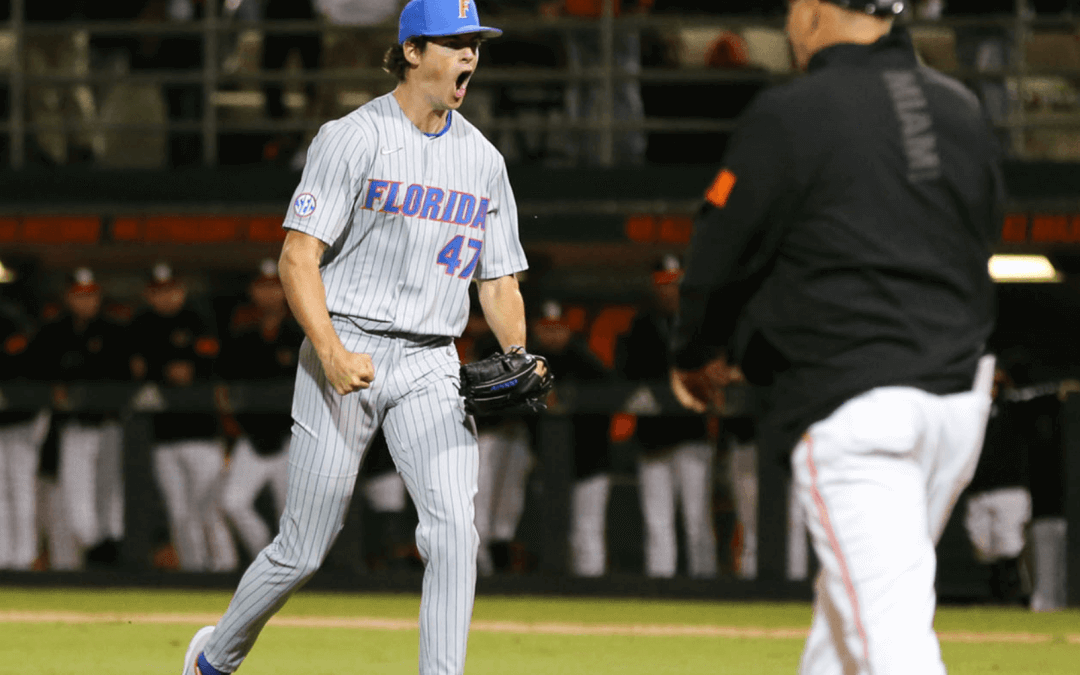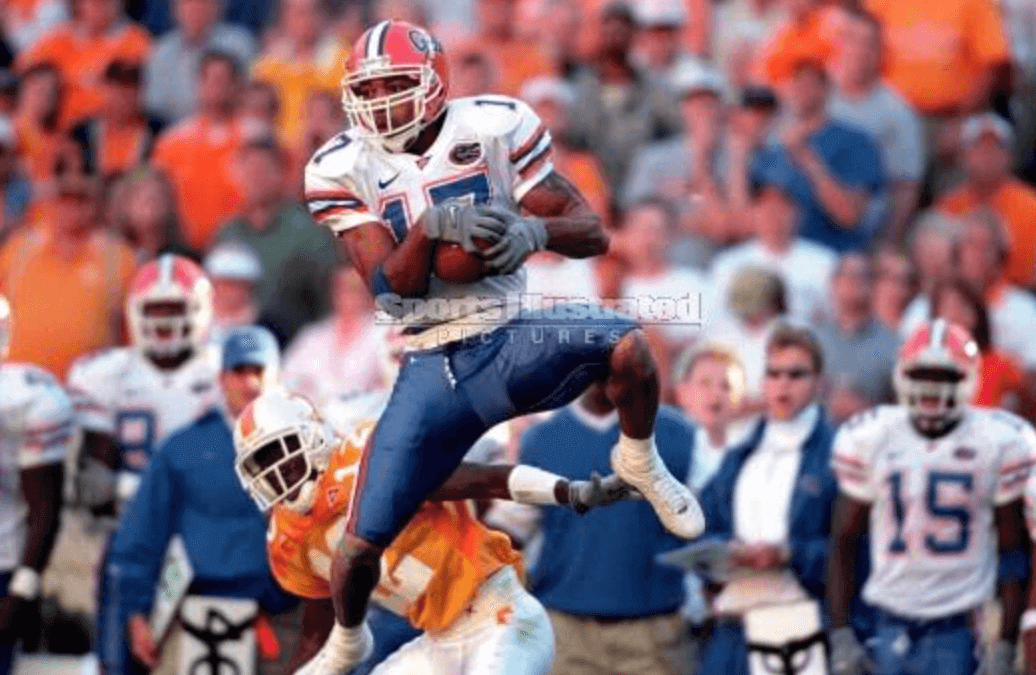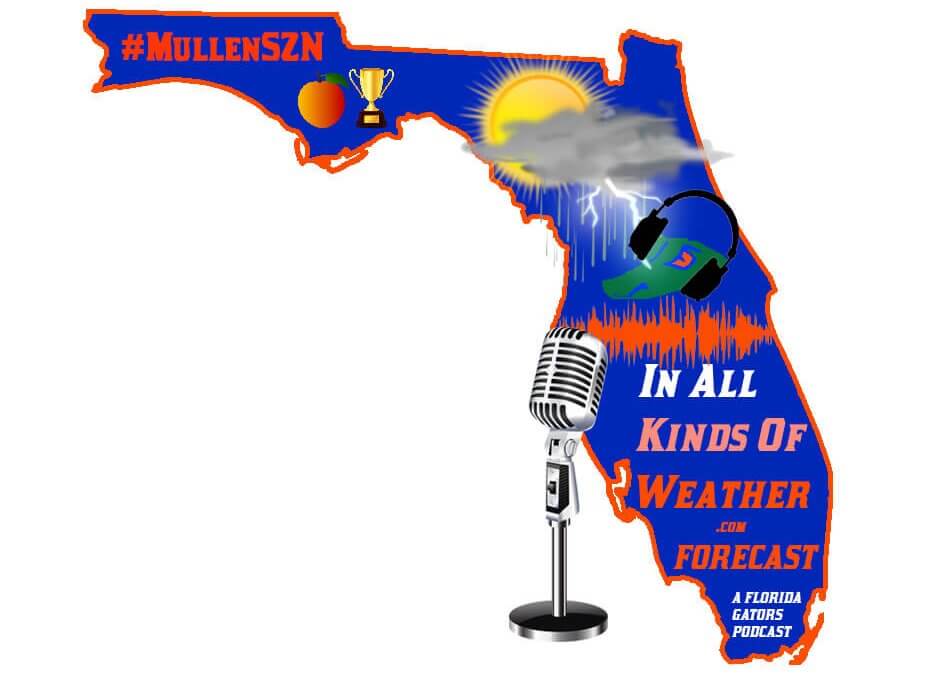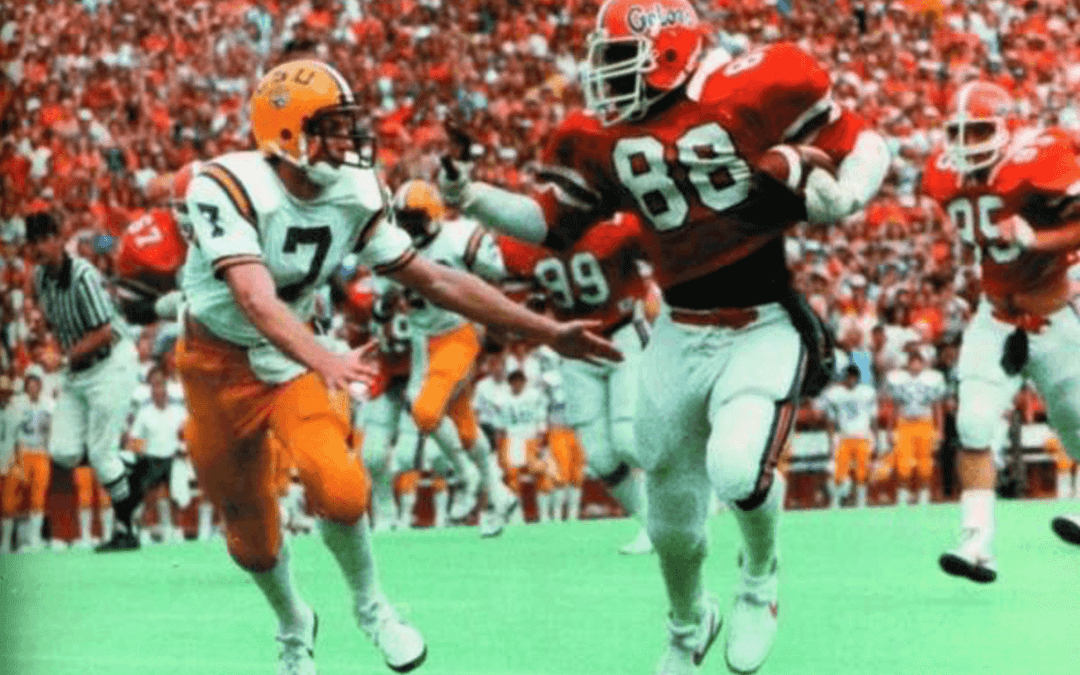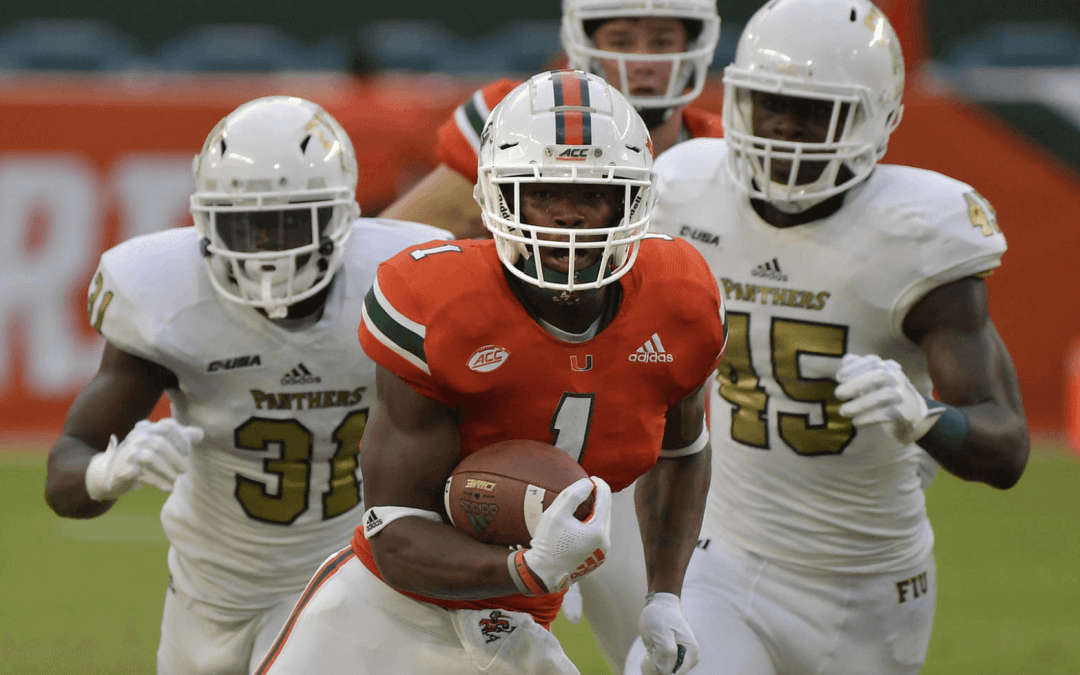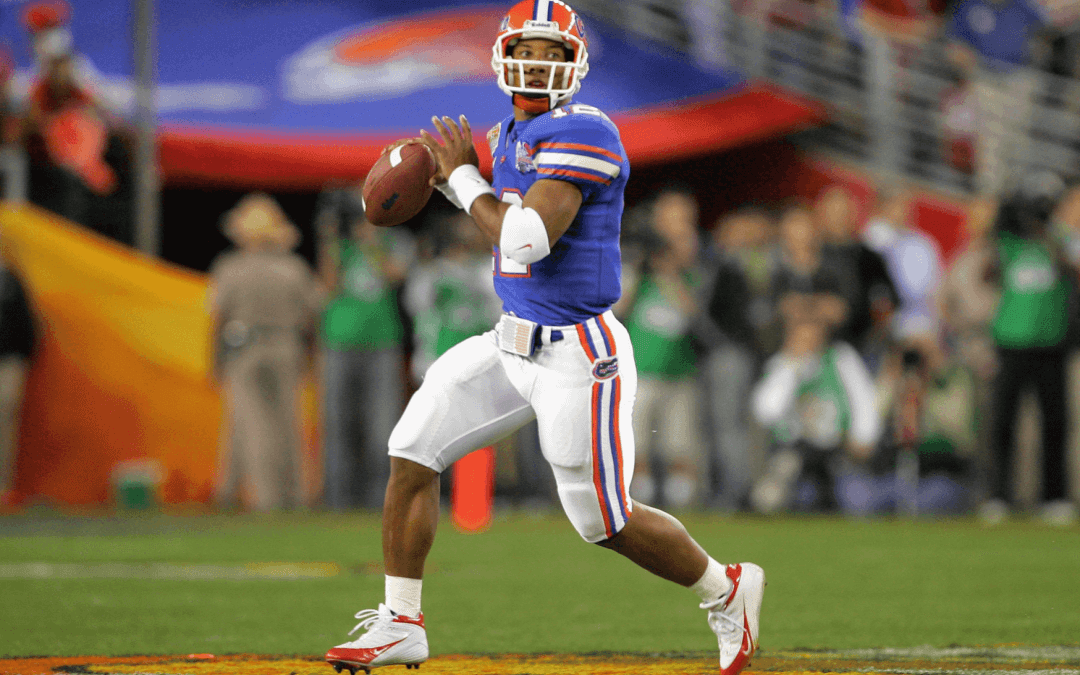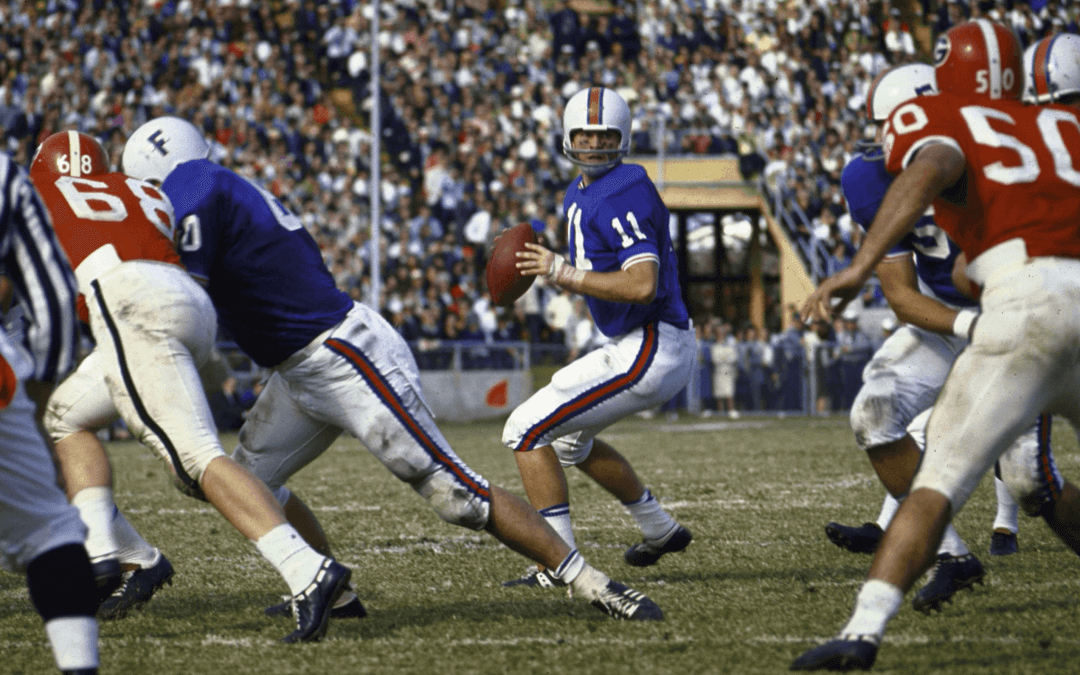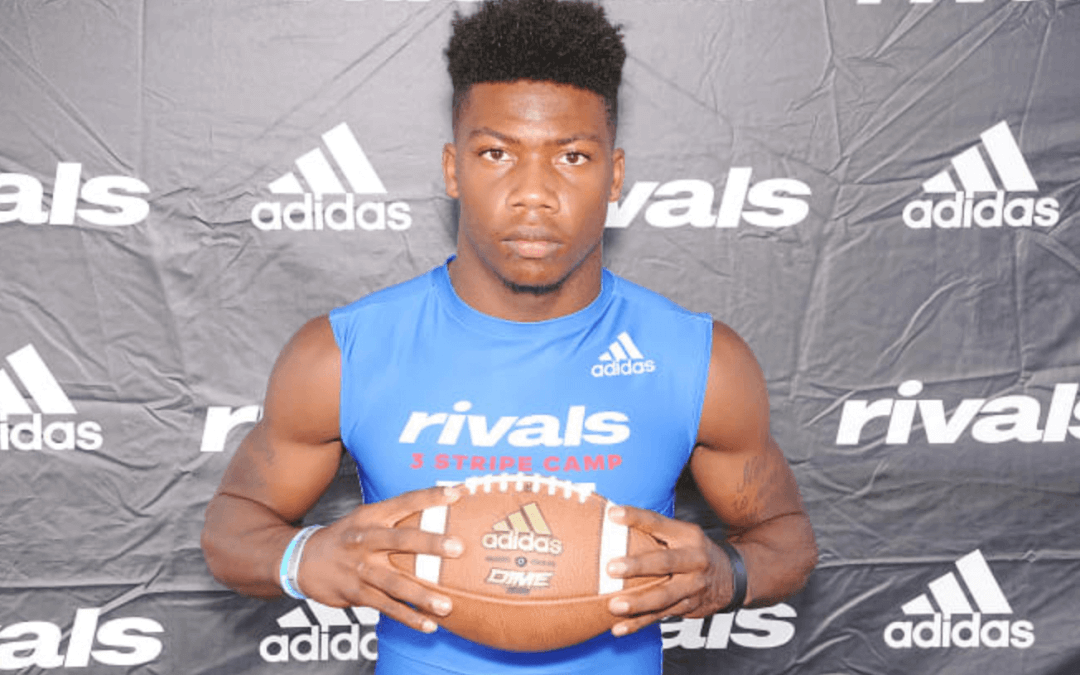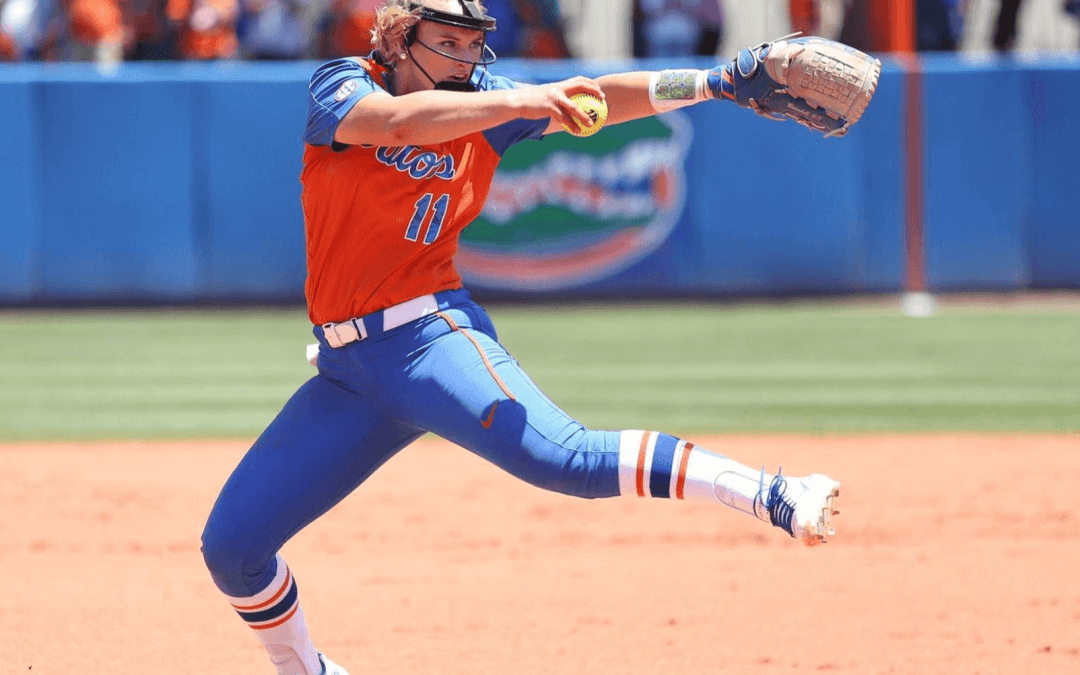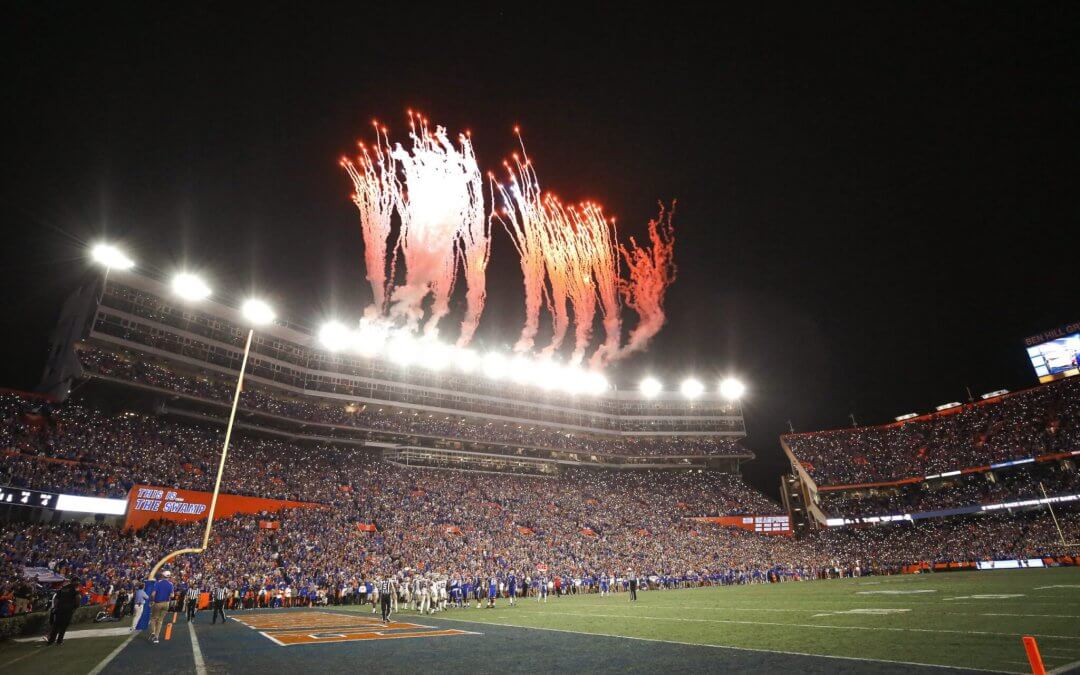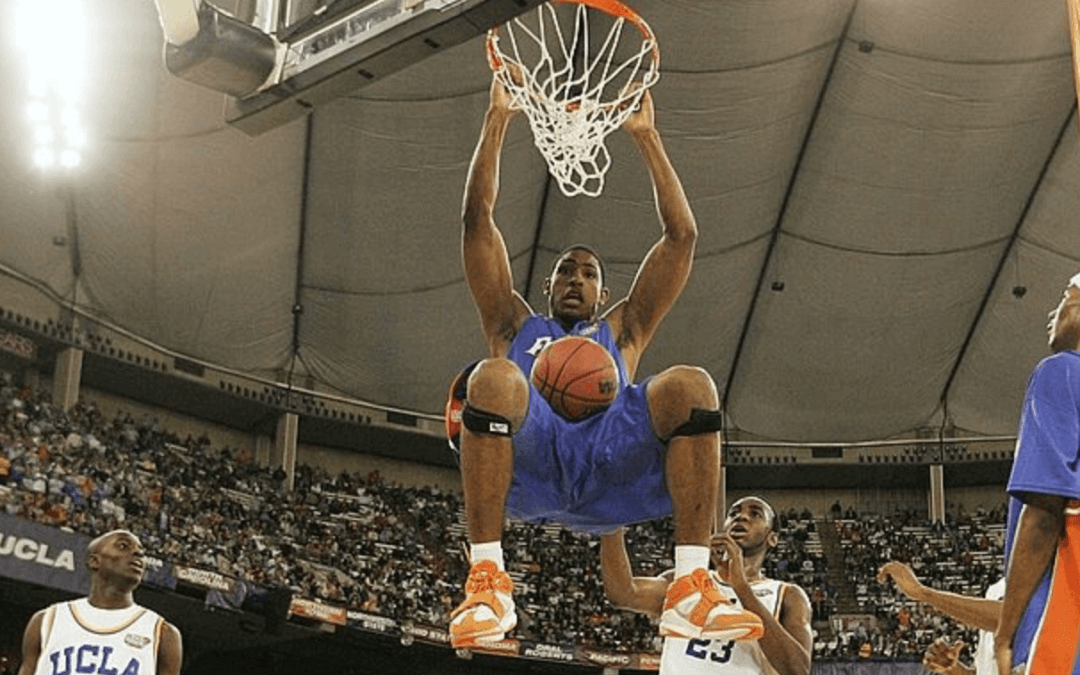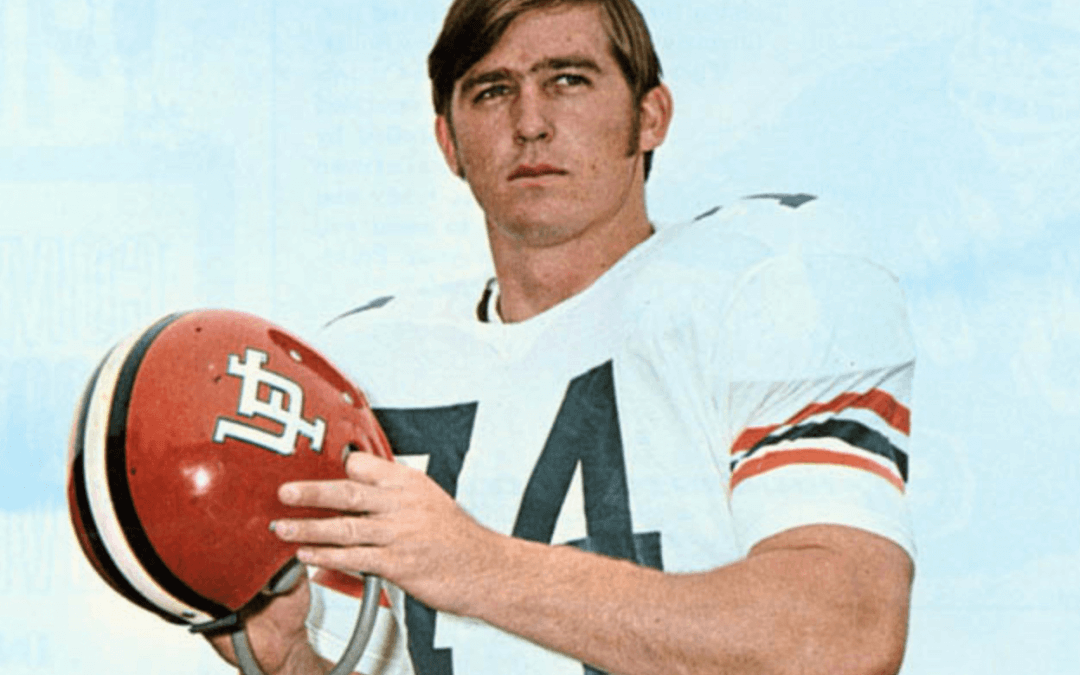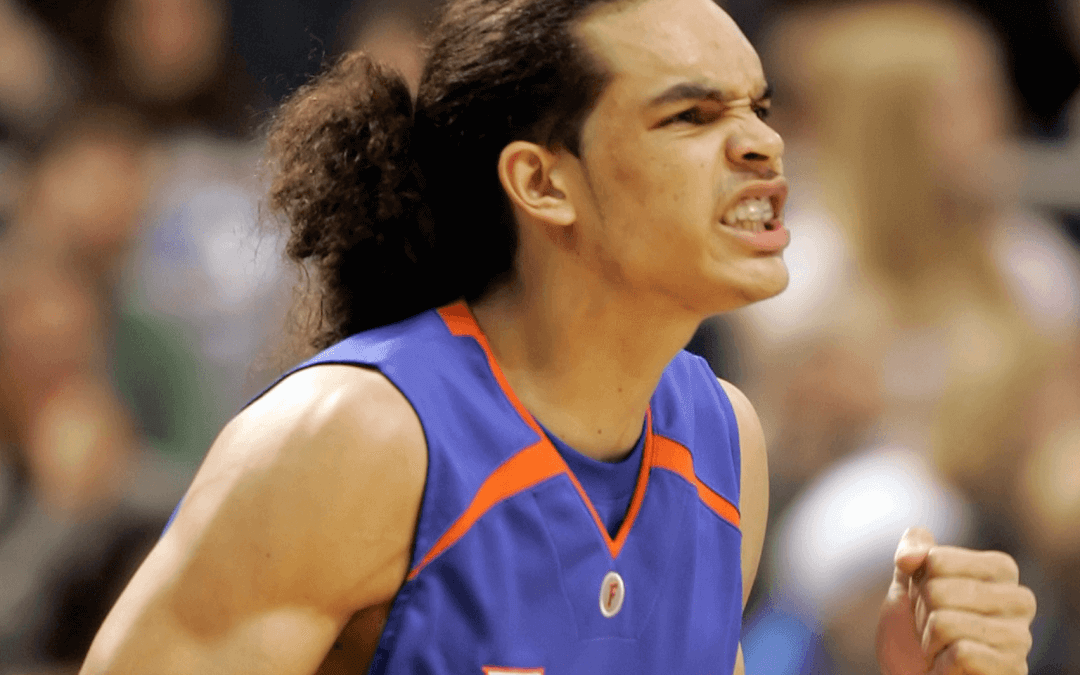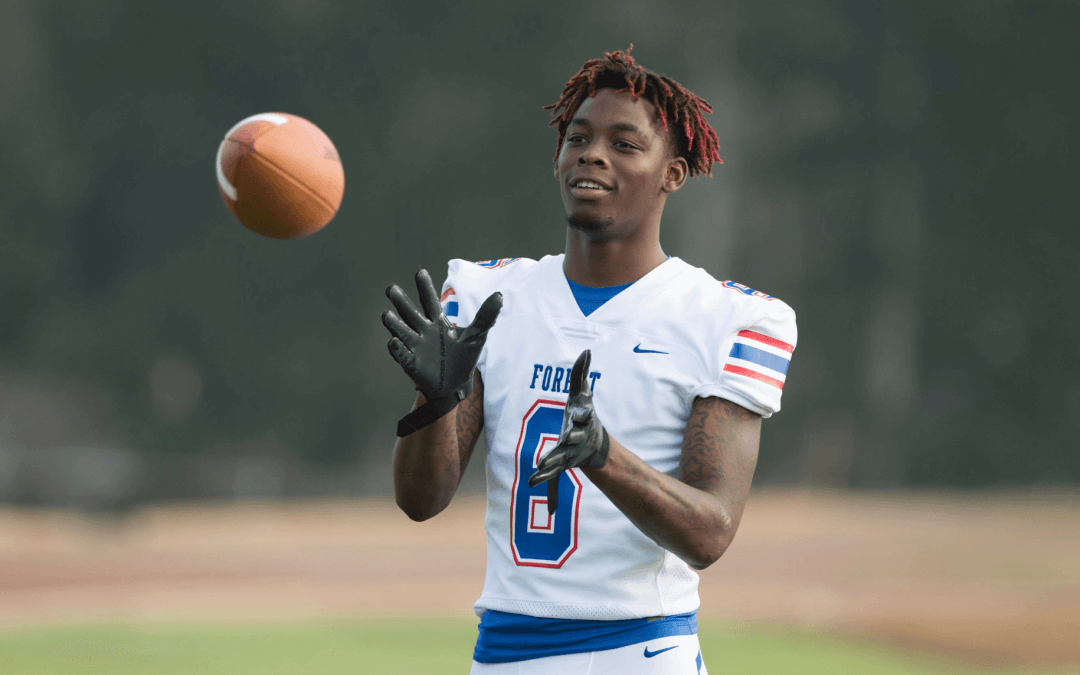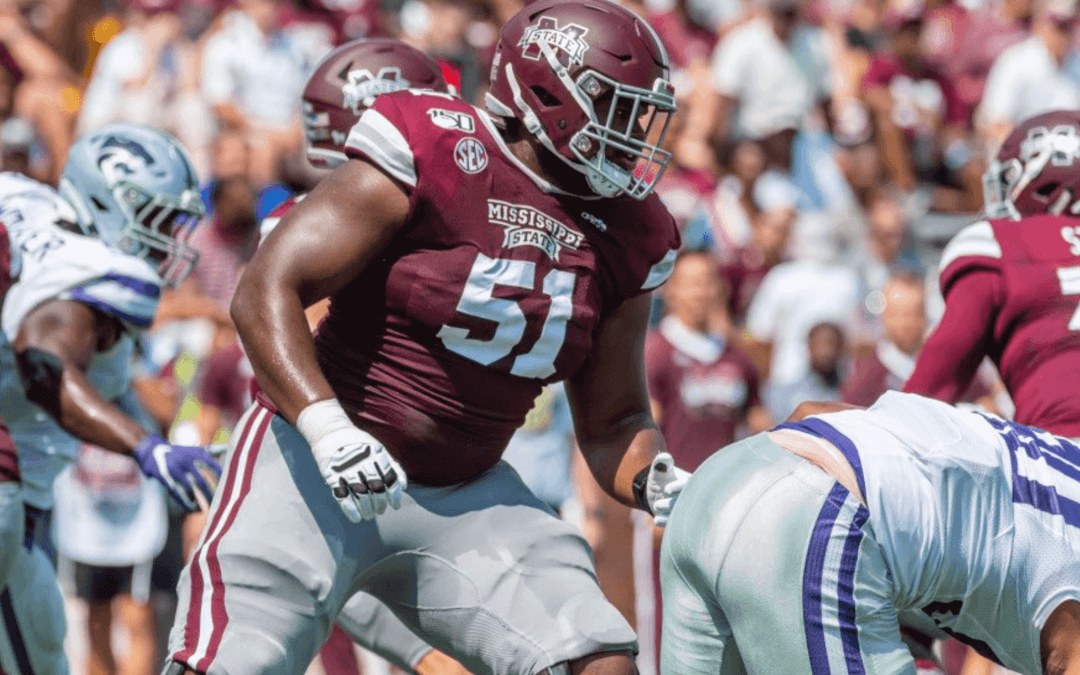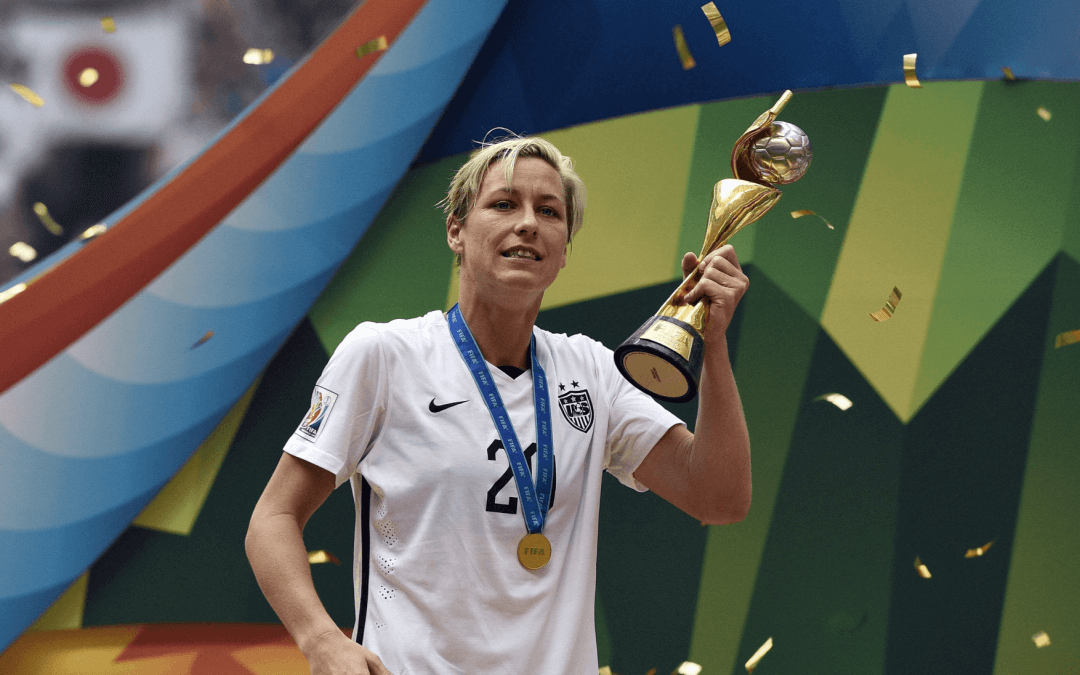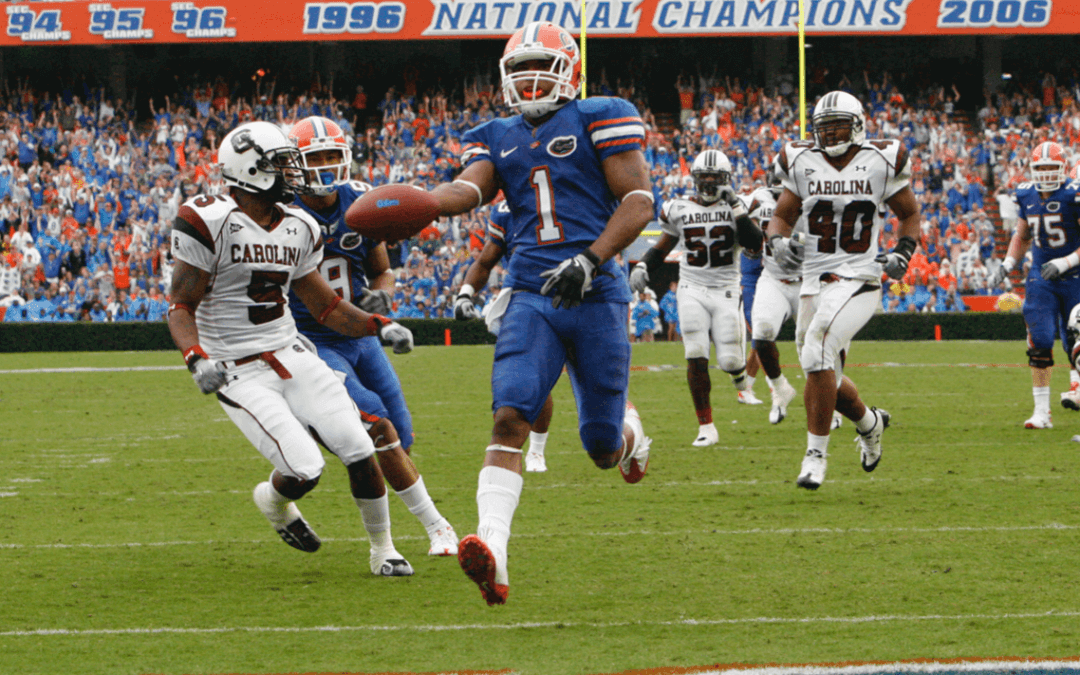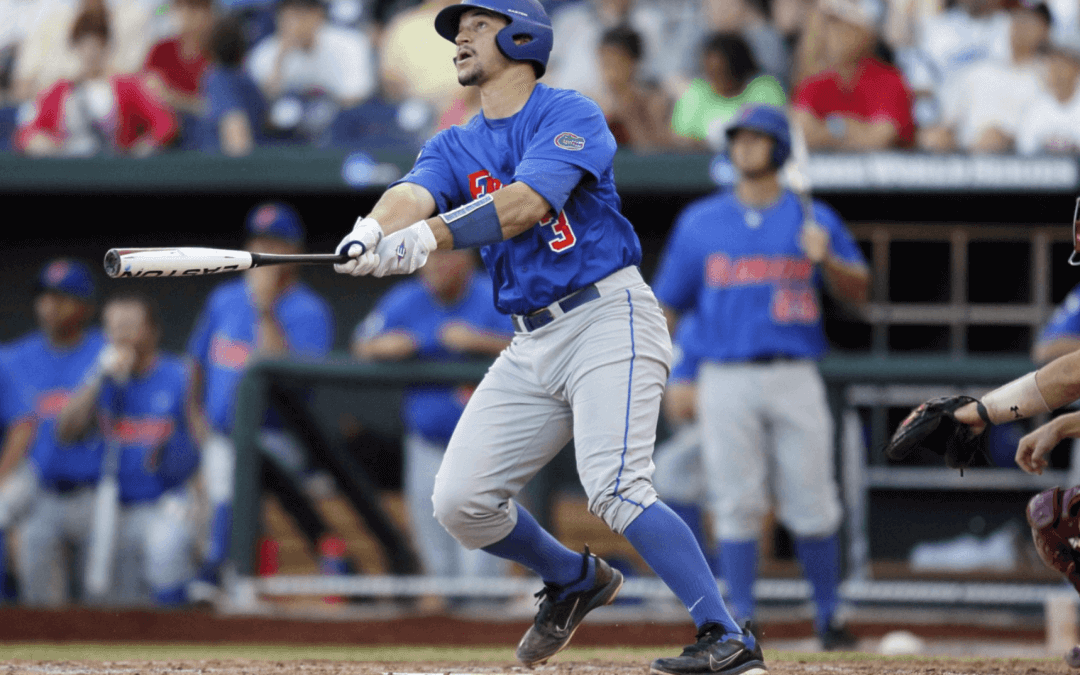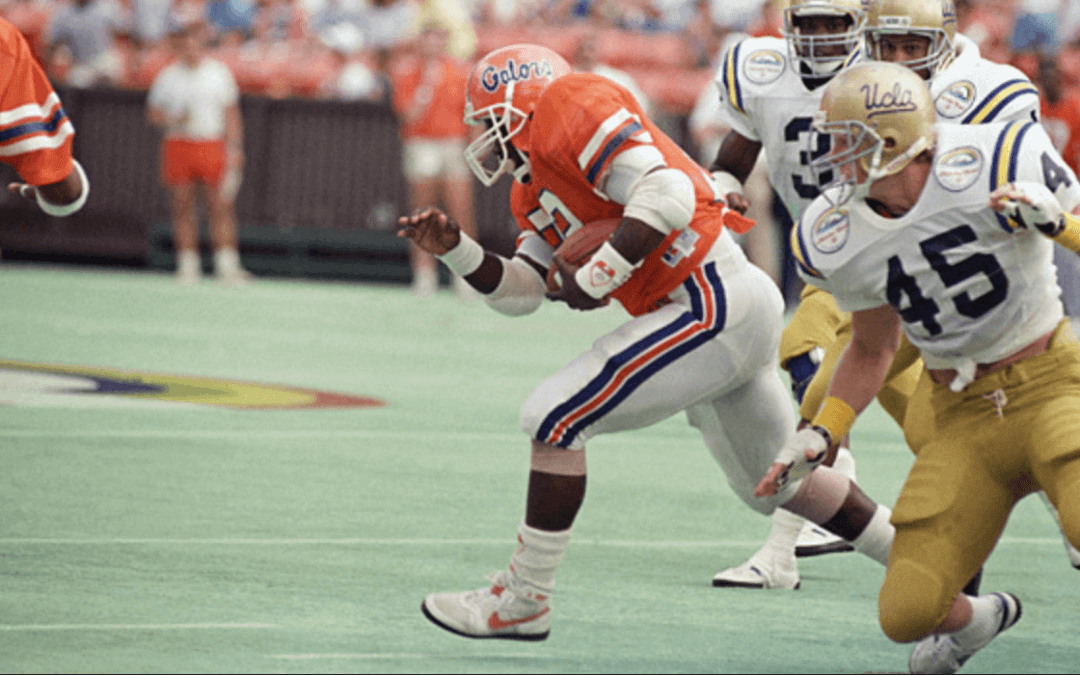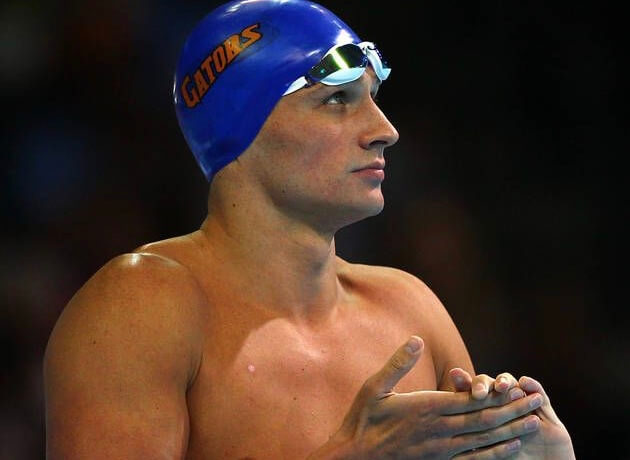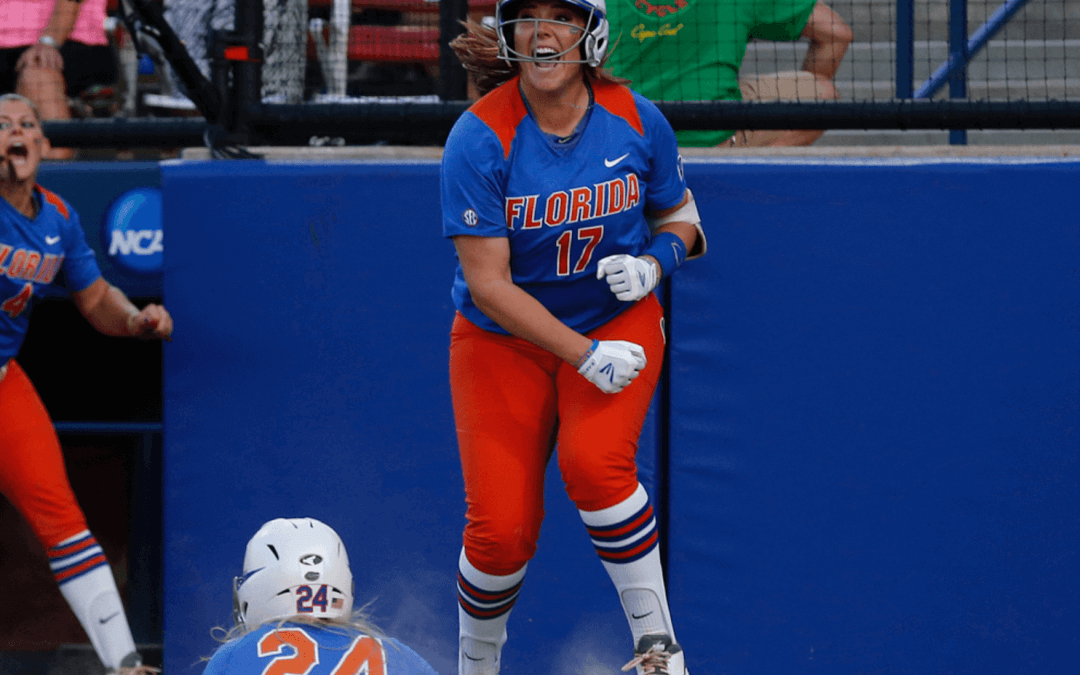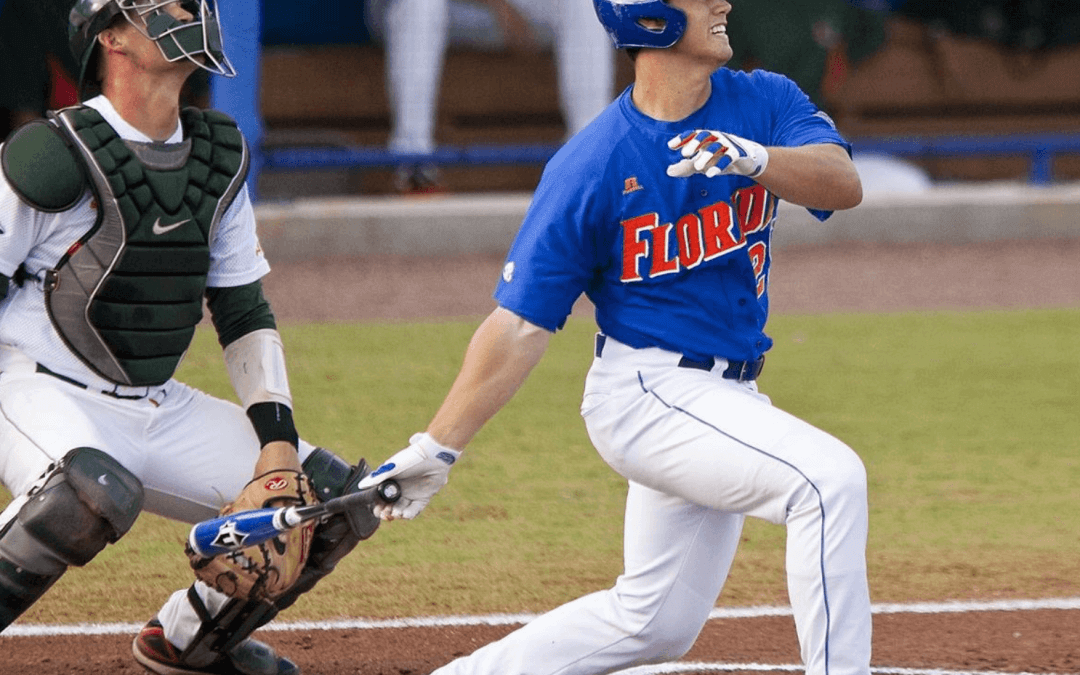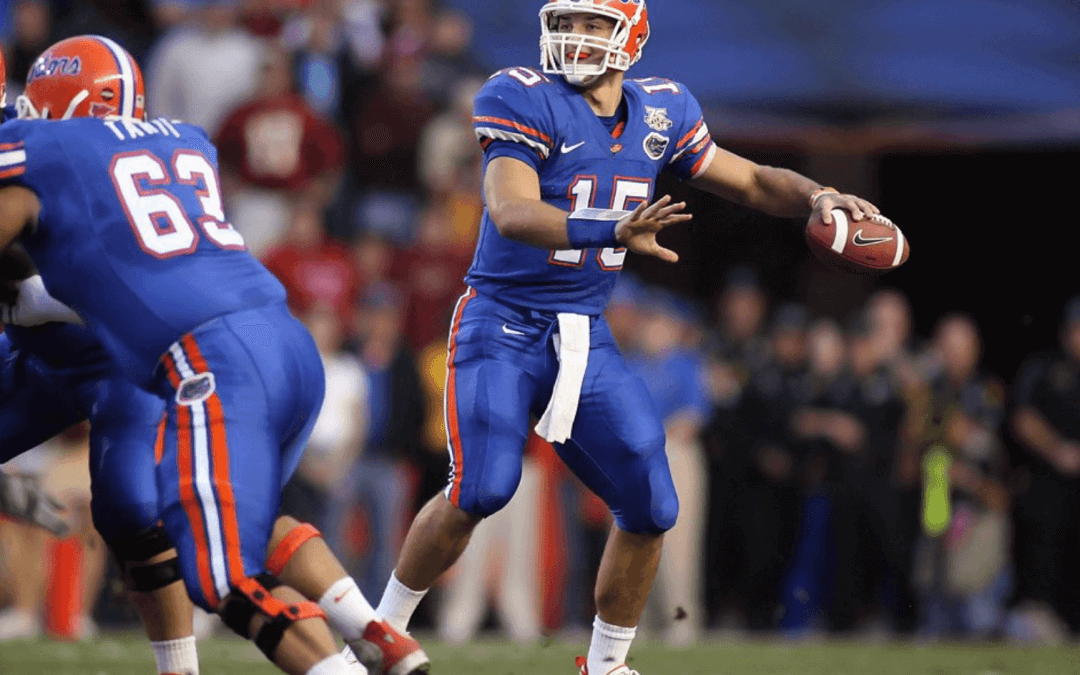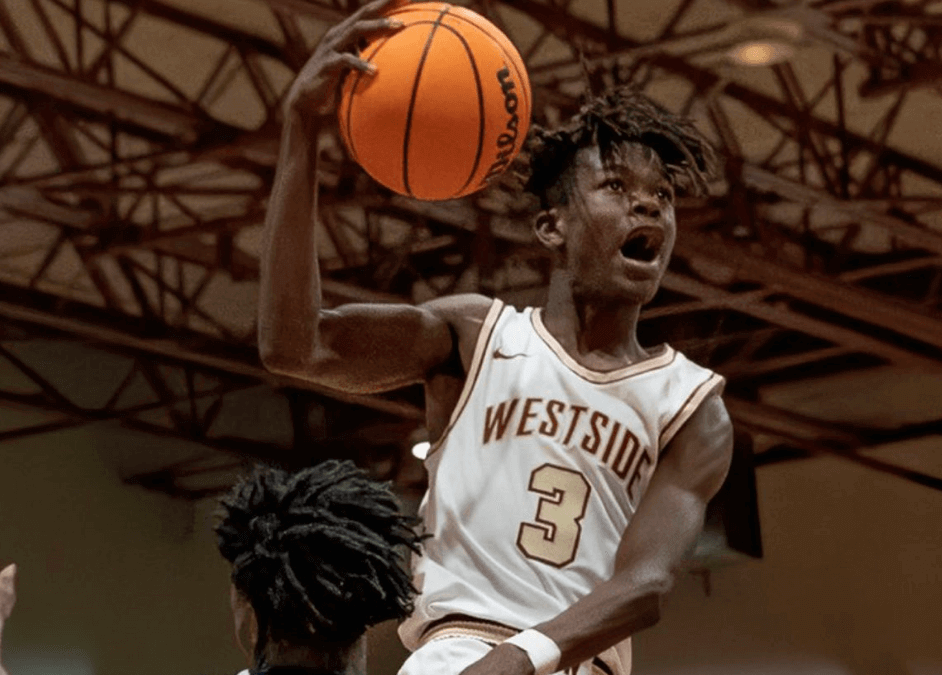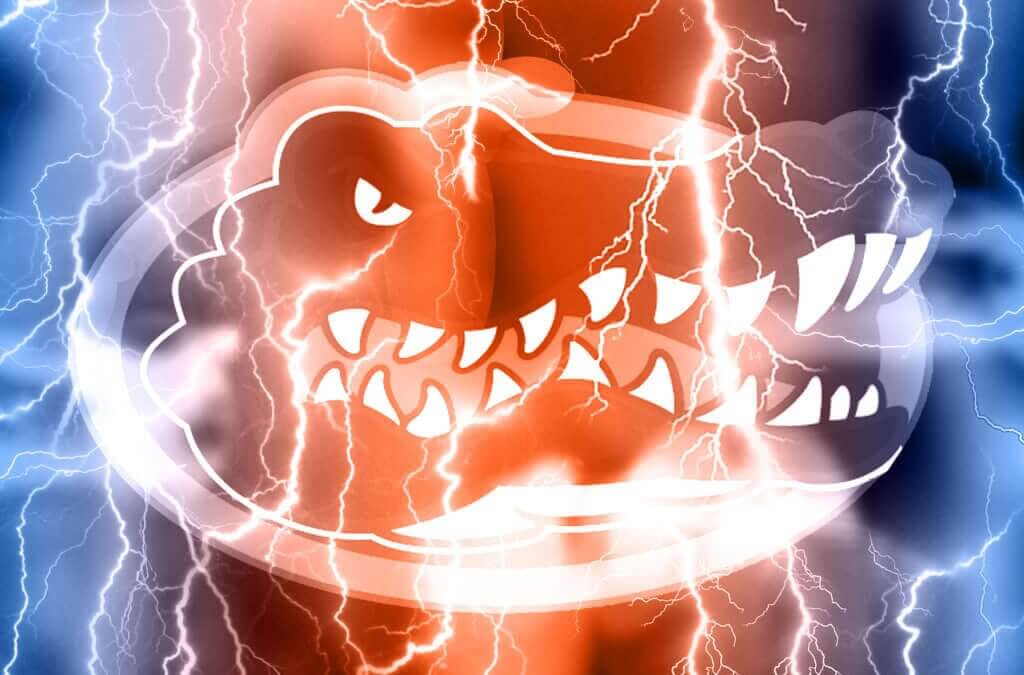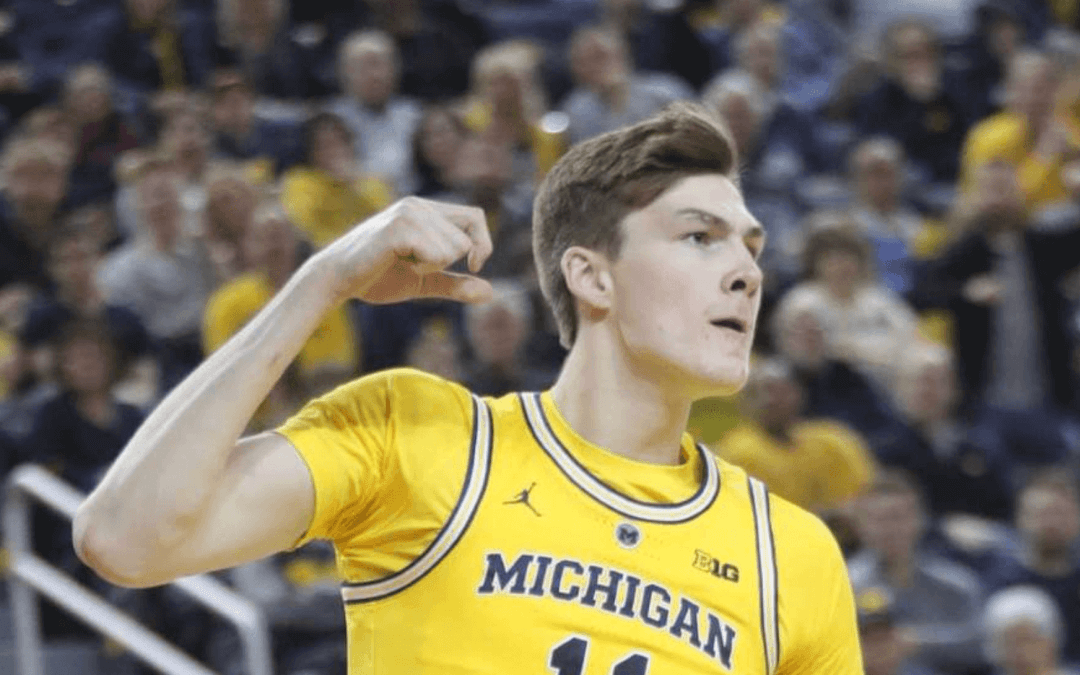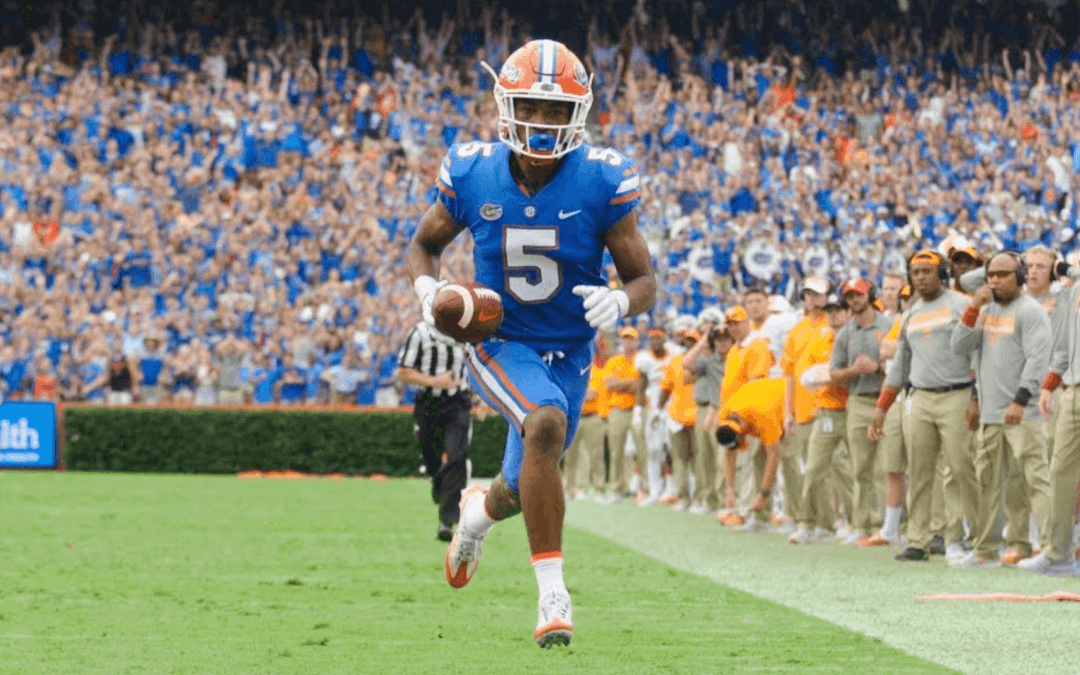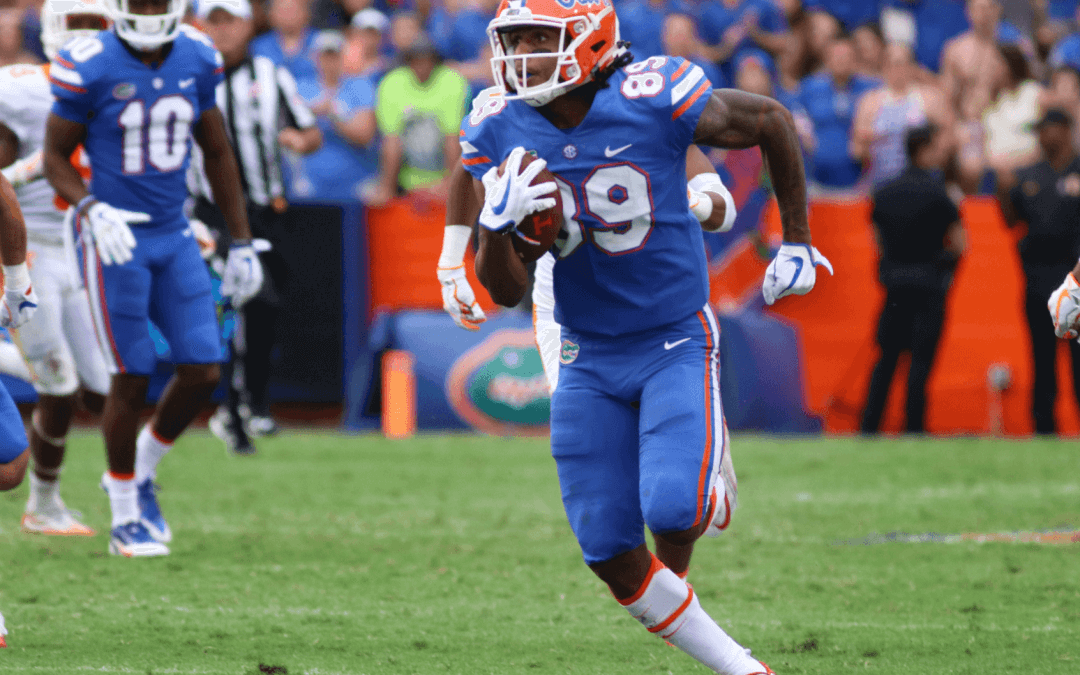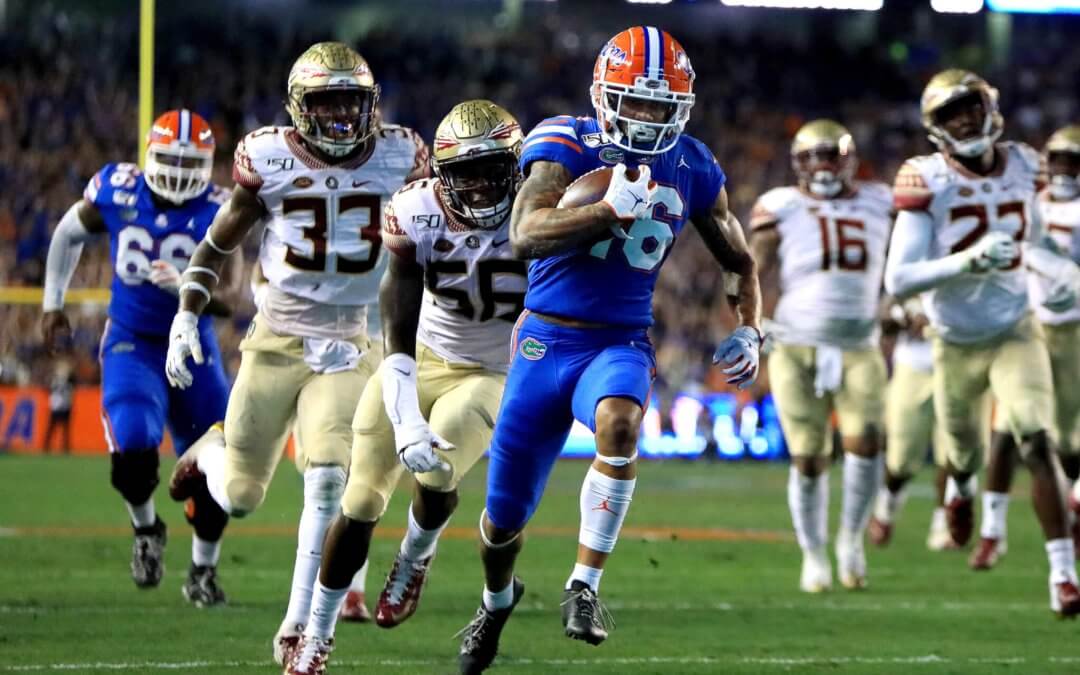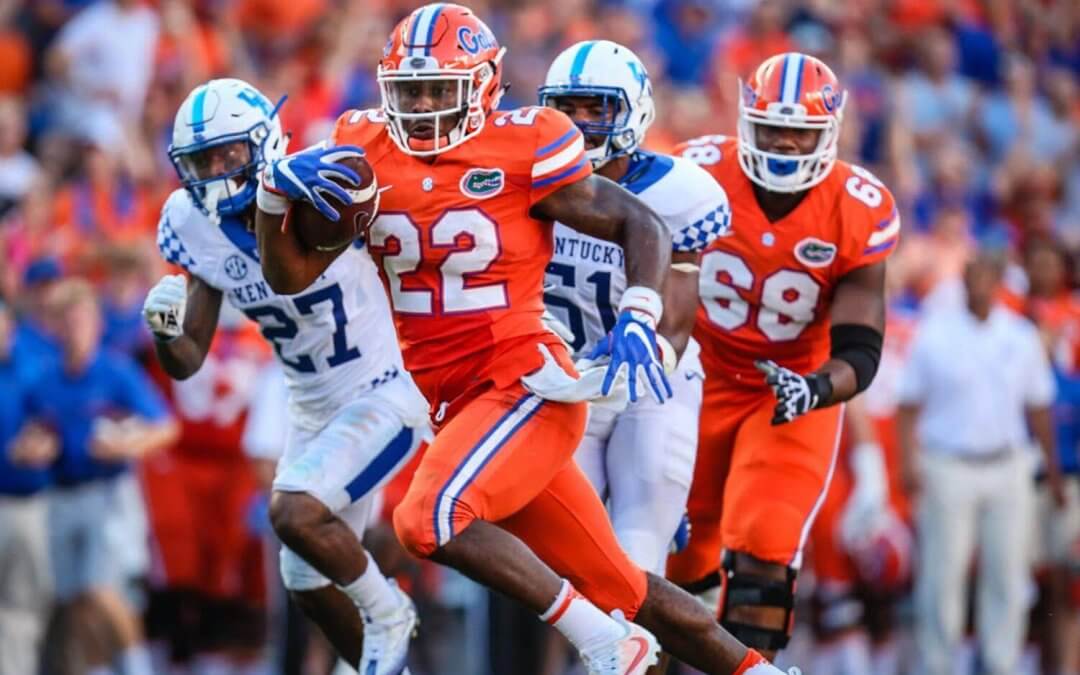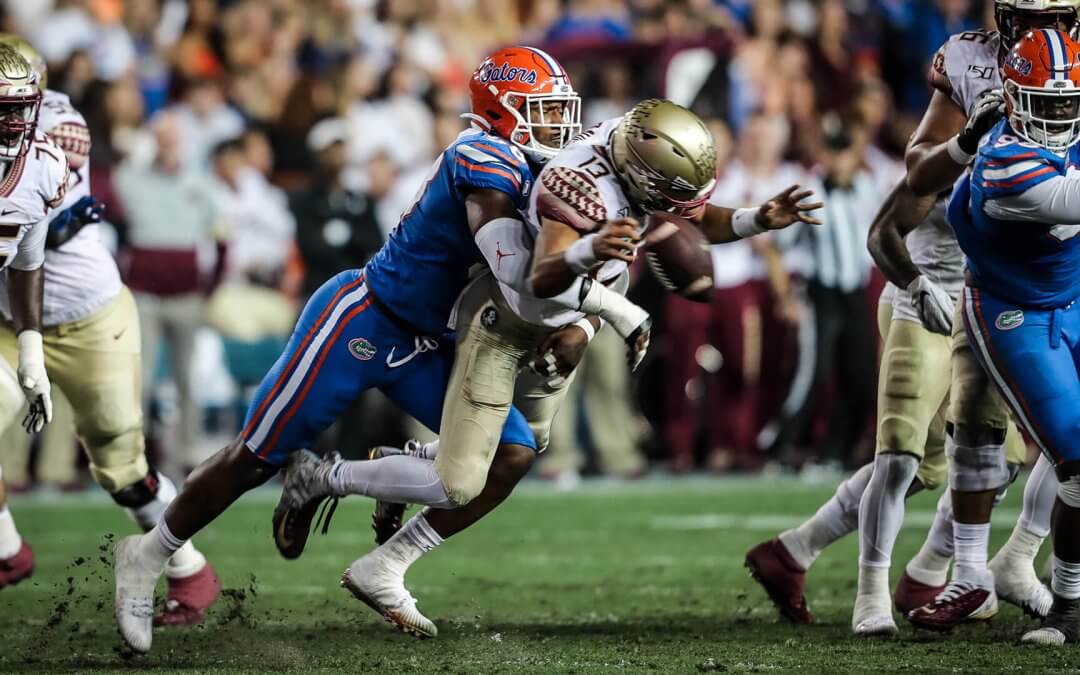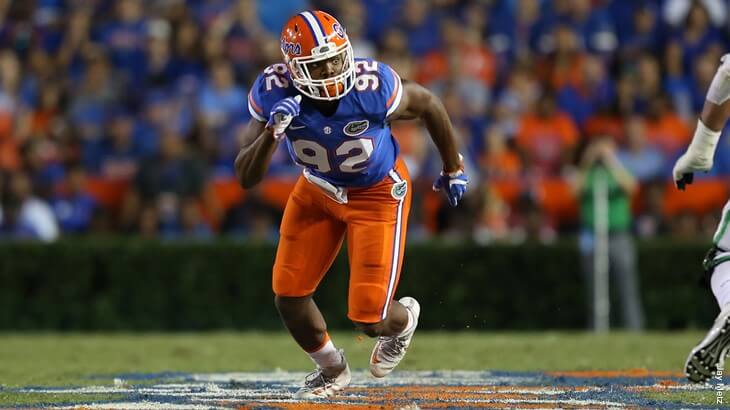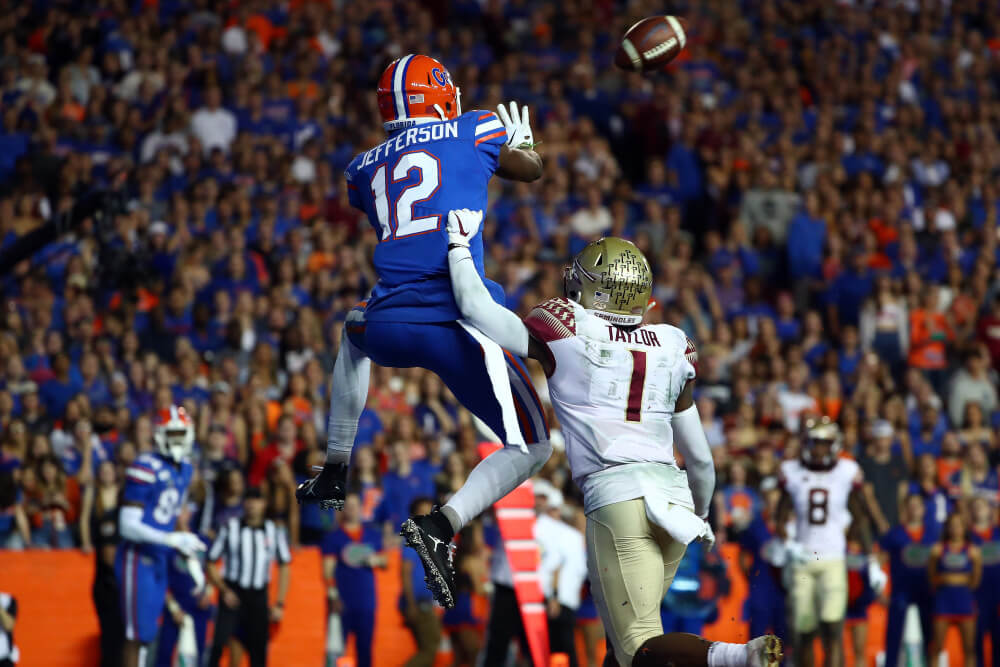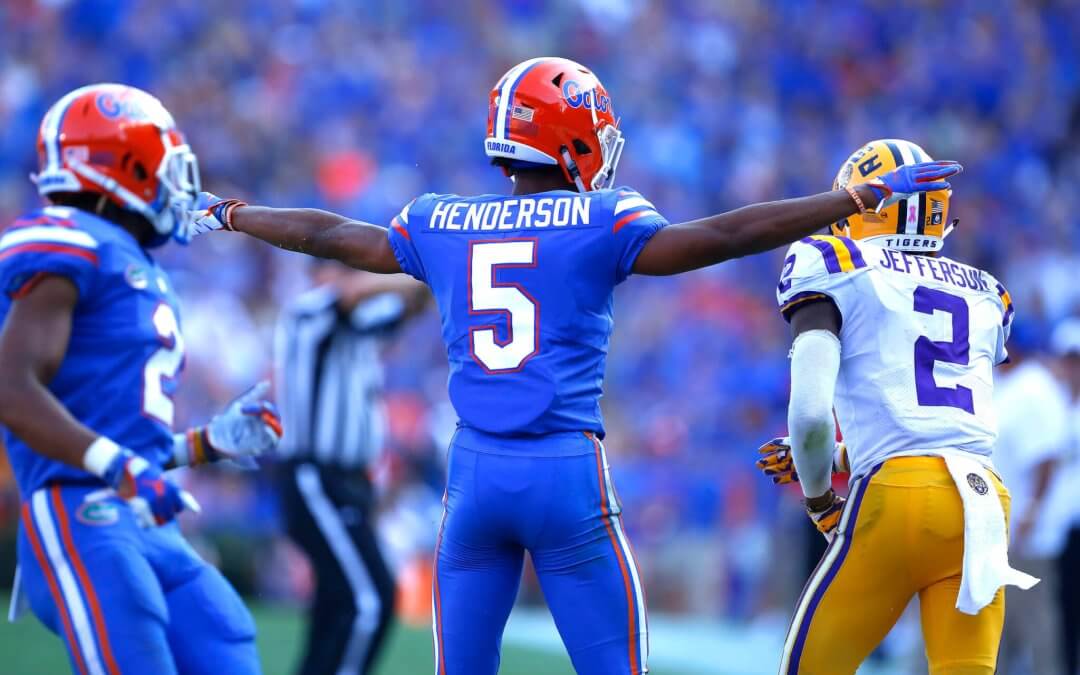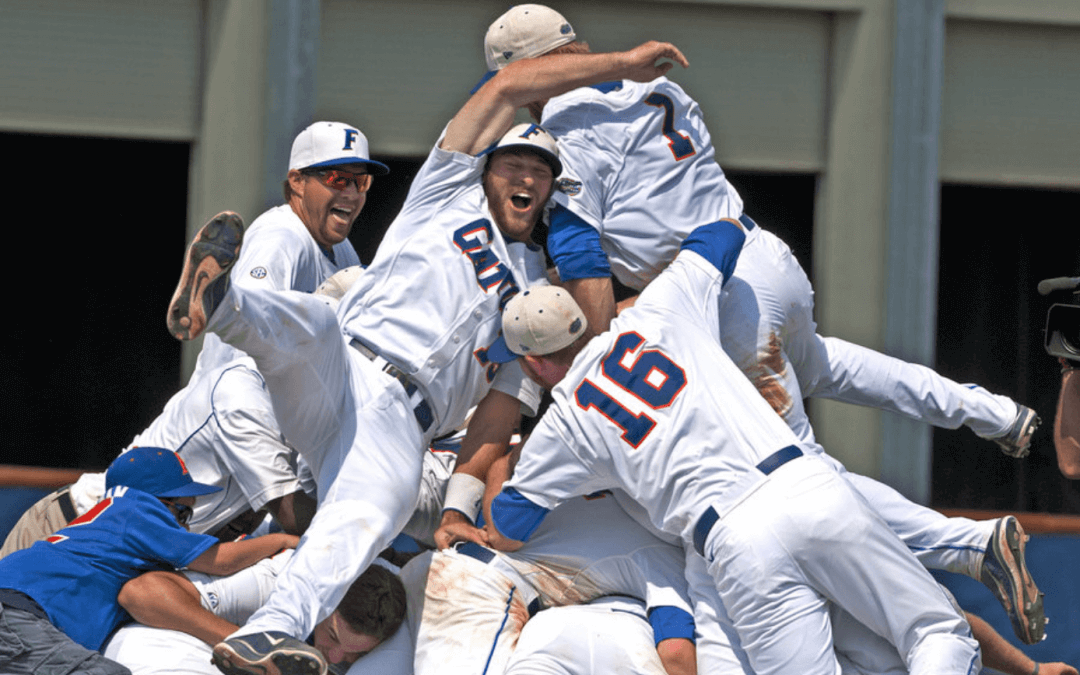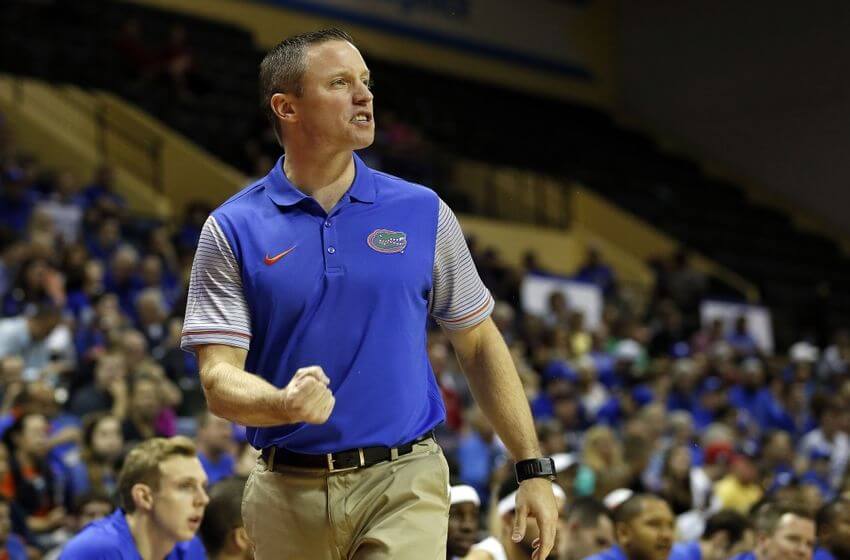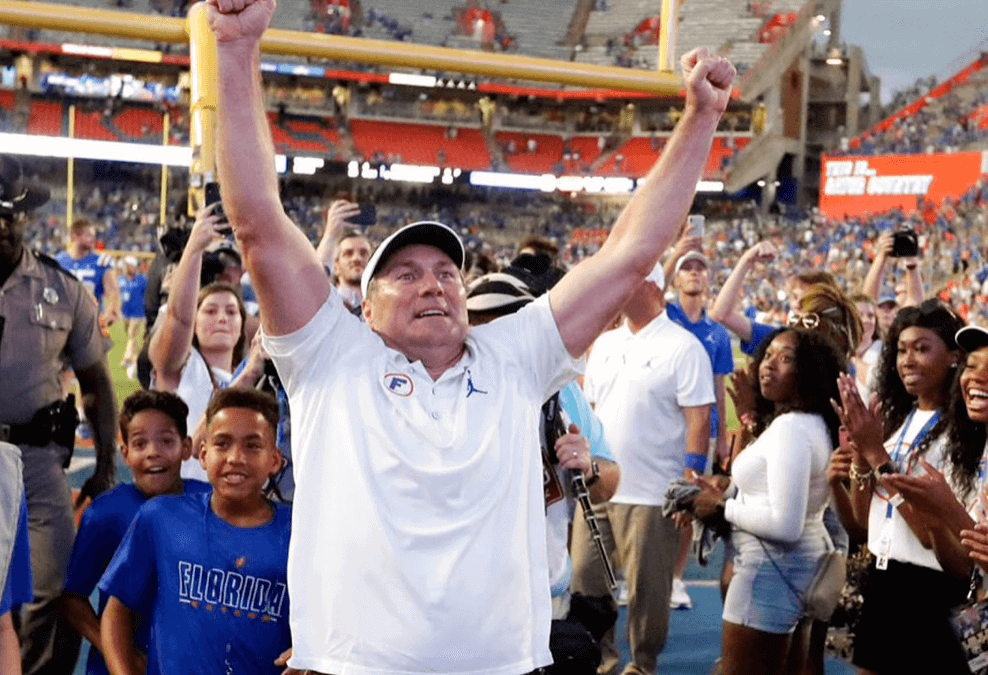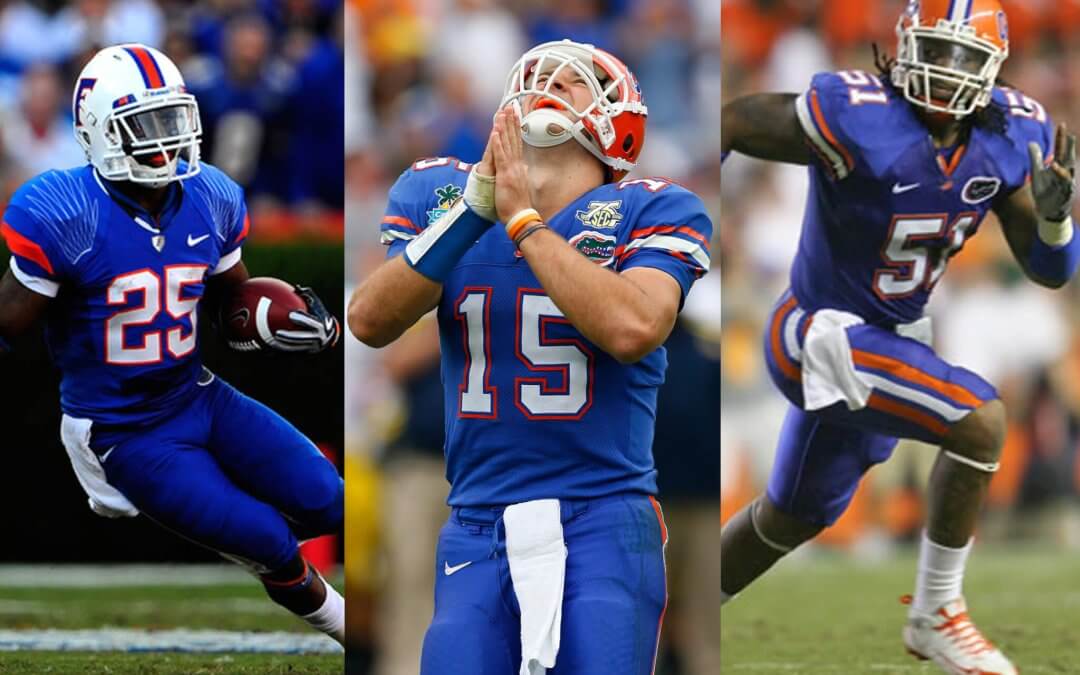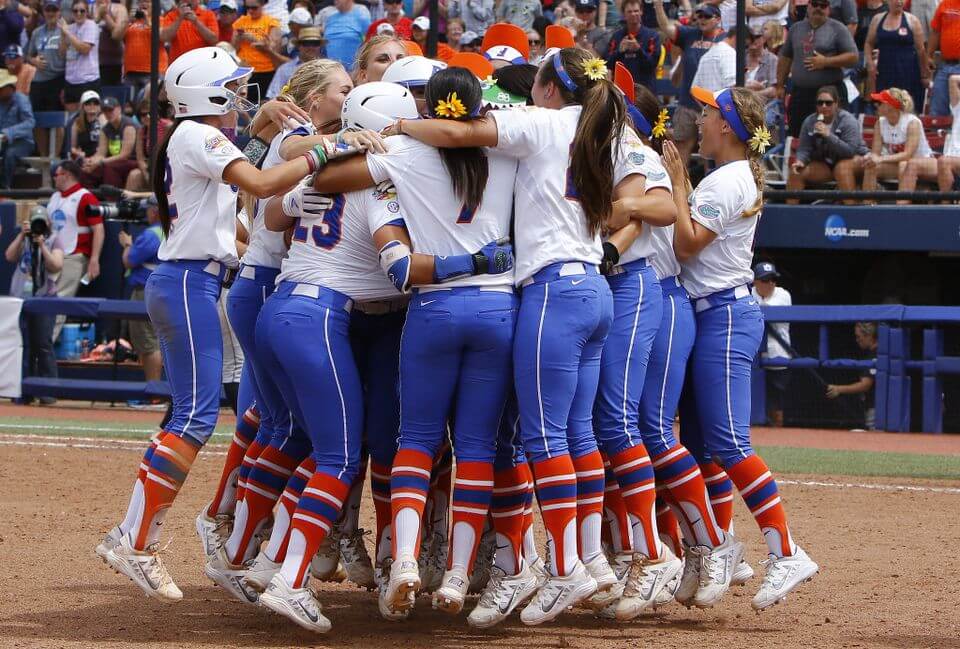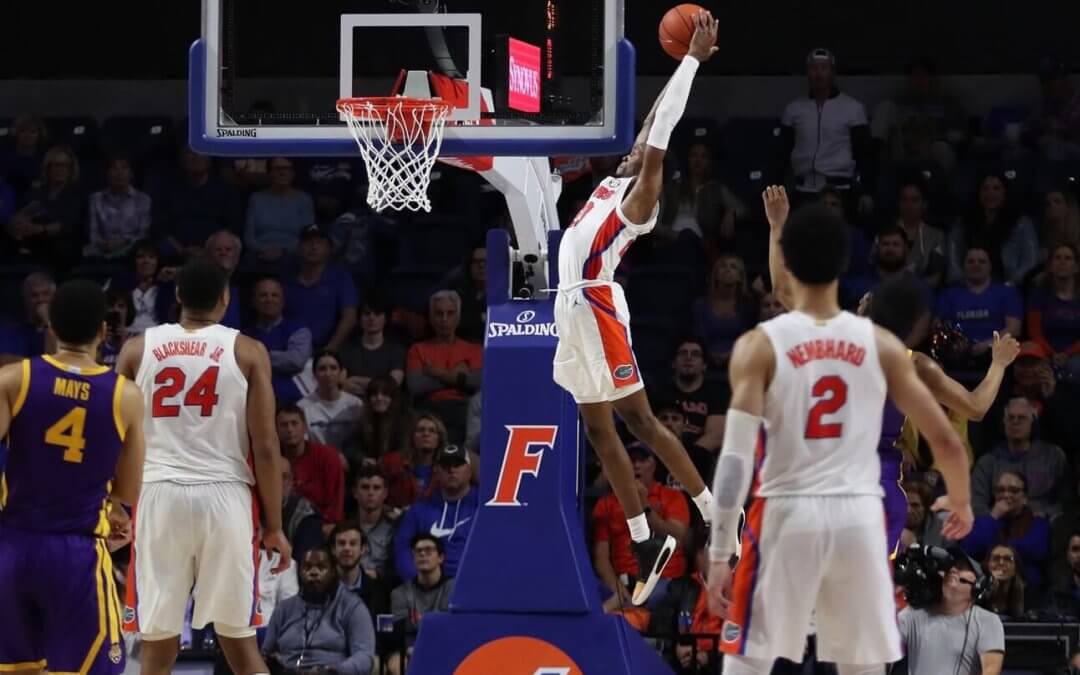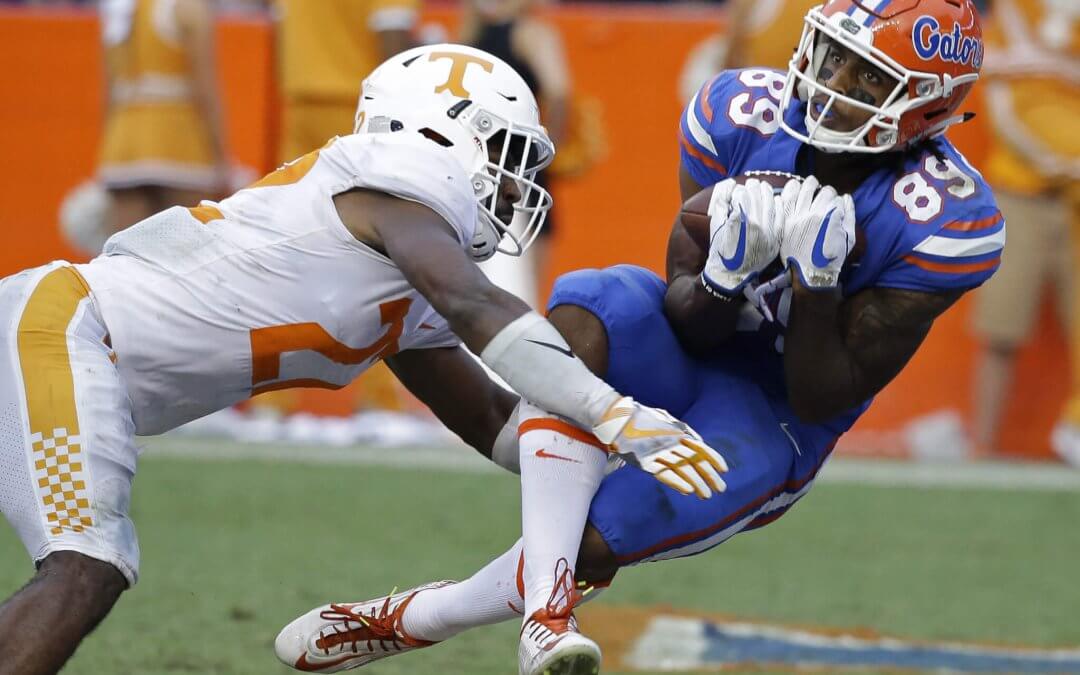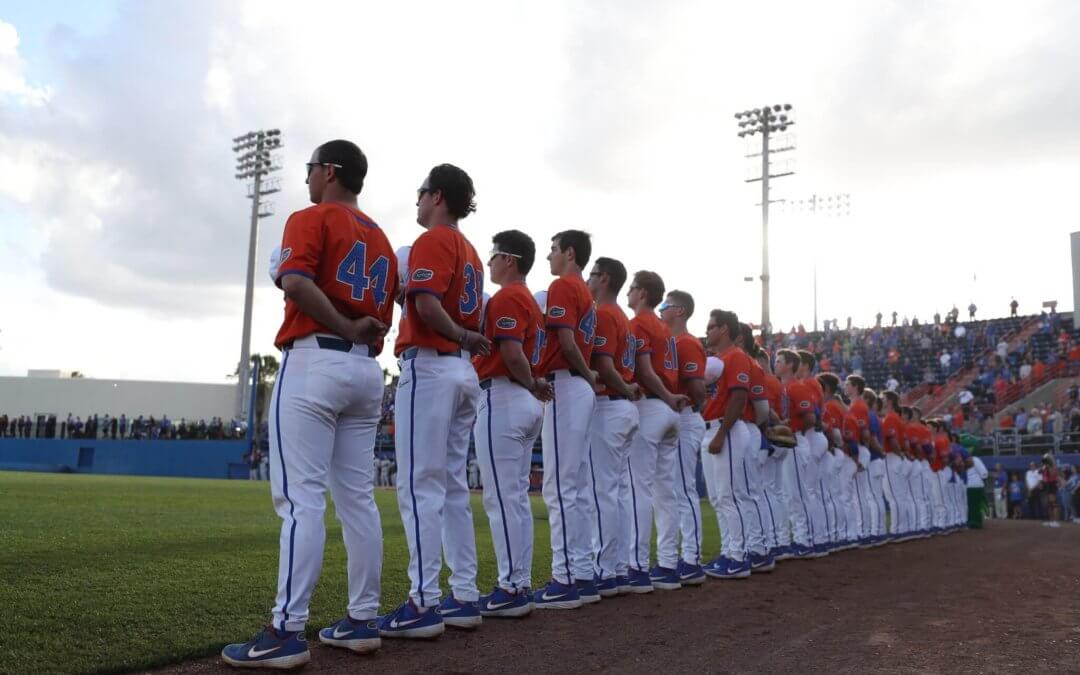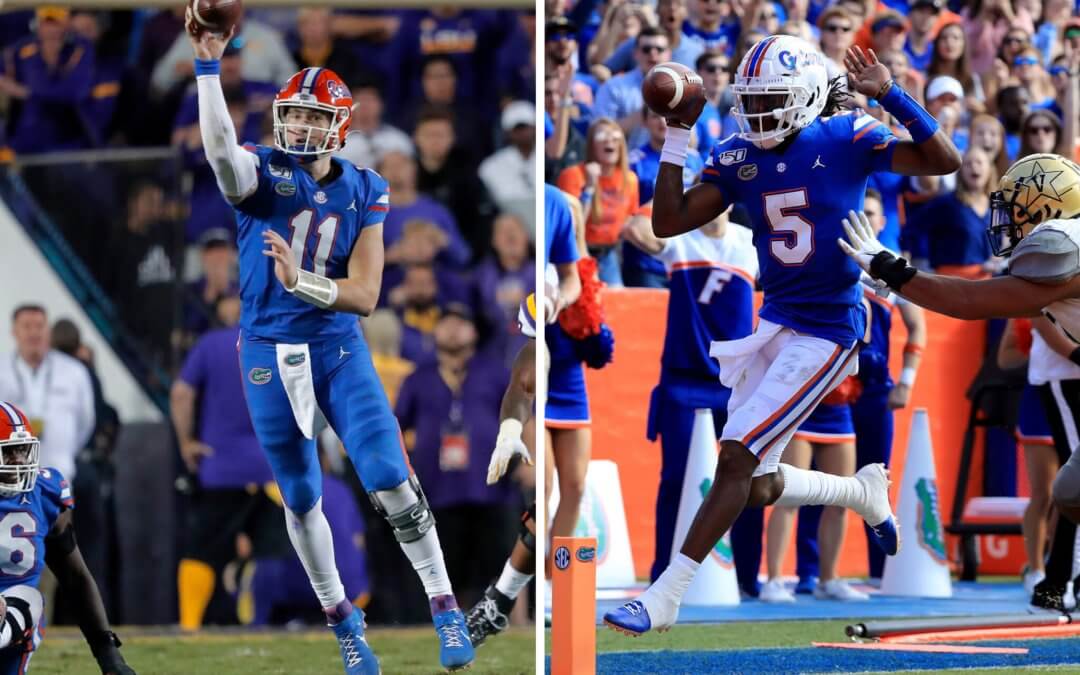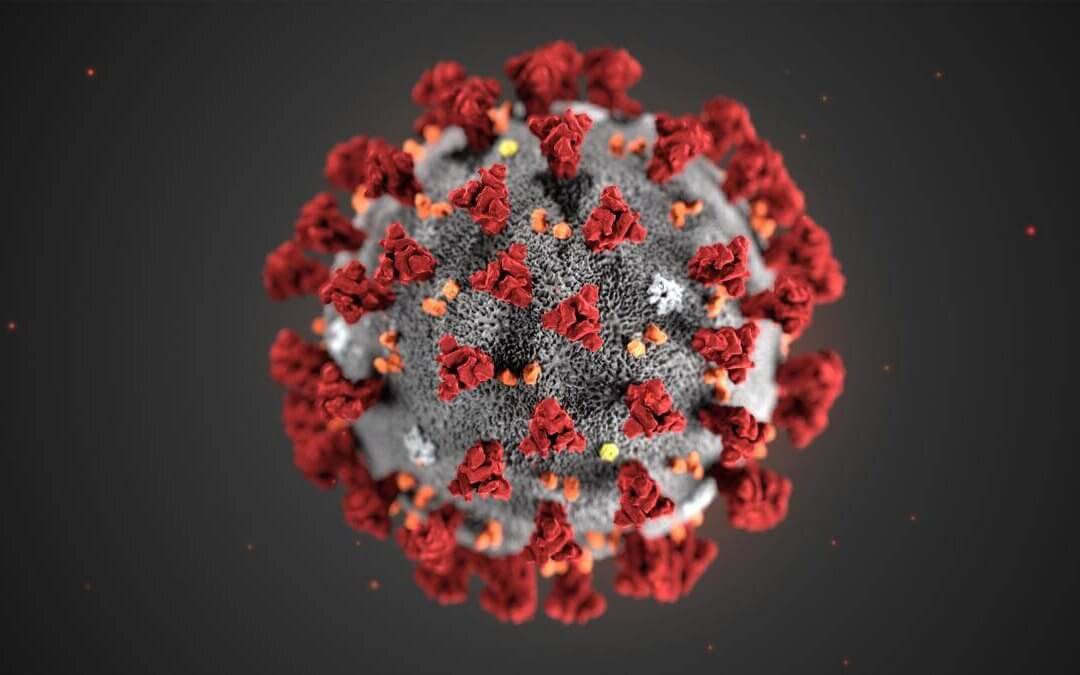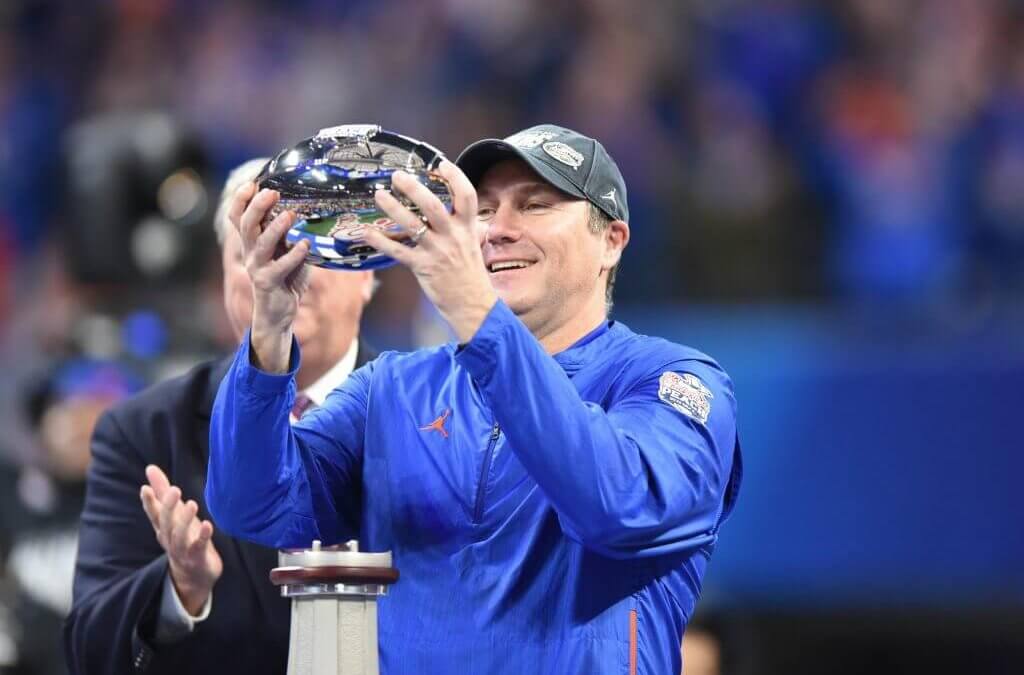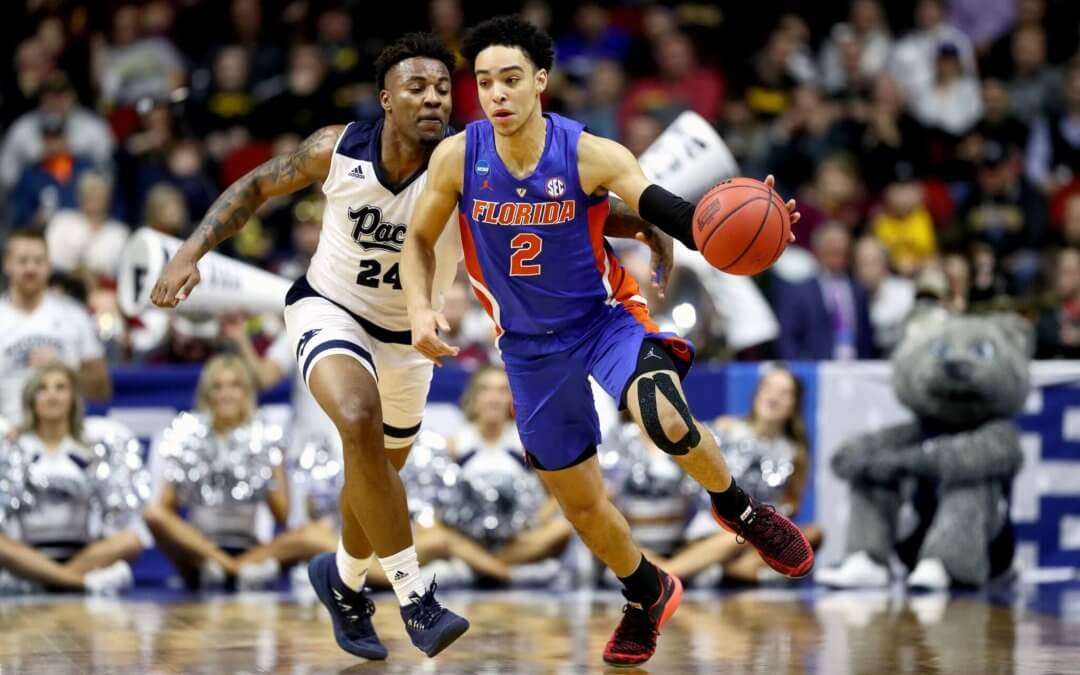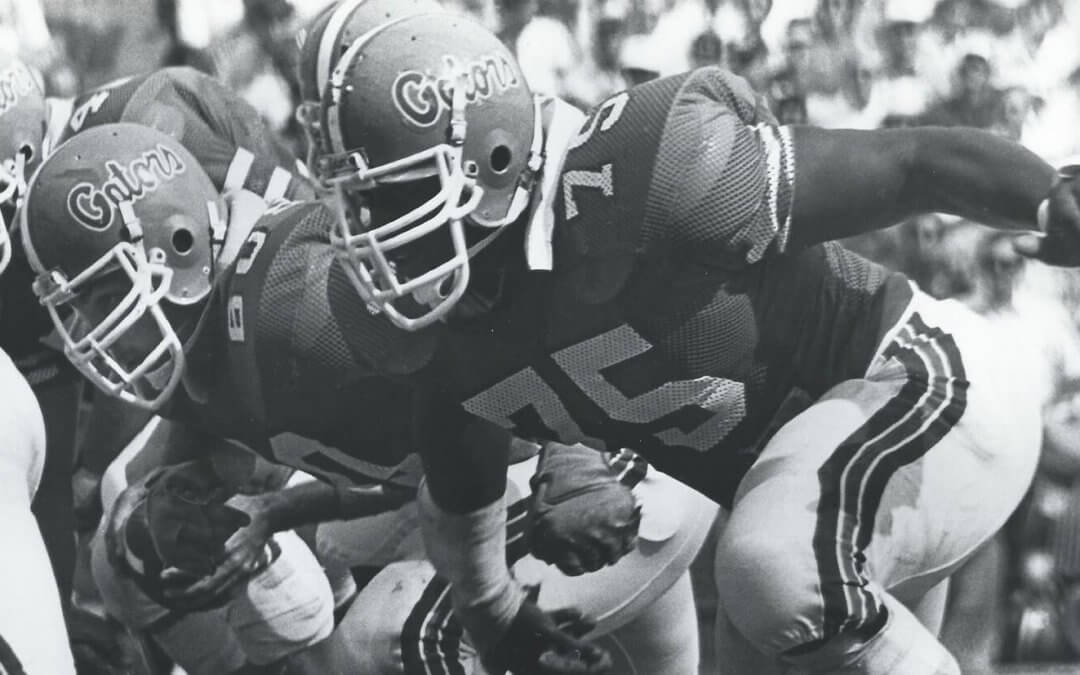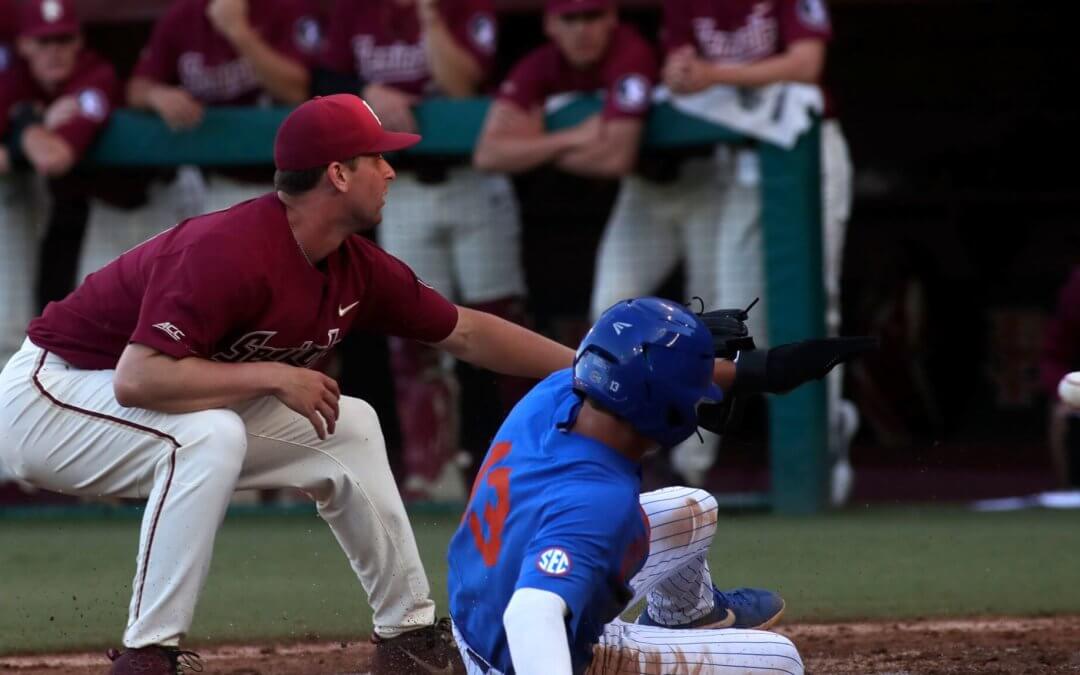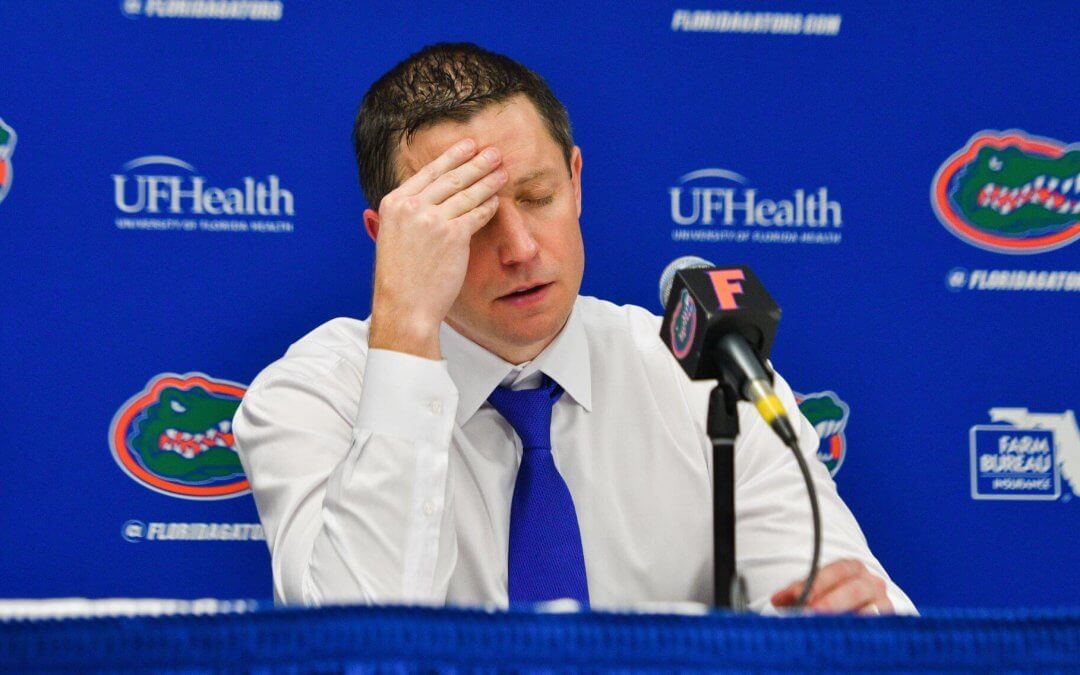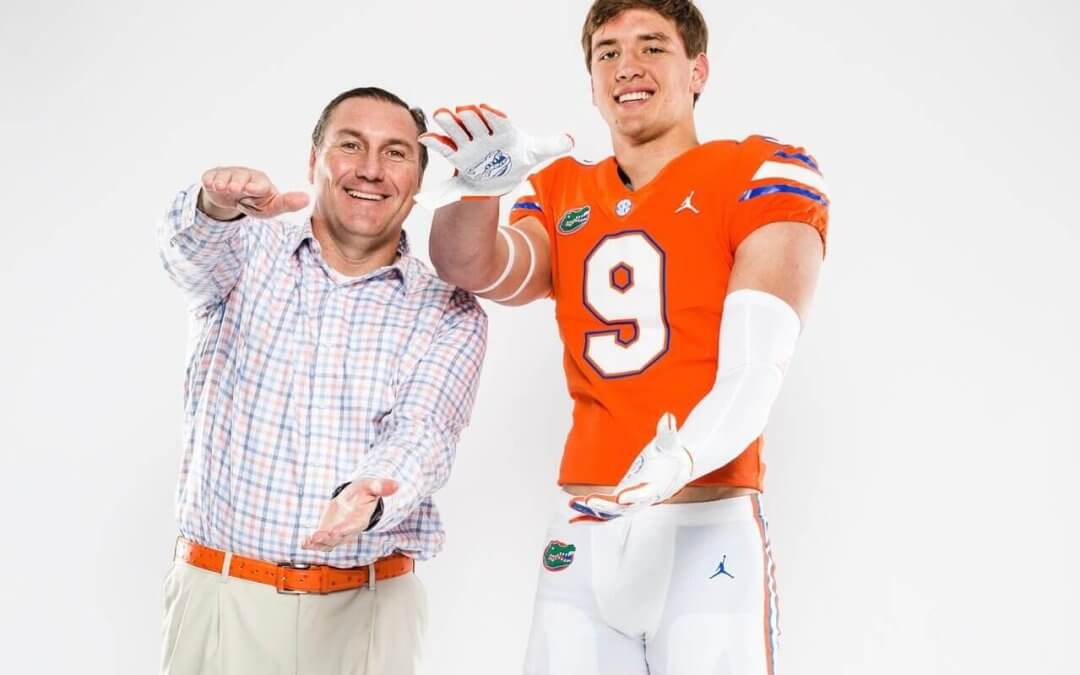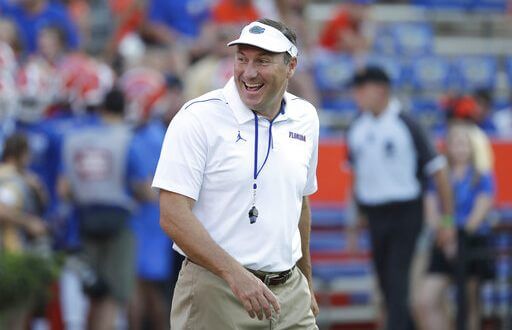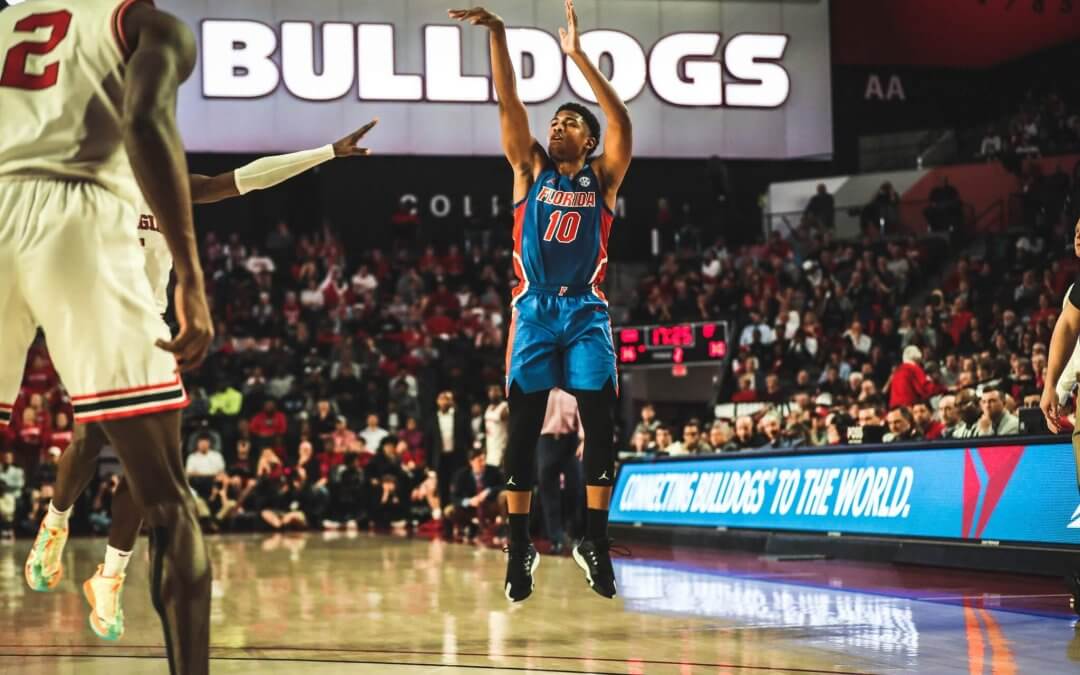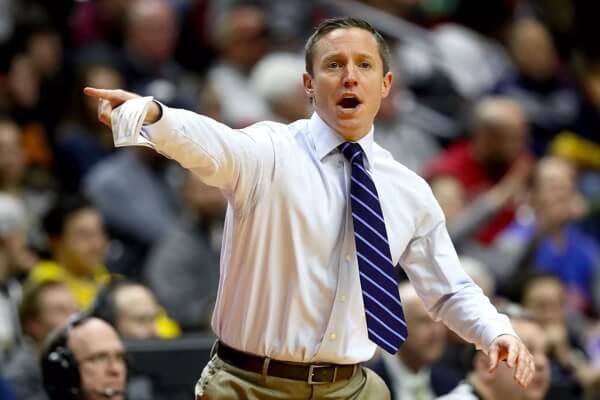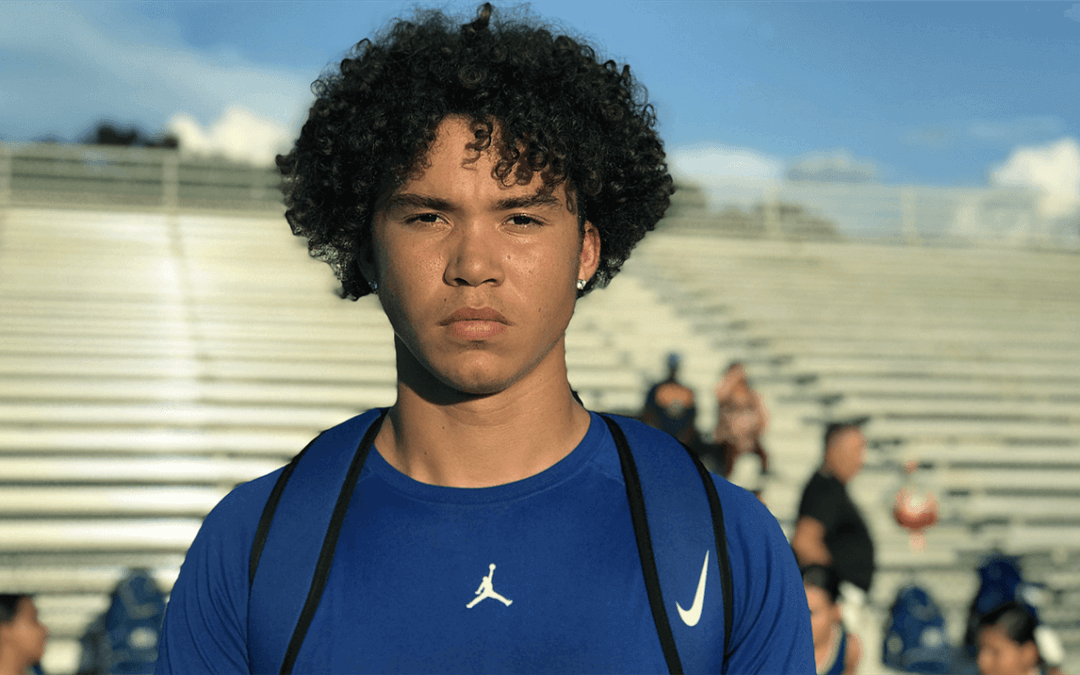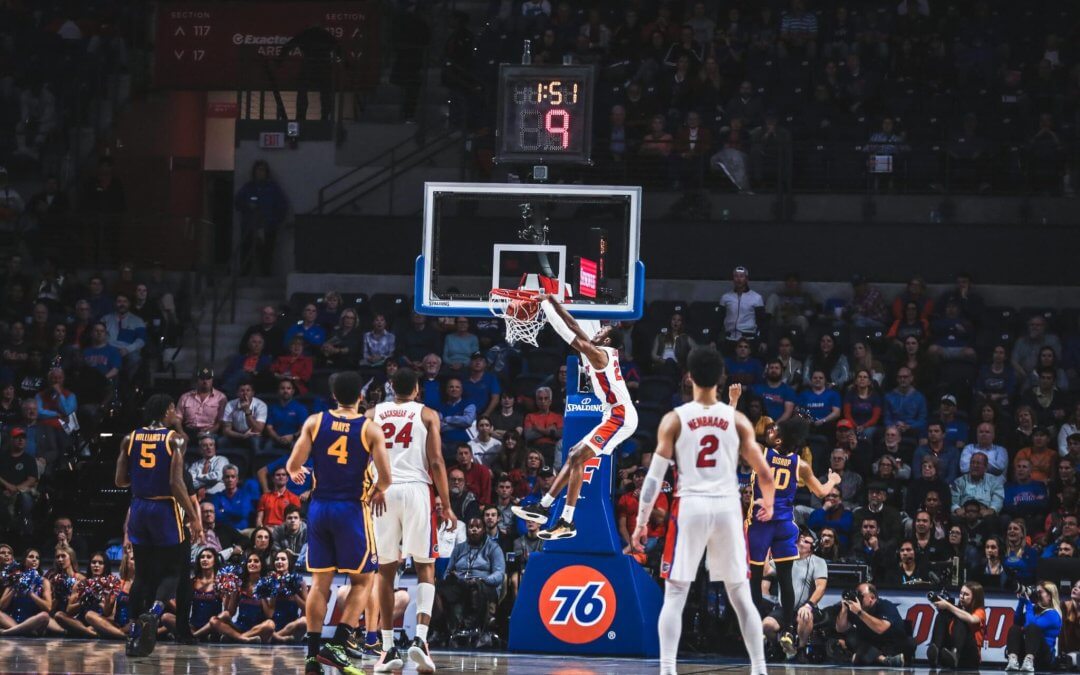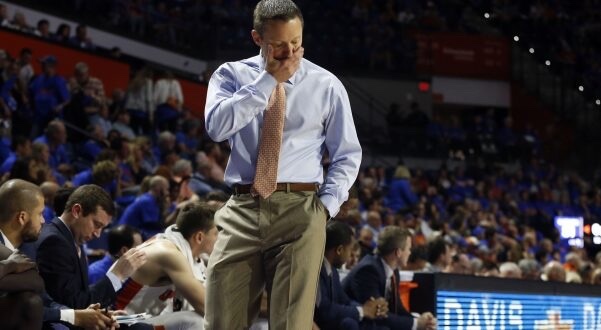
He’s not dead yet, and his days may not even be numbered yet. But he’s headed in that direction. And now he’s starting to run out of time to fix things.
What was supposed to be one of Florida’s best basketball teams ever is quickly becoming one of the most disappointing. Its latest loss to Mississippi State was nothing new, but rather just the latest episode of ineptitude that left the preseason #6 team in the country staring the NIT square in the face and their coach’s seat getting hotter by the second.
Exactly how much more wiggle room Mike White has with athletic director Scott Stricklin is something I don’t know. He did, after all, just sign an extension that keeps him here through the 2024-25 season, which guarantees him $1.75M for every year left on his contract if he’s terminated without cause. And he’s a very likable human being to boot, which makes it harder to get rid of him.
But the straws have been piling up on the camelback of uncertainty for quite some time now, and last night was the straw that broke it. After gradually being pushed toward this conclusion over the better past of the last two seasons, I am now one million percent convinced that at some point in the not-so-distant future, White’s tenure in Gainesville will come to an end, and not by his own hand, barring the boilerplate caveat of a miracle run through the NCAA Tournament- a new development after being convinced he wasn’t the guy for this job but remaining uncertain of his ultimate fate.
Now, no sane or reasonable argument to fire a coach is based on one game, or even one stretch of games. Instead, a case to fire a coach requires the sum of the data to support the claim that the coach is not performing up to the expectations. And while the freedom of America allows you the ability to delude yourself into believing whatever you choose, I choose to believe the sum of that data- which paints a crystal clear image of a man who just isn’t up to the task.
Direction of the program under Mike White
Let’s establish from the get-go that I don’t believe in judging a coach solely by what he does in a single elimination tournament at the end of the year and completely disregarding the 30-35 regular season and conference tournament games before it. Because that’s not fair. Instead, I prefer to look at the totality of the information. The NCAA Tournament is of course what matters most, but it’s merely the largest piece of data, not the only one. I’m a big numbers guy, so by nature I like to look at advanced metrics like KenPom, RPI and NET rankings. I also use the regular season results, and subsequent NCAA Tournament seeds, as measuring sticks, to determine if a team’s loss in a certain round of the NCAA Tournament was indicative of that team’s performance throughout the year or a fluke, albeit one at a bad time.
So with that all in mind, let’s start with the largest-scale issue and work our way down. Under White, the Gator basketball program has undeniably regressed in each of the aforementioned categories. All those metrics (except for NET, which was just created last season, and Florida’s back to back Round of 32 exits) agree that since White’s second season, the program has steadily gotten worse. If the order of the results of his second, third and fourth years were inverted- meaning, White’s 2016-17 team is a 10 seed that beats Nevada and then loses to Michigan in the Round of 32, the 2017-18 team results remain as they were with a #6 seed and a Round of 32 loss to Texas Tech and last year’s team goes to the Elite Eight- this whole discussion isn’t happening, even if this 2019-20 season had completely gone off the rails. Because then, there would be clear and indisputable proof that White is capable of building a program from the ground up, and during a down year like 2019-20 is shaping up to be, it would be reasonable to believe that he could do it again.
A common talking point among White supporters is that “Billy Donovan struggled in his first four years too.” That statement is downright offensive to the legacy that Donovan left for a multitude of reasons, and if uttered with a hint of sincerity should be disqualifying in terms of ever again taking the person who uttered it seriously, but the most important reason is the difference in their year-to-year results, as shown in the table below. And by “year-to-year results,” I’m not simply talking about the NCAA Tournament; I’m talking about the totality of the season. The key is simple: green backgrounds denote improvements from the previous years, yellow denotes no notable year-to-year change, red backgrounds denote regressions, and brighter versions of the color indicate more significant changes.
| Year to year results comparison | |||||
|---|---|---|---|---|---|
| Coach Years |
Year 1 record Postseason results |
Year 2 record Postseason results |
Year 3 record Postseason results |
Year 4 record Postseason results |
Year 5 record Postseason results |
| Billy Donovan 1996/97-1999/2000 |
13-17 None |
14-15 None |
22-9 Sweet 16 |
29-8 (SEC Champ) National Title Game |
24-7 (SEC Champ) Round of 32 |
| Mike White 2015/16-2018/19 |
21-15 NIT Quarterfinals |
27-9 Elite 8 |
21-13 Round of 32 |
20-16 Round of 32 |
19-12 N/A (COVID-19) |
To simply ignore the year to year improvement of Donovan and dovetailing year to year regression of White completely removes their ability to build a program from the equation, which is arguably the most important trait a coach can have. It also ignores the fact that Donovan’s best season in those first four years dwarfs White’s best season. But those facts are far more important than the overall records, because they indicate the development and the ceiling for both coaches. And as a postscript to all that: for as rough shape as the program Mike White took over was in, it was exponentially worse when Billy Donovan took it over (but more on that another time).
Because of all that, the idea of giving White a fifth year at a program whose standards are competing for championships was somewhat less than appealing. However, since he did import a surplus of new talent, including a pair of shiny five star recruits (Tre Mann and Scottie Lewis), a third recruit in the top 50 of 247’s Composite rankings (Omar Payne) and the most prized grad transfer in the sport (Kerry Blackshear), it was understandable to believe that his fifth year could break the pattern of regression and be more successful than the past two. Instead, the Gators promptly got blown away on their home court by an FSU team that lost even more talent from last year than Florida did to kick-start a third consecutive year of falling short of expectations that so far has been lowlighted by ugly losses to UConn, Utah State, Missouri, and most recently, Mississippi State.
Compare that to fans’ mindset regarding Billy Donovan in his fifth year and beyond, because some individuals still want to go there for some reason when the program’s future is brought up. Yes, Donovan’s team failed to get out of the first weekend of the NCAA Tournament for the next half decade following his appearance in the NCAA Championship Game. But drawing a comparison between the two because of that is nothing short of unbridled insanity.
Put aside the year to year growth of Donovan’s program and the fact that his best team within his first four years was better than White’s best team. Those first weekend exits were fluky or surprising finishes to strong seasons, while White’s Round of 32 exits were appropriate endings for teams that, when going by chalk, indicate that that was exactly where those seasons were supposed to end. In each of the next five years following that trip to the NCAA Title Game, when Donovan failed to reach the Sweet 16, his teams received a Regional #5 seed or better, meaning that they enjoyed strong regular seasons before being upset early in the Big Dance. And that’s not ideal, of course, but at least Donovan had those teams playing at an elite level at some point in the year. White, for his part, has not appeared to have an elite team for more than 40 minutes at a time since the #PK80 tournament in Portland in November of 2017. His last two teams received a Regional #6 and #10 seed, respectively, meaning that Round of 32 exits were more or less on par with what the course of the regular season told us to expect.
So with Donovan, even as his teams kept getting knocked out in the first weekend of the Tournament, there was legitimate reason to believe that one day, he could orchestrate a special stretch of games where his team played like it was capable of a run to the Final Four, the universally accepted standard of a special season. Because he’d done it before- not just with the 2000 team, but at various points in the five subsequent regular seasons. The conversation about Donovan was, “Man, if only he could get a team to play like they did at a previous point in time under him.” Whereas with White, it’s more along the lines of, “Is he going to ever hang a banner in the O’Dome?” When the answer to that question becomes a resounding no, the debate then shifts to whether or not you as an individual are content with consistent mediocrity from your favorite team. For fans of a program like Florida, with five Final Fours, seven SEC Championships and two national championships, the answer to that should be a resounding no as well- but more on that at the end.
In the meantime, we’re now two thirds of the way through White’s fifth season, so that’s the end of the “it’s still early, he’s learning, give him time” argument. Most monumental improvements take place within the first ten games or so, and this 2019-20 team has shown us what it is. And while I don’t doubt that it’s still capable of improving, you’re going to have a difficult time convincing a reasonable person that it’s capable of improving to the level of being the Final Four contender the national media thought it would be.
And at this juncture, even if White defies the steep odds, and he does take them on a magic carpet ride to the Final Four- though it would admittedly make me rethink the premise of this piece- it would still be a clear anomaly, the rogue result, the outlier. It would not leave me convinced that he is the right guy for Florida moving forward, because you prove that over the course of time, not with fluky NCAA Tournament runs as a low seed. At best, such a run would push me into the “Hmm, OK, that was interesting, you’ve got my attention, now what?” camp.
The bottom line is that with this team as stockpiled with talent as any he’s ever had or ever will have again, this was his golden chance to prove that he could win at the level the University of Florida expects across all sports, and he hasn’t done that- just the way he didn’t in his first four seasons.
Why not? Well, there are a few reasons.
White cannot be trusted late in close games
Some of those who still support White point to his X’s and O’s prowess, clinging to the idea that because he knows the game better than most, he should stay. Fine; let’s discuss that. Specifically, let’s talk about White’s end-of-game management. It’s not merely poor, or bad. It’s horrible. More often than is acceptable for a coach of an elite program, whatever the worst possible move or strategy one could deploy in a given late game situation is, White deploys it. And it usually costs Florida the game.
Take the South Carolina game in Gainesville last year. Never mind the fact that Florida had no business being in a close game with South Carolina, who finished .500 on the year and watched the postseason from home. And never mind the fact that that goes double at home. Florida built a fourteen point advantage with eleven minutes to go, imploded down the stretch before finally being revived and tying it back up on a Kevarrius Hayes free throw with three seconds left. There was only one way the Gators could possibly lose in regulation: by not defending the baseball type inbounds pass and giving up an easy dunk. Florida did exactly that, not even bothering to put a defender on the inbounds man and compounding that error by letting Chris Silva get behind all five Gators- whose feet were each firmly planted at the free throw line- for the uncontested game winning dunk. Bad coaching.
Take the Georgia game in the O’Connell Center two years ago. Again: never mind the fact that Florida had no business being in a close game with Georgia, who finished the year 11-21 (their highest loss total since 1955-56). And never mind the fact that that goes double at home. The fact was, Florida blew a double digit lead midway through the second half, but somehow recovered to rebuild a 59-53 edge with twenty seconds to go. There was only one way the Gators could possibly lose: by not defending Yante Maten and the three point line in general, immediately turning the ball right back over, and then somehow not learning from its mistake and not defending Yante Maten and the three point line for a second time in twenty seconds. Florida did exactly all three of those things, watched as Maten drained back to back uncontested threes sandwiched around a Jalen Hudson turnover, and lost in overtime. Bad coaching.
Take the Orange Bowl Classic against Clemson two years ago. The Tigers were a Sweet 16 team, and Jalen Hudson was having one of his worst games as a Gator, so a loss to them would have been acceptable; the manner in which the Gators lost to them was not. Florida was suffering through one of its trademark cold stretches, but still held a one point lead with 1:10 to go. The Gators’ next possession accomplished nothing other than dribbling out 28 seconds and KeVaughn Allen firing a desperation, off balance, contested three pointer with the shot clock at two. Of course, the shot wound up nowhere near the hoop, Clemson’s Marquise Reed caught the punt and then flung a baseball type pass the length of the court to Elijah Thomas for an open dunk (naturally, there was no safety back there) to give the Tigers a one point lead. Florida didn’t need a three on its next possession, but White ordered one anyway on a drive-and-kickout play from Chris Chiozza to Allen- who’d scored a grand total of two points in the entire second half, the very opposite of the hot hand- who missed and that was the end of that. Bad coaching.
And those are only three of a myriad of examples. Various late game coaching blunders also directly cost Florida wins over Mississippi, Georgia again and Vanderbilt in 2018, Mississippi State, Texas Christian and Georgia yet again in 2019, and Utah State this year.
Then there are the run-of-the-mill late game blunders that seem benign by comparison- because his players do something to bail him out. Things like allowing LSU’s Tremont Waters to dribble the length of the court in three seconds for a layup to send the game into overtime last year, where Florida lost. Things like not fouling Wisconsin’s Zak Showalter with a three point lead and :6.5 remaining in the Sweet 16 in 2017, which resulted in a game tying three. Things like slowing down the tempo with a twelve point lead with four and a half minutes to go against Xavier this year, which resulted in the offense stalling and Xavier nearly pulling off the comeback. And so on, and so forth. That said, Florida beat LSU two out of three times last year to render the one loss irrelevant, survived against Wisconsin because Chiozza hit one of the most miraculous shots in Gator basketball history, and survived against Xavier because his players made their free throws down the stretch.
Now, at times, White does make what all reasonable basketball fans would agree are good moves. Because he can’t not. Think about it: a college basketball season typically lasts 31 games, plus the conference and then postseason tournaments. Multiply that by 40 minutes’ worth of game action for him to make the right moves, plus the time in between games where he gets to play around on a whiteboard or craft adjustments with his assistants, and he gets a hell of a lot of individual opportunities to pull the right lever. Which he sometimes does: he’s adept at drawing up baseline out-of-bounds set plays, which often result in dunks, and every now and then he’ll adjust his defense during a game in a manner that pays off. And sometimes, his preparation for a game is masterful, like the time in the 2017 Round of 32 when he placed top defender Kasey Hill on All-ACC and future NBA guard London Perrantes of Virginia while the rest of the Gators swarmed and pressed the Cavs all night to the tune of an easy 65-39 victory.
But that ultimately doesn’t matter, because with all the examples of crunch time botchery, I cannot objectively bring myself to trust him to coach his team to a win. Oh, sure, his players can bail him out and make enough shots or plays to win, which they have at times, but that’s a different argument. White himself has long ago crossed the Rubicon in terms of me ever trusting him to provide Florida with the winning edge late in a close game. And yes, at a given moment, he can make a good defensive switch, or call a good set play, or even draw up the perfect baseline out of bounds play late in a close game as he did in Baton Rouge last Tuesday. But those instances are more than overwritten by his miscalculations, both in terms of frequency and in terms of their role in the game’s outcome.
White has been responsible for a large volume of disturbing losses- particularly at home
Speaking of the game’s outcome: regardless of how good or bad Florida was, under Billy Donovan, you could usually count on the Gators taking care of business on their home floor barring a lopsided talent disparity that favored the opponent. But not anymore. White has utterly destroyed the aura of invincibility the Gators’ home court once had, turning one of college basketball’s cathedrals into opposing teams’ practice facility.
Since the beginning of the 2017-18 season, the Gators have lost fourteen games in the O’Connell Center, seldom without infuriating circumstances. Two of those losses were the aforementioned debacles against Georgia and South Carolina that White gave away with his coaching blunders. Two more came against those very same opponents, meaning that both Georgia and South Carolina- two of the worst Power Five basketball programs in the entire country- currently own two game winning streaks over Florida in the O’Dome after the Gators had beaten the Bulldogs each of the last fourteen times, and the Gamecocks 15 of the last 17 times, in Gainesville. Other forgettable moments on their home floor have included getting blown out by archrival FSU twice, the ultimate ignobility of losing a payday game to Loyola Chicago, who even after their miraculous Final Four run sat twelve spots behind Florida in the final KenPom rankings that year, and the aforementioned loss to an LSU team that the Gators somehow managed to beat twice away from Gainesville last year. And then there was last night, a game that Florida led by double figures throughout most of the first half and five minutes of the second half before everything fell to pieces at once and Mississippi State pulled off a monumental comeback.
By contrast, Billy Donovan, the man that White’s band of remaining supporters just can’t stop comparing him to, quickly learned how to win games at home. After struggling with the concept initially in his first two years, Donovan’s teams would only lose six times on their home floor over the next half decade. The O’Dome quickly became known as a death trap for opponents as the program reloaded itself for a second reign of dominance with the famous “Oh-Fours” dynasty of Joakim Noah, Al Horford, Taurean Green, Corey Brewer and Lee Humphrey. Those back to back national championship teams lost a grand total of two home games.
While on the surface, regular season losses at home aren’t fatal, protecting your turf is unanimously regarded as the foundation for all strong teams. The confidence a good team gets from knowing that it will usually take care of business at home is vital to its success throughout the course of a long season. The fact that bad home losses tend to leave most fans extremely pissed off is far from the most damaging effect they have, because enough of them can leave a team in some extremely precarious positions when it comes time for the NCAA Selection Committee to create the 68 team tournament bracket.
It’s not like the Gators compensate for their home court ineptitude by picking up the slack on the road, either. Two years ago, Florida suffered atrocious road losses to Mississippi, Georgia (for a season sweep at the hands of the Bulldogs) and Vanderbilt. Those three teams finished the 2017-18 season with an average KenPom rating of 88. Last year, the Gators got chomped to pieces by FSU, Auburn and Tennessee in their respective buildings by a combined 47 points. And this year, Florida got ripped apart by a Butler team that’s solid, but does not have nearly the talent Florida has, and then blasted into the sun by a Missouri team that has zero chance to earn an at-large bid to the Big Dance.
By themselves, the home losses would be far more tolerable- they’d probably even come to be accepted as a necessary evil- if White proved capable of winning games when it matters most, in the NCAA Tournament. And the same goes for the road losses to teams that Florida should beat.
But he hasn’t done that. And because he’s failed to overwrite his failures with the ultimate whiteout of the NCAA Tournament, he’s cornered himself against mammoth expectations with nothing short of a David vs. Goliath battle ahead of him if he wants to work his way out of it.
White’s tenure has begged the question: what is the Gator (basketball) Standard?
Under Mike White, Florida has developed a distinct, yet simple pattern of results, from which his team seldom deviated in his four and a half years. Half, maybe six out of every ten of their games will go chalk, meaning the better team will win. Florida will beat some good teams here and there to raise false hope. And then they’ll lose to some bad teams to re-energize the calls to fire him. The net result of all of that? A team that’s somewhere between mediocre and decent. No better, and no worse. That pattern will extend into the postseason, where Florida will seldom make it out of the first weekend- if they get to the NCAA Tournament at all.
A popular defense of White among the supporters he has left is that he is not Billy Donovan, and thus, Florida should be content with a basketball program that bears an eerie resemblance to Ron Zook’s tenure as Florida’s head football coach. The Gators will never really be terrible under him. Going 9-22 in a season won’t be a worry. But just as sure as Florida won’t bottom out and become one of the worst teams in Division I, nor will the Gators ever become a true powerhouse under him.
And don’t dismiss the comparison out of hand, because the parallels run much deeper than the overall diagnosis. Zook’s record at Florida was 23-14, which is a winning percentage of 62.2%. By contrast, White is 101-61 at Florida so far, which translates into a nearly identical 62.3% win percentage. They each had one nice run in their second years to provide false hope; Zook’s 2003 team ran off a string of five straight wins, three of which came over top eleven ranked teams, and White’s 2016-17 team had the Elite 8 run that his supporters cling so tightly to. Now factor in that they’re both defense-first coaches with no prior experience in CEO-ing a major athletics programs, throw in a few stray upset wins over great teams, mix in some embarrassing losses to inferior opponents, and there you have it. Mike White is the approximate basketball equivalent of Ron Zook.
There’s one major difference, though. Back in 2004, then-AD Jeremy Foley set a precedent that Zookishness would not be tolerated on a long term basis in football. He dropped the axe on Zook midway through his third season, citing one simple reason: “What should be done eventually must be done immediately.” Zook was unfortunate enough to coach a sport where mediocrity did not net a team the same mathematical chance at a national championship as the elite teams. For all we know, had there been a 64 team playoff in college football in 2003, Chris Leak would have guided Florida to an upset win or two and taken them to the Elite 8. After all, that team did upset both the SEC East and West division champions in non-home game environments- the latter of which doubled as the eventual national champion (LSU).
On the other hand, because of the nature of college basketball where the NCAA Tournament can overwrite regular season shortcomings, it’s usually very difficult to utilize regular season shortcomings in any case to make a head coaching change. White gets an ex machina at the end of every season to overwrite his deficiencies; Zook did not. But under White, the aforementioned issues have become so frequent, gruesome and pervasive that they’ve slowly come to define his tenure.
If you’re still in the Mike White camp, I’d like to ask you something directly. Just for a minute, remove the method in which basketball and football crown their champions from the equation as well as the amount of games in a season, and now ask yourself why winning less than 62.5% of his games got Zook fired after two and a half years but leads you to still believe in White after four and a half years. Is it the .1% disparity between 62.3% and 62.2% that’s tipping the scale? Is 62.3% the magic number? Do you simply not care about basketball as much as football? Are you going to cite how bad Florida basketball was before Billy Donovan, conveniently ignore the fact that Florida basketball pre-Donovan had won more SEC Championships than Florida football pre-Spurrier, refer to Florida as a “football school” and claim it can’t do any better while historically inferior hoops programs like FSU, LSU, Auburn and Tennessee are each currently ten times the program Florida is? Or are you going to ignore all of those questions and continue to blindly believe White is capable of fixing the mess he’s started simply because he’s the coach of the Florida Gators and that all fans should blindly believe in him because that’s what a “true fan” should do? Sharp as those words are, they weren’t typed up to antagonize, but rather are legitimate inquiries. I genuinely want to know what the excuse is now.
Apparently, some people need a reminder: this is Florida we’re talking about. Not Florida Atlantic, Florida. Maybe football comes first in Gainesville, but this school still boasts a prestigious basketball program. The Gators own a pair of national championships (only nine schools in the country have more) and five trips to the Final Four (only fourteen schools in the country have more). A lone Elite 8 appearance due to a miraculous shot and plateauing as a Round of 32 team is not the standard for this program- especially not when those Round of 32 exits are paired with regular seasons that suggest that that’s where the postseason should end. And unlike with Billy Donovan’s early years, there’s zero proof that White is capable of building a program that can compete for championships in more years than not, which is the standard- not just because Donovan made it that way, but because a quick walk through the athletic facilities or a quick Google search will prove that that’s the standard for literally every other sport at the University of Florida.
Worst of all, the longer White is allowed to hang around without dramatic improvement, the stronger the message of, “Yes, that level of mediocrity is acceptable here” becomes (unless the pattern breaks for the worse, the wheels come off and the program enters a nosedive). Thus, the more difficult it will become to pull the plug with more and more instances of consistent mediocrity in the rearview mirror that didn’t result in the plug being pulled. And if it indeed plays out that way, there’s only one logical end point: one day several years from now, we’re all jarred awake, a decade has passed and our basketball program has nothing to show for it.
That’s not the Gator standard. But luckily, last night seemed to have opened some eyes. And I’m now becoming more and more convinced with each passing day that it won’t come to that.
The Diagnosis: what should be done eventually must be done immediately
The reality is that White is not dead, yet, but he’s just been sentenced to death, and nothing short of an absolute miracle will save him. This cannot possibly be what Stricklin envisioned when he signed White to an extension last October. This is a Gators team with several five star signees, and by far the best grad transfer on the resale market this past offseason. The national media took note of all that and anointed this team the sixth best in the country at the start of the year. Yet here we are, watching that same team- which was supposed to be White’s best team yet, and is now 43 in the NCAA NET rankings, nowhere close to sniffing the top 25 in either major poll, and one of the last few teams in the NCAA Tournament field according to most bracketologists- struggle mightily.
White is coaching this program down a dead end road, the end point of which is the unenviable position for Stricklin of having no choice but to make a coaching change. That end point has not been reached yet, and it is not yet what I would categorize as imminent, but we are starting to see it a little ways off in the distance, straight ahead of us. Stricklin may have just signed him to an extension out of blind faith, but he is ultimately an intelligent man, and every move he’s ever made other than that extension points to him one day soon realizing that he has to make a change.
Exactly when and what it would take for Stricklin to realize that is anybody’s guess, and as a fan, you’re more than welcome to keep rooting for the Gators and hope against hope that White can prove me wrong. That’s pretty much exactly what I’m doing. My desire to see my favorite college basketball program succeed far outweighs my desire to be proven correct and see a head coaching change, because of course it does. But there is no longer a rational or logical reason to believe that Mike White is capable of returning the Gators to being the championship level program it deserves to be. That’s the bottom line. To reiterate: you can hope and pray for me to be proven wrong, and you can keep rooting for Florida in the meantime, but there is no longer a rational or logical reason to believe that Mike White is capable of returning the Gators to being the championship level program it deserves to be.
As for who Florida should replace him with? There’s certainly no shortage of appealing candidates. Florida can get pretty much anybody it wants outside of Roy Williams, Coach K or John Calipari. My first call would be to Chris Beard of Texas Tech, and throw the checkbook at him. Nobody very good stays in Lubbock very long, and Florida is undeniably a better job than Texas Tech. Should that fail, I’d go after Mark Few of Gonzaga and Gregg Marshall of Wichita State, who have taken their respective programs as far as they can go, and offer them the keys to an even better program (yes, Florida is a better job than Wichita State and Gonzaga, and no, it’s not even close). In the (unlikely) event that all three say no, I’d go after Dana Altman of Oregon, Ben Howland of Mississippi State, Kevin Willard of Seton Hall, Steve Pikiell of Rutgers, and Brian Dutcher of San Diego State as safety options.
Again: White isn’t a terrible coach. He hasn’t exactly buried the program in the depths of college basketball hell. In a way, it would almost be better if he did, because at least then Stricklin would have pulled the trigger by now and restarted the process of building a championship level program. Instead, White’s yearly mediocrity has locked a once proud program in a vault in college basketball purgatory, with just enough success to merit not beginning to search for that vault key.
If an eternal spot in purgatory is your metric of success- meaning, if you’re a fan of Wake Forest or Vanderbilt- White’s the perfect fit. But because that’s not the metric of success at the University of Florida, White must be replaced. After last night, I’ve been left with no choice other than to believe that he will be, and not by his own choice, sooner or later. As Jeremy Foley once said, though: “What should be done eventually must be done immediately.”
And though I maintain that I like him very much individually and wish him nothing but the best at his next job, cutting bait with Mike White is something that there’s simply no remaining argument against eventually doing.
